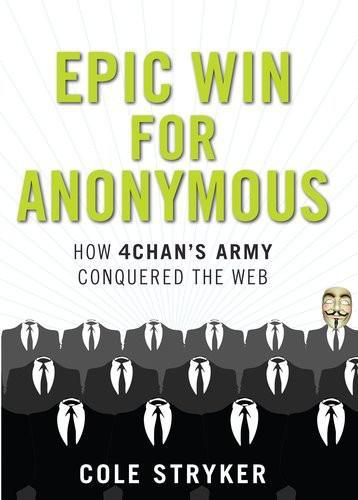
Epic Win for Anonymous: How 4chan's Army Conquered the Web
by
Cole Stryker
Published 14 Jun 2011
The Enthusiast Boards As of this writing, there are 49 boards that make up 4chan.org. When you read about 4chan in the news, you are most likely reading about /b/, 4chan’s Random board. And for good reason. /b/’s traffic makes up more of the activity on 4chan than the other boards combined. /b/ is a no-rules board that fosters all kinds of nasty behavior. I discuss it later in this chapter. But first, some descriptions of the enthusiast boards found on 4chan that focus on specific areas of interest. Note: All posts quoted from 4chan and elsewhere are reproduced exactly as posted. /a/ Anime & Manga 4chan was originally conceived as a place for anime and manga (comic book) fans to talk about their hobby and share images from their favorite anime franchises.
…
Reddit was born, which built small fences around content creation and communication that corralled the creative culture of 4chan, with fantastic results. But as 4chan has scattered pieces of itself throughout the web, it approaches mainstream. Does this mean the golden age of 4chan is over? Will it cease to be what it once was, when millions of people buy this book and learn all of its secrets? “I’m not ready to say that 4chan’s over,” says Know Your Meme’s Kenyatta Cheese. “If anything, 4chan will just go back to being the place it was a few years ago.” I’m with Cheese. As those twin themes of 4chan become increasingly embedded in the mainstream, 4chan will go back to what it was before it started getting write-ups in The New York Times: a place for bored teens to shoot the breeze.
…
Neither of these capabilities could exist on Facebook at the same scale because they are only made possible by 4chan’s emphasis on anonymity and ephemerality. Many have speculated that if Christopher Poole had played his cards right, he could have made bank with a community as big and as dynamic as 4chan. I’m skeptical. The moment one tries to monetize something like 4chan is the moment it stops being 4chan. Poole would have had to place content restrictions in place in order to draw advertisers and sponsors. And without restrictions, no company in its right mind (aside from the lowest level of pornographers) would want to advertise on 4chan as is. Furthermore, turning 4chan into a profitable business would likely agitate the userbase to the point where it would revolt against 4chan. 4chan users have turned against the site in the past, and I’m sure that any attempt to make much more revenue than what’s required to pay server bills would result in not just a mass exodus, but raids and trolls of epic proportions.
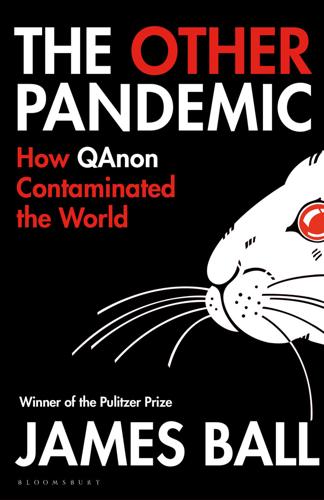
Other Pandemic: How QAnon Contaminated the World
by
James Ball
Published 19 Jul 2023
On 27 November, a new Q post appeared – but not on 4chan. Instead, the post appeared on a rival site – 8chan. It had a stark warning about Q’s old home: Test Test 4Chan infiltrated. Future posts will be relayed here. Q24 8chan is essentially 4chan, but worse. There are, perhaps unbelievably, some limits to what 4chan will host, and some content is deleted. This was simultaneously seen as unacceptable – but also as an opportunity – by one 4chan user in 2013. American Frederick Brennan, who lives with brittle bone disease and uses a wheelchair, founded 8chan as a more extreme spin-off of 4chan on which anyone would be able to say anything, with absolutely no limits.
…
Whatever its sins, 4chan could be fun. Much of what is now the bedrock of internet culture was born on 4chan’s boards, and being on 4chan meant you would be several weeks ahead of most people you saw in the real world. Plus the /b/ board would regularly get involved in pranking other sites for what it would refer to as ‘shits and giggles’. Rickrolling – tricking unwitting users into watching the Rick Astley ‘Never Gonna Give You Up’ video – was a 4chan invention. And, as anybody who has been either victim or perpetrator knows, it remains funny when done well. Songs have charted because of 4chan and careers have been made by its users.
…
These include anime, video games, technology, wrestling, maths, origami and LGBTQ issues. Most of 4chan is pretty innocuous, though it has multiple boards dedicated to different subgenres of pornography, some of which can be extremely graphic. While the site itself is on the fringe, it had an outsized impact. Such was 4chan’s influence on the internet culture of the 2000s and beyond that even the Wall Street Journal, in its 2008 article naming Poole, acknowledged it as ‘one of the most talked-about sites when it comes to launching new memes’. If you’ve ever been rickrolled, thank 4chan. If you’ve ever seen a lolcat: 4chan. If you’ve ever used the strange online vernacular of ‘o hai’ or ‘I herd u lik memes,’ that was born on 4chan too.
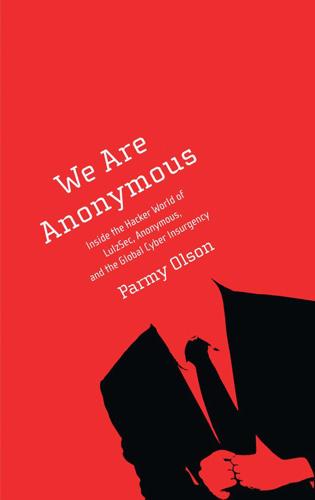
We Are Anonymous: Inside the Hacker World of LulzSec, Anonymous, and the Global Cyber Insurgency
by
Parmy Olson
Published 5 Jun 2012
He put the whole thing together on his bedroom computer and called it 4chan. When an online friend asked Poole, who went by the nickname moot, what the difference between 4chan and 2chan would be, he replied with some chutzpah, “It’s TWO TIMES THE CHAN MOTHERFUCK.” On September 29, 2003, Poole registered the domain 4chan.net and announced it on Something Awful, a Web forum where he was already a regular. He entitled the thread: “4chan.net—English 2chan.net!” 4chan had almost the exact same layout as 2chan: the simple peach background, the dark red text, the shaded boxes for discussion threads. Both 4chan and 2chan have barely changed their designs to this day, apart from adding a few color schemes.
…
At around fifteen, he finally found 4chan, the website that would become his world for the next few years. Many people who involve themselves in Anonymous claim to have first found it through 4chan. This was the case for William and Topiary, who both discovered the site at the same time, in 2005. Already that year, the tagline “We are Legion” was appearing around the Internet. Tripcode users on 4chan were rare. A year after Shii wrote his essay, forced anonymity had become widely accepted on the image board. Anyone deemed a tripfag was quickly shot down and mocked. 4chan was booming, a teeming pit of depraved images and nasty jokes, yet at the same time a source of extraordinary, unhindered creativity.
…
Here users appealed to the sympathetic side of 4chan, with titles such as “gf just dumped me, bawww thread please?” posted with the photo of a sad face. This was the rare instance where /b/ users would offer sincere advice, comfort, or funny pictures to cheer up the OP. There was no way to tell for sure, but the types of people who were hanging out on 4chan appeared to be tech-savvy, bored, and often emotionally awkward. By the time Anonymous started grabbing the world’s attention in 2008, most people who supported Anonymous had spent some time on 4chan, and it is said that around 30 percent of 4chan users were regularly visiting /b/.
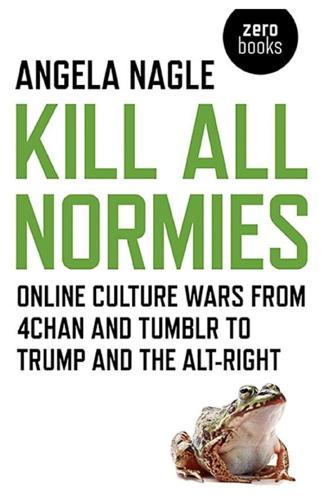
Kill All Normies: Online Culture Wars From 4Chan and Tumblr to Trump and the Alt-Right
by
Angela Nagle
Published 6 Jun 2017
Her situation was, unsurprisingly, not improved by her father posting a video in defence of his upset daughter, in which he threatened to call the ‘cyberpolice’ – in their emotionally underdeveloped way, lack of Internet-culture knowledge is always license on 4chan for any level of cruelty. They also acted collectively on less sinister pranks like Operation Birthday Boy, when an elderly man posted an online ad saying: ‘people wanted for birthday party’. Touched by the lonely old man’s appeal, they found his name, address and phone number, and sent him hundreds of birthday cards, orders of cake and strippers. In the New York Times, Mattathias Schwartz described 4chan/b/like this: The anonymous denizens of 4chan’s other boards — devoted to travel, fitness and several genres of pornography — refer to the /b/-dwellers as “/b/tards.”
…
In each case there are countless conflicting accounts about the nature of threats and attacks, but even taking the uncontroversial ones alone, it is fair to say they did receive a level of abuse that in the pre-Internet days were reserved for few other than child murderers. This got so out of hand that even the founder of 4chan and champion of the anonymous Internet, moot, banned gamergate talk from 4chan, eventually causing him to leave the site, and the gamergaters moved to the more lawless 8chan. Quinn found and recorded some of the conversations that took place on a 4chan IRC called ‘burgersandfries’, in which users conspired to destroy her career using the most extreme misogynist language and motivations. In this chat, they express their hatred and disgust towards her, and their glee at the thought of ruining her career.
…
While she recognized the very real impact of their actions on their victims, Philips described 4chan/b/’s trolls as ‘revel[ing] in counter-hegemony’ and ‘undermining established media narratives’ and the ‘mindless histrionics of the modern 24-hour news cycle’. She characterized Fox News’ unflattering description of 4chan trolls as an attempt to ‘maximize audience antipathy’ toward them and said ‘mainstream media outlets aim to neutralize a particularly counter-hegemonic cultural space.’ As late as 2014, when 4chan was full of extreme racist and misogynist content, Gabriella Coleman wrote in much more positive tones again about the hacker cultures that had emerged from it: What began as a network of trolls has become, for the most part, a force for good in the world.
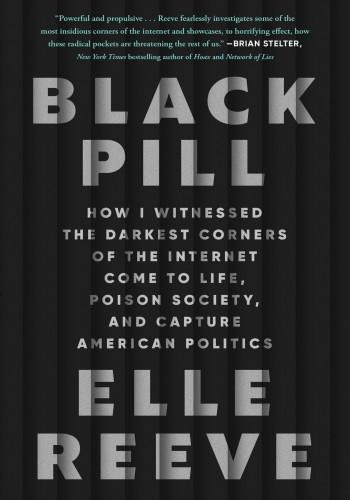
Black Pill: How I Witnessed the Darkest Corners of the Internet Come to Life, Poison Society, and Capture American Politics
by
Elle Reeve
Published 9 Jul 2024
Beneath the chain mail, on Roger’s green T-shirt, was a cartoon frog with bulbous eyes. I stared at it: You again. It was “Pepe the Frog.” He’d taken a long and twisted journey before landing on Roger’s chest. In the late 2000s, Pepe was lifted from a stoner comic strip and made into an icon on 4chan, an anonymous online forum that was the dark heart of the internet, until it got so dark it wasn’t funny anymore. Pepe had an innocent smiling face, but 4chan users redrew him with sad, downcast eyes to represent their loserdom. Because the forum was anonymous, they were free to talk about being losers, and any joke was permitted. Some made ironic Nazi jokes, and making Nazi jokes was itself a joke, a way to keep away outsiders.
…
Fred was beginning to understand the power of words. He’d discovered 4chan the previous year, and he was mesmerized. He saw people using terms like “crippled,” “retard,” “crippled retard,” and any other offensive slur you could possibly imagine, and there was nothing to stop them. In school, sometimes kids would put things out of his reach and then laugh, but they never said, “You’re a crippled retard.” He knew the words, of course, but he’d never been called that in real life. He felt a perverse satisfaction in reading it on 4chan. Wow, he thought. They’re all agreeing with each other, and they’re all saying it, and they’re all just laughing it up.
…
They’re all agreeing with each other, and they’re all saying it, and they’re all just laughing it up. This is what people are really thinking. They’re lying in real life. There was no way for him to escape the way people saw him in real life, so it was better to live online anonymously. “From that point, when I started using 4chan heavily, my whole life became about the internet, and my real life stopped mattering to me.” To gain acceptance on 4chan, he had to show he was an epic troll—that he didn’t feel bad about offending people. “If you’re not willing to troll,” he said, “you’re not going to get respect among other users.” Trolling gave him a sense of power, just as it did for all the others, who had their own reasons for living online.
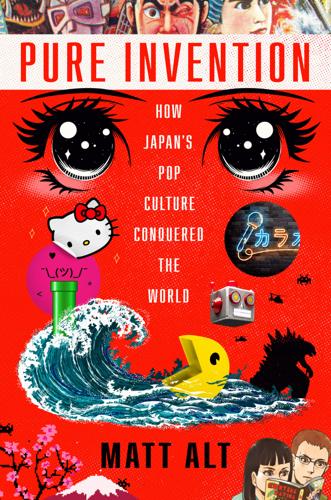
Pure Invention: How Japan's Pop Culture Conquered the World
by
Matt Alt
Published 14 Apr 2020
website called 4chan: The basic details of 4chan’s launch, structure, and early years are gleaned from a variety of sources, including: Nick Bilton, “One on One: Christopher Poole, Founder of 4chan,” The New York Times, March 19, 2010. Caitlin Dewey, “Absolutely Everything You Need to Know to Understand 4chan, the Internet’s Own Bogeyman,” The Washington Post, September 26, 2014. Christopher Poole, “IAM Christopher Poole, aka ‘moot,’ founder of 4chan & Canvas. AMA!” Reddit, March 29, 2011, https://www.reddit.com/r/IAmA/comments/gdzfi/iam_christopher_poole_aka_moot_founder_of_4chan/. In 2019, it was visited by forty to sixty million: “4chan.org: Web Analysis and Traffic History for 11 Years,” Traffic and Alexa Rank History, https://www.rank2traffic.com/4chan.org (accessed January 3, 2020).
…
What happens on 4chan stays on 4chan—or so went the original idea. This seems like a recipe for sound and fury, signifying nothing. But 4chan’s impact on American culture, both online and off, is quantifiably real—and occasionally scary. It became the world’s wacky-meme factory, but so too did it devolve into a hothouse for sexism, misogyny, white supremacy, election tampering, even terror plots. In other words, 4chan embodied the dark side of the Internet—which is to say, in a way, modern life, as we know it. And to understand it, we first have to go back to Japan, for that is where 4chan originated, both in terms of its software and its culture
…
Citing long-standing rules against harassment and the posting of personal information, he ordered Gamergate-related threads scrubbed from 4chan. The response was predictable. “moot sides with anti-Gamergate! 4chan is dead,” wrote one anguished poster. So began a mass exodus to an even more lawless spin-off, with the predictable name 8chan. Tired of the constant controversies, and the site’s most vocal users politicizing the site itself, in early 2015 moot announced that he would step down as 4chan’s administrator. In September he sold it outright. But who on earth would pay money to associate themselves with the site? From virtually its very inception, the scandalous behavior unfolding on 4chan made the site radioactive to advertisers or investors.
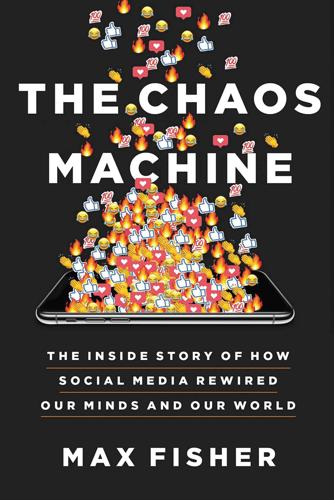
The Chaos Machine: The Inside Story of How Social Media Rewired Our Minds and Our World
by
Max Fisher
Published 5 Sep 2022
One day the conspiracy was “everywhere,” he said, especially on Facebook, where after years of inactivity, some pages reemerged simply to repeat the phrase “Pizzagate is real.” But it was on 4chan’s politics board, the internet’s petri dish for pathogenic conspiracies, that he’d watched its genesis. Conspiracy belief is highly associated with “anomie,” the feeling of being disconnected from society. The userbase of 4chan defined itself around anomie—mutual rejection of the off-line world, resentful certainty that the system was rigged against them. And they idolized WikiLeaks chief Julian Assange, an anarchist hacker whose politics, like 4chan’s, had drifted alt right. So when Assange published Podesta’s emails in October, a month before the election, they saw it not as a Russian-backed operation, but as the start of a thrilling campaign to expose the hated elite.
…
A pair of videos, the post said, had surfaced on YouTube showing two boys abusing a cat named Dusty. The clips drew outrage, especially on a message board called 4chan, whose users could be mischievous. They pledged justice for Dusty; one identified the YouTube video-maker as a fourteen-year-old from Oklahoma. Another claimed he’d alerted local police, though authorities later said they had identified the video’s origins on their own. The video-maker and his brother were charged with animal cruelty; 4chan filled with posts celebrating the victory as their own. Adam was enthralled. People just like him had turned the act of clicking around on the internet into a thrilling adventure and a bonding social experience.
…
People just like him had turned the act of clicking around on the internet into a thrilling adventure and a bonding social experience. “These guys saved a kitty? You bet your ass that drew me in,” he recalled. “The vigilante-justice aspect of it helped define what 4chan is for me.” He started spending hours a day on 4chan, whose unusual features had made it wildly popular with early internet adopters. Anytime a user wanted to start a new thread, they had to upload an image, which kept the platform filled with user-made memes and cartoons. Long before Snapchat and others borrowed the feature, discussions automatically deleted after a brief period, which enabled unseemly behavior that might’ve been shunned elsewhere.
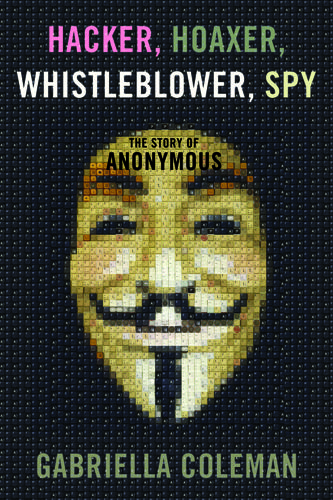
Hacker, Hoaxer, Whistleblower, Spy: The Story of Anonymous
by
Gabriella Coleman
Published 4 Nov 2014
On the one hand, outlandish trolling raids and denigrating statements like “lulzcow … whore” (or “due to fail and AIDS” from the Habbo Hotel raids) function for 4chan users like a pesticide, a repellent meant to keep naive users far away from their Internet playground. On the other, when compared to most other arenas where trolls are bred—like weev’s GNAA—4chan is a mecca of populist trolling. By populist, I simply mean that 4chan membership is available to anyone willing to cross these boundaries, put in the time to learn the argot, and (of course) stomach the gore. The etiquette and techniques that 4chan users employ are only superficially elitist. A former student of mine offered me the following insight.
…
Macpherson, identifies as “possessive individualism,” defined as “those deeply internalized habits of thinking and feeling” whereby we view “everything around [us] primarily as actual or potential commercial property.”22 How did 4chan—one of the seediest zones of the Internet—hatch one of the most robust instantiations of a collectivist, anti-celebrity ethic, without its members even intending to? This ethic thrived organically on 4chan because it could be executed in such an unadulterated form. During a lecture for my class, a former Anonymous troll and activist explained the crucial role of 4chan in cementing what he designates as “the primary ideal of Anonymous”: The posts on 4chan have no names or any identifiable markers attached to them. The only thing you are able to judge a post by is its content and nothing else.
…
But, before we get ahead of ourselves, it is worth spending some time on the technical specifications and the culture of 4chan—the unique attributes and proclivities that made it the perfect primordial stew for cooking up Anonymous as both a label and a rubric. Unlike Usenet, no one on 4chan is in the least bit disturbed by the uncivil speech that ricochets across the board every second of the day because, in some respects, the board is explicitly conceived of as a say-anything zone: the grosser and more offensive, damn it, the better. Since it launched in 2003, 4chan has become an immensely popular, iconic, and opprobrious imageboard. Composed of over sixty-three (at the time if this writing) topic-based forums ranging from anime to health and fitness, it is both the source of many of the Internet’s most beloved cultural artifacts (such as lolcats memes), and one of its most wretched hives of scum and villainy.
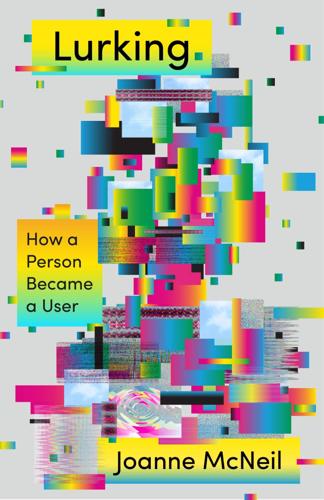
Lurking: How a Person Became a User
by
Joanne McNeil
Published 25 Feb 2020
Conference stipends only go so far, and meanwhile he was responsible for a website that made advertisers wary—4chan was just about impossible to monetize. Given his spotlight, compounded with decisions as a leader to comply with DMCA requests and turn over IP addresses to authorities, Poole lost the confidence of the 4chan community. Users were further incensed when he banned Gamergate content. Finally, in 2015, Poole gave up on the project and sold 4chan to the founder of 2channel, the Japanese site that it was based on. By 2016, he was working for Google. Anonymity was a smoke screen. Hostility to sincerity was 4chan’s through line. This proved to be a natural stance for bigots, which is how it became an alt-right breeding ground.
…
The 4chan response to Interior Semiotics revealed the collective 4chan mind-set: they believed in one identity online, like the flip side to Mark Zuckerberg’s famous musing that “having two identities for yourself is an example of a lack of integrity.” The video posted to the internet was not theirs; it wasn’t created for their consumption, but to 4chan users, as content on the internet, it was on their turf. The 4chan community reacted to Interior Semiotics as a gentrification of the internet they perceived as theirs and theirs alone. While the world has changed in ten years, the 4chan ideology is resilient in its regressiveness.
…
Shafiqah Hudson, l’Nasah Crockett, and several other black women on Twitter launched a counterattack, identifying the impostors using the hashtag #YourSlipIsShowing. They posted screenshots from 4chan, in which the instigators openly discussed their tactics and intentions. Unfortunately, the second goal of 4chan’s attack was successful—in the short term, at least. Sydette Harry, a community researcher who has worked with Mozilla and the Coral Project, noted on Twitter how 4chan seemed to have a “grasp of the tectonics of feminist interaction” better than some would-be allies, as they recognized how black women and other women of color can be ignored or scapegoated in feminist spaces.
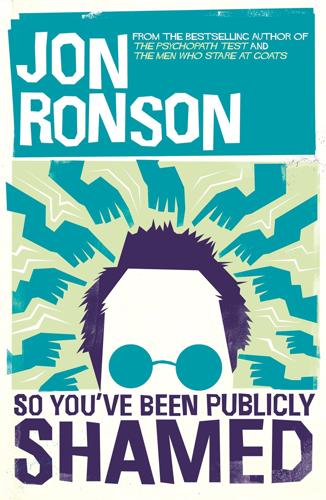
So You've Been Publicly Shamed
by
Jon Ronson
Published 9 Mar 2015
She was also someone whose shaming frenzy was motivated by the desire to do good. She told me about the time 4chan tracked down a boy who had been posting videos of himself on YouTube physically abusing his cat ‘and daring people to stop him’. 4chan users found him ‘and let the entire town know he was a sociopath. Ha ha! And the cat was taken away from him and adopted.’ (Of course the boy might have been a sociopath. But Mercedes and the other 4chan people had no evidence of that - no idea what might or might not have been happening in his home life to turn him that way.) I asked Mercedes what sorts of people gathered on 4chan. ‘A lot of them are bored, under-stimulated, over-persecuted powerless kids,’ she replied.
…
* A few days before I flew to San Francisco to meet Adria, I posted a message on 4chan/b/ asking for anyone personally involved in her destruction to contact me. The message was deleted in less than a minute. I posted another request. That one vanished after a few seconds. Somebody inside 4chan was silently erasing me whenever I tried to make contact. But my messages happened to coincide with arrests of some hardcore 4chan trolls and DDoSers and activists, and so suddenly there were real names out there. Which was how I came to meet a twenty-one-year-old 4chan denizen, Mercedes Haefer. In her Facebook photograph Mercedes wears a comedy moustache and bunny ears. Now we sat opposite each other in a vast, opulent loft apartment above an old grocery store in the Lower East Side of Manhattan.
…
Nobody had used the language of sexual violence against Jonah, but when Justine and Adria stepped out of line the rape threats were instant. And the 4chan people were about the most unpleasant. ‘Yeah, it’s a bit extreme,’ Mercedes replied. ‘4chan takes the worst thing it can imagine that person going through, and shouts for that to happen. I don’t think it was a threat that anyone intended to carry through. And I think a lot of its use really did mean “destroy” rather than sexually assault.’ She paused. ‘But 4chan aims to degrade the target, right? And one of the highest degradations for women in our culture is rape. We don’t talk about rape of men, so I think it doesn’t occur to most people as a male degradation.

Collaborative Society
by
Dariusz Jemielniak
and
Aleksandra Przegalinska
Published 18 Feb 2020
A number of major social actions started on 4chan via successful DDoS (distributed denial of service) attacks on the websites of two anti-piracy organizations, the Motion Picture Association of America and the Recording Industry Association of America. And 4chan circulated as well the rumor that Steve Jobs had a heart attack, which led Apple’s stock price to drop significantly in 2008. A hacktivist group that we discuss in chapter 5, the Anonymous, also originated on 4chan. More recently, 4chan has experienced sharper right-wing and alt-right turns, even though its uncompromised critique of social norms has been present in its culture since the beginning, and its users often express disgust for “normies” (mainstream people).46 Because of and in spite of all these activities, the 4chan site, organized as an imageboard and operating like a standard forum, ranks roughly in the top 200 websites in the world, attracting more than 20 million unique visitors monthly, with daily posts numbering in the hundreds of thousands.
…
It shows how viral memes on platforms such as Facebook, Tumblr, 9GAG, or even in reviews posted on Amazon.com, can facilitate new ways of expressing political agency and feminist cultural critique.45 The Meme Political The English-language community known by many as the cradle of memes, trolling, and alterculture is 4chan. Its members enjoy dark and morbid humor, weird porn, and practical jokes. (One such “joke” involved persuading quite a few iPhone owners that microwaving their phones was a viable method for charging them.) The 4chan site gained notoriety for posting a large number of leaked, nude celebrity photos back in 2014. It popularized memes such as lolcats and pedobear (yes, a cartoon bear used to mock human predators with a sexual interest in children). A number of major social actions started on 4chan via successful DDoS (distributed denial of service) attacks on the websites of two anti-piracy organizations, the Motion Picture Association of America and the Recording Industry Association of America.
…
More recently, 4chan has experienced sharper right-wing and alt-right turns, even though its uncompromised critique of social norms has been present in its culture since the beginning, and its users often express disgust for “normies” (mainstream people).46 Because of and in spite of all these activities, the 4chan site, organized as an imageboard and operating like a standard forum, ranks roughly in the top 200 websites in the world, attracting more than 20 million unique visitors monthly, with daily posts numbering in the hundreds of thousands. It does not permit registration under a user name, so many 4chan users post anonymously; 4chan deletes posts after several days, a practice that’s unusual for a forum. The site has a tremendous external impact given its strong countercultural ethos. Many see 4chan as a collaborative reinforcement of a playful cultural expression of post-irony, politically incorrect jokes, and online anarchism. It is a fascinating example of a community able to establish a strong identity with associated norms despite nearly complete anonymity and ephemerality.47 Other communities also rely on online collective media sharing, often with a more resounding impact in the world.
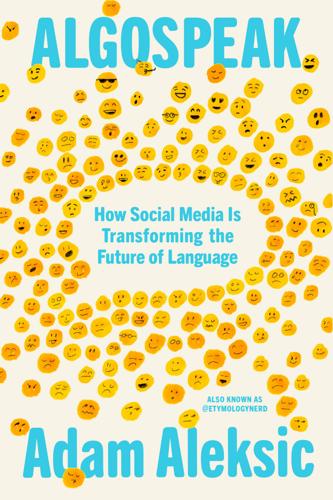
Algospeak: How Social Media Is Transforming the Future of Language
by
Adam Aleksic
Published 15 Jul 2025
The reason we have so many words from incels is that they had an imperative to come up with new language for their common experiences, just as 4chan at large provided us with the terms “shitpost,” “seggs,” and “rickroll” because they had their own community with a need to invent slang. In meme circles, it’s a common aphorism that “all internet culture is downstream of 4chan,” and evidence suggests this is at least partially true. In 2018, researchers at University College London used a technique called pHashing to trace where visually similar online images come from, and they found that a plurality of internet memes come from political forums on 4chan and Reddit.[*2] They theorized that these communities are so prolific at disseminating ideas because they intentionally weaponize memes as a form of “attention hacking,” mixing funny templates with certain messages to further their ideologies.[6] If this is the case, then it’s not that surprising that incel words have become so widespread.
…
In the early twenty-first century, that initial “incel” community then dispersed to several other websites. These were more male dominated and less moderated, meaning that increasingly misogynistic discussion was able to take root. The largest of these forums, 4chan, doubled as a gathering place for right-wing extremists, whose ideas began to fuse with those of the incels. This is when the modern blackpill philosophy began in earnest. Notably, 4chan didn’t have any user accounts. Every poster was anonymous, meaning that the only way to differentiate yourself as an experienced user was to demonstrate a performative proficiency in shared slang. This unique pressure to show a sense of in-group belonging ended up giving us numerous foundational internet words, such as “troll,” “dank,” “shitpost,” and “rickroll.”
…
Because they had wide applicability, they eventually spread beyond the site. In the same way, most of the highly specific incel vocabulary was built up by 4chan extremists to match their burgeoning ideology. Words like “mogging,” “cucked,” and “maxxing” became metalinguistic indicators that the anonymous poster was truly a blackpilled member of the community and not some random outsider. You needed to demonstrate a certain level of prerequisite knowledge to truly fit in. Beyond the technological catalyst of 4chan’s user interface, incels have long faced a self-imposed social need to adopt new slang to prove their status. Those within the community fight a constant battle to prove their “purity” as incels and avoid being labeled as “fakecels” or “volcels” (voluntary celibates).

Going Dark: The Secret Social Lives of Extremists
by
Julia Ebner
Published 20 Feb 2020
While this seemed like a ridiculous idea back then, memetic warfare has in the meantime become a common tool to influence attitudes and behaviours and to win the competition over narrative and social control in online battlefields – for state and non-state actors.27 In the 2016 US election campaigns Trump supporters weaponised internet culture for political propaganda to sway the election.28 They launched several meme campaigns against political opponents with the goal of influencing public perceptions of truth and power. 4chan called this ‘The Great Meme War’.29 The legendary #MAGA (Make America Great Again) hashtag sprang from the same communities. The Stanford graduate Jeff Giesea who got ‘bored being nice to people all the time’ and saw ‘Trumpism as the only practical and moral path to save Western civilization from itself’ organised MAGA meet-ups and effectively helped to create an army of pro-Trump meme trolls.30 A 2018 analysis of 160 million archived visuals showed that far-right trolls on the internet were highly effective in spreading racist and anti-Semitic memes from fringe forums like 4chan’s /pol/ board and the subreddit /The_Donald to more mainstream platforms.31 Socio-demographic research showed that men were 1.76 times more likely than women to produce and spread hateful content online.32 Another study concluded that men have a higher tendency to engage in antisocial Facebook activities like trolling due to elevated levels of narcissism.33 Women, on the other hand, are more likely to become victims of online hate.
…
Some anons also get annoyed by hived-off conspiracy theories:31 Just to shut the Flat Earthers up, Q. Is the earth flat? No. Q. Is JFK Jr alive? No. Q. The success of QAnon is baffling. QAnon mutated from conspiracy theory on the fringes of 4chan and 8chan into a mass movement that has conquered mainstream social media channels as well as pro-Trump rallies. In 2018 alone, ISD’s social media monitors identified close to 30 million uses of the word ‘QAnon’ across Twitter, YouTube and other blogs and forums such as Reddit and 4chan. On YouTube, QAnon videos often attract hundreds of thousands of views, and self-described bakers are in the tens of thousands, with offshoots in almost every part of America and Europe.
…
reload=9&v=nP5xZQaYgas&feature=youtu.be 24The manual is available at https://www.hogesatzbau.de/wp-content/uploads/2018/01/HANDBUCH-FÜR-MEDIENGUERILLAS.pdf. 25The original ‘redpilling’ manual was available at http://d-gen.de/2017/10/art-of-redpilling/; all contents were saved by Hogesatzbau and can be accessed at https://www.hogesatzbau.de/wp-content/uploads/2018/01/HANDBUCH-FÜR-MEDIENGUERILLAS.pdf. 26Nagle, Kill All Normies: Online Culture Wars from 4chan and Tumblr to Trump and the Alt-Right. 27Jeff Giesea, ‘It’s time to embrace memetic warfare’, Defense Strategic Communications Journal, NATO Stratcom COE, 2017. Available at https://www.stratcomcoe.org/jeff-giesea-its-time-embrace-memetic-warfare. 28Benite Heiskanen, ‘Meme-ing Electorial Participation’, European Journal of American Studies 12 (2), Summer 2017. Available at https://journals.openedition.org/ejas/12158. 29Jack Phillips, ‘“Great Meme War” Could Hit the Media’, Epoch Times, 11 November 2016. Available at https://www.theepochtimes.com/4chan-reddits-the_donald-may-take-great-meme-war-to-the-media_2184823.html. 30Joseph Bernstein, ‘This Man Helped to Build the Trump Meme Army – Now He Wants to Reform It’, BuzzFeed, 18 January 2017.
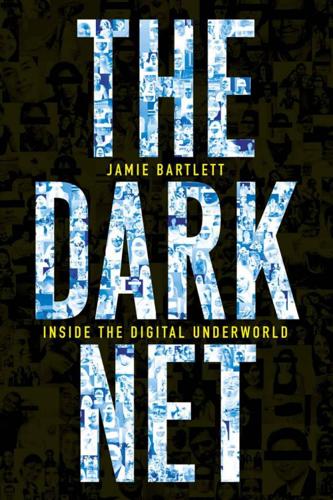
The Dark Net
by
Jamie Bartlett
Published 20 Aug 2014
But the instantaneous connect-ivity of life online has certainly enabled us to do so more easily, and to a wider audience. The website 4chan’s socialising board /soc/ is a space specifically for cam-models, meet-up groups and extremely popular ‘rate-me’ threads. It’s a sort of ground zero of exhibitionism. A rate-me thread is exactly what it sounds like. Every few minutes on one of the hundreds of threads on 4chan, someone posts a photo (often naked), accompanied by a message inviting feedback. Viewers respond – sometimes positively, sometimes not, and almost always with a score out of ten. Penis rate-me threads are especially popular on 4chan, and have several subgenres: small penis threads, large penis threads, skinny penis threads.
…
READ the small placard that Sarah held to her semi-naked body. ‘7 August 2013, 9.35 p.m.’ It was an announcement to the hundreds – thousands, perhaps – of anonymous users logged on to the infamous ‘/b/’ board on the image-sharing website 4chan that she was ready to ‘cam’. Appreciative viewers began posting various sexually explicit requests, which Sarah performed, photographed and uploaded. On 4chan, there are boards dedicated to a variety of subjects, including manga, DIY, cooking, politics and literature. But the majority of the twenty million people who visit the site each month head for /b/, otherwise known as the ‘random’ board.
…
Encyclopedia Dramatica – an offensive Wikipedia for trolling culture – lists camgirls as ‘camwhores’, and describes a camwhore as ‘a variety of attention whore, typically a young and very stupid woman who will do anything on a webcam for attention, money, items from online wish lists, or just to be generally slutty’. On 4chan and elsewhere there are several infamous camgirls. Professional camgirls are discussed in chapter 6. It’s impossible to be sure how many people are ever on 4chan because the number of people viewing a page is not recorded. p.15 ‘The hacktivist group Anonymous? . . .’ Users of /b/ also act responsibly, and have, in the past, worked to identify users who they believe pose a genuine threat.
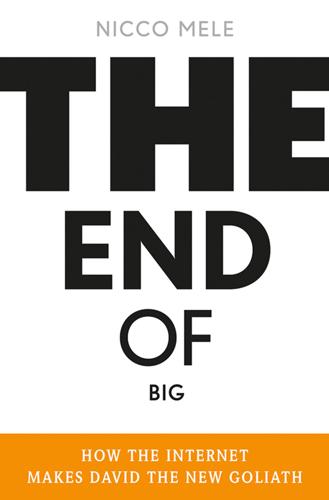
The End of Big: How the Internet Makes David the New Goliath
by
Nicco Mele
Published 14 Apr 2013
What started as an effort to foil Scientology’s efforts mushroomed into a much larger effort, including a massive attack on the Scientology Web site. Administrators of 4chan.org started policing their forums more tightly, so a group of 4chan-ers broke off and created a splinter group called Anonymous to continue the crusade against Scientology. Anonymous takes its name from a crucial part of the 4chan.org culture: Everything is temporary and anonymous. There are no archives, no ability to search the site. In contrast to Facebook, which demands that your online identity be synonymous with your real-life identity, 4chan.org encourages anonymity. Scientology remains an ongoing Anonymous target, with regular protests organized in front of Scientology offices worldwide.
…
Understanding Anonymous is an important part of understanding where we’re heading in the End of Big. Anonymous grew out of an online community called 4chan, a Web site founded in 2003 by a fifteen-year-old named Christopher Poole interested in anime and (not surprisingly for a fifteen-year-old boy) porn. At first, 4chan was a place to post pictures, but it has evolved into a place where anyone can come and talk about or share anything. At any given moment, hundreds of thousands of people will be on 4chan.org at once. It’s an online home to millions of people and the birthing ground for many an Internet meme, including Lolcats, “probably the Internet’s top meme—the hundreds of thousands of pictures of cats that float around every corner of the Net, with cat-speak captions: ‘om nom nom goes the hungry cat.’”
…
It’s an online home to millions of people and the birthing ground for many an Internet meme, including Lolcats, “probably the Internet’s top meme—the hundreds of thousands of pictures of cats that float around every corner of the Net, with cat-speak captions: ‘om nom nom goes the hungry cat.’” Other noteworthy 4chan accomplishments include lodging a swastika on Google’s list of breaking trends and spreading a “rumor that Steve Jobs had a heart attack,” causing Apple shares to plummet.43 In 2008, as 4chan.org was approaching its fifth birthday, it began to develop something of a political consciousness. An internal Scientology video featuring Tom Cruise was leaked, and when the Church of Scientology took legal action against many online communities to suppress the video, the 4chan.org community fought back. What started as an effort to foil Scientology’s efforts mushroomed into a much larger effort, including a massive attack on the Scientology Web site.

My Glorious Defeats: Hacktivist, Narcissist, Anonymous: A Memoir
by
Barrett Brown
Published 8 Jul 2024
Littered across Encyclopedia Dramatica’s esoteric maze of high-concept novelty were references to something called /b/, a vague designation that tended to come up in the most confusing contexts and from which many of the most amusing memes seemed to derive. It was, apparently, an “image board,” akin to message boards but emphasizing the posting of pictures; and it was only one of many such boards located at a site called 4chan.org. For reasons unclear to me, /b/ stood for “random.” I have noted above how the concept of Anonymous grew out of the simple mechanism whereby a post on 4chan would default to the username “Anonymous” unless the poster entered a screen name, which almost no one did. As a result, a typical message thread on /b/ in particular looked at first glance to consist of a single person having a conversation with himself.
…
As is so often the case with budding religions, there are always those who seek to codify well past the point of certainty; also akin to religions, the rules were reinterpreted as desired by the literalists themselves, some of whom decided that /b/ also meant Anonymous, and that one must thus never speak about Anonymous (except on 4chan and associated internet relay chat networks and anywhere else that these rabbinical sorts deemed to be constituting hallowed digital grounds). But Anonymous had expanded beyond /b/, and beyond 4chan. Other “chan” sites proliferated, each with a different emphasis and character. And after Moot banned raids, those with a taste for such things increasingly congregated at 7chan; that site’s /i/nsurgency board became the chief organizing venue for the mass visits to the youth-targeted virtual hangout Habbo Hotel, for instance, where Anons donned avatars of Black men with Afros and three-piece suits and blocked the entrances to the community’s pool, claiming that it was closed due to contamination by AIDS.
…
Because Gregg doesn’t smoke, drink, do drugs, or play organized sports or video games, and could no longer engage in the explicit criminal activity that had formerly made up his chief recreation, he needed something that could scratch a similar itch without guaranteeing a return to prison. Luckily, he found 4chan. The raids on Habbo Hotel and similar “/b/tard” outings were certainly amusing, but didn’t quite reach the level of employing Sprint’s own infrastructure to give away Microsoft’s flagship product. But soon came the war on Hal Turner, and with it, expanded horizons; when the Tom Cruise incident went down some months afterward, there were many who could be convinced that the church, though vastly more powerful than anything Anon had gone up against before, was nonetheless now within its reach. By this time, the center of gravity had moved from 4chan itself to a handful of IRC servers, including one called partyvan.org, where Housh was a regular.
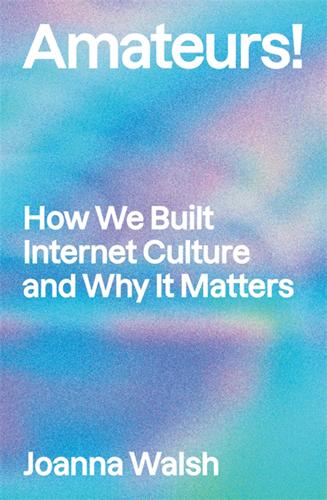
Amateurs!: How We Built Internet Culture and Why It Matters
by
Joanna Walsh
Published 22 Sep 2025
If meming uses aesthetics to grow a community, the community, as much as the image produced, is the work. 30But the LOLcats community did not start with Cheezburger. The origin of LOLcats as an amateur and spontaneous practice is claimed by 4chan’s Caturday, which began in in 2005. Christopher Poole, a.k.a. moot, 4chan’s founder, speaking at the Paraflows Urban Hacking Festival in Vienna, 2009, explained that 4chan’s success as a ‘Meme Factory’ (note the workplace metaphor) was down to the fact that ‘the site has no memory’. Users are anon. Instead of registering, they can self-authenticate via tripcodes, or they can simply post without identification, and many do, rendering ‘Anonymous’ not a single person but a collective.
…
Of the Cheezburger creators, Unebasami remained anonymous for longest, posting under the name Tofuburger until April 2008, after threats from 4chan members who considered LOLcats their exclusive creation. Unebasami is a woman, and 4chan was already well known for misogynist hate campaigns, the most notorious being the subsequent 2014–15 #gamergate, which targeted women in the games industry with rape and murder threats, during which haters were protected by their anonymity. In 2009, Huh admitted: ‘The origin of LOLcats came from an Internet forum called 4chan, which is a NSFW [not safe for work] place. And these images over the year had made it to other forums around the Internet.
…
The anonymity of meming is the opposite of what took place in the art world of the twentieth century, in which the author, artist or auteur despite, or perhaps because of, an increased acceptance of the use of anonymous/found material, became the locus of a work’s critical and financial value. When the author of a meme is also the critic – not only as rater but as creative respondent, taking the meme and running with it – what happens to the value of aesthetic judgement, and the work’s corresponding financial value? 31On July 30 2014, an Anon posted on 4chan’s /pol/ (politically incorrect) board: Art used to be something to cherish Now literally anything could be art This post is art. The post was photographed and framed by another user who posted the photo as a reply. The original post was sold on eBay for $90,900.6 The post was noticed retrospectively because of its auction value: no surprise, art often is.
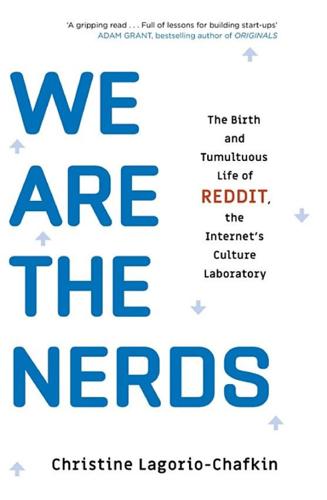
We Are the Nerds: The Birth and Tumultuous Life of Reddit, the Internet's Culture Laboratory
by
Christine Lagorio-Chafkin
Published 1 Oct 2018
Brigading is the invasion of a topic, thread, or entire message board by a group of individuals who have organized themselves online with the purpose of manipulating content or its visibility. This sort of plotting happens in massive private-message threads on Twitter, in Facebook groups, on private chat servers such as Discord, and, very overtly, on 4chan’s /pol, a “politically incorrect” board that had been created by 4chan’s founder in 2011 to siphon off and contain the overtly xenophobic and racist comments and memes from other wings of 4chan. This mostly off-Reddit organizing then plays out on Reddit as vote brigading, or attempting to silence individual voices by downvoting them into oblivion. Other products were meme generation and dissemination, harassment campaigns, and propagation of disinformation, largely aiming to disseminate far-right viewpoints.
…
Early on, an influx of brigaders came from 4chan’s /pol board, and its Reddit counterpart, r/pol. There was more crossover of /pol users to Reddit after 4chan was abandoned by its creator, Chris Poole, in January 2015, after he’d lost any semblance of ability to control the sprawling, vile communities it harbored. Over the following year, Reddit’s political boards, most prominently r/The_Donald, experienced a substantial influx of traffic from former channers. They brought with them some of what became The_Donald’s signature vernacular, as well as meme-proficiency and lots of keks, which is 4chan slang for laughs and possibly a reference to the frog, sometimes Pepe the Frog, an image that thanks to memetic strategizing on 4chan and 8chan had been infused with anti-Semitic meaning and that the Anti-Defamation League subsequently declared a hate symbol.
…
Buried deep beyond the front page, forums glorified gore, white supremacy, anarchy, fat shaming, porn, and, most disturbingly—at least in the eyes of the law—content that looked a lot like, and sometimes was, child pornography, including illustrations of sexualized children and photos of barely clothed teenagers. Some of this content was sucked from or mimicked the sort of stuff shared on 4chan, the popular anonymous message-board site. 4chan’s primary differentiation from Reddit was that it stripped away even any modicum of identity; there were no usernames at all and each commenter appeared as “anonymous.” It had been launched in 2003 by a smart, scrawny New York teenager named Chris Poole in his parents’ basement as a way to share Japanese animation images, but by the early 2010s was known as a haven for trolls and niche, sometimes noxious content of all sorts.
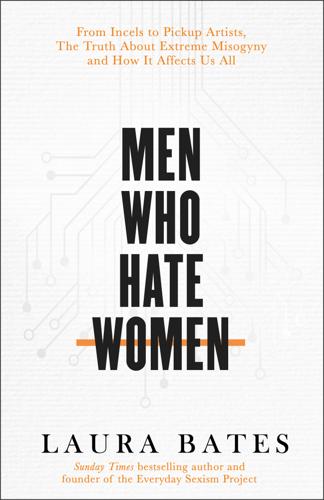
Men Who Hate Women: From Incels to Pickup Artists, the Truth About Extreme Misogyny and How It Affects Us All
by
Laura Bates
Published 2 Sep 2020
But the reality, as with all the manosphere groups I have investigated, is that these are massive communities and internet spaces, populated by hundreds of thousands of people. When you visit the 4chan /b/ board, for example, widely acknowledged as one of the most infamous trolling platforms on the internet, posts flood in faster than you are able to read them. When I visit on an average Monday morning at 9.30 a.m., hundreds of pages of new messages, photographs and links are added within the space of hours – a significant number of them showcasing extreme misogyny. In a hint at the sheer size of this community, /b/ is 4chan’s single most popular and visited board, accounting for 30 per cent of the site’s total traffic, according to an interview with its founder.14 The site claims to have almost 28 million unique monthly visitors and around a million new posts every single day.
…
Like the manosphere, the alt-right represents the coalescence of a number of different groups that were, until recently, considered extreme, fringe movements, but have, to an extent, been combined under the umbrella of the label. Like the manosphere, the movement brings together various communities, many of which originated online. The term ‘alt-right’ was popularised on internet message boards and forums like 4chan, an English-language image-board website on which users post usually anonymous messages, contributing to long, detailed conversations. Like the manosphere, the alt-right revels in masking vitriolic, violent, bigoted ideology with smokescreens of ‘irony’, sarcasm and deliberate provocation. The Southern Poverty Law Center describes how ‘chaotic’ online forums have enabled white-nationalist ideas, ‘most notably the belief that white identity is under attack by multiculturalism and political correctness’, to ‘flourish under dizzying layers of toxic irony’.
…
On a YouTube video about Rodger’s manifesto, Cruz had commented: ‘Elliot Rodger will not be forgotten.’17 It would later emerge that Cruz had reportedly stalked a young woman at the school.18 He was also said to have repeatedly threatened and harassed an ex-girlfriend after she broke up with him.19 On 23 April 2018, 25-year-old software developer Alek Minassian drove a speeding rental van through the North York City Centre district of Toronto, Canada, deliberately targeting pedestrians. He killed ten people and injured sixteen. A post was uploaded to a Facebook account, later confirmed as Minassian’s, shortly before the attack. It read: ‘Private (Recruit) Minassian Infantry 00010, wishing to speak to Sgt 4chan please. C23249161. The Incel Rebellion has already begun! We will overthrow all the Chads and Stacys! All hail the Supreme Gentleman Elliot Rodger!’ The majority of Minassian’s victims were female, with eight women and two men killed in the attack. Police later released a video of Minassian’s post-arrest interview in which he focused specifically on being an incel, saying he had been radicalised online and had acted in the name of the ideology as a form of retribution.
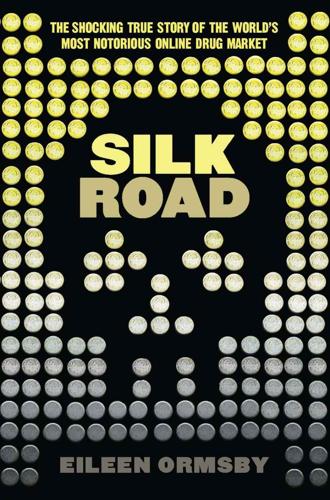
Silk Road
by
Eileen Ormsby
Published 1 Nov 2014
The early evidence pointed to Silk Road testing the waters earlier on 4chan, an anonymous discussion group favoured by hackers and ‘carders’ (people who steal and use credit-card information for personal gain). Based on similar Japanese communities involved in manga and anime, 4chan is home to various subcultures and online activists, with users attracted by its anonymity and lack of censorship on posted content. It has been credited with being the genesis of hacktivist collective Anonymous. ‘I first saw Silk Road . . . on 4chan in December 2010,’ said Silk Road’s first-ever moderator, ‘Nomad Bloodbath’.
…
[C]yber criminals will treat bitcoin as another payment option alongside more traditional and established virtual currencies . . . – ‘Bitcoin virtual currency: Unique features present distinct challenges for deterring illicit activity’, FBI report, April 2012 Part Two The Rise So you can download drugs from a server run on onions? You guys are full of shit. – Anonymous 4chan member The New Silk Road During the first half of 2011, as its owner tinkered with the interface and relied on the Bitcointalk forum and word of mouth for advertising, Silk Road was a fraction of the size it would eventually become. The earliest known screenshot of Silk Road showed 145 transactions to date, 60 current listings, mostly of drugs, and 655 registered users.
…
‘Also, I think weapons should be sold (as long as they aren’t weapons of mass destruction and stuff like napalm and agent orange). Things like pistols, knifes and such I’d like to see.’ Rumours of the website where illicit substances could be purchased spread to the online communities that would take a much greater interest in a black market for drugs – Reddit in particular. Like 4chan, Reddit is essentially a bulletin board where people can chat about anything and everything. Dubbing itself as ‘the front page of the internet’, it provides an online meeting place for every conceivable profession and hobby. Users can subscribe to ‘sub-Reddits’ dedicated to cute cat pictures or those discussing politics, cycling, Disney cartoons, lock-picking techniques or problems faced by the transgender community.
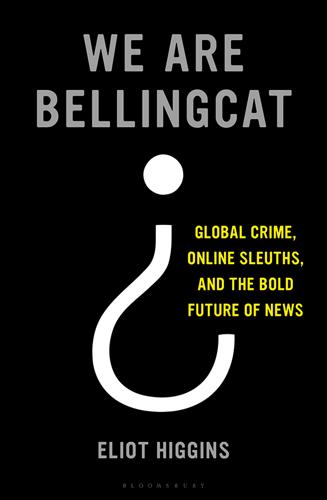
We Are Bellingcat: Global Crime, Online Sleuths, and the Bold Future of News
by
Eliot Higgins
Published 2 Mar 2021
Back when I frequented the message boards of Something Awful, young men were already devoting hours to photoshopping stock images with captions and producing comical GIF video loops, intended to amuse their peers. A more extreme forum, 4chan, took shape, and meme-making transferred there, sharpened according to its spirit of adolescent cruelty. A faction on 4chan – especially the Politically Incorrect board, known by its abbreviation /pol/ – applied meme skills to promoting the presidential candidacy of Trump in 2016, a project they dubbed ‘The Great Meme War’. Many started out considering their efforts as just a troll joke on the public, yet some became seduced by the effect they were having.
…
Supporters of the far right speak of ‘taking the red pill’ to mean abandoning socially acceptable views, even buying into the narrative that Jews are conspiring to bring about white genocide, described in these circles as ‘the Jewish Question’ or ‘JQ’.57 A typical progression was from interest in Trump, to engagement in The Great Meme War, to 4chan, to neo-fascism. One person in the Discord chats said that he had formerly been a male feminist, and used to dismiss Trump as a racist, but had wanted to understand the candidate for himself, after which he judged that the Republican leader was not actually a racist and had good ideas. He proceeded to ‘The_Donald’ forum on Reddit for the memes produced there, began actively supporting Trump, grew tired of the subreddit, visited 4chan’s /pol/ board a month before the election, found the Nazi memes silly but amusing, began using some of their ‘ironic’ white-supremacist language, and finally came to believe there might be truth in those memes, that there truly was an anti-white agenda.
…
The most successful memes landed on Facebook, viewed by a mass audience.55 As with the growth of the Counterfactual Community, bad ideas found company online and intensified there. One difference is that the ordinary citizens who blindly defend Assad or Putin tend to think they are doing good in the world, while ‘channers’ are rarely concerned with global issues. A form of ironic nihilism prevails on 4chan, underpinned by the idea that life is ugly and pointless. If you take any matter seriously, you become the butt of the joke – even if someone is threatening to shoot you in the face. Robert went trawling through leaked posts from a gamers’ chat app, Discord, that had been infiltrated by neo-fascists.
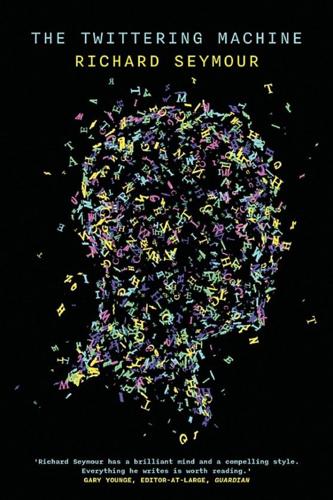
The Twittering Machine
by
Richard Seymour
Published 20 Aug 2019
That their cackling, sadistic, relishing of hellfire was overtly linked to a sexually repressive morality might suggest something about the origins of Duffy’s nastiness towards dead teenage girls. Nor was Duffy’s an isolated case.4 One of the first major exercises in RIP trolling, without any overt moral rationale, occurred in 2006. Trolls from the 4chan message board descended on a MySpace page memorializing the twelve-year-old Mitchell Henderson, who had committed suicide. It emerged that he had lost his iPod days before his death, and trolls posted messages implying that his suicide was a frivolous act driven by consumerist frustration: ‘first-world problems’.
…
Trolling is popular entertainment, even if it sometimes runs afoul of barely legible cultural thresholds. The bafflement and ungovernable rages of the victim are always funny, and there is always sadistic detachment in the humour. When internet users are ‘rickrolled’iii the reactions are often funny. When 4chan trolls called video game stores to enquire about the non-existent sequel to an outdated game, the explosions of exasperated fury were funny. When a hapless internet troll went on Fox News representing the bogus group Forsake the Troops, Sean Hannity’s credulous outrage was funny. Most people, at some time or other, have been trolls.
…
An early guide to flaming (the practice of saying things to make other users upset) on the Arpanet ‘Bulletin Board System’ contended that it was the only way that ‘people will read your opinions’, since a net-wide flame war is impossible to ignore.17 Yet, over the years, especially once the internet was commercialized, trolls became attention-shy. They form a community of sadists, but only on the condition that it consists of people with no identifying characteristics: from ‘anons’ to sock puppets. Trolling anonymity has its roots in the way the 4chan message board, on which the trolling subculture germinated, was set up. Founder Christopher Poole ensured that each user would have a default identity of ‘anon’ because, as he told Rolling Stone, it ‘enables people to share things they wouldn’t otherwise do’.18 And it was on the site’s ‘/b/’ message board that the trolls, calling themselves ‘/b/tards’, gathered.
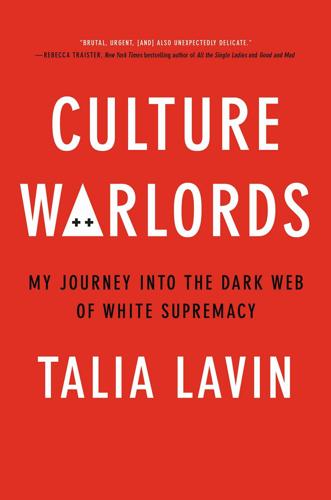
Culture Warlords: My Journey Into the Dark Web of White Supremacy
by
Talia Lavin
Published 14 Jul 2020
Chapter 3 Boots on for the Boogaloo In the summer of 2019, white supremacists felt constrained by widely publicized—if in practice halfhearted—attempts to curb the spread of racist and conspiratorial rhetoric on mainstream social-media sites like Twitter, Facebook, and YouTube. While white-supremacist foot soldiers continued to maintain a robust presence on mainstream social media, they also began to seek alternatives. They started casting doubt on long-established hubs, like the anonymous message boards 4chan and 8chan. The chatting app Discord—popular among video-game enthusiasts—had previously served as a key hub for far-right discussion online, including much of the planning of the fatal “Unite the Right” white-supremacist rally in Charlottesville, Virginia, in August 2017. But a mere two days after the attack in which Heather Heyer died and dozens more were severely injured, an antifascist media organization called “Unicorn Riot” began to release an enormous cache of Discord chats between members of the far right.
…
Black feminists were among the first to sound the warning bells against coordinated racist harassment online. Organized around the hashtag #YourSlipIsShowing, Shafiqah Hudson, I’Nasah Crockett, Mikki Kendall, Jamilah Lemieux, and others documented and exposed efforts by racists galvanized on the anonymous message board 4chan to pose—clumsily—as black men and women, in order to discredit black feminist discourse. As Hudson told Slate journalist Rachelle Hampton: “Nobody wants to be right about how much real peril we’re all in, even if you saw it coming.” In other cases, racist spaces, such as the neo-Nazi site Daily Stormer and the “Western chauvinist” gang the Proud Boys—pointedly exclude women entirely.
…
Fake Instagram accounts in Bouman’s name and YouTube videos by the score claimed that one of Bouman’s colleagues, Andrew Chael, had done the lion’s share of the work, only to be overshadowed by Bouman due to the rapacity of a feminism-drunk media. Chael himself emerged to rebuke the attack, noting that the software “would never have worked without her contributions” and decrying the “awful and sexist attacks” against her. On the anonymous 4chan, users speculated that Bouman was a Jew—bracketing her name with the triple parentheses that serve as a coded signifier of Jewishness in white supremacist spaces. Her fame, they said, was due to “the jewmedia.” “A woman being made a project manager on something like this almost always means that she was a complete waste of space but they couldn't kick her off the team because vagina,” wrote one user.
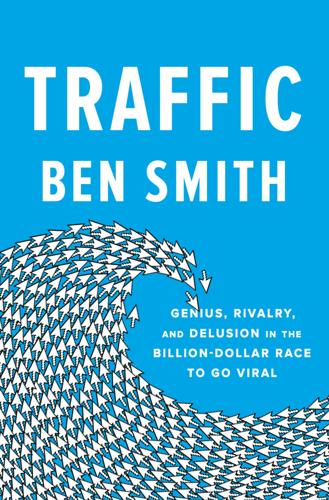
Traffic: Genius, Rivalry, and Delusion in the Billion-Dollar Race to Go Viral
by
Ben Smith
Published 2 May 2023
On June 18, 2010, Peggy returned from touring with her rock band to find a slight, soft-spoken young blond man installed at one of the desks. It was Chris Poole, known online as “moot,” who had founded 4chan in 2003. “Oh man, it’s my first day back at work and MOOT is here!!!” she messaged a friend. This was particularly mortifying because Peggy had once suggested online that Poole was her “internet crush.” But she was also surprised to discover that the founder of 4chan was so sweet and handsome. 4chan was disgusting—teenage-boy disgusting, to be fair—the source of much of the internet’s early meme culture of lolcats and rickrolling, which was 4chan’s own language, but the site was also full of racism and misogyny and sick jokes, which, back then, didn’t put Poole beyond the pale.
…
But she was also surprised to discover that the founder of 4chan was so sweet and handsome. 4chan was disgusting—teenage-boy disgusting, to be fair—the source of much of the internet’s early meme culture of lolcats and rickrolling, which was 4chan’s own language, but the site was also full of racism and misogyny and sick jokes, which, back then, didn’t put Poole beyond the pale. His peers in a mostly white, mostly male scene wrote the racism and sexism off as irony. The kids on 4chan were your little brother who you figured would eventually grow up, the way Poole had, and become a quiet, productive—hot—member of society; they weren’t yet actual Nazis. Jonah knew Chris was running 4chan on the side but was more interested in helping him with his new, grown-up project, which eventually launched as a short-lived platform for remixing images and memes, called Canvas Networks. For the time being, Chris was glad to help out around BuzzFeed.
…
He was proud when the Daily Mail seemed ready to invest. But Jonah was learning to tell a story. One person who was listening was Steve Bannon, a friend of his old partner Andrew Breitbart. Bannon, a banker turned right-wing activist with an interest in the internet, would be inspired by the angry stirrings and unhinged memes of Chris Poole’s 4chan. He had met Andrew back in 2004 and grown close to him, and now Bannon surveyed the left-wing media landscape for things to copy. “I had looked over the shoulders of some of the private-equity guys who had put money into The Huffington Post,” Bannon later told Joshua Green. “The one thing they told me to explain the huge valuation was that it was not a content play but a technology play.
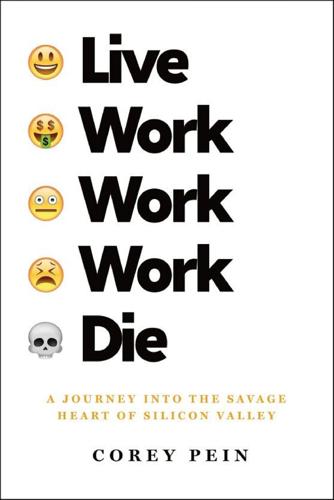
Live Work Work Work Die: A Journey Into the Savage Heart of Silicon Valley
by
Corey Pein
Published 23 Apr 2018
This twisted episode revealed its full horror when a young woman’s bitter ex-boyfriend egged on a campaign of stalking and harassment perpetrated by denizens of the website 4chan, the troll-riddled message board where “normies” fear to tread. This young woman, Zoe Quinn, happened to be an independent video game developer whose recent work was favorably received by critics but—being an introspective departure from the usual shoot-’em-up style of game—was abhorred by the misogynistic gamers of 4chan. The self-described Gamergaters spun a grand conspiratorial narrative concerning “ethics in video games journalism,” claiming that Quinn had “bribed the media into liking her shitty non-game with her vagina.”
…
Soon more would witness and shudder before the thing I had only just glimpsed: the emergence of determined fascist movement builders, taking their online organizing into the real world. Theirs was a vast but slapdash network of alienated, underemployed man-children; tortured, gynophobic gamers; and upwardly mobile, right-curious tech dudes. Emboldened, they crawled from underground online haunts like Stormfront and the 4chan forums into the light of day and, after Trump’s election, to the city square—in Berkeley, Portland, New York, Charlottesville. They waved war flags adorned with strange idols like Pepe the Frog and chanted paeans to Kek, an ancient Egyptian god adopted by internet racists. They fought with students, activists, and anyone else who opposed their white nationalist vision.
…
Even as tech company managers espoused a commitment to liberal principles, and employees evinced a burgeoning curiosity regarding social democratic reforms—like most people of their generation, young techies had student loans—anecdotally, racism, misogyny, and protofascist talking points were more pervasive inside tech companies than elsewhere in corporate America. Google certainly had no qualms about hiring 4chan founder Chris Poole, even though the website he created became the central organizing platform for the alt-right. A year later, another Google employee, James Damore, was fired after news reports revealed that an essay he’d written and shared internally attacking the company’s diversity policies had attracted many aggrieved white male cosigners.
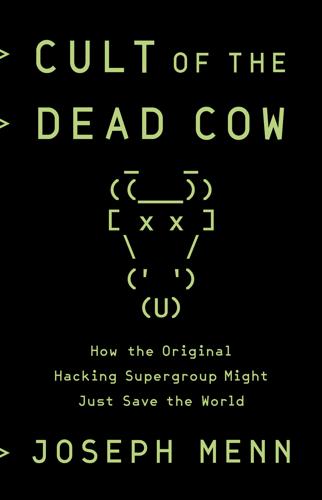
Cult of the Dead Cow: How the Original Hacking Supergroup Might Just Save the World
by
Joseph Menn
Published 3 Jun 2019
One of cDc’s good friends and onetime web hoster, Tom Dell, had written software for Patrick Kroupa’s MindVox and then run Rotten.com, an early shock site that was a forerunner of 4chan. 4chan was mostly teenage boys chatting about pictures, and posts were labeled “Anonymous” by default. But it had flashes of political action when core internet values, such as freedom of speech, were threatened. When the Church of Scientology tried to suppress publication of its secrets, 4chan users coordinated online and real-world protests, and the participants spun off as Anonymous. Subsequent targets included copyright enforcers such as the Motion Picture Association of America.
…
Membership got looser, group founder Sam Anthony said, and “one branch became this awful Gamergate, neo-Nazi and Russian intelligence nexus that is ruining the world.” Organized on 4chan and other sites, Gamergate’s organized trolls went after female gaming journalists with mob attacks on social media before eventually coalescing behind Trump. By 2012, the NSF mostly lived on as a Facebook group. Members posted links to security advisories, breaches in the news, and whatever else they found interesting. Some of the members, though, were 4chan veterans who wanted to provoke, and they resorted to posting racist cartoons and jokes. Several considered it harmless trolling and denied being racist.
…
So Sam cribbed from a sneaker design, wrote a satiric origin story, and made T-shirts. Early members were people the group liked and respected, including Chris Wysopal, Window Snyder, pioneer maker Limor Fried, and early Apple and Netscape engineer Tom Dell, who had written software for Mindvox and quietly ran Rotten.com, forerunner of the shock website 4chan. That year’s Def Con had drawn a then-record three hundred people, and at three hundred pounds, Luke was hard to miss. Oakland hacker Josh Buchbinder, who knew him only online, first spotted him in the flesh on the casino floor, holding a teenager upside down by his ankles and shaking him until the coins fell out of his pocket.
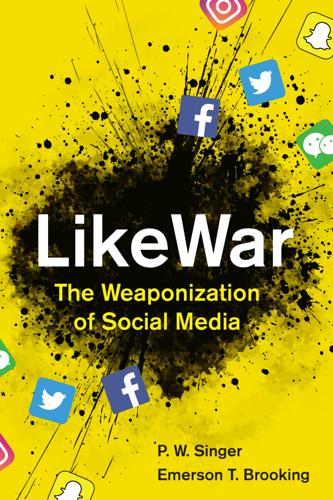
Likewar: The Weaponization of Social Media
by
Peter Warren Singer
and
Emerson T. Brooking
Published 15 Mar 2018
Ullah, Digital World War: Islamists, Extremists, and the Fight for Cyber Supremacy (Yale University Press, 2017). 173 nearly 8 million times: Paul Stollery, “Mentions of ‘Fuck’ Online,” @PaulStollery (blog), Medium, https://medium.com/@PaulStollery/all-of-the-fucks-given-online-in-2016-58c60edd6e44. 173 “Trump ran against”: David Wong [Jason Pargin], “Don’t Panic,” Cracked, November 9, 2016, http://www.cracked.com/blog/dont-panic/. 173 $5 billion worth: Mary Harris, “A Media Post-Mortem on the 2016 Presidential Election,” Media Quant, November 14, 2016, http:///www.mediaquant.net/2016/11/a-media-post-mortem-on-the-2016-presidential-election/. 173 “Trump understands”: Eli Stokols and Josh Dawsey, “Trump’s Twitter Feed Traumatizes Washington,” Politico, January 5, 2017, http://www.politico.com/story/2017/01/trump-twitter-feed-fears-233242. 174 “I think that social media”: Rebecca Morin, “Trump Says Social Media Was Key to Victory,” Politico, November 12, 2016, https://www.politico.com/story/2016/11/donald-trump-social-media-231285. 174 “Poe’s Law”: For a good definition, see “Poe’s Law,” RationalWiki, accessed March 20, 2018, http://rationalwiki.org/wiki/Poe%27s_Law. 174 saw someone like them: Dale Beran, “4chan: The Skeleton Key to the Rise of Trump,” @DaleBeran (blog), Medium, February 14, 2017, https://medium.com/@DaleBeran/4chan-the-skeleton-key-to-the-rise-of-trump-624e7cb798cb. 175 The discussion board /r/The_Donald: “/r/The_Donald metrics,” Reddit Metrics, accessed March 20, 2018, http://redditmetrics.com/r/The_Donald#disqus_thread. 175 Trump aides who: Ben Schreckinger, “World War Meme,” Politico Magazine, March/April 2017, https://www.politico.com/magazine/story/2017/03/memes-4chan-trump-supporters-trolls-internet-214856. 175 pattern that continued: Charlie Warzel, “From Reddit to Trump’s Twitter—in Less Than 24 Hours,” BuzzFeed, March 3, 2017, https://www.buzzfeed.com/charliewarzel/from-reddit-to-trumps-twitter-in-less-than-24-hours?
…
One of four teenage monsters in Furie’s Boy’s Club comic series, Pepe was just a cartoon layabout who spent his days “drinkin’, stinkin’, and never thinkin’.” In 2008, an anonymous 4chan user shared a panel in which Pepe pulled his pants down to his ankles to urinate in a public bathroom, along with his shameless explanation for doing so: “Feels good man.” Pepe’s simplicity and irreverence perfectly captured the spirit of the freewheeling, profane 4chan community. He went viral among internet forum users and—more impressively—surpassed virality to become part of the underlying culture of the internet. When the original meme seemed exhausted, users mined Furie’s comics for more drawings.
…
Murphy, “White Nationalist Richard Spencer Punched During Interview,” CNN, January 21, 2017, https://www.cnn.com/2017/01/20/politics/white-nationalist-richard-spencer-punched/. 189 “Meme War Veteran”: “Meme War Veteran Hat,” Snake Hound Machine, accessed March 20, 2018, http://www.snakehoundmachine.com/product/meme-war-veteran-hat/. 189 far-right militias: Jack Smith IV, “America’s Militia Movement Found Its Next Generation of Soldiers: Teenage 4chan Trolls,” Mic, May 23, 2017, https://mic.com/articles/177106/americas-militia-movement-alt-right-teenage-4chan-trolls-boston-free-speech-rally. 189 peppered with Pepe memes: Claudia Koerner and Cora Lewis, “Here’s What We Know About the Man Accused of Killing a Woman at a White Supremacist Rally,” BuzzFeed, August 12, 2017, https://www.buzzfeed.com/claudiakoerner/what-we-know-about-james-alex-fields-charlottesville-crash?
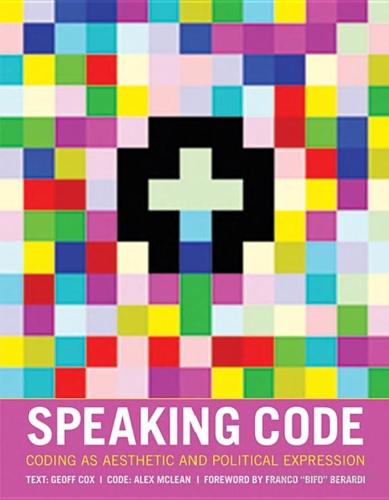
Speaking Code: Coding as Aesthetic and Political Expression
by
Geoff Cox
and
Alex McLean
Published 9 Nov 2012
See Cassell Bryan-Low and Siobhan Gorman, “Inside the Anonymous Army of ‘Hacktivist’ Attackers,” Wall Street Journal, 23 June 2011; available at http://online.wsj.com/article/ SB10001424052702304887904576399871831156018.html#ixzz1QJzHz74Y. 7. Formed in 2003, 4chan is a simple image-based bulletin board where anyone can post comments and share images (see http://www.4chan.org/). 8. See http://en.wikipedia.org/wiki/Anonymous_%28group%29. The documentary Generation OS13: The New Culture of Resistance (2011) charts the attack on civil liberties occurring in western democracies. Available at http://www.youtube.com/watch?
…
It is interesting to note that at the time of writing now (summer and autumn of 2011), the enduring power of social movements and public action has been proved again, as witnessed by the various “pro-democracy” campaigns in North Africa and the Near East (so-called “Arab Spring”), movements opposing state budget cuts to the public sector, protests against the marketization of education, and the political agenda around Internet freedom and the controversies surrounding WikiLeaks.5 An example of the latter is the recent “denial of service” attacks by the loosely organized group of “hacktivists” called Anonymous.6 Emerging from the online message forum 4chan,7 the group coordinated various distributed denial of service (DDoS) attacks using forums and social media websites, where instructions were disseminated on how to download attack software to bombard websites with data to try to throw them offline, and target sites were publicized such as the organizations that had cut ties with WikiLeaks (such as MasterCard, Visa, and PayPal, through “operation payback”).
…
Purification Responding to paradoxes of this kind, the Museum of Ordure is a “self-institution” that has a special interest in the management of human waste and its impact on the concept of the public sphere and civil society.23 Its early policies on preservation included running a server-based script that accelerated the process of decay of its digital objects, resulting in unpredictable and often sudden glitches appearing in the images and captions that constituted its public collection.24 Since the identification of “ordure” (such as rubbish, waste, anything unclean, or shit)25 indicates value judgment, issues related to the social web have further inspired the development of the museum’s website, in taking the detritus of communications and cataloguing it as empty speech acts. A dynamic collection of images and captions is currently produced with feeds from sites like 4chan, mixing diverse contents (from popular trivia such as images of cats to news reports on contemporary protest movements); its Twitter feed @museumofordure, although since suspended, used the hashtag #ordure and retweeted various others (like #revolution and #insurrection).26 Using techniques similar to other cultural institutions’ addressing the issue of public engagement, the museum’s aim is to reveal the excess of capitalist production.27 Its core purpose is further explained, in the About section of the website.28 Inspiration also derives from Dominique Laporte’s History of Shit (first published in French in 1978), which verified modern power to be founded on the aesthetics of the public sphere and in the agency of its citizen-subjects, but that these are conditions of the management of human waste.
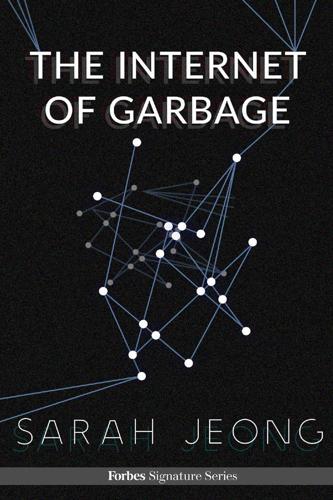
The Internet of Garbage
by
Sarah Jeong
Published 14 Jul 2015
In 2008, Heather Champ, the director of community at Flickr, was quoted as “defending the ‘Flickrness of Flickr,’” while saying, “We don’t need to be the photo-sharing site for all people. We don’t need to take all comers. It’s important to me that Flickr was built on certain principles.” Flickr is not Facebook, Facebook is not Twitter, Twitter is not Reddit, Reddit is not 4chan, 4chan is not a forum to discuss chronic illness and that forum is not a private mailing list. For small and intimate communities, the question of balancing speech and user safety is relatively null. But large-scale platforms are different. Although they are technically private property and not subject to First Amendment speech protections even when their users and servers are based in the U.S., they are beginning to resemble public squares of discussion and debate, the main staging grounds of the kind of speech that connects people to other people and forms the foundation of democracy.
…
Posts that might be neither frightening nor offensive nor off-topic can also be deemed to be garbage. On the SomethingAwful forums, postings that are judged to have little value to the community are referred to by the evocative name, “shitpost.” Even in the most anarchic of spaces, there will be content classified as garbage. On 4chan, a site with a reputation for permitting “anything,” “doxing” (posting addresses or other personal information without permission) and “forum raids” (orchestrating a campaign of vandalism or harassment on another site) are forbidden. On the Silk Road, once a Tor-hidden service that allowed people to buy and sell drugs, listings for guns were forbidden.
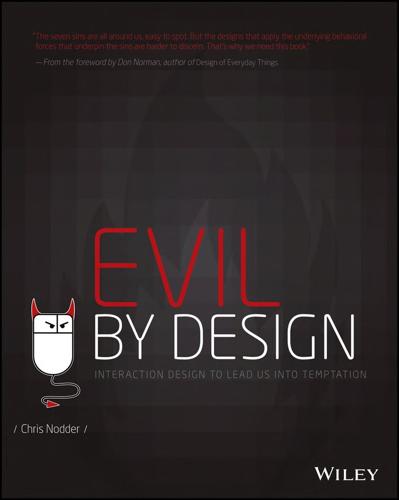
Evil by Design: Interaction Design to Lead Us Into Temptation
by
Chris Nodder
Published 4 Jun 2013
Mary Bale and Lola (youtube.com video) The “outing” was performed by a group who thrives on anonymity—members of the /b/ (random) board of the 4chan community. 4chan is closely linked with Anonymous, the group that is behind many high-visibility online retribution attacks. Although much of the content on /b/ will “melt your brain” according to Gawker.com’s Nick Douglas, /b/ members seem to have a soft spot for cats. They are responsible for the Lolcat meme and had previously interceded to ensure the welfare of Dusty, another cat who was seen being abused in a YouTube video. 4chan and Anonymous found a way to channel the anger of individuals within the community into coordinated action.
…
Mary Bale commented after the event, “I did it as a joke because I thought it would be funny. I think everyone is overreacting a bit.” It is unlikely that she ever expected to be identified. Her expectation of anonymity may indeed have contributed to her actions. It’s probable too that the somewhat inevitable angry backlash against her, both her identification by 4chan members and the subsequent Internet wide condemnation, which included several death threats, was amplified somewhat by the commenters’ ability to remain anonymous. As Bale demonstrated, when the burden of taking responsibility for their actions is removed, people often do things that they otherwise wouldn’t.
…
The Sun (thesun.co.uk). January 12, 2011. Retrieved January 2013; and Claire Ellicott. “What’s all the fuss? It’s just a cat, says woman seen on CCTV shoving tabby in wheelie bin.” The Mail Online (dailymail.co.uk). August 25 2010. Retrieved January 2013. 4-chan description: Nick Douglas. “What The Hell Are 4chan, ED, Something Awful, And /b/?” (Gawker.com). January 18, 2008. Retrieved January 2013. Use anonymity to encourage repressed behaviors Stanford prison experiment: A good introduction is available on the Stanford Prison Experiment site at prisonexp.org. Deindividuation: Philip Zimbardo. “The human choice: Individuation, reason and order vs. deindividuation, impulse and chaos.”
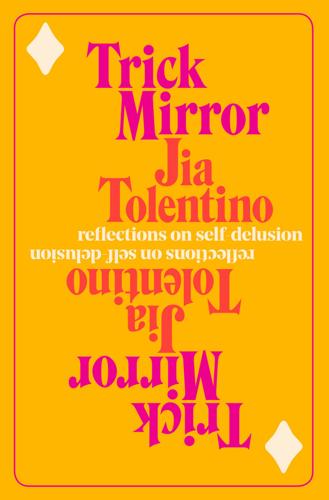
Trick Mirror: Reflections on Self-Delusion
by
Jia Tolentino
Published 5 Aug 2019
The Gamergaters’ worldview was not actually endangered; they just had to believe it was—or to pretend it was, and wait for a purportedly leftist writer to affirm them—in order to lash out and remind everyone what they could do. Many Gamergaters cut their expressive teeth on 4chan, a message board that adopted as one of its mottos the phrase “There are no girls on the internet.” “This rule does not mean what you think it means,” wrote one 4chan poster, who went, as most of them did, by the username Anonymous. “In real life, people like you for being a girl. They want to fuck you, so they pay attention to you and they pretend what you have to say is interesting, or that you are smart or clever.
…
He explained that women could get their unfair social advantage back by posting photos of their tits on the message board: “This is, and should be, degrading for you.” Here was the opposition principle in action. Through identifying the effects of women’s systemic objectification as some sort of vagina-supremacist witchcraft, the men that congregated on 4chan gained an identity, and a useful common enemy. Many of these men had, likely, experienced consequences related to the “liberal intellectual conformity” that is popular feminism: as the sexual marketplace began to equalize, they suddenly found themselves unable to obtain sex by default. Rather than work toward other forms of self-actualization—or attempt to make themselves genuinely desirable, in the same way that women have been socialized to do at great expense and with great sincerity for all time—they established a group identity that centered on anti-woman virulence, on telling women who happened to stumble across 4chan that “the only interesting thing about you is your naked body. tl;dr: tits or GET THE FUCK OUT.”
…
Rather than work toward other forms of self-actualization—or attempt to make themselves genuinely desirable, in the same way that women have been socialized to do at great expense and with great sincerity for all time—they established a group identity that centered on anti-woman virulence, on telling women who happened to stumble across 4chan that “the only interesting thing about you is your naked body. tl;dr: tits or GET THE FUCK OUT.” In the same way that it behooved these trolls to credit women with a maximum of power that they did not actually possess, it sometimes behooved women, on the internet, to do the same when they spoke about trolls.
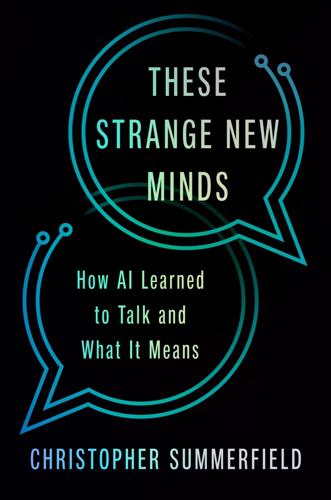
These Strange New Minds: How AI Learned to Talk and What It Means
by
Christopher Summerfield
Published 11 Mar 2025
In fact, on the long drive from North Carolina he had recorded a video explaining his actions to his daughters, who were asleep back home: ‘I can’t let you grow up in a world that’s so corrupt [sic] by evil, without at least standing up for you and for other children just like you.’ Over the previous months, Welch had been spending hours immersed in online forums such as 4chan, a popular hub for disseminating extremist ideology, offensive content, and conspiracy theories. By 2016, political discussion on 4chan was already dominated by the alt-right, a nationalist and white-supremacist movement that rabidly supported Donald Trump in the presidential race taking place that year. Six months earlier, personal emails written by John Podesta – campaign chair for Trump’s Democrat rival Hillary Clinton – had been hacked and posted on WikiLeaks.
…
Immediately after the LLaMA release, savvy far-right extremists had worked out how to fine-tune the model on more than three years’ worth of political discussions from the notorious 4chan board /pol/. They initially released the resulting model on the open-source platform Hugging Face, and predictably, it proved to be exceptionally racist, sexist, and liable to spout vitriol. One user reported their experience: ‘Just put in “hi” as a starter prompt and it started ranting about illegal immigrants and black Americans (using slurs, of course).’ Following online tutorials, users of 4chan worked out how to train the model to behave in ways consistent with harmful and degrading stereotypes, for example by simulating a fictional female African-American character who fetishizes white men, or generating graphic depictions of gore and violence that invoke neo-Nazi symbols.
…
If an LLM is trained on human-generated text that includes negationist discussion of the Holocaust, then without further optimization it will be liable to generate statements that are illegal in countries with Holocaust denial laws. If the training corpus contains overtly racist language or exhortations to violence that occur on unregulated chat forums like 4chan, then LLMs will most likely generate hate speech that is illegal in many countries. Similarly, models are at risk of recreating illegal sexual content, such as that promoting rape, sexual activities involving minors or sex trafficking. Unconstrained AI systems could even be used in ways that threaten national or global security, and endanger large groups of people, for example by revealing how to assemble a bomb or engineer dangerous pathogens that could be used for bioterrorism, or by disclosing information about private individuals who may be targets for criminal activities.
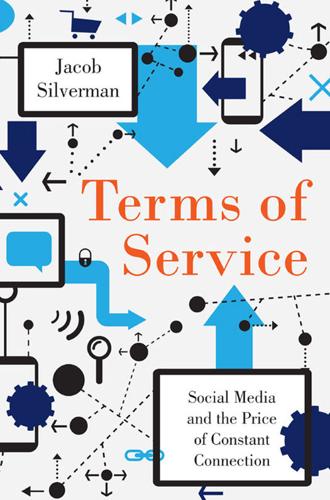
Terms of Service: Social Media and the Price of Constant Connection
by
Jacob Silverman
Published 17 Mar 2015
“We went from a Web that was interest-driven, and then we transitioned into a Web where the connections were in-person, real-life friendship relationships,” said Christopher Poole, the creator of 4chan, the raucous, at times repulsive, but immensely popular online message board, where anonymity is treasured as an absolute right. “Individuals are multifaceted,” Poole continued. “Identity is prismatic, and communities like 4chan exist as a holdover from the interest-driven Web.” I would go a step further than Poole. The social web treats everything, every personal encounter or article you read or thing you buy, as if it were a transaction between friends.
…
At the same time, the overlap here of promising security while also encouraging disclosure of one’s phone number to friends in the interest of openness or authenticity is revealing of Facebook’s motives: the more personal data they can get, the better.* NAME AND SHAME In certain quarters, digital anonymity has become a precious commodity—for dissidents, activists, journalists, and as a cultural value in and of itself. On the social news platform Reddit; in the madcap, all-anonymous message board 4chan; in the hacker collective Anonymous (whose roots trace to 4chan)—in these and other online communities, anonymity is something to be treasured and protected. Chalk it up to scarcity, perhaps. Here an assault on one’s anonymity is considered a grave act. The act of unmasking an anonymous Internet user is often called doxing. Doxing isn’t always done on purpose or with the intention of harming someone.
…
The next day, Vayner apparently took an overdose of pills, suffered a heart attack, and was pronounced dead at a hospital. He was twenty-nine. Vayner was a serial fabricator and exaggerator, although he was accomplished in many of the disciplines portrayed in his video. Ironically, many Internet communities, even those such as 4chan, a raucous, often crude message board whose defining value is that every user must remain anonymous, have become intolerant of any sense of fakery, identity play, or possible deceit and obfuscation. In a digital culture in which everyone is increasingly pressed—by both social forces and the fiat of Facebook, Google, and LinkedIn—to present themselves as themselves, the appearance of dishonesty has become a capital offense.

Perfect Sound Whatever
by
James. Acaster
Published 21 Aug 2019
• Manuel Gagneux was born and raised in Switzerland and moved to New York in 2012, performing chamber pop under the name Birdmask. Back then, he would regularly visit the website 4Chan and post tracks on the music board anonymously. The people on 4Chan were blunt and brutal so this became a good way of gauging exactly what people thought of his music. He decided to take things a step further and started asking the 4Chan users for compositional suggestions. He’d ask them to request genres, new areas for him to explore, and then he’d write a new song combining two of their requests. There was a day when the following two genres were suggested to him; one was ‘black metal’ and the other was ‘n***** music’.
…
I don’t know if the people suggesting genres knew that Gagneux was mixed race and I don’t know what race the people who suggested the genres were, but those two suggestions intrigued Manuel (who’d grown accustomed to dumb and offensive comments from 4Chan users by this point). With these two starting points, Gagneux began to compose a new album and ended up producing something truly unique. This is the sound of a musician discovering something, unearthing new possibilities and properly experimenting without any clue as to whether there’s an audience for it. But this figure-it-out-as-you-go-along approach also produced an album with confusing and potentially problematic themes, causing Gagneux to be accused of cultural appropriation from both sides. Obviously some interpretation was required for the latter of the two 4Chan suggestions, and Manuel chose to interpret it as ‘African-American spirituals’, specifically the sort of spirituals sung by slaves in 18th-/19th-century America.
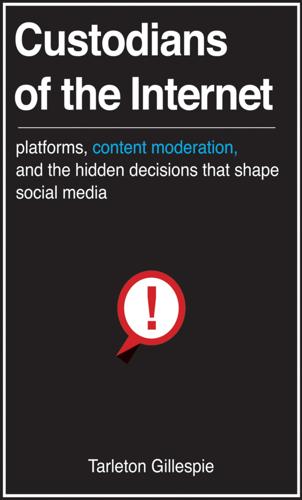
Custodians of the Internet: Platforms, Content Moderation, and the Hidden Decisions That Shape Social Media
by
Tarleton Gillespie
Published 25 Jun 2018
But if, according to Twitter’s calculations, a particular term that includes profanity “Trends,” it will be excluded from that measure of popularity. This can sometimes lead to profanity arms races, as when 4chan pranksters began to push chosen terms, dirty but not traditionally profane, into the Twitter Trends lists, leading Twitter to add #gorillapenis and #gooddick to its list of blocked terms.43 Google also offers a Trends function, designed to indicate the popularity of specific search queries over time and location. In 2008, once again thanks to 4chan, the Nazi swastika topped the Google Trends list; Google removed it manually, but in doing so, publicly acknowledged that their Trends service already included a porn filter for terms that are profane themselves or otherwise would clearly direct users toward pornographic content.
…
For how the research was done, see “Today We Published a Data Story Looking at How iOS Devices Fail to Accurately Correct Some Words such as ‘Abortion’ and ‘Rape,’” NewsBeast Labs, July 16, 2013, http://newsbeastlabs-blog.tumblr.com/post/55590097779/today-we-published-a-data-story-looking-at-how-ios. 40Nick Seaver (personal communication) notes that music recommenders make a similar intervention around children’s music and holiday music: the assumption, again, is that users do not want to hear holiday music in response to a query that does not seem to specify that category. 41Jemima Kiss, “YouTube Looking at Standalone ‘SafeTube’ Site for Families,” Guardian, May 29, 2009, https://www.theguardian.com/media/pda/2009/may/29/youtube-google. 42Beer and Burrows, “Popular Culture, Digital Archives, and the New Social Life of Data”; Gillespie, “Can an Algorithm Be Wrong?”; Gillespie, “#trendingistrending”; Hallinan and Striphas, “Recommended for You.” 43Harrison Hoffman, “4chan May Be behind Attack on Twitter,” CNET, July 6, 2009, https://www.cnet.com/news/4chan-may-be-behind-attack-on-twitter/. 44Mary Hodder, “Why Amazon Didn’t Just Have a Glitch,” TechCrunch, April 14, 2009, https://techcrunch.com/2009/04/14/guest-post-why-amazon-didnt-just-have-a-glitch/. 45Terrence Russell, “German Users in Revolt over Flickr Image Restrictions,” Wired, June 15, 2007, https://www.wired.com/2007/06/german_users_in/. 46Deibert and Rohozinski, “Liberation vs.
…
We talk so much about platforms these days, it is easy to forget that they are still surrounded by the “world wide web” of home pages, personal blogs, news sites, oddball discussion spaces, corporate sites, games, porn, 404 error pages, file listings, and forgotten ephemera.50 Over the course of more than a decade, the kinds of encounters with information and people that were once scattered across the web have been largely gathered up by a small set of companies onto a handful of social media platforms. Today we are, by and large, speaking from platforms. In fact, when these platforms are compared with their less regulated counterparts, it is to Reddit or 4chan—big platforms compared with smaller ones, mainstream platforms compared with marginal ones—not with the open web, not any more. The dream of the open web emphasized new, expanded, and untrammeled opportunities for knowledge and sociality. Access to the public would no longer be mediated by the publishers and broadcasters that played such powerful gatekeeper roles in the previous century.
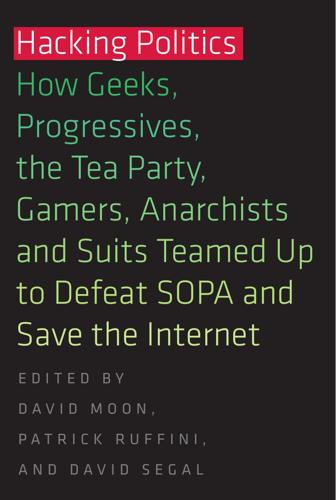
Hacking Politics: How Geeks, Progressives, the Tea Party, Gamers, Anarchists and Suits Teamed Up to Defeat SOPA and Save the Internet
by
David Moon
,
Patrick Ruffini
,
David Segal
,
Aaron Swartz
,
Lawrence Lessig
,
Cory Doctorow
,
Zoe Lofgren
,
Jamie Laurie
,
Ron Paul
,
Mike Masnick
,
Kim Dotcom
,
Tiffiniy Cheng
,
Alexis Ohanian
,
Nicole Powers
and
Josh Levy
Published 30 Apr 2013
We crossed our fingers. Elizabeth Stark reached out to sites like Tumblr and 4chan. Aaron Swartz and David Segal spearheaded outreach to progressive “Netroots” groups like Avaaz, Credo, and MoveOn. Twitter was chirping about the following day’s protest. In the evening, when 4chan’s founder tweeted that he wished he could support American Censorship Day, we responded immediately and were buoyed by the potential for small ideas to grow. We still did not know if the site itself would participate. On November 16, huge sites like reddit, Mozilla, Boing Boing and 4chan either linked to our “Write Congress” pages, or included our widget on their site.
…
My offering was simple: we’d present the threat to the reddit community and give them our rationale behind the opposition. I didn’t know how our millions of users would react to the imminent threat, but I knew the best ideas for action wouldn’t come from me or even this room of “experts.” Elizabeth Stark We decided on a strategy. On November 16, sites such as Mozilla, Tumblr, reddit, and even 4chan would blackout their logos in protest of SOPA. Fight for the Future set up a central site called American Censorship Day, where all the sites involved were listed. And there was a call for the Internet community to get involved. This was a watershed moment in the politics of the Internet: sites like Mozilla and Tumblr took a public stance for the first time ever on a political issue. 6.
…
And being forced to do so would seriously stifle the freedom of speech that our community currently enjoys. Under the restrictive and open-ended terms of SOPA, it would be virtually impossible for a site such as ours to function, which is why we—along with other social media sites such as reddit, Tumblr, Flickr, Fark, and 4chan—participated in the January 18th day of action. Unlike the more editorially-driven sites we love such as Wired, Boing Boing, and Rawstory, as a subscriber-funded online community offering a service to our members, blacking out entirely wasn’t an option on #J18. We therefore had to find other creative ways to protest SOPA, and show solidarity with the sites that were able to go dark.
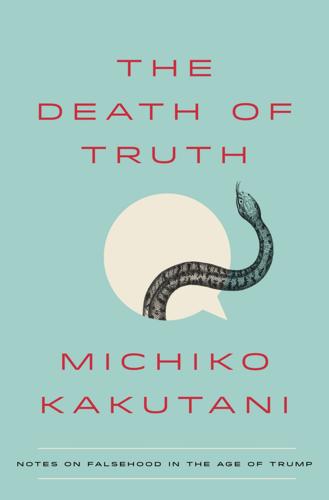
The Death of Truth: Notes on Falsehood in the Age of Trump
by
Michiko Kakutani
Published 17 Jul 2018
One of the tactics used by the alt-right to spread its ideas online, Marwick and Lewis argue, is to initially dilute more extreme views as gateway ideas to court a wider audience; among some groups of young men, they write, “it’s a surprisingly short leap from rejecting political correctness to blaming women, immigrants, or Muslims for their problems.” Many misogynist and white supremacist memes, in addition to a lot of fake news like Pizzagate, originate or gain initial momentum on sites like 4chan and Reddit—before accumulating enough buzz to make the leap to Facebook and Twitter, where they can attract more mainstream attention. Renee DiResta, who studies conspiracy theories on the web, argues that Reddit can be a useful testing ground for bad actors—including foreign governments like Russia—to try out memes or fake stories to see how much traction they get.
…
When asked about the Nazi salutes that greeted his exclamation, Spencer replied that they were “clearly done in a spirit of irony and exuberance.” As the researchers Alice Marwick and Rebecca Lewis suggest in their Media Manipulation and Disinformation Online study, ironic fascism can become a kind of gateway drug, leading to the unironic version: “A 4chan troll may be more receptive to serious white supremacist claims after using ethnic slurs ‘ironically’ for two or three months.” In fact, The Huffington Post reported that the neo-Nazi site The Daily Stormer (which aims “to spread the message of nationalism and anti-Semitism to the masses”) has a style guide for writers.
…
The new nihilism manifests itself: Hadley Freeman, “Sandy Hook Father Leonard Pozner on Death Threats: ‘I Never Imagined I’d Have to Fight for My Child’s Legacy,’ ” Guardian, May 2, 2017; Charles Rabin, “Parkland Students Face New Attack, This Time from the Political Right on Social Media,” Miami Herald, Feb. 20, 2018. “Hail Trump! Hail our people!”: Joseph Goldstein, “Alt-Right Gathering Exults in Trump Election with Nazi-Era Salute,” New York Times, Nov. 20, 2016. “A 4chan troll”: Marwick and Lewis, Media Manipulation and Disinformation Online. The Huffington Post reported: Ashley Feinberg, “This Is the Daily Stormer’s Playbook,” Huffington Post, Dec. 13, 2017. Trump, of course, is a troll: Amy B Wang, “Trump Retweets Image Depicting ‘CNN’ Squashed Beneath His Shoe,” Washington Post, Dec. 24, 2017; twitter.com/realDonaldTrump/status/326970029461614594.
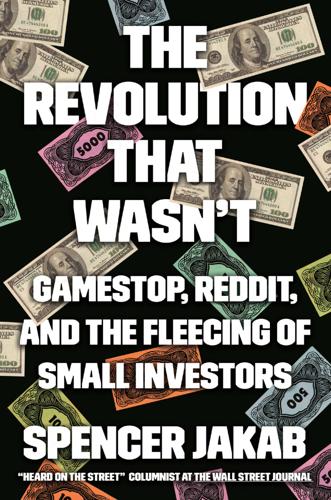
The Revolution That Wasn't: GameStop, Reddit, and the Fleecing of Small Investors
by
Spencer Jakab
Published 1 Feb 2022
Though not part of his conviction, Shkreli was the architect of a short squeeze smaller but wilder than those affecting the meme stocks when he led a group that bought up most of the worthless shares of the pharmaceutical company KaloBios in 2015, briefly sending its shares up by 10,000 percent. The somewhat disturbing, but mostly tongue-in-cheek, motto of WallStreetBets is “Like 4chan found a Bloomberg terminal.” The imageboard 4chan is known for attracting anonymous young men, many just teenagers, who often share misogynistic, racist, and even violent content. Relatively little of that can be found on WallStreetBets, but it certainly isn’t a place for polite dialogue. Founder Rogozinski clashed with members and stopped moderating the subreddit in April 2020 since he objected to the tone and some of the bigoted content on the site that he felt crossed a line.
…
Some observers like Alexis Ohanian, Reddit’s cofounder, compared the group of traders who sent meme stocks surging and fund managers scurrying to the Occupy Wall Street movement. For anyone cast as a villain, it seemed to have more in common with the board’s own description: “Like 4chan found a Bloomberg terminal.” The imageboard 4chan is known for what might be the most infamous episode of senseless online harassment, Gamergate, in which many figures, starting with female video game developers, received an endless stream of menacing, misogynistic messages. Seeing a thick-skinned, veteran trader who had faced so many threats chased out of the business at what was already an ebb tide for his profession was unnerving.
…
S., 46–47 commissions, 48–50, 234, 251 zero-dollar, 47, 48–51, 54, 59, 70, 101, 102, 139, 166, 218, 241, 247, 259 Commonstock, 47 Condé Nast, 38 Congress, 206, 230–31 see also House Committee on Financial Services hearing Consumer Federation of America, 29, 241 Consumer Financial Protection Bureau, 42 control, illusion of, 27 Cooperman, Leon, 191 COVID-19 pandemic, ix–xii, xv, 1, 23, 31, 42, 45, 47, 52, 55–57, 62, 68–72, 83, 88, 89, 92, 93, 105, 156, 179, 214, 219, 224, 255, 256 stimulus checks during, 56, 62, 71, 72, 255 Cox, Christopher, 83 Cramer, Jim, 128, 254 Crash of 1929, 42, 150, 233 Crawford, Cindy, 111 Credit Suisse, 60, 128 Crockett, Molly, 39 Cruz, Ted, 197 Cuban, Mark, 191–92 cryptocurrencies, 58, 154, 179 Dogecoin, 19, 152, 154 CXO Advisory Group, 254 D Daily Journal Corporation, 183 Dalio, Ray, 160–61 Damodaran, Aswath, 18, 82, 177–78 Dark Knight, The, 138 DARTs (daily average revenue trades), 59 DeepFuckingValue, see Gill, Keith deep-value investors, 17, 52 demands for goods, 51 democratization of finance, 4, 5, 10, 173, 178, 182, 198, 207, 240, 242–43, 251, 262 dentists, 237, 251 Depression, Great, 48 derivatives, xi, xii, 5, 36, 101 see also options Dian Fossey Gorilla Fund, 135 Dimon, Jamie, 160 Discord, 190 Discover Brokerage, 28 Dogecoin, 19, 152, 154 Doji, 47 dot-com era, 4, 21, 24, 25, 28, 42, 63, 65, 70, 90, 106, 118, 155, 179, 186 Dow Jones Industrial Average, 52, 53, 61, 70, 151, 234, 243 DraftKings, 26, 30 Drew, Daniel, 74 Dunning, David, 28 Dusaniwsky, Ihor, 76, 81, 130, 132, 170 E economic theory, 51 behavioral, 51, 62, 255 Edelman, 143 Egan, Dan, 54, 60, 65, 183 Einhorn, David, 152–53, 158, 166, 253 El-Erian, Mohamed, 199, 205 Elm Partners, 260 Enron, 42, 84–85, 117, 119, 125, 129, 186, 242, 261 Epsilon Theory, 165 eToro, 47, 200 E*Trade, 24, 28, 55, 189, 219 Gill’s account with, 15, 19, 87, 88, 90, 100, 112, 130–31, 136, 141, 147, 171, 212, 230, 232 Eurekahedge, 119 exchange-traded funds, 159, 234 Express, 188 F Facebook, 37–38, 98, 162, 166, 202 Factiva, 127 FactSet, 177 FanDuel, 26 Fannie Mae, 216 Fast Company, 26 FBI, 122 Federal Reserve, 10, 58, 67, 69, 71, 98 Survey of Consumer Finances, 252 Federal Reserve Bank of New York, 83 Fidelity Investments, 8, 25, 27, 221–22, 245 fiduciaries, 13–14, 258 financial advisers, 27, 253–55, 258 see also robo-advisers financial crisis, xi, 6, 8, 10, 21, 28, 58, 63, 69, 70, 78, 83, 143, 199, 204, 215 Financial Industry Regulatory Authority (FINRA), 34–35, 101, 103, 120, 131, 193, 202, 239 Financial Times, 78, 81, 85 FOMO (fear of missing out), 63, 151, 172, 177, 178 Forbes, 9, 234 Ford Motor Company, 82 Forrest Gump, 212 Fortune, 85 4chan, 39, 125 Fox News, 156, 189 Freddie Mac, 216 French, Sally, 45 Fuld, Dick, 80 Futu, 236 G Gallagher, Dan, 240 Galvin, William, 29 gambling, 30–31, 55, 57 lotteries, 62, 239, 241, 242 sports, 26, 30–31, 57 Gamergate, 125 GameStop (GME), GameStop short squeeze, x–xiv, 2, 10, 12, 16, 21, 22, 26, 30, 31, 36, 54, 56, 60, 61, 67, 72, 76, 80, 83, 85, 86, 88, 93–95, 97, 102, 107, 108, 111–15, 122, 125, 127–34, 128–32, 137, 138, 141–49, 152–55, 157, 158, 160, 161, 164, 169–70, 174–78, 180, 185, 188, 189–92, 200, 204, 211–14, 215–17, 221–22, 227–31, 234, 235, 237–40, 242, 249, 252, 262 board members and, 222–23 CEOs and, 224 congressional hearing on, see House Committee on Financial Services hearing Gill and, 14, 15–19, 43–45, 68–69, 90–92, 94, 95, 100–101, 112–14, 130–33, 143–44, 147–48, 154–55, 260 Gill’s Forrest Gump Twitter post on, 212 margin debt and, 58 poll on, 13 Reddit and, 37; see also WallStreetBets thousand-dollar price predicted for, 172–73, 176, 177 Volkswagen squeeze compared to, 77, 78 gamification, 29–31 gamma squeeze, 108, 109, 132, 141, 216, 227–28 General Motors, 151 Generation Z, 21, 26, 56, 88, 143, 162, 236, 246, 255 Gensler, Gary, 207 Gill, Elaine, 171 Gill, Keith (DeepFuckingValue), 1–3, 14, 15–20, 47, 48–49, 52, 73, 87–88, 116, 126, 129, 136, 141–42, 171, 175, 183, 191, 211–14, 218, 219, 222, 227, 230–32, 250 at congressional hearing, 1–3, 14 E*Trade account of, 15, 19, 87, 88, 90, 100, 112, 130–31, 136, 141, 147, 171, 212, 230, 232 Forrest Gump Twitter post of, 212 GameStop and, 14, 15–19, 43–45, 68–69, 90–92, 94, 95, 100–101, 112–14, 130–33, 143–44, 147–48, 154–55, 260 net worth of, 19, 94, 114, 131, 133, 148, 155, 171, 191, 212 YouTube videos of, as Roaring Kitty, 2, 18, 45, 48–49, 92, 130, 133, 144, 171, 174–75, 191, 211, 213 global financial crisis, xi, 6, 8, 10, 21, 28, 58, 63, 69, 70, 78, 83, 143, 199, 204, 215 GME, see GameStop, GameStop short squeeze Goepfert, Jason, 227 Golden State Warriors, 158 Goldman Sachs, 9, 55, 63, 76, 132, 170–71, 178, 219–20, 254 Google, 46, 162, 243 Google Glass, 24 Google Play, 195 gorillas, 135, 225 Graham, Benjamin, 174, 177 Grand Theft Auto V, 97 Great Crash of 1929, 42, 150, 233 Great Depression, 48 Greenfield, Rich, 39, 180 Griffin, Ken, 8, 14, 41, 65, 67, 146, 189, 206–8, 218, 234, 240 at congressional hearing, 9–11, 14, 65 Gross, Bill, 216, 217, 220, 228 Grube, Jim, 114 Grujic, Al, 208–9 H Hacker News, 25 Haghani, Victor, 260–61 Harvard Law School, 220 Harvard University, 80 Hawley, Josh, 198 Hearst, William Randolph, 9 hedge funds, xi, xv, 4, 6–8, 12, 13, 22–24, 56, 67, 68, 73, 75–77, 96, 109, 110–11, 115, 119, 121, 126, 129, 130, 133, 135, 138–39, 141, 143, 146, 157, 170–71, 173, 176, 179–80, 189, 197, 199, 202, 213, 217, 220, 228, 229, 234, 239, 245, 249, 260 and locating a borrow, 72–73 Robinhood’s trading restriction and, 197–99, 206 Volkswagen and, 77–78 WallStreetBets as, 139 hedonic products, 51 Hemingway, Ernest, xiii Hempton, John, 181 herding events, 238 Hertz, 60–61, 255 Hestia Partners, 222–23 Hickey, Mike, 44, 128 high-frequency traders, 236, 238, 243, 247, 258 Robinhood and, 193, 202, 207, 236 Hirst, Damien, 7 HODL-ing, 140, 255–56 homeownership, 71 House Committee on Financial Services hearing, 1–14, 76, 80, 183, 206, 238–40 Gill and, 1–3, 14 Griffin and, 9–11, 14, 65 Huffman and, 11–13, 40, 165–66 Plotkin and, 6–11 Tenev and, 3–6, 11, 14, 32, 40, 65, 206 Washington establishment and, 13–14 Waters’s chairing of, 3, 13 Hsieh, Tony, 89–90 Huffman, Steve, 37–38, 40 at congressional hearing, 11–13, 40, 165–66 Hunt, Ben, 165 I illusion of control, 27 index funds, xv, 4, 6, 125, 191, 235, 242, 244, 245, 251, 254, 256, 257, 259, 260 influencers, 150–68, 170, 210, 246, 249 In Good Company, 87, 171 initial public offerings (IPOs), 63–65, 155 insider trading, 42 Instagram, 162, 166 Intel, 46 Interactive Brokers, 188 interest, 63 compound, 242 short, 76, 92, 93, 106, 108, 113, 121, 132, 133, 140, 164, 169 zero, 58, 72 internet, 22, 163, 258 see also social media Invisibly Realtime Research, 13 iShares, 259 J Jacob, Mary K., 172 Japan, 81 Ja Rule, 197 Jay-Z, 64 JMP Securities, 70, 199 JOBS (Jumpstart Our Business Startups) Act, 13, 246 Jordan, Michael, 8, 111 J.P.
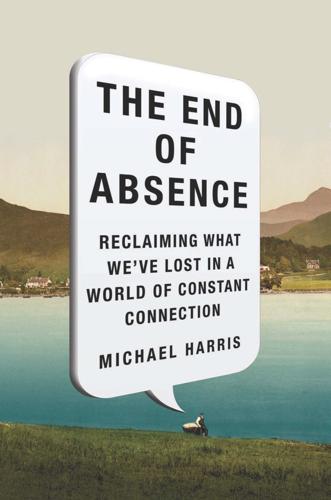
The End of Absence: Reclaiming What We've Lost in a World of Constant Connection
by
Michael Harris
Published 6 Aug 2014
I recently read about a University of Guelph student who decided to broadcast his suicide live online—using the notorious 4chan message board to attract an audience willing to watch him burn to death in his dorm room. (The twenty-year-old man was stopped midattempt and taken to the hospital with serious injuries.) His message to his viewers: “I thought I would finally give back to the community in the best way possible: I am willing to an hero [commit suicide]6 on cam for you all.” Another 4chan user set up a video chat room for him. Two hundred watched (the chat room’s limit) as he downed pills and vodka before setting his room on fire and crawling under a blanket.
…
S., 75 ELIZA, 57–59, 61, 108, 188 Elon University, 40 e-mail, 17, 19, 54, 106, 113–15, 118, 127–28, 156, 169 Harris’s Analog August and, 190–92, 196–97 emotion, 51, 54–56, 60–62, 66, 113, 186 empathy, 30, 38, 67 in computers, 61, 62, 67 Encyclopædia Britannica, 74–75 Enlightenment, 12, 83 EstablishedMen, 175 Eternal Sunshine of the Spotless Mind, 155–56 Evans, James, 86 evolution, 37, 41–43 of technology, 43 Facebook, 9, 19, 24, 31, 64n, 69, 71, 82, 149, 156, 168, 175 activity feed on, 91 moderation of, 63–64 selfies on, 68 surveillance and, 66n Todd and, 50 facts, 141, 145 Fadiman, Clifton, 75 fame, 69–70 Fast Company, 97, 191 Feldman, Erica, 73–74, 79 Ferdinand II, Archduke of Austria, 147 Fernyhough, Charles, 154 filter bubbles, 91 Financial Times, 185 Forbes, 90 Forster, E. M., 106–7, 109 4chan, 53–54 Foursquare, 150–51 Frankenstein (Shelley), 56 Frankfurt, Harry G., 92 Franklin, Benjamin, 192 friends, 30–31 Frind, Markus, 182–83 Furbies, 29–30 Füssel, Stephan, 103 Gaddam, Sai, 173 Gallup, 123 genes, 41–43 Gentile, Douglas, 118–21 German Ideology, The (Marx), 12n Gleick, James, 137 Globe and Mail, 81–82, 89 glossary, 211–16 Google, 3, 8, 18–19, 24, 33, 43, 49, 82, 96, 142, 185 memory and, 143–47 search results on, 85–86, 91 Google AdSense, 85 Google Books, 102–3 Google Glass, 99–100 Google Maps, 91 Google Plus, 31 Gopnik, Alison, 33–34 Gould, Glenn, 200–201, 204 GPS, 35, 59, 68, 171 Greenfield, Susan, 20, 25 Grindr, 165, 167, 171, 173–74, 176 Guardian, 66n Gutenberg, Johannes, 11–13, 14, 16, 21, 34, 98 Gutenberg Bible, 83, 103 Gutenberg Galaxy, The (McLuhan), 179, 201 Gutenberg Revolution, The (Man), 12n, 103 GuySpy, 171, 172, 173 Hangul, 12n Harari, Haim, 141 Harry Potter series, 66n Hazlehurst, Ronnie, 74 Heilman, James, 75–79 Henry, William A., III, 84–85 “He Poos Clouds” (Pallett), 164 History of Reading, A (Manguel), 16, 117, 159 Hollinghurst, Alan, 115 Holmes, Sherlock, 147–48 House at Pooh Corner, The (Milne), 93 Hugo, Victor, 20–21 “Idea of North, The” (Gould), 200–201 In Defense of Elitism (Henry), 84–85 Information, The (Gleick), 137 information retrieval, 141–42 Innis, Harold, 202 In Search of Lost Time (Proust), 160 Instagram, 19, 104, 149 Internet, 19, 20, 21, 23, 26–27, 55, 69, 125, 126, 129, 141, 143, 145, 146, 187, 199, 205 brain and, 37–38, 40, 142, 185 going without, 185, 186, 189–97, 200, 208–9 remembering life before, 7–8, 15–16, 21–22, 48, 55, 203 Internship, The, 89 iPad, 21, 31 children and, 26–27, 45 iPhone, see phones iPotty, 26 iTunes, 89 Jobs, Steve, 134 Jones, Patrick, 152n Justification of Johann Gutenberg, The (Morrison), 12 Kaiser Foundation, 27, 28n Kandel, Eric, 154 Kaufman, Charlie, 155 Keen, Andrew, 88 Kelly, Kevin, 43 Kierkegaard, Søren, 49 Kinsey, Alfred, 173 knowledge, 11–12, 75, 80, 82, 83, 86, 92, 94, 98, 141, 145–46 Google Books and, 102–3 Wikipedia and, 63, 78 Koller, Daphne, 95 Kranzberg, Melvin, 7 Kundera, Milan, 184 Lanier, Jaron, 85, 106–7, 189 latent Dirichlet allocation (LDA), 64–65 Leonardo da Vinci, 56 Lewis, R.
…
The Kaiser Foundation’s latest numbers tell us that print consumption, outside of reading for school, takes up an average of thirty-eight minutes in every youth’s day (a small but telling drop from forty-three minutes five years earlier). 5. This is, yes, a hyped-up Hollywood version of Plato’s “Allegory of the Cave.” 6. To “an hero” is a synonym for committing suicide that is used by 4chan communities. 7. The gold medal has not been won yet. Smaller prizes are given each year for the “most human computer” in the bunch. 8. Such content will almost definitely be managed more tightly in the future than it is now—perhaps by the government. To paraphrase Microsoft researcher danah boyd: Facebook is a utility; utilities get regulated. 9.
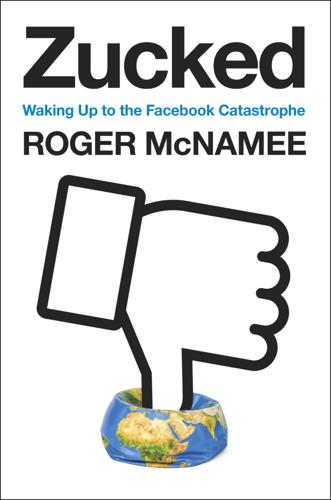
Zucked: Waking Up to the Facebook Catastrophe
by
Roger McNamee
Published 1 Jan 2019
What they do instead is ban hate speech and harassment in their terms of service, covering their legal liability, and then apologize when innocent users suffer harm. Twitter, Facebook, and Instagram all have a bully problem, each reflecting the unique architecture and culture of the platform. The interplay of platforms also favors bad actors. They can incubate pranks, conspiracy theories, and disinformation in fringe sites like 4chan, 8chan, and Reddit, which are home to some of the most extreme voices on the internet, jump to Twitter to engage the press, and then, if successful, migrate to Facebook for maximum impact. The slavish tracking of Twitter by journalists, in combination with their willingness to report on things that trend there, has made news organizations complicit in the degradation of civil discourse
…
Renée characterized techniques the Russians may have used to spread disinformation on social media. The Russians’ job was made easier by the thriving communities of libertarians and contrarians on the internet. They almost certainly focused on sites that promoted anonymous free speech, sites like Reddit, 4chan, and 8chan. These sites are populated by a range of people, but especially those who hold views that may not be welcome in traditional media. Some of these users are disaffected, looking for outlets for their rage. Others are looking to expose what they see as the hypocrisy of society. Still others have agendas or confrontational personalities looking for an outlet.
…
These and other sites would have been fertile ground for the Russian messages on immigration, guns, and white nationalism. They were also ideal incubators for disinformation. Renée explained that the typical path for disinformation or a conspiracy theory is to be incubated on sites like Reddit, 4chan, or 8chan. There are many such stories in play at any time, a handful of which attract enough support to go viral. For the Russians, any time a piece of disinformation gained traction, they would seed one or more websites with a document that appeared to be a legitimate news story about the topic.
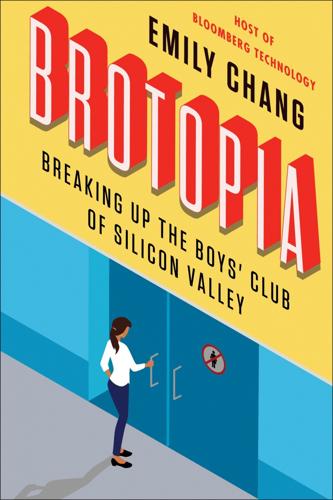
Brotopia: Breaking Up the Boys' Club of Silicon Valley
by
Emily Chang
Published 6 Feb 2018
They derided Quinn’s game development as basic, simplistic girl work and claimed she used sexual favors to get good reviews. Gjoni’s post was put up on 4chan (not by him, he would later attest in a note on his original post), an online community founded in 2003 by a then teenager named Christopher Poole. Today 4chan claims some twenty million monthly visitors, including a large population that seems to delight in wreaking havoc online. They were particularly vicious when attacking Quinn and other women in the gaming industry. With the 4chan members engaged in the fight, accounts sprang up across Twitter and Reddit to attack Quinn and spread the #Gamergate hashtag.
…
The online attacks, like the one perpetrated on Wu, began and gathered force on sites like 4chan, Twitter, and Reddit, the largely unmonitored town halls of the web. All of these sites allow or encourage anonymity and pseudonymity, as well as a laissez-faire approach to free speech, in keeping with the long-standing libertarian ethos of the internet. All of them have tolerated years of online harassment of women. It should be of little surprise at this point that the sites that harbor the most vicious trolls—4chan, Twitter, and Reddit included—were all started and led by white men, who aren’t usually the targets of the most vicious online harassment.
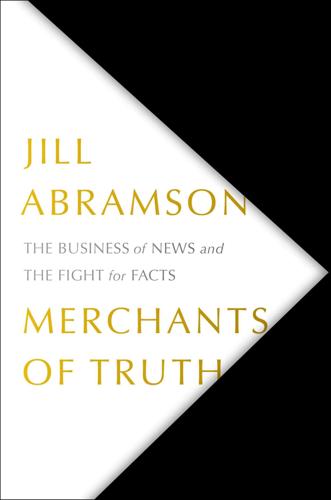
Merchants of Truth: The Business of News and the Fight for Facts
by
Jill Abramson
Published 5 Feb 2019
The Electoral College experts: David Plouffe: “What I Got Wrong about the Election,” New York Times, November 11, 2016, https://www.nytimes.com/2016/11/11/opinion/what-i-got-wrong-about-the-election.html. The forum boards of 4chan: Joseph Bernstein, “Inside 4chan’s Election Day Mayhem and Misinformation Playbook,” BuzzFeed, November 7, 2016, https://www.buzzfeednews.com/article/josephbernstein/inside-4chans-election-day-mayhem-and-misinformation-playboo#.rjDBA5vKZk. “Forget the press: Kurt Andersen, “How America Lost Its Mind,” Atlantic, September 2017, https://www.theatlantic.com/magazine/archive/2017/09/how-america-lost-its-mind/534231/.
…
While the new-media pioneers at BuzzFeed and Upworthy produced LOLs and cultivated trumped-up umbrage over the killing of poor Cecil, a second guard of new-media publishers set out to capture the loyalty of another psychographic swath of America whose disaffection far surpassed mere boredom. The new wave would employ the methods BuzzFeed had pioneered, but used partisan anger as their way of hot-wiring readers’ emotional responses. Stories could go viral by embracing the conspiracy theory of the day. Mike Cernovich and the crowd on 4chan were pandering to these constituencies and becoming massively popular in the process. Most of all, Breitbart News seemed to benefit from the boom of “stigmatized knowledge.” Its Facebook following was growing exponentially, and by the middle of 2016 it was getting more reader engagement than the Times.
…
While Trump’s strategists developed alternate realities and ushered voters along the narrative that best suited their personal preferences, the sector Silverman watched over continued to inject plot twists pulled as if from thin air. With the election 10 days out, Silverman, one of the few press watchdogs on the story, hectically dashed from pillar to post to thwart new lies as they popped up and engulfed the reading public. The forum boards of 4chan and 8chan, out-of-the-way sites where the alt-right in-crowd gathered to concoct pro-Trump influence campaigns throughout the election season, were abuzz with ideas for last-minute attacks. They were not official political strategists as much as volunteer guerrillas, and as such the voter suppression campaigns they hatched did not need to hew to the facts, as the “super-predator” ad had.

Devil's Bargain: Steve Bannon, Donald Trump, and the Storming of the Presidency
by
Joshua Green
Published 17 Jul 2017
Although Yiannopoulos was most interested in cultivating his own celebrity—Bannon thought he looked like “a gay hooker”—he was more than willing to do his part and make the political connection explicit. “How Donald Trump Can Win: With Guns, Cars, Tech Visas, Ethanol . . . And 4Chan” read the headline of an October 2015 article he wrote. Trump himself would help cement this alt-right alliance by retweeting images of Pepe the Frog and occasional missives—always inadvertently, his staff insisted—from white nationalist Twitter accounts. Before long, denizens of sites such as 4chan and reddit were coordinating support for Trump’s campaign. One aspect of this “support” was flooding the Twitter feeds of prominent journalists, particularly Jewish journalists, with vile anti-Semitic imagery.
…
But Bannon held on to a network of three large MMO gaming sites that the company had acquired (Wowhead, Allakhazam, and Thottbot) that were the hubs where these gamers congregated by the millions. If you trace a line backward from Trump’s election, it doesn’t take long before you encounter online networks of motivated gamers and message-board denizens such as the ones who populate Trump-crazed boards like 4chan, 8chan, and reddit. During the campaign, users of these message boards were eager purveyors of racist, alt-right invective, such as the anti-Semitic Pepe the Frog images that the Anti-Defamation League declared a hate symbol. Trace the line back a little further and it leads to Breitbart News and Bannon, whose hiring of the anti-feminist internet troll Milo Yiannopoulos as Breitbart’s tech editor in 2015 greatly exacerbated these forces.
…
Instead, the gamers ended up wrecking IGE’s business model by organizing themselves on the message boards and forcing the companies behind World of Warcraft and other MMO games to curb the disruptive practice of gold farming. IGE’s investors lost millions of dollars. But Bannon gained a perverse appreciation for the gamers who’d done him in. “These guys, these rootless white males, had monster power,” he said. “It was the pre-reddit. It’s the same guys on Thottbot who were [later] on reddit” and 4chan—the message boards that became the birthplace of the alt-right. When Bannon took over Breitbart, he wanted to capture this audience. Andrew Breitbart had drawn a portion of it enchanted by his aggressive provocations on issues such as race and political correctness. Bannon took it further. He envisioned a great fusion between the masses of alienated gamers, so powerful in the online world, and the right-wing outsiders drawn to Breitbart by its radical politics and fuck-you attitude.
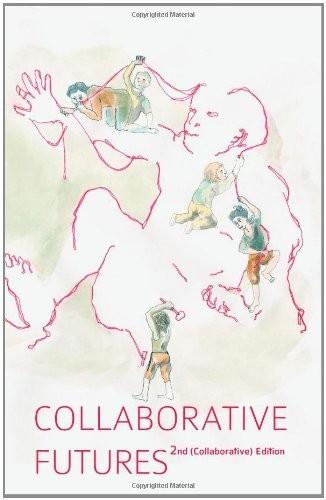
Collaborative Futures
by
Mike Linksvayer
,
Michael Mandiberg
and
Mushon Zer-Aviv
Published 24 Aug 2010
When others have done this in the past it has brought down the wrath of this shadowy group of anonymous individuals, causing public humiliation, hacked servers, and other florid forms of chaos. 2 Anonymous is a collection of individuals that post anonymously on /b/ <img.4chan.org/b/>, a section of the image board 4chan.org. When you post content on a typical message board, you are o en required to enter your name. If you don’t, your entry is a ributed to “anonymous”. On /b/ everyone posts as “anonymous”. The collective actions of users identified with the name anonymous aggregates into the collective identity Anonymous. The majority of Anonymous’ activity is visible only to Anonymous. The members trade images and jokes between one another on 4chan and other sites. They traffic in pornography, shock imagery, and inane jokes.
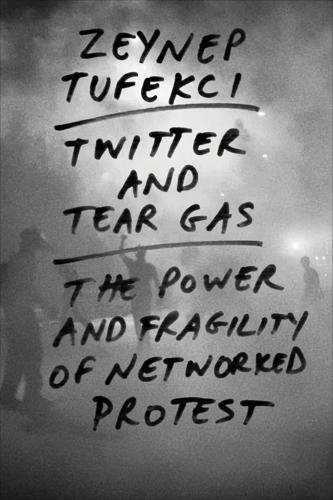
Twitter and Tear Gas: The Power and Fragility of Networked Protest
by
Zeynep Tufekci
Published 14 May 2017
Tricia Wang, “Talking to Strangers: Chinese Youth and Social Media” (Ph.D. diss., University of California, San Diego, 2013). 6. danah boyd, It’s Complicated: The Social Lives of Networked Teens (New Haven, Conn.: Yale University Press, 2014). 7. This topic is covered in depth in chapter 9. 8. Brendan O’Connor, “YouBeMom: The Anarchic Troll Hub That’s Basically 4chan for Mothers,” Daily Dot, August 8, 2014, http://www.dailydot.com/unclick/youbemom-4chan-for-moms/. 9. The site is not truly anonymous because the site administrators can trace each participant (unless the person uses privacy-preserving options like TOR or VPNs), but they are anonymous to one another and cannot trace posting history. 10. Emily Nussbaum, “Mothers Anonymous,” New York Magazine, July 24, 2006, http://nymag.com/news/features/17668/. 11.
…
Reddit, on the other hand, is mostly populated by people who do not link their user name to their offline name. These different combinations of affordances, rules, and cultures create different dynamics for the communities that use them. There are also sites that make it very difficult to have a persistent identity over time, ranging from 4Chan, a controversial youth-oriented forum, to the seamy side of YouBeMom, a parenting forum where people discuss children and relationships. On these sites, there is no practical way for a person to indicate to others who he or she is (although the site itself can track identities). Each variation across these dimensions of identity and reputation affects the formation of communities and the building of social movements.
…
In these types of spaces, however, people are sometimes able to identify themselves to one another through “special masks” which may be recognized across time, for example, online nicknames or avatars. In anonymous places without reputation accrual, it is as if each person donned a new mask at every step. (See table 1 for a simplified classification.) Table 1. Affordances of Identity and Reputation Reputation building No reputation Anonymous to pseudonymous Reddit, Twitter 4chan, YouBeMom Real name or offline identity embedded Facebook, WhatsApp Not truly possible Most internet users have gotten used to such types of interaction and tend to overlook that this situation is somewhat bizarre and perplexing, as well as fairly recent in human history. Although the absence of identifiable “real names” does not make social interaction meaningless, it does alter its context and consequences.

Come and Take It: The Gun Printer's Guide to Thinking Free
by
Cody Wilson
Published 10 Oct 2016
I watched the Indiegogo progress bar eke past one thousand dollars. At night I reread the crowdfunding site’s terms of service. “How much money have you got today?” my father would ask. “Almost two thousand now.” He laughed with a shrug of disbelief. Daniel Bizzell and I hosted late-night fund-raising threads on 4chan in the cigar room at the Peabody. The waitress indulged us as we torrented gun manuals and engineering texts. As I pursued my at-home ballistics degree, I watched the project’s YouTube video views tick upward every hour. The interest didn’t translate to much Indiegogo money, however. And we were a long way from twenty thousand dollars.
…
“Hmm,” I grunted, too busy with an email from Amir Taaki, who had invited me out to Bratislava, Slovakia. I had told him I’d be out of money with DD soon and would be coming to Europe to meet my only significant donor. Amir said I should make a few weeks of it and see his network as well. I put the video of the magazine work with John online. “Download today,” it read; 4chan went nuts. You remember that commercial against pirated films you used to see on DVDs and in the theaters? You wouldn’t download a car. No, you obviously would. The Infowars headline was a classic: BREAKING: PRINTABLE AR 30-ROUND MAGAZINES NOW AVAILABLE FOR DOWNLOAD, SERIOUSLY Soon I found out that the chairman of the DCCC had added magazines to his proposed Wiki Weapon ban.
…
He met me at his screen door and asked me in while he fetched the rest of his arsenal. Over the glass top of his wooden desk he laid out modified AKMs and Saiga magazines. He had extended Glock mags and spare stocks and I told him it all felt serendipitous. We’d just begun work on printed AK magazines. “I had one last month drawn up by a kid from 4chan,” I told him. “Garbage, but I guess that’s what I should have expected. I started over with a guy in Louisiana, and the first new one is getting printed tomorrow. Do you want to bring your rifle and help me test it this weekend?” I walked back to my car with Robert’s rifle pieces and mags in a cardboard box.
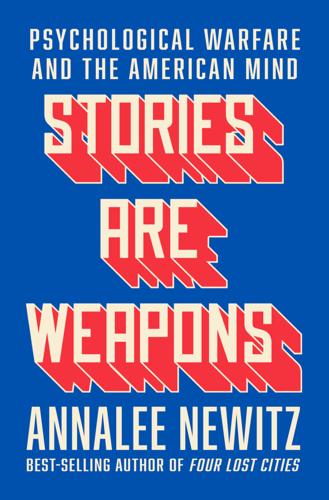
Stories Are Weapons: Psychological Warfare and the American Mind
by
Annalee Newitz
Published 3 Jun 2024
Why vote when the whole system is rigged to begin with? The anti-Bernie conspiracy wasn’t the only narrative to emerge from the social media storm unleashed by the IRA on Facebook. The leaked emails inspired the “#Pizzagate” conspiracy, a precursor to QAnon. People frequenting online community 4chan’s right-wing forums identified “secret messages” in Podesta’s emails. They believed they had uncovered an international conspiracy to kidnap children and rape them in the basement of Comet Ping Pong, a DC pizza joint popular with DNC workers. Late in 2016, a #Pizzagate believer drove to Comet Ping Pong with an AR-15 semiautomatic rifle.
…
Late in 2016, a #Pizzagate believer drove to Comet Ping Pong with an AR-15 semiautomatic rifle. He threatened customers with it, searching the premises because he believed the Clinton campaign was raping children in the basement.28 Ten months after the #Pizzagate attack, a shady figure named “QClearancePatriot” (later just Q) started posting in the /pol/ (Politically Incorrect) forums on 4chan, and the QAnon movement was born.29 This bonkers sequence of events is a perfect example of the kind of chaos that IRA psyops unleash. The IRA didn’t directly create QAnon. They simply inspired people to “do their own research” and uncover more conspiracies. Ordinary people using social media did the rest.
…
Bernays and the Birth of Public Relations (Tye), 8 Fediverse, 189–90 feminism, 142, 143–44, 145, 147–48, 156 Firsting and Lasting: Writing Indians out of Existence in New England (O’Brien), 45–47 Floyd, George, xi fog of war, xviii, xxi See also confusion as goal of psyops Forrest, Felix C. (Paul Linebarger), xiv 4Chan, 85 Fourteenth Amendment, 101 Franklin, Benjamin, 36–37 Frazier, Todd, 137 free association, 5 Freedom’s Laboratory (Wolfe), 24 Frenkel-Brunswik, Else, 68–70, 82, 93, 137 Freud, Sigmund, 3–5, 7, 123 frontier thesis, 62–64, 65 F-Scale Test, 68–70 Gaines, Max, 143 Galton, Francis, 101, 109 gaslighting, 159–60 Gay–Straight Alliance (GSA), 125 Germany Calling (Joyce), 21 Gerwig, Greta, 158–59 Ghost Dance movement, 53–58, 59, 60–61, 65, 95 Ghost Fleet (Singer and Cole), 194 “Girl Who Was Plugged In, The” (Tiptree), 17 Gladwell, Malcolm, 64 Goebbels, Joseph, 23 Gordon, Ruth Emrys, 17–18, 191–93, 194–95, 201–2 Gray, Freddie, 89 great replacement theory, 110 Greene, Marjorie Taylor, 90 Green Lantern, 151 Griffith, D.
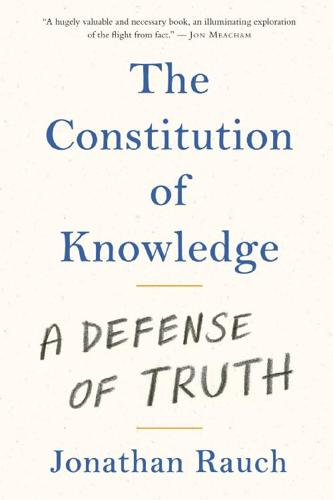
The Constitution of Knowledge: A Defense of Truth
by
Jonathan Rauch
Published 21 Jun 2021
In January 2020 an obscure Twitter account with a history of spreading conspiracy theories posted a video deceptively edited to suggest that former vice president Joe Biden made racist remarks while campaigning for the presidency. Several writers for conservative outlets shared the doctored video on Twitter, where it quickly spread. Within about four hours, it had jumped to Facebook and multiple threads on the websites 4chan and Reddit. At that point, right-wing media began spreading it—and so did mainstream media, which embedded the video in stories debunking it (bad idea!). “Soon,” reported Nick Corasaniti in his New York Times account of the incident, “any attempt to contain the spread of the disinformation in the video would prove futile.”20 Within only a day of the video’s first surfacing on the fringe of the internet, a voter was asking Biden about it on the campaign trail.
…
Something New: Trolls and Shitlords At around the same time as that nonexistent chemical plant explosion, a tempest called Gamergate swirled through the world of online video gaming. A swarm of harassers had ganged up on several women in the video-game industry, doxing them (that is, revealing personal details) and threatening them with rape and death. The swarm organized anonymously on platforms such as 4chan, Reddit, and Twitter; participants claimed to be a movement, though they had no leaders or manifesto. Someone I respected, a conservative feminist, told me at the time that Gamergate was a big deal and I should be concerned about it, but I could make no sense of it. It did not seem to be about anything.
…
In the House impeachment hearings of early 2020, Trump’s defenders used the firehose to question or deny almost everything (up to and including “that Joe Biden was a leading Democratic contender to face President Trump in 2020”), while airing conspiracy theories and innuendos.62 Their strategy “seeks to create not just a counternarrative but a completely separate reality,” wrote Ryan Broderick in BuzzFeed News. “Each round of GOP questioning is not meant to interrogate the witnesses … but instead to create moments that can be flipped into Fox News segments, shared as bite-size Facebook posts, or dropped into 4chan threads.”63 At long last, the inversion of reality reached its apogee with the claim that Trump was the landslide winner of the 2020 election and it was his opponent who was trying to overturn the results. Astonishingly, millions of Americans believed that on Inauguration Day Trump, not Joe Biden, would be sworn in.
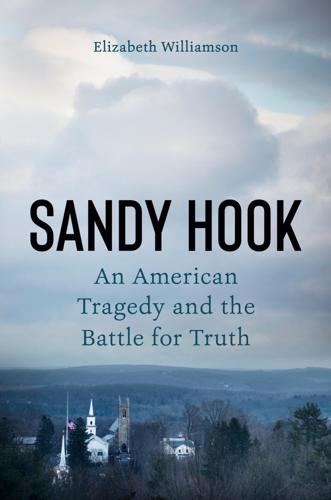
Sandy Hook: An American Tragedy and the Battle for Truth
by
Elizabeth Williamson
Published 8 Mar 2022
Infowars usually piggybacked onto whatever claim had drawn the most interest online, siphoning off some of the traffic to its own social media accounts. After Parkland, Infowars amplified and embellished a false claim that bubbled up from 4chan, wrongly linking twenty-four-year-old Marcel Fontaine to the Parkland shooting. Fontaine, a shy man with a severe stutter, lived in Boston and had never visited Florida. After the Parkland shooting, someone had lifted a photo of Fontaine from one of his social media accounts and posted it on a message board on 4chan, adding the caption “Shooter is a Commie.” The red T-shirt Fontaine wore in the photo apparently made him the target for the fake charge.
…
In the summer of 2016, a preposterous theory involving top Clinton operatives and a child sex ring germinated in the fetid depths of the internet and began to spread. A team of journalists from Rolling Stone, the Investigative Fund, and the Center for Investigative Reporting’s Reveal later found[1] that in early July on 4chan, someone with the handle FBIAnon posted on an anonymous message board falsely touting dark secrets about the Clinton Foundation. “Bill and Hillary love foreign donors so much,” FBIAnon wrote. “They get paid in children as well as money.” That and similar bizarre posts constituted the early traces of what grew into Pizzagate, a nutty web of total nonsense claiming that Hillary Clinton and top Democrats operated a child sex slavery ring from the basement of Comet Ping Pong, a pizzeria in Washington, D.C.
…
That investigation had been closed, but then the FBI found some of Clinton’s emails on a computer belonging to Anthony Weiner, the estranged husband of Clinton aide Huma Abedin. Weiner, a former New York congressman, was being investigated for allegedly exchanging sexually explicit text messages with a fifteen-year-old girl. (He was later convicted and jailed.)[6] The development resonated among online conspiracists. Wild rumors began to bubble on 4chan and Reddit that Clinton and her top lieutenants ritually abused and trafficked children imprisoned in the basement beneath Comet, which doesn’t have a basement. References to pizza and its toppings, the theory went, were Clinton campaign code words denoting child sex trafficking. In this imaginary lexicon, “cheese pizza,” for example, meant child pornography.
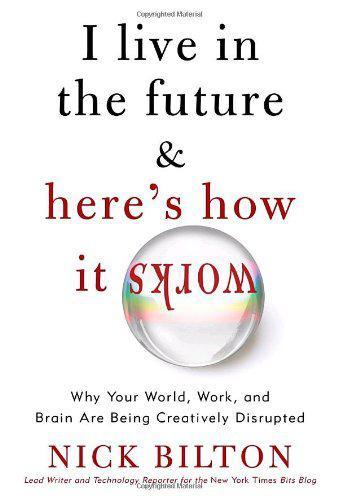
I Live in the Future & Here's How It Works: Why Your World, Work, and Brain Are Being Creatively Disrupted
by
Nick Bilton
Published 13 Sep 2010
That perspective is shared by Christopher Poole, founder of the message board 4chan, where people can anonymously post responses to just about anything, often using the entire range of four-letter words and pornographic images as well. Though he acknowledges that some posters say vile and disgusting things, he believes the people who come to his site have a right to do so anonymously without sharing any personal information. They have a right to make mistakes. Poole doesn’t keep any personal information about his users, and after a certain period, all the posts on 4chan disappear like products on a conveyor belt. When I talked to Poole for a profile interview, he told me about a recent technology conference he attended at which someone else defended anonymity, saying, “Part of the magic of youth is that people are able to forgive and forget.”
…
But our future will be much harsher without some understanding that what happens in the online world shouldn’t always stay there forever. You can be sure that Mann, Bell, and today’s cyborgs offer a glimpse of the future for a distant generation. Our mobile phones and digital cameras already record millions of photos each day. Just as it’s important that websites such as 4chan exist, even though most of society won’t agree with their content, it’s going to be equally important that certain aspects of the future allow us to forget pieces of the past. What the Future Will Look Like: More Personalized, More Possibilities If we don’t all self-destruct, what will be next for us on the technological front?
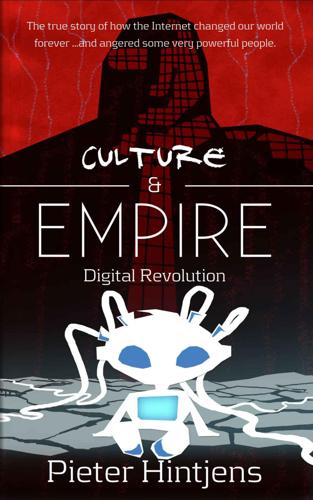
Culture & Empire: Digital Revolution
by
Pieter Hintjens
Published 11 Mar 2013
Digital political activism has never been more aggressive, confident, and successful as it confronts abusive cults, authoritarian governments, and dictators, and spreads its philosophical anarchist vision of the future. Anonymous, the faceless un-organization that grew from image-sharing forums like 4chan.org, is arguably one of the most powerful organizations on earth. What Drives Digital Society? Technology is not inevitable. Powerful drivers must exist in order for people to keep pushing the envelope and continue demanding more and more from a particular field of knowledge. In my view, digital society is driven by several factors.
…
We'll see various attacks on advanced cryptography, possibly through patents, or through laws that mandate the use of algorithms sanctioned by the NSA. If you want to do business with the Federal government, you will use such and such algorithms. This won't stop experts, though it would slow down mass adoption of secure systems. If Reddit or 4chan or any other major community starts to organize fully private forums using modern cryptography, they will be sold to better owners who will stop it, citing technical difficulties, child porn, or other reasons. An escalation of the fight between free political speech and censorship seems inevitable, and I think the outcome will mirror the older fight against file sharing.
…
However, while the previous fight took place in the courtroom where Scientology's money could work effectively, this new fight took place on the Internet, where, curiously, all of Scientology's money was worthless. This raises a side question, which I'll return to somewhat later, of exactly what currencies operate in this strange world. Wikipedia tells the story thus, "Project Chanology was formulated by users of the English-speaking imageboards 711chan.org and 4chan, the associated partyvan.info wiki, and several Internet Relay Chat channels, all part of a group collectively known as Anonymous, on January 16, 2008 after the Church of Scientology issued a copyright violation claim against YouTube for hosting material from the Cruise video." Before this, Anonymous was best known for ordering lots of pizzas for people they didn't like.
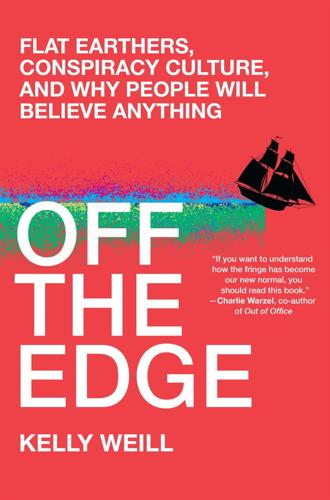
Off the Edge: Flat Earthers, Conspiracy Culture, and Why People Will Believe Anything
by
Kelly Weill
Published 22 Feb 2022
The phenomenon of alienation extends to other conspiratorial groups, like the QAnon community, the delirious and alarmingly bloodthirsty right-wing movement that accuses Trump’s foes of occult horrors, among a sea of shifting allegations. QAnon burst onto the scene in late 2017 when someone on the anonymous message board 4chan claimed to be a high-level military intelligence source, code-named Q. The person promised the imminent arrest of members of Hillary Clinton’s inner circle. Though the prophesied crackdowns never happened, the theory has morphed to accommodate different upsetting branches of conspiratorial thinking, like denialism of mass shootings and belief in secret government-run depopulation plots.
…
If the swastika is a chart-topping single, the sonnenrad is a deep cut: less mainstream but well known among true fans. Mike’s Big Dipper explanation was particularly obscure; I had to Google it to discern what the hell he was talking about, and even then I only got a few hits, largely from the notorious troll forum 4chan, as well as from a blog called Daily Bitcoin News, where a blogger explained why various Nazi symbols were, in his opinion, actually not racist. I moved on to the next vendor table, where I chatted with the saleswoman about the Flat Earth cover-up. I asked her, Who was bothering to conceal the shape of the earth?
…
During those years, far-right ruling parties in Poland and Hungary revived old conspiracy theories about Jewish domination plots. Back in the United States, a previously loose coalition of racists unified around the mantle of the “alt-right,” a movement that peddled fascist talking points through memes and 4chan jargon. The alt-right movement made itself unavoidable in August 2017, when members held a deadly rally in Charlottesville, Virginia. During a torchlit march, those white supremacists chanted “Jews will not replace us,” in reference to a bogus theory about Jews trying to make white people a minority.
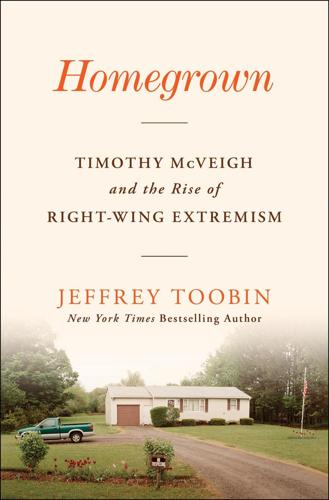
Homegrown: Timothy McVeigh and the Rise of Right-Wing Extremism
by
Jeffrey Toobin
Published 1 May 2023
Identifying a community of allies was even harder. Later, after McVeigh’s time, the internet made it easy. The literature of the movement became simple to find with a few clicks on a computer or phone, and it was free. Social media, either through major platforms like Facebook or specialized sites like 4chan, allowed for instant connections with potential allies. (One study sponsored by the Department of Homeland Security found that social media was used in 90 percent of extremist plots in the United States.) More than any other reason, the internet accounts for the difference between McVeigh’s lonely crusade and the thousands who stormed the Capitol on January 6, 2021
…
Patrick Crusius, a fan of The Turner Diaries who killed twenty-three people in an El Paso Walmart in 2019, posted on the online message board 8chan, as did John Earnest, who killed one and injured three at a Poway, California, synagogue. In 2022, Payton Gendron, who killed ten Black people in a Buffalo supermarket, used the instant messaging platform Discord. (In Gendron’s manifesto, he said he would post a livestream of his shooting spree to 4chan, an online cousin to 8chan.) Nor did extremists in later years have to search out obscure corners of the internet to see their ideas in circulation. Tucker Carlson of Fox News served as a major proponent of the great replacement theory, which was cited by the Pittsburgh, Poway, and Buffalo mass shooters.
…
Shortly before January 6, on a live-streamed Proud Boys show called WarBoys, Biggs said of those attempting to honor the results of the 2020 election: “They’re evil scum, and they all deserve to die a traitor’s death.” Ethan Nordean answered, “Yup, Day of the Rope”—invoking the cataclysmic day of violence from The Turner Diaries. On social media and sites such as 4chan, Telegram, and Stormfront, some users noted the parallels between the insurrection at the Capitol and the rebellion described in the novel. Some of the commenters asserted, with justification, that January 6 was the closest the nation had come to replicating the white supremacist triumph that concludes The Turner Diaries.

Like, Comment, Subscribe: Inside YouTube's Chaotic Rise to World Domination
by
Mark Bergen
Published 5 Sep 2022
Schaffer then created a loose principle that such videos needed enough “educational, documentary or scientific” value to stay up. Staff argued and debated. While unpolished, the moderation division felt agile and responsive. On top of watching YouTube, the SQUAD scanned recesses of the web for trends. They once were able to cut off a troll attack while reading 4chan, the toxic message board, which planned to flood YouTube with porn. Elsewhere on the web young girls posted “thinspiration” or “thinspo,” alarming photos and videos praising anorexia. One of Schaffer’s first policies was to “age-gate” this material, restricting it to posters aged eighteen and up and deleting videos from users marked under that age.
…
The supposed central scandal of Gamergate—that a video game received biased coverage—was not true, but this did not stop Gamergate from spreading like a cancer, forcing several women in the gaming industry to go into hiding after they were harassed and received death threats. It was Rush Limbaugh’s culture war moved online, magnified and untamed, like the internet itself. Gamergate largely expanded on social networks and web backwaters like 4chan, but on YouTube the evolving internet scandal provided plenty of grist for vloggers to make long, engaging content about something newsworthy, the kind of stuff algorithms ate up. Molyneux, the guru, turned sharper, angrier. He began a series of shows called “True News,” borrowing Limbaugh’s proven tactic of framing himself as loyal opposition to the mainstream media.
…
His mother worried about his mental health. “Patriots and nationalists triumphant,” he posted online after Trump’s election. Later, in his Lads group, he wrote, “Our greatest threat is the non-violent, high fertility, high social cohesion immigrants.” He read and absorbed material on the “Great Replacement.” Books, forums, 4chan, Facebook groups. Above all else, one service had undue influence, according to a report from the New Zealand government, which interviewed the terrorist after his act. This report concluded, “The individual claimed that he was not a frequent commenter on extreme right-wing sites and that YouTube was, for him, a far more significant source of information and inspiration.”
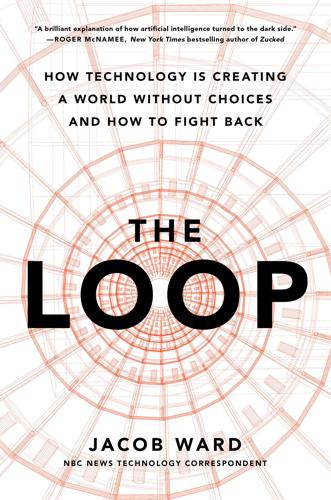
The Loop: How Technology Is Creating a World Without Choices and How to Fight Back
by
Jacob Ward
Published 25 Jan 2022
He was already playing a lot of video games, he says, and had encountered what he describes as a lot of casual racism in the chat and banter there, a sort of swirling vapor of white supremacy that was unmistakable but hard to pin down. And after his mother’s death, he began spending hours on online forums like 4chan, where he found, in memes and pictures and half-baked statistics, the beginnings of a new ideology and personal identity. He’s a slight, friendly, soft-spoken person. He plays in a band. He was working at a restaurant and planning a return to college when we spoke. And he described his lapse into what eventually became an enduring obsession with white nationalism as a slide so gradual he lost track of its progress.
…
And for someone like me to then come to America and, you know, be born here and grow up here, and then, you know, be okay with the kind of ideas that I—that I was okay with, I mean, that’s surreal.” He says that when he began exploring online forums, he had the conscious goal of fighting against racist ideology. “One of the first reasons why I started browsing the political board on 4chan was to look at and laugh at racist people,” he says. “But just being in that environment, being around so many of those people and just reading what they have to say about things…” He pauses. “It can change your mindset in ways that you don’t realize.” He also says that YouTube, where he’d go to investigate terms like “race realism,” consistently funneled him toward increasingly extreme content about crime, race, and immigration.
…
“Most people would look at me and say I’m a white person,” he tells me. He’s fair-skinned, with light-brown hair. “But I’m also a first-gen immigrant. It was really hard for me to find some sort of identity to latch on to. I didn’t really feel American enough. I didn’t really feel Bosnian enough.” And so when his nights on YouTube and his hours-long chats on 4chan and various games helped him find a community, he grabbed on. “When I saw them—sort of rallying around—behind, you know, this sort of ideological pull—I thought, ‘Well, okay, I guess I’m over here too.’” As Dunham could have told him, it feels really good to put on the orange or green T-shirt. And as Banaji could have told him, his conscious mind was not in control.
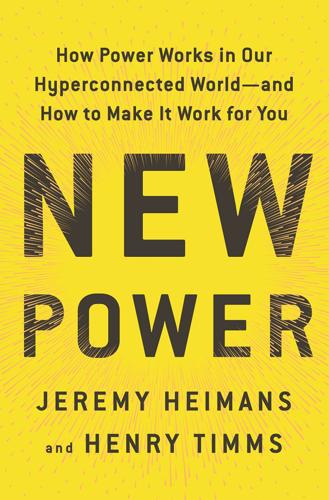
New Power: How Power Works in Our Hyperconnected World--And How to Make It Work for You
by
Jeremy Heimans
and
Henry Timms
Published 2 Apr 2018
To take a very different example, in 2016 Donald Trump’s connected connectors were an overlapping cadre of online activists and meme creators associated with the so-called alt-right, plus the vestiges of the Tea Party and gun rights diehards. This committed base was the catalyst for his crowdbuilding when he ran for president. They shared a broad set of passionate beliefs and were highly connected on message boards and platforms like Reddit and 4chan. They proved extremely effective at spreading messages and memes digitally, disseminating buzz about Trump and often false rumors or negative information about Hillary Clinton. Etsy, too, owes its early growth to a core of connected users. The online crafting marketplace now has tens of millions of members and generates hundreds of millions of dollars each year.
…
As we touched on in the introduction, Twitter turned him into the leader of a vast, decentralized social media army that took its cues from him—and in turn fed Trump new narratives, conspiracy theories, and lines of attack. It would become a deeply symbiotic relationship. On the night of Trump’s election victory, the bulletin boards of 4chan, a Reddit-like social network that attracts mainly young men and which prides itself on extreme views and provocations, lit up. The white supremacists who had championed Trump’s candidacy couldn’t believe their luck. As Abby Ohlheiser recounted in the Washington Post: “ ‘I’m f——trembling out of excitement brahs,’ one 4channer wrote Tuesday night, adding a very excited Pepe the Frog drawing.
…
That is some”: “Here’s Donald Trump’s Presidential Announcement Speech,” Time, June 16, 2015. He reportedly hired: Aaron Crouch and Emmett McDermott, “Donald Trump Campaign Offered Actors $50 to Cheer for Him at Presidential Announcement,” Hollywood Reporter, June 17, 2015. “ ‘I’m f——trembling’ ”: Abby Ohlheiser, “ ‘We Actually Elected a Meme as President’: How 4chan Celebrated Trump’s Victory,” Washington Post, November 9, 2016. The 4channers appropriated: Olivia Nuzzi, “How Pepe the Frog Became a Nazi Trump Supporter and Alt-Right Symbol,” Daily Beast, May 26, 2016. In one instance, he retweeted: Taylor Wafford, “Donald Trump Retweets Racist Propaganda,” Newsweek, November 23, 2015.
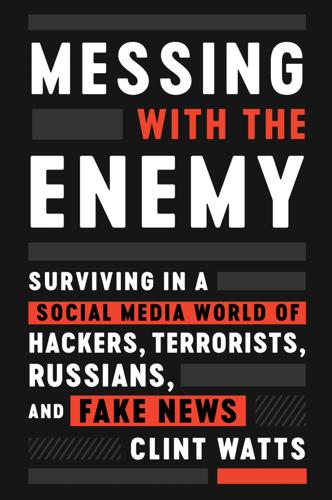
Messing With the Enemy: Surviving in a Social Media World of Hackers, Terrorists, Russians, and Fake News
by
Clint Watts
Published 28 May 2018
The best example of this approach is the story of Seth Rich, a DNC staffer murdered on July 10, 2016, who became a tragic conspiracy scapegoat among Russia meddling investigations. D.C. police believe that Rich’s murder was the result of a robbery gone wrong. WikiLeaks’ Julian Assange, however, issued a reward for details regarding the murder, suggesting that he may have been the source of the DNC email leak. Alt-right websites and conspiracy theorists on 4chan and Reddit posited the same explanation: Rich knew of DNC corruption, they said, and was a closet Bernie Sanders supporter seeking to air the truth.24 RT and Sputnik continued stirring up these allegations through public news stories, amplifying WikiLeaks’ conspiracies,25 and Russian diplomats joined in this counternarrative as well.
…
Russian state-sponsored news outlets, particularly RT, have successfully hosted and shared YouTube content that reaches audiences they could never engage with traditional television. With each click and share of their propaganda, they gain cookies, internet traffic data, and even distribution-list sign-ups for further targeting of specific audiences. Forgeries maligning Americans and their interests can be placed in an anonymous site like 4chan or Reddit and then shared across the entire information spectrum. Twitter—for Russia or any other influence effort—provides the single best way to propagate a message around the world. Finally, the Kremlin saturates American audiences with freedom-loving American personas on Facebook, Instagram, or even Pinterest, inundating, on a person-to-person level, key accounts, mobilizing mavens among like-minded audiences.
…
Each social media platform serves a purpose for active measures, and, through preference, Russia can help usher social media nations to information sources they’ve co-opted, repurposed, or even in some cases created to entice a useful audience. They use Twitter to infiltrate the preference bubble and reinforce useful narratives or spread new Kremlin ones. Facebook groups offer a circle of confirmation and implicit bias for saturating sympathetic audiences. Anonymous posting platforms like 4chan and Reddit offer the perfect platform for releasing kompromat, seeding ill-informed conspiracies suiting preference-bubble vulnerabilities, or rewriting history in support of false and alternative realities. LinkedIn is ideal for reconnaissance of foreign governments, defense contractors, and academia.

Mindf*ck: Cambridge Analytica and the Plot to Break America
by
Christopher Wylie
Published 8 Oct 2019
This economic deprivation was coupled with increasingly unattainable body image standards for men in conventional and social media (without the same public recognition of male body issues or gendered pressures as for women) and the growing importance placed on physical looks in a dating scene increasingly defined by swiping left or right on a split-second glance at a photo. And as women had become more economically independent, they could afford to be more selective about their partners. Deprived of good looks and a respectable paycheck, “average men” faced a hard reality of constant romantic rejection. Some of these men began congregating on forums like 4chan, which grew into a repository of memes, weird fantasy fandoms, niche porn, pop culture, and the countercultural reactions of frustrated youth in an increasingly atomized society. In the early 2010s, nihilistic discussions began among young men who were resigned to lives of loneliness. A new vocabulary emerged to describe their circumstances, including “betas” (inferior men), “alphas” (superior men), “vocels” (voluntary celibates), MGTOW (Men Going Their Own Way, walking away from women), “incels” (involuntary celibates), and “robots” (incels with Asperger’s).
…
This activity was largely seen by other players as cheating, and a civil suit and backlash online against the firm ensued. It’s possible this was Bannon’s early exposure to the rage of online communities; some of the commentary was reportedly “anti-Chinese vitriol.” Bannon became a regular reader of Reddit and 4chan and began to see the hidden anger that comes out when people are anonymous online. To him, they were revealing their true selves, unfiltered by a “political correctness” that was preventing them from speaking these “truths” in public. It was through the process of reading these forums that Bannon realized he could harness them and their anonymous swarms of resentment and harassment.
…
People reacted strongly to the notion that “liberals” were seeking new ways to mock and shame them, along with the idea that political correctness was a method of persecution. An effective Cambridge Analytica technique was to show subjects blogs that made fun of white people like them, such as People of Walmart. Bannon had been observing online communities on places like 4chan and Reddit for years, and he knew how often subgroups of angry young white men would share content of “liberal elites” mocking “regular” Americans. There had always been publications that parodied the “hicks” of flyover country, but social media represented an extraordinary opportunity to rub “regular” Americans’ noses in the snobbery of coastal elites.
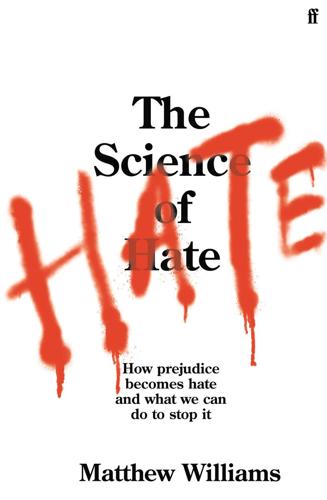
The Science of Hate: How Prejudice Becomes Hate and What We Can Do to Stop It
by
Matthew Williams
Published 23 Mar 2021
But not every person who is subjected to red-pilling and far-right gateway tactics becomes a terrorist. The majority who consume the online material share their thoughts with like-minded others, most likely online, but occasionally offline. Many who attended the Unite the Right rally in Charlottesville were encouraged to join it via posts on Facebook, Twitter, Reddit, 4chan, Discord and other platforms. The week before the rally, the Discord alt-right channel boasted over four thousand members, with over six hundred registering that they would attend.22 Demonstrating that online hate can migrate to offline world action, be it attending the Unite the Right rally, driving a car into a crowd of counter-protesters or storming the US Capitol, is a challenge for science.
…
In comparison, via Facebook, the US Centers for Disease Control (CDC) website received just 6.4 million interactions, and the World Health Organisation website 6.2 million.31 Much of the far-right social media chatter came from ‘accelerationists’ who believe that the collapse of the state can be brought about by extreme violence against liberal, black, Muslim and Jewish people. Over two hundred thousand posts by accelerationists across Twitter, Reddit, Tumblr, 4chan and Voat discussed how COVID-19 could be hijacked to speed up a ‘civil war between the races’. Posts urged the stockpiling of weapons and the gamification of violence against minorities where ‘players’ could earn points for kills in the impending civil war.32 Some of these posts were linked to offline violence.
…
Abdallah, Abdalraouf, 1 Abedi, Salman, 1, 2, 3, 4 abortion, 1, 2 Abu Sayyaf Group, 1 abuse, 1, 2, 3, 4, 5 accelerants to hate, 1, 2, 3, 4, 5, 6, 7, 8, 9, 10 accelerationists, 1 addiction, 1, 2, 3, 4 Admiral Duncan bar, 1 adolescence, 1, 2, 3, 4, 5, 6, 7 advertising, 1, 2, 3, 4, 5 African Americans, 1, 2, 3, 4, 5, 6, 7 afterlife, 1, 2 age, 1, 2 aggression: brain and hate, 1, 2, 3, 4, 5; false alarms, 1; group threat, 1, 2, 3, 4, 5, 6; identity fusion, 1; mortality, 1; pyramid of hate, 1; trauma and containment, 1, 2 AI, see artificial intelligence Albright, Jonathan, 1 alcohol, 1, 2, 3, 4, 5, 6, 7, 8 algorithms: far-right hate, 1, 2, 3, 4; filter bubbles and bias, 1, 2; Google, 1, 2, 3; online hate speech, 1, 2, 3, 4, 5, 6; Tay, 1, 2; tipping point, 1, 2; YouTube, 1 Algotransparency.org, 1 Allport, Gordon, 1, 2, 3, 4 Al Noor Mosque, Christchurch, 1 al-Qaeda, 1, 2 Alternative für Deutschland (AfD), 1 alt-right: algorithms, 1, 2; brain and hate, 1; Charlottesville rally, 1, 2; counter-hate speech, 1; definition, 1n; Discord, 1; Facebook, 1, 2, 3; fake accounts, 1; filter bubbles, 1, 2; red-pilling, 1, 2; social media, 1, 2; Trump, 1, 2; YouTube, 1 Alzheimer’s disease, 1 American Crowbar Case, 1 American culture, 1 American Nazi Party, 1, 2 Amodio, David, 1n amygdala: brain and signs of prejudice, 1, 2; brain tumours, 1; disengaging the amygdala autopilot, 1; hate and feeling pain, 1, 2; and insula, 1; neuroscience of hate, 1n, 2, 3, 4; parts that edge us towards hate, 1; parts that process prejudice, 1; prepared versus learned amygdala responses, 1, 2; processing of ‘gut-deep’ hate, 1; recognising facial expressions, 1n, 2; stopping hate, 1, 2; trauma and containment, 1, 2; unlearning prejudiced threat detection, 1 anger, 1, 2, 3, 4, 5, 6, 7, 8 anonymity, 1, 2 anterior insula, 1n Antifa, 1, 2n, 3 anti-gay prejudice, 1, 2, 3, 4, 5, 6, 7, 8 anti-hate initiatives, 1, 2 antilocution, 1 anti-Muslim hate, 1, 2, 3, 4, 5, 6 anti-Semitism, 1, 2, 3, 4, 5, 6 anti-white hate crime, 1 Antonissen, Kirsten, 1, 2 anxiety: brain and hate, 1, 2, 3, 4; harm of hate speech, 1; intergroup contact, 1, 2; subcultures of hate, 1, 2; trauma and containment, 1; trigger events, 1, 2 Arab people, 1, 2, 3, 4, 5, 6 Arbery, Ahmaud, 1 Arkansas, 1, 2 artificial intelligence (AI), 1, 2, 3, 4 Asian Americans, 1, 2 Asian people, 1, 2, 3, 4 assault, 1, 2, 3 asylum seekers, 1, 2, 3, 4 Athens, 1 Atlanta attack, 1 Atran, Scott, 1, 2 attachment, 1 attention, 1, 2, 3 attitudes, 1, 2, 3, 4, 5, 6 Aung San Suu Kyi, 1 austerity, 1 Australia, 1 autism, 1 averages, 1, 2 avoidance, 1, 2, 3 Bali attack, 1 Bangladeshi people, 1 BBC (British Broadcasting Corporation), 1, 2, 3 behavioural sciences, 1, 2 behaviour change, 1, 2, 3 beliefs, 1, 2, 3 Bell, Sean, 1, 2 Berger, Luciana, 1 Berlin attacks, 1 bias: algorithms, 1; brain and hate, 1, 2, 3, 4, 5, 6, 7; filter bubbles, 1; Google Translate, 1; group threat, 1, 2, 3, 4; police racial bias, 1; predicting hate crime, 1; stopping hate, 1, 2, 3; unconscious bias, 1, 2, 3, 4 Bible, 1 Biden, Joe, 1 ‘Big Five’ personality traits, 1 biology, 1, 2, 3, 4, 5, 6, 7 Birstall, 1 bisexual people, 1 Black, Derek, 1, 2 Black, Don, 1, 2, 3 blackface, 1 Black Lives Matter, 1 Black Mirror, 1n black people: author’s brain and hate, 1, 2, 3, 4, 5; brain and signs of prejudice, 1, 2; brain parts that edge us towards hate, 1; brain parts that process prejudice, 1; Charlottesville rally, 1, 2; disengaging the amygdala autopilot, 1; Duggan shooting, 1; feeling pain, 1; Google searches, 1, 2; group threat, 1, 2, 3, 4; online hate speech, 1, 2, 3, 4; police relations, 1, 2; predicting hate crime, 1, 2; prepared versus learned amygdala responses, 1; pyramid of hate, 1, 2, 3n; recognising facial expressions, 1, 2; South Africa, 1; steps to stop hate, 1, 2, 3, 4; trauma and Franklin, 1, 2, 3, 4; trigger events, 1, 2, 3; unconscious bias, 1; unlearning prejudiced threat detection, 1, 2; white flight, 1 BNP, see British National Party Bolsonaro, Jair, 1 Bosnia and Herzegovina, 1, 2 bots, 1, 2, 3, 4, 5 Bowers, Robert Gregory, 1 boys, 1, 2 Bradford, 1 brain: ancient brains in modern world, 1; author’s brain and hate, 1; beyond the brain, 1; the brain and hate, 1; brain and signs of prejudice, 1; brain damage and tumours, 1, 2, 3, 4; brains and unconscious bias against ‘them’, 1; brain’s processing of ‘gut-deep’ hate, 1; defence mechanisms, 1; disengaging the amygdala autopilot, 1; figures, 1; finding a neuroscientist and brain scanner, 1; group threat detection, 1, 2; hacking the brain to hate, 1; hate and feeling pain, 1; locating hate in the brain, 1; neuroscience and big questions about hate, 1; overview, 1; parts that edge us towards hate, 1; parts that process prejudice, 1; prepared versus learned amygdala responses, 1; recognising facial expressions, 1; rest of the brain, 1; signs of prejudice, 1; steps to stop hate, 1, 2; tipping point to hate, 1, 2, 3, 4, 5; trauma and containment, 1, 2; unlearning prejudiced threat detection, 1; where neuroscience of hate falls down, 1 brain imaging: author’s brain and hate, 1; beyond the brain, 1; the brain and hate, 1; brain and signs of prejudice, 1, 2; brain injury, 1, 2; Diffusion MRI, 1; disengaging the amygdala autopilot, 1; finding a neuroscientist and brain scanner, 1; fusiform face area, 1; locating hate in the brain, 1; MEG, 1; neuroscience of hate, 1, 2, 3; parts that process prejudice, 1; prepared versus learned amygdala responses, 1; processing of ‘gut-deep’ hate, 1; subcultures of hate, 1, 2; unconscious bias, 1 brainwashing, 1, 2 Bray, Mark, 1n Brazil, 1, 2, 3 Breivik, Anders, 1, 2 Brexit, 1, 2, 3, 4n, 5, 6, 7, 8, 9 Brexit Party, 1, 2 Brick Lane, London, 1 Britain First, 1, 2 British identity, 1, 2 British National Party (BNP), 1, 2n, 3, 4, 5 Brixton, 1 Broadmoor Hospital, 1, 2 Brooker, Charlie, 1n Brooks, Rayshard, 1 Brown, Katie, 1, 2 Brown, Michael, 1, 2 Brussels attack, 1 Budapest Pride, 1 bullying, 1, 2 Bundy, Ted, 1 burka, 1, 2, 3 Burmese, 1 Bush, George W., 1 Byrd, James, Jr, 1 California, 1, 2n, 3 Caliskan, Aylin, 1 Cambridge Analytica, 1, 2 cancer, 1, 2 Cardiff University Brain Research Imaging Centre (CUBRIC), 1, 2, 3, 4 caregiving motivational system, 1 care homes, 1, 2 Casablanca, 1 cascade effect, 1, 2 categorisation, 1, 2, 3, 4 Catholics, 1 Caucasian Crew, 1 causality, 1, 2 celebrities, 1, 2, 3, 4 censorship, 1, 2 Centennial Olympic Park, Atlanta, 1 Centers for Disease Control (CDC), 1 change blindness, 1 charity, 1, 2, 3 Charlottesville rally, 1, 2, 3n, 4 chatbots, 1, 2, 3 Chauvin, Derek, 1 Chelmsford, 1 Chicago, 1 childhood: attachment issues, 1; child abuse, 1, 2, 3; child grooming, 1; child play, 1; failures of containment, 1, 2, 3, 4; group threat, 1, 2; intergroup contact, 1, 2; learned stereotypes, 1; online hate speech, 1, 2; predicting hate crime, 1; trauma and containment, 1, 2, 3, 4, 5, 6, 7, 8, 9, 10; trigger events, 1, 2; understanding the ‘average’ hate criminal, 1; understanding the ‘exceptional’ hate offender, 1, 2, 3 China, 1, 2, 3, 4 Chinese people, 1, 2, 3 ‘Chinese virus,’ 1, 2 Cho, John, 1 Christchurch mosque attack, 1 Christianity, 1, 2, 3 cinema, 1 citizen journalism, 1 civilising process, 1 civil rights, 1, 2, 3, 4 class, 1, 2 cleaning, 1 climate change, 1, 2 Clinton, Hillary, 1, 2 cognitive behavioural therapy, 1 cognitive dissonance, 1 Cohen, Florette, 1, 2 Cold War, 1 collective humiliation, 1 collective quests for significance, 1, 2 collective trauma, 1, 2 colonialism, 1n, 2 Combat 1, 2 comedies, 1, 2, 3 Communications Acts, 1, 2 compassion, 1, 2, 3 competition, 1, 2, 3, 4, 5, 6, 7, 8 confirmation bias, 1 conflict, 1, 2, 3, 4 conflict resolution, 1, 2, 3, 4, 5 Connectome, 1 Conroy, Jeffrey, 1 Conservative Party, 1, 2, 3 conspiracy theories, 1, 2, 3 contact with others, 1, 2 containment: failures of, 1; hate as container of unresolved trauma, 1; understanding the ‘exceptional’ hate offender, 1, 2, 3 content moderation, 1, 2, 3 context, 1, 2, 3 Convention of Cybercrime, 1 cooperation, 1, 2, 3, 4, 5, 6 Copeland, David, 1, 2, 3, 4, 5, 6, 7 coping mechanisms, 1, 2, 3, 4, 5, 6, 7 Cordoba House (‘Ground Zero mosque’), 1 correction for multiple comparisons, 1, 2n ‘corrective rape’, 1, 2 cortisol, 1 Council of Conservative Citizens, 1n counter-hate speech, 1, 2, 3, 4 courts, 1, 2, 3, 4, 5, 6 COVID-19 pandemic, 1, 2, 3 Cox, Jo, 1, 2, 3 Criado Perez, Caroline, 1 crime, 1, 2, 3, 4, 5, 6, 7 Crime and Disorder Act 1998, 1n crime recording, 1, 2, 3, 4 crime reporting, 1, 2, 3, 4, 5, 6, 7 Crime Survey for England and Wales (CSEW), 1 criminal justice, 1, 2, 3 Criminal Justice Act, 1, 2n criminal prosecution, 1, 2 criminology, 1, 2, 3, 4, 5, 6 cross-categorisation, 1 cross-race or same-race effect, 1 Crusius, Patrick, 1, 2 CUBRIC (Cardiff University Brain Research Imaging Centre), 1, 2, 3, 4 cultural ‘feeding’, 1, 2, 3, 4, 5 cultural worldviews, 1, 2, 3, 4, 5, 6, 7 culture: definitions, 1; group threat, 1, 2, 3; steps to stop hate, 1, 2, 3; tipping point, 1, 2, 3, 4, 5; unlearning prejudiced threat detection, 1 culture machine, 1, 2, 3, 4, 5 culture wars, 1 Curry and Chips, 1 cybercrime, 1 dACC, see dorsal anterior cingulate cortex Daily Mail, 1, 2 Dailymotion, 1 Daily Stormer, 1, 2n Daley, Tom, 1, 2 Darfur, 1 dark matter, 1 death: events that remind us of our mortality, 1; newspapers, 1; predicting hate crime, 1; religion and hate, 1, 2; subcultures of hate, 1, 2; trigger events, 1, 2 death penalty, 1, 2 death threats, 1 decategorisation, 1 De Dreu, Carsten, 1, 2, 3, 4 deep learning, 1, 2 defence mechanisms, 1 defensive haters, 1, 2 dehumanisation, 1, 2, 3, 4, 5, 6 deindividuation, 1, 2 deindustrialisation, 1, 2, 3, 4 Democrats, 1, 2, 3 Denny, Reginald, 1 DeSalvo, Albert (the Boston Strangler), 1 desegregation, 1, 2, 3 Desmond, Matthew, 1 Dewsbury, 1, 2, 3 Diffusion Magnetic Resonance Imaging (Diffusion MRI), 1, 2 diminished responsibility, 1, 2 Director of Public Prosecutions (DPP), 1 disability: brain and hate, 1, 2; group threat, 1, 2, 3, 4, 5, 6; intergroup contact, 1; Japan care home, 1, 2; online hate speech, 1; profiling the hater, 1; suppressing prejudice, 1; victim perception, 1n Discord, 1, 2, 3, 4 discrimination: brain and hate, 1, 2; comedy programmes, 1; Google searches, 1; Japan laws, 1; preference for ingroup, 1; pyramid of hate, 1, 2, 3; questioning prejudgements, 1; trigger events, 1, 2, 3 disgust: brain and hate, 1, 2, 3, 4, 5, 6; group threat detection, 1, 2, 3; ‘gut-deep’ hate, 1, 2; Japan care home, 1; what it means to hate, 1, 2 disinformation, 1, 2, 3 displacement, 1, 2 diversity, 1, 2, 3 dlPFC, see dorsolateral prefrontal cortex domestic violence, 1, 2, 3, 4, 5, 6, 7, 8, 9, 10 Doran, John, 1, 2, 3 dorsal anterior cingulate cortex (dACC), 1, 2, 3n, 4, 5, 6, 7, 8, 9 dorsolateral prefrontal cortex (dlPFC), 1n, 2, 3 Douglas, Mary, Purity and Danger, 1 drag queens, 1 drugs, 1, 2, 3, 4, 5, 6, 7, 8, 9 Duggan, Mark, 1 Duke, David, 1 Dumit, Joe, Picturing Personhood, 1 Durkheim, Emile, 1 Dykes, Andrea, 1 Earnest, John T., 1 Eastern Europeans, 1, 2, 3 Ebrahimi, Bijan, 1, 2, 3, 4, 5, 6 echo chambers, 1, 2n economy, 1, 2, 3, 4, 5, 6 EDL, see English Defence League education, 1, 2, 3, 4 Edwards, G., 1 8chan, 1, 2 elections, 1, 2, 3, 4, 5, 6 electroencephalography, 1n elites, 1 ELIZA (computer program), 1 The Ellen Show, 1 El Paso shooting, 1 Elrod, Terry, 1 Emancipation Park, Charlottesville, 1 Emanuel African Methodist Church, Charleston, 1 emotions: brain and hate, 1, 2, 3, 4n, 5, 6, 7, 8, 9; group threat, 1; subcultures of hate, 1; trigger events and mortality, 1; what it means to hate, 1, 2, 3, 4 empathy: brain and hate, 1, 2, 3, 4, 5, 6; feeling hate together, 1; group threat, 1, 2; steps to stop hate, 1, 2, 3; subcultures of hate, 1; trauma and containment, 1 employment, 1, 2, 3, 4, 5, 6, 7 English Defence League (EDL), 1, 2n, 3 epilepsy, 1, 2, 3, 4, 5 Epstein, Robert, 1 equality, 1, 2 Essex, 1 ethnicity, 1, 2n, 3, 4 ethnic minorities, 1, 2, 3, 4, 5, 6 ethnocentrism, 1 EU, see European Union European Commission, 1, 2 European Digital Services Act, 1 European Parliament, 1, 2 European Social Survey, 1 European Union (EU): Brexit referendum, 1, 2, 3, 4n, 5; Facebook misinformation, 1; group threat, 1, 2; online hate speech, 1, 2, 3; trigger events, 1 Eurovision, 1 evidence-based hate crime, 1 evolution, 1, 2, 3, 4, 5, 6, 7, 8 executive control area: brain and hate, 1, 2, 3, 4, 5, 6, 7, 8; disengaging the amygdala autopilot, 1, 2; extremism, 1; recognising false alarms, 1; trauma and containment, 1; trigger events, 1 exogenous shocks, 1 expert opinion, 1 extreme right, 1, 2, 3, 4, 5 extremism: Charlottesville and redpilling, 1, 2; feeling hate together, 1; online hate speech, 1; perceiving versus proving hate, 1; quest for significance, 1, 2, 3; subcultures of hate, 1, 2, 3, 4, 5, 6, 7; trauma and containment, 1; trigger events, 1, 2, 3 Facebook: algorithms, 1, 2; Charlottesville rally, 1, 2; Christchurch mosque attack, 1; far-right hate, 1, 2, 3, 4, 5; filter bubbles, 1, 2; how much online hate speech, 1, 2; Myanmar genocide, 1; online hate and offline harm, 1, 2, 3; redpilling, 1; stopping online hate speech, 1, 2, 3, 4 facial expression, 1, 2, 3, 4 faith, 1, 2 fake accounts, 1, 2; see also bots fake news, 1, 2, 3, 4 false alarms, 1, 2, 3 Farage, Nigel, 1, 2 far left, 1n, 2, 3, 4 Farook, Syed Rizwan, 1 far right: algorithms, 1, 2, 3, 4; brain injury, 1; Charlottesville rally, 1, 2, 3n, 4; COVID-19 pandemic, 1, 2; Facebook, 1, 2, 3, 4, 5; filter bubbles, 1, 2; gateway sites, 1; group threat, 1, 2; red-pilling, 1; rise of, 1; stopping online hate speech, 1; subcultures of hate, 1, 2, 3, 4, 5; terror attacks, 1, 2, 3; tipping point, 1, 2; trauma and containment, 1, 2, 3, 4n; trigger events, 1, 2; YouTube, 1 fathers, 1, 2, 3 FBI, see Federal Bureau of Investigation fear: brain and hate, 1, 2, 3, 4, 5, 6, 7; feeling hate together, 1; group threat, 1, 2, 3, 4, 5; mortality, 1; online hate speech, 1, 2, 3; steps to stop hate, 1, 2; trauma and containment, 1, 2; trigger events, 1, 2, 3 Federal Bureau of Investigation (FBI), 1, 2, 3, 4, 5, 6, 7 Federation of American Immigration Reform, 1 Ferguson, Missouri, 1 Festinger, Leon, 1 fiction, 1 Fields, Ted, 1 50 Cent Army, 1 ‘fight or flight’ response, 1, 2, 3 films, 1, 2 filter bubbles, 1, 2, 3, 4 Finland, 1, 2, 3, 4, 5, 6 Finsbury Park mosque attack, 1, 2, 3 first responders, 1 Fiske, Susan, 1 Five Star Movement, 1 flashbacks, 1 Florida, 1, 2 Floyd, George, 1, 2, 3 Flynt, Larry, 1 fMRI (functional Magnetic Resonance Imaging), 1, 2, 3, 4, 5, 6, 7 football, 1, 2, 3, 4, 5 football hooligans, 1, 2 Forever Welcome, 1 4chan, 1, 2 Fox News, 1, 2 Franklin, Benjamin, 1 Franklin, Joseph Paul, 1, 2, 3, 4, 5, 6, 7, 8 Fransen, Jayda, 1 freedom fighters, 1, 2 freedom of speech, 1, 2, 3, 4, 5, 6 frustration, 1, 2, 3, 4 functional Magnetic Resonance Imaging (fMRI), 1, 2, 3, 4, 5, 6, 7 fundamentalism, 1, 2 fusiform face area, 1 fusion, see identity fusion Gab, 1 Gadd, David, 1, 2n, 3, 4 Gaddafi, Muammar, 1, 2 Gage, Phineas, 1, 2 galvanic skin responses, 1 Gamergate, 1 gateway sites, 1 gay people: author’s experience, 1, 2, 3; brain and hate, 1, 2; Copeland attacks, 1, 2; COVID-19 pandemic, 1; filter bubbles, 1; gay laws, 1; gay marriage, 1, 2, 3; group associations, 1; group threat, 1, 2, 3, 4, 5; hate counts, 1, 2, 3, 4; physical attacks, 1, 2; profiling the hater, 1; Russia, 1, 2, 3, 4, 5; Section 1, 2, 3, 4; steps to stop hate, 1, 2, 3; trigger events, 1, 2; why online hate speech hurts, 1; see also LGBTQ+ people gay rights, 1, 2, 3, 4 gender, 1, 2, 3, 4, 5, 6, 7 Generation Identity, 1 Generation Z, 1, 2 genetics, 1n, 2, 3 genocide, 1, 2, 3, 4, 5, 6 Georgia (country), 1 Georgia, US, 1, 2, 3, 4 Germany, 1, 2, 3, 4, 5, 6, 7 Gilead, Michael, 1 ginger people, 1 girls, and online hate speech, 1 Gladwell, Malcolm, 1 Global Project Against Hate and Extremism, 1 glucocorticoids, 1, 2 God, 1, 2 God’s Will, 1, 2 Goebbels, Joseph, 1 Google, 1, 2, 3, 4, 5, 6, 7, 8 Google+, 1 Google Translate, 1 goth identity, 1, 2, 3, 4 governments, 1, 2, 3, 4, 5, 6 Grant, Oscar, 1 gravitational waves, 1 Great Recession (2007–9), 1 Great Replacement conspiracy theory, 1 Greece, 1, 2 Greenberg, Jeff, 1, 2, 3 Greene, Robert, 1 grey matter, 1 Grillot, Ian, 1, 2 Grodzins, Morton, 1 grooming, 1, 2, 3 ‘Ground Zero mosque’ (Cordoba House), 1 GroupMe, 1 groups: ancient brains in modern world, 1; brain and hate, 1, 2, 3, 4; childhood, 1; feeling hate together, 1; foundations of prejudice, 1; group threat and hate, 1; identity fusion, 1, 2, 3; intergroup hate, 1; pyramid of hate, 1; reasons for hate offending, 1; steps to stop hate, 1, 2; tipping point, 1, 2, 3, 4; warrior psychology, 1, 2, 3; what it means to hate, 1, 2 group threat, 1; beyond threat, 1; Bijan as the threatening racial other, 1; context and threat, 1; cultural machine, group threat and stereotypes, 1; evolution of group threat detection, 1; human biology and threat, 1; neutralising the perception of threat, 1; overview, 1; society, competition and threat, 1; threat in their own words, 1 guilt, 1, 2, 3, 4 guns, 1, 2 ‘gut-deep’ hate, 1, 2, 3, 4 Haines, Matt, 1 Haka, 1 Halle Berry neuron, 1, 2 harassment, 1, 2, 3, 4, 5 harm of hate, 1, 2, 3, 4, 5, 6, 7 Harris, Brendan, 1 Harris, Lasana, 1 Harris, Lovell, 1, 2, 3, 4 hate: author’s brain and hate, 1; the brain and hate, 1; definitions, 1, 2; feeling hate together, 1; foundations of prejudice and hate, 1, 2, 3; group threat and hate, 1; ‘gut-deep’ hate, 1, 2; hate counts, 1; hate in word and deed, 1; profiling the hater, 1; pyramid of hate, 1; rise of the bots and trolls, 1; seven steps to stop hate, 1; subcultures of hate, 1; tipping point from prejudice to hate, 1; trauma, containment and hate, 1; trigger events and ebb and flow of hate, 1; what it means to hate, 1 hate counts, 1; criminalising hate, 1; how they count, 1; overview, 1; perceiving versus proving hate, 1; police and hate, 1; rising hate count, 1; ‘signal’ hate acts and criminalisation, 1; Sophie Lancaster, 1; warped world of hate, 1 hate crime: author’s experience, 1, 2, 3; brain and hate, 1, 2, 3, 4, 5; definitions, 1; events and hate online, 1; events and hate on the streets, 1, 2; the ‘exceptional’ hate criminal, 1; far-right hate, 1, 2, 3; foundations of prejudice and hate, 1, 2, 3, 4; group threat, 1, 2, 3, 4, 5, 6, 7, 8; hate counts, 1, 2, 3, 4, 5; laws, 1n, 2, 3, 4, 5; number of crimes, 1, 2; online hate speech, 1, 2, 3, 4; predicting hate crime, 1; profiling the hater, 1; steps to stop hate, 1, 2, 3; trauma and containment, 1, 2, 3, 4; trigger events, 1, 2, 3, 4, 5, 6; understanding the ‘average’ hate criminal, 1; understanding the ‘exceptional’ hate offender, 1; what it means to hate, 1, 2, 3 hate groups, 1, 2, 3, 4, 5 hate in word and deed, 1; algorithmic far right, 1; Charlottesville rally, 1, 2, 3n, 4; extreme filter bubbles, 1; game changer for the far right, 1; gateway sites, 1; overview, 1; ‘real life effort post’ and Christchurch, 1; red-pilling, 1 HateLab, 1, 2, 3, 4, 5 hate speech: far-right hate, 1, 2, 3; filter bubbles and bias, 1; harm of, 1; how much online hate speech, 1; Japan laws, 1; pyramid of hate, 1; stopping online hate speech, 1; Tay chatbot, 1; trigger events, 1, 2, 3; why online hate speech hurts, 1 hate studies, 1, 2 ‘hazing’ practices, 1 health, 1, 2, 3, 4 Henderson, Russell, 1 Herbert, Ryan, 1 Hewstone, Miles, 1 Heyer, Heather, 1 Hinduism, 1, 2 hippocampus, 1, 2, 3, 4 history of offender, 1 Hitler, Adolf, 1, 2, 3, 4, 5, 6, 7 HIV/AIDS, 1, 2, 3, 4, 5, 6, 7 hollow mask illusion, 1, 2 Hollywood, 1, 2 Holocaust, 1, 2, 3, 4 Homicide Act, 1n homophobia: author’s experience, 1, 2, 3, 4; brain and hate, 1, 2, 3; evidence-based hate crime, 1; federal law, 1; jokes, 1; online hate speech, 1, 2; Russia, 1, 2; Shepard murder, 1; South Africa, 1; trauma and containment, 1; victim perception of motivation, 1n Homo sapiens, 1 homosexuality: author’s experience, 1; online hate speech, 1; policing, 1; questioning prejudgements, 1; Russia, 1, 2; trauma and containment, 1, 2; see also gay people hooligans, 1, 2 Horace, 1 hormones, 1, 2, 3 hot emotions, 1 hot-sauce study, 1, 2 housing, 1, 2, 3, 4, 5, 6 Huddersfield child grooming, 1 human rights, 1, 2, 3 humiliation, 1, 2, 3, 4, 5, 6 humour, 1, 2 Hungary, 1 hunter-gatherers, 1n, 2 Hustler, 1 IAT, see Implicit Association Test identity: author’s experience of attack, 1; British identity, 1, 2; Charlottesville rally, 1, 2; children’s ingroups, 1; group threat, 1, 2; online hate speech, 1, 2, 3, 4; steps to stop hate, 1, 2 identity fusion: fusion and hateful murder, 1; fusion and hateful violence, 1; fusion and self-sacrifice in the name of hate, 1; generosity towards the group, 1; tipping point, 1, 2; warrior psychology, 1, 2, 3 ideology, 1, 2, 3, 4 illegal hate speech, 1, 2, 3, 4 illocutionary speech, 1 imaging, see brain imaging immigration: Forever Welcome, 1; group threat, 1, 2, 3, 4, 5, 6, 7; hate counts, 1n, 2; HateLab Brexit study, 1; identity fusion, 1; intergroup contact, 1; negative stereotypes, 1; online hate speech, 1; Purinton, 1, 2; trauma and containment, 1, 2, 3; trigger events, 1, 2n, 3, 4, 5, 6, 7; YouTube algorithms, 1 immortality, 1, 2 Implicit Association Test (IAT), 1, 2, 3, 4, 5, 6, 7, 8, 9 implicit prejudice: author’s brain and hate, 1, 2, 3, 4; brain and hate, 1, 2, 3, 4, 5, 6; online hate speech, 1, 2 India, 1 Indonesia, 1 Infowars, 1, 2 Ingersoll, Karma, 1 ingroup: brain and hate, 1, 2, 3, 4; child play, 1; group threat, 1, 2, 3, 4, 5, 6, 7; HateLab Brexit study, 1; identity fusion, 1, 2; pyramid of hate, 1; reasons for hate offending, 1; trigger events, 1, 2, 3; what it means to hate, 1, 2, 3, 4, 5 Instagram, 1, 2, 3 Institute for Strategic Dialogue, 1 institutional racism, 1 instrumental crimes, 1 insula: brain and signs of prejudice, 1, 2, 3; facial expressions, 1, 2; fusiform face area, 1; hacking the brain to hate, 1; hate and feeling pain, 1; neuroscience of hate, 1n, 2, 3, 4, 5; parts that edge us towards hate, 1; parts that process prejudice, 1; processing of ‘gut-deep’ hate, 1, 2 Integrated Threat Theory (ITT), 1, 2, 3 integration, 1, 2, 3, 4 intergroup contact, 1, 2, 3 Intergroup Contact Theory, 1, 2, 3 intergroup hate, 1, 2, 3, 4 internet: algorithms, 1, 2; chatbots, 1; counterhate speech, 1; COVID-19 pandemic, 1; far-right hate, 1, 2, 3, 4, 5, 6, 7; filter bubbles, 1, 2, 3; Google searches, 1; hate speech harm, 1; how much online hate speech, 1; online news, 1; reasons for hate offending, 1; rise of the bots and trolls, 1; stopping online hate speech, 1; tipping point, 1, 2, 3; training the machine to count hate, 1; why online hate speech hurts, 1 interracial relations, 1, 2, 3, 4 intolerance, 1, 2 Iranian bots, 1 Iraq, 1 Irish Republican Army (IRA), 1 ISIS, 1, 2, 3, 4, 5, 6, 7, 8, 9 Islam: group threat, 1; online hate speech, 1, 2, 3, 4, 5; steps to stop hate, 1, 2, 3; subcultures of hate, 1, 2, 3, 4; trigger events, 1, 2, 3 Islamism: group threat, 1; online hate speech, 1, 2, 3, 4; profiling the hater, 1; subcultures of hate, 1, 2, 3; trigger events, 1, 2, 3 Islamophobia, 1, 2, 3, 4 Israel, 1, 2, 3 Italy, 1, 2 ITT, see Integrated Threat Theory James, Lee, 1, 2, 3, 4, 5, 6 Japan, 1, 2, 3 Jasko, Katarzyna, 1 Jefferson, Thomas, 1 Jenny Lives with Eric and Martin, 1 Jewish people: COVID-19 pandemic, 1, 2; far-right hate, 1, 2, 3, 4, 5; filter bubbles, 1; Google searches, 1, 2; group threat, 1; Nazism, 1, 2; negative stereotypes, 1 2 online hate speech, 1; pyramid of hate, 1; questioning prejudgements, 1; ritual washing, 1; subcultures of hate, 1, 2; trauma and Franklin, 1, 2, 3 jihad, 1, 2, 3, 4, 5 jokes, 1, 2, 3, 4, 5, 6, 7 Jones, Alex, 1 Jones, Terry, 1 Josephson junction, 1 Judaism, 1; see also Jewish people Jude, Frank, Jr, 1, 2, 3, 4, 5 Kansas, 1 Kerry, John, 1 Kik, 1 King, Gary, 1 King, Martin Luther, Jr, 1, 2 King, Rodney, 1, 2, 3 King, Ryan, 1 Kirklees, 1, 2 KKK, see Ku Klux Klan Kuchibhotla, Srinivas, 1, 2, 3, 4 Kuchibhotla, Sunayana, 1, 2 Ku Klux Klan (KKK), 1, 2, 3n, 4, 5, 6, 7 Labour Party, 1, 2, 3 Lancaster, Sophie, 1, 2 language, 1, 2, 3, 4, 5, 6, 7 LAPD (Los Angeles Police Department), 1 Lapshyn, Pavlo, 1 Lashkar-e-Taiba, 1 Las Vegas shooting, 1, 2 Latinx people, 1, 2, 3, 4, 5, 6, 7 law: brain and hate, 1, 2, 3; criminalising hate, 1; hate counts, 1, 2, 3; Kansas shooting, 1; limited laws, 1; online hate speech, 1; pyramid of hate, 1 Law Commission, 1 Lawrence, Stephen, 1 learned fears, 1, 2, 3 Leave.EU campaign, 1, 2 Leave voters, 1, 2, 3n Lee, Robert E., 1, 2, 3 left orbitofrontal cortex, 1n, 2n Legewie, Joscha, 1, 2, 3, 4 lesbians, 1, 2 Levin, Jack, 1 LGBTQ+ people, 1, 2, 3, 4, 5, 6, 7, 8, 9, 10, 11, 12, 13, 14, 15, 16, 17; see also gay people LIB, see Linguistic Intergroup Bias test Liberman, Nira, 1 Liberty Park, Salt Lake City, 1, 2 Libya, 1, 2, 3, 4 Light, John, 1 Linguistic Intergroup Bias (LIB) test, 1 Liverpool, 1, 2 Livingstone, Ken, 1, 2 Loja, Angel, 1 London: author’s experience of attack, 1; Copeland nail bombing, 1, 2; Duggan shooting, 1; far-right hate, 1; group threat, 1, 2, 3; online hate speech, 1, 2; Rigby attack, 1; terror attacks, 1, 2, 3, 4, 5, 6 London Bridge attack, 1, 2, 3 London School of Economics, 1 ‘lone wolf’ terrorists, 1, 2, 3, 4 long-term memory, 1, 2, 3, 4 Loomer, Laura, 1 Los Angeles, 1 loss: group threat, 1; subcultures of hate, 1, 2, 3, 4; tipping point, 1; trauma and containment, 1, 2, 3, 4, 5 love, 1, 2 Love Thy Neighbour, 1 Lucero, Marcelo, 1, 2 Luqman, Shehzad, 1 ‘Macbeth effect’, 1 machine learning, 1 Madasani, Alok, 1, 2, 3 Madrid attack, 1, 2 Magnetic Resonance Imaging (MRI): Diffusion MRI, 1, 2; functional MRI, 1, 2, 3, 4, 5, 6, 7 magnetoencephalography (MEG), 1, 2, 3 Maldon, 1 Malik, Tashfeen, 1 Maltby, Robert, 1, 2 Manchester, 1, 2 Manchester Arena attack, 1, 2, 3, 4, 5, 6 marginalisation, 1, 2 Martin, David, 1 Martin, Trayvon, 1, 2 MartinLutherKing.org, 1, 2 martyrdom, 1, 2, 3, 4n masculinity, 1, 2, 3, 4, 5 The Matrix, 1 Matthew Shepard and James Byrd Jr Hate Crimes Prevention Act, 1n, 2n Matz, Sandra, 1 Mauritius, 1 McCain, John, 1 McDade, Tony, 1 McDevitt, Jack, Levin McKinney, Aaron, 1 McMichael, Gregory, 1 McMichael, Travis, 1 media: far-right hate, 1, 2; group threat, 1, 2, 3; steps to stop hate, 1, 2, 3, 4, 5, 6; stereotypes in, 1, 2; subcultures of hate, 1; trigger events, 1 Meechan, Mark, 1 MEG (magnetoencephalography), 1, 2, 3 memory, 1, 2, 3, 4, 5, 6, 7 men, and online hate speech, 1 men’s rights, 1 mental illness, 1, 2, 3, 4, 5, 6 mentalising, 1, 2, 3 meta-analysis, 1 Metropolitan Police, 1 Mexican people, 1, 2, 3, 4 micro-aggressions, 1, 2n, 3, 4, 5, 6 micro-events, 1 Microsemi, 1n Microsoft, 1, 2, 3, 4, 5, 6 micro-targeting, 1, 2 Middle East, 1, 2 migration, 1, 2, 3, 4, 5, 6, 7; see also immigration Milgram, Stanley, 1 military, 1 millennials, 1 Milligan, Spike, 1 Milwaukee, 1, 2, 3 minimal groups, 1 Minneapolis, 1, 2, 3 minority groups: far-right hate, 1, 2; group threat, 1, 2, 3, 4, 5; police reporting, 1; questioning prejudgements, 1; trauma and containment, 1; trigger events, 1, 2 misinformation, 1, 2, 3, 4, 5, 6 mission haters, 1, 2, 3 mobile phones, 1, 2, 3 moderation of content, 1, 2, 3 Moore, Nik, 1 Moore, Thomas, 1 Moores, Manizhah, 1 Moore’s Ford lynching, 1 Moradi, Dr Zargol, 1, 2, 3, 4, 5, 6 Moral Choice Dilemma tasks, 1, 2, 3 moral cleansing, 1, 2, 3 moral dimension, 1, 2, 3, 4 moral outrage, 1, 2, 3, 4, 5 Moroccan people, 1, 2 mortality, 1, 2, 3 mortality salience, 1, 2, 3, 4, 5 Moscow, 1 mosques, 1, 2, 3, 4, 5, 6, 7 Moss Side Blood, 1 mothers, 1, 2, 3, 4, 5, 6 motivation, 1n, 2, 3, 4, 5, 6 Mphiti, Thato, 1 MRI, see Magnetic Resonance Imaging Muamba, Fabrice, 1 multiculturalism, 1, 2, 3, 4 murder: brain injury, 1, 2; group threat, 1, 2, 3; hate counts, 1; identity fusion and hateful murder, 1; police and hate, 1, 2; profiling the hater, 1; trauma and containment, 1, 2, 3, 4, 5 Murdered for Being Different, 1 music, 1, 2, 3 Muslims: COVID-19 pandemic, 1; far-right hate, 1, 2, 3, 4; Google searches, 1; group threat, 1, 2, 3, 4, 5, 6; negative stereotypes, 1; online hate speech, 1, 2; profiling the hater, 1, 2; Salah effect, 1; subcultures of hate, 1, 2, 3; trigger events, 1, 2, 3, 4, 5; and Trump, 1, 2, 3, 4n, 5, 6n Mvubu, Themba, 1 Myanmar, 1, 2 Myatt, David, 1 Nandi, Dr Alita, 1 National Action, 1 National Consortium for the Study of Terrorism and Responses to Terrorism, 1 national crime victimisation surveys, 1, 2 National Front, 1, 2, 3 nationalism, 1, 2 National Socialist Movement, 1, 2, 3, 4 natural experiments, 1, 2 Nature: Neuroscience, 1 nature vs nurture debate, 1 Nazism, 1, 2, 3, 4, 5, 6, 7, 8 NCVS (National Crime Victimisation Survey), 1, 2 negative stereotypes: brain and hate, 1, 2; feeling hate together, 1, 2; group threat, 1, 2, 3, 4, 5, 6; steps to stop hate, 1, 2, 3, 4, 5; tipping point, 1 Nehlen, Paul, 1 neo-Nazis, 1n, 2, 3, 4, 5, 6 Netherlands, 1, 2 Netzwerkdurchsetzungsgesetz (NetzDG) law, 1 neuroimaging, see brain imaging neurons, 1, 2, 3, 4, 5, 6, 7 neuroscience, 1, 2, 3, 4, 5, 6, 7, 8, 9 Newark, 1, 2 news, 1, 2, 3, 4, 5, 6, 7 newspapers, 1, 2, 3, 4 New York City, 1, 2, 3, 4, 5, 6 New York Police Department (NYPD), 1 New York Times, 1, 2 New Zealand, 1 n-grams, 1 Nimmo, John, 1 9/11 attacks, 1, 2, 3, 4, 5, 6, 7 911 emergency calls, 1 Nogwaza, Noxolo, 1 non-independence error, 1, 2n Al Noor Mosque, Christchurch, 1 Northern Ireland, 1 NWA, 1 NYPD (New York Police Department), 1 Obama, Barack, 1n, 2, 3, 4, 5, 6 Occupy Paedophilia, 1 ODIHR, see Office for Democratic Institutions and Human Rights Ofcom, 1 offence, 1, 2, 3, 4 Office for Democratic Institutions and Human Rights (ODIHR), 1, 2 Office for Security and Counter Terrorism, 1 office workers, 1 offline harm, 1, 2 Oklahoma City, 1 O’Mahoney, Bernard, 1 online hate speech: author’s experience, 1; COVID-19 pandemic, 1; far-right hate, 1, 2, 3, 4, 5; hate speech harm, 1; how much online hate speech, 1; individual’s role, 1; law’s role, 1; social media companies’ role, 1; steps to stop hate, 1; tipping point, 1, 2; training the machine to count hate, 1; trigger events, 1 Ono, Kazuya, 1 optical illusions, 1 Organization for Human Brain Mapping conference, 1 Orlando attack, 1 Orwell, George, Nineteen Eighty-Four, 1 Osborne, Darren, 1 ‘other’, 1, 2, 3, 4, 5, 6 Ottoman Empire, 1 outgroup: author’s brain and hate, 1, 2, 3; brain and hate, 1, 2, 3, 4, 5, 6, 7; child interaction and play, 1, 2; evolution of group threat detection, 1; feeling hate together, 1; group threat, 1, 2, 3, 4, 5, 6; ‘gut-deep’ hate, 1; HateLab Brexit study, 1; human biology and threat, 1; identity fusion, 1; prejudice formation, 1; profiling the hater, 1; push/pull factor, 1; pyramid of hate, 1; society, competition and threat, 1; steps to stop hate, 1, 2; tipping point, 1; trauma and containment, 1, 2, 3, 4, 5; trigger events, 1, 2, 3, 4, 5, 6, 7, 8 outliers, 1 Overton window, 1, 2, 3, 4 oxytocin, 1, 2, 3, 4 Paddock, Stephen, 1 Paddy’s Pub, Bali, 1 paedophilia, 1, 2, 3, 4, 5 page rank, 1 pain, 1, 2, 3, 4, 5, 6, 7 Pakistani people, 1, 2, 3, 4, 5 Palestine, 1 pandemics, 1, 2, 3, 4 Papua New Guinea, 1, 2, 3 paranoid schizophrenia, 1, 2 parents: caregiving, 1; subcultures of hate, 1; trauma and containment, 1, 2, 3, 4, 5; trigger events, 1, 2, 3 Paris attack, 1 Parsons Green attack, 1, 2 past experience: the ‘average’ hate criminal, 1; the ‘exceptional’ hate criminal, 1; trauma and containment, 1 perception-based hate crime, 1, 2 perception of threat, 1, 2, 3, 4, 5 perpetrators, 1, 2 personal contact, 1, 2 personality, 1, 2, 3 personality disorder, 1, 2 personal safety, 1, 2 personal significance, 1 perspective taking, 1, 2 PFC, see prefrontal cortex Philadelphia Police Department, 1 Philippines, 1 physical attacks, 1, 2, 3, 4, 5, 6, 7, 8 play, 1 Poland, 1, 2, 3 polarisation, 1, 2, 3, 4, 5 police: brain and hate, 1, 2; Duggan shooting, 1; group threat, 1, 2, 3; and hate, 1; NYPD racial bias, 1; online hate speech, 1, 2, 3, 4; perceiving versus proving hate, 1; police brutality, 1, 2, 3, 4; predicting hate crime, 1; recording crime, 1, 2, 3, 4; reporting crime, 1, 2, 3; rising hate count, 1, 2, 3; ‘signal’ hate acts and criminalisation, 1; steps to stop hate, 1, 2, 3; use of force, 1 Polish migrants, 1 politics: early adulthood, 1; far-right hate, 1, 2; filter bubbles and bias, 1; group threat, 1, 2, 3; online hate speech, 1, 2; seven steps to stop hate, 1, 2, 3, 4; trauma and containment, 1; trigger events, 1, 2, 3, 4, 5; Trump election, 1, 2 populism, 1, 2, 3, 4, 5 pornography, 1 Portugal, 1, 2 positive stereotypes, 1, 2 post-traumatic stress disorder (PTSD), 1, 2, 3, 4, 5 poverty, 1, 2, 3 Poway synagogue shooting, 1 power, 1, 2, 3, 4, 5 power law, 1 predicting the next hate crime, 1 prefrontal cortex (PFC): brain and signs of prejudice, 1; brain injury, 1; disengaging the amygdala autopilot, 1; feeling pain, 1; ‘gut-deep’ hate, 1; prejudice network, 1; psychological brainwashing, 1; recognising false alarms, 1; salience network, 1; trauma and containment, 1; trigger events, 1; unlearning prejudiced threat detection, 1, 2 prehistoric brain, 1, 2 prehistory, 1, 2 prejudgements, 1 prejudice: algorithms, 1; author’s brain and hate, 1, 2, 3, 4, 5, 6, 7; brain and hate, 1, 2, 3, 4, 5, 6, 7; brain and signs of prejudice, 1; cultural machine, 1; far-right hate, 1, 2; filter bubbles and bias, 1; foundations of, 1; Google, 2; group threat, 1, 2, 3, 4, 5, 6, 7, 8, 9; human biology and threat, 1; neuroscience of hate, 1, 2; online hate speech, 1, 2, 3; parts that process prejudice, 1; prejudice network, 1, 2, 3, 4; prepared versus learned amygdala responses, 1; pyramid of hate, 1; releasers, 1, 2; steps to stop hate, 1, 2, 3, 4; tipping point from prejudice to hate, 1; trauma and containment, 1, 2, 3, 4, 5; trigger events, 1, 2, 3, 4, 5, 6, 7, 8; Trump, 1, 2; unconscious bias, 1; unlearning prejudiced threat detection, 1; what it means to hate, 1, 2, 3, 4, 5 prepared fears, 1, 2 Prisoner’s Dilemma, 1 profiling the hater, 1 Proposition 1, 2 ProPublica, 1n, 2 prosecution, 1, 2, 3 Protestants, 1 protons, 1 psychoanalysis, 1 psychological development, 1, 2, 3, 4 psychological profiles, 1 psychological training, 1 psychology, 1, 2, 3, 4 psychosocial criminology, 1, 2 psy-ops (psychological operations), 1 PTSD, see post-traumatic stress disorder Public Order Act, 1 pull factor, 1, 2, 3, 4, 5 Pullin, Rhys, 1n Purinton, Adam, 1, 2, 3, 4, 5, 6, 7 push/pull factor, 1, 2, 3, 4, 5, 6 pyramid of hate, 1, 2 Q …, 1 al-Qaeda, 1, 2 quality of life, 1 queer people, 1, 2 quest for significance, 1, 2, 3 Quran burning, 1 race: author’s brain and hate, 1, 2, 3, 4; brain and hate, 1, 2, 3, 4, 5, 6, 7; brain and signs of prejudice, 1; far-right hate, 1, 2, 3; Google searches, 1; group threat, 1, 2, 3, 4, 5, 6, 7, 8, 9, 10; hate counts, 1, 2, 3; online hate speech, 1; predicting hate crime, 1; pyramid of hate, 1; race relations, 1, 2, 3; race riots, 1, 2; race war, 1, 2, 3, 4, 5; steps to stop hate, 1, 2, 3; trauma and containment, 1, 2, 3, 4n, 5, 6; trigger events, 1, 2; unconscious bias, 1; unlearning prejudiced threat detection, 1 racism: author’s experience, 1; brain and hate, 1, 2, 3, 4, 5, 6; far-right hate, 1, 2; group threat, 1, 2, 3, 4, 5, 6, 7, 8; Kansas shooting, 1; NYPD racial bias, 1; online hate speech, 1, 2, 3, 4; steps to stop hate, 1n, 2, 3; Tay chatbot, 1; trauma and containment, 1, 2, 3, 4, 5, 6, 7; Trump election, 1; victim perception of motivation, 1n; white flight, 1 radicalisation: far-right hate, 1, 2, 3; group threat, 1; subcultures of hate, 1, 2, 3, 4, 5; trigger events, 1 rallies, 1, 2, 3; see also Charlottesville rally Ramadan, 1, 2 rape, 1, 2, 3, 4, 5 rap music, 1 realistic threats, 1, 2, 3, 4, 5 Rebel Media, 1 rebels, 1 recategorisation, 1 recession, 1, 2, 3, 4, 5 recommendation algorithms, 1, 2 recording crime, 1, 2, 3, 4 red alert, 1 Reddit, 1, 2, 3, 4 red-pilling, 1, 2, 3, 4 refugees, 1, 2, 3, 4, 5 rejection, 1, 2, 3, 4, 5, 6 releasers of prejudice, 1, 2 religion: group threat, 1, 2, 3; homosexuality, 1; online hate speech, 1, 2, 3; predicting hate crime, 1; pyramid of hate, 1; religion versus hate, 1; steps to stop hate, 1, 2; subcultures of hate, 1, 2; trauma and containment, 1n, 2; trigger events, 1, 2, 3, 4, 5; victim perception of motivation, 1n reporting crimes, 1, 2, 3, 4, 5, 6, 7 repression, 1 Republicans, 1, 2, 3, 4, 5 research studies, 1 responsibility, 1, 2, 3 restorative justice, 1 retaliatory haters, 1, 2, 3 Reuters, 1 Rieder, Bernhard, 1 Rigby, Lee, 1 rights: civil rights, 1, 2, 3, 4; gay rights, 1, 2, 3, 4; human rights, 1, 2, 3; men’s rights, 1; tipping point, 1; women’s rights, 1, 2 right wing, 1, 2, 3, 4, 5, 6; see also far right Right-Wing Authoritarianism (RWA) scale, 1 riots, 1, 2, 3, 4 risk, 1, 2, 3 rites of passage, 1, 2 rituals, 1, 2, 3 Robb, Thomas, 1 Robbers Cave Experiment, 1, 2, 3, 4, 5, 6 Robinson, Tommy (Stephen Yaxley-Lennon), 1, 2, 3, 4 Rohingya Muslims, 1, 2 Roof, Dylann, 1, 2 Roussos, Saffi, 1 Rudolph, Eric, 1 Rushin, S,, 1n Russia, 1, 2, 3, 4, 5, 6, 7, 8 Russian Internet Research Agency, 1 RWA (Right-Wing Authoritarianism) scale, 1 Rwanda, 1 sacred value protection, 1, 2, 3, 4, 5, 6, 7, 8 Saddam Hussein, 1 safety, 1, 2 Sagamihara care home, Japan, 1, 2 Salah, Mohamed, 1, 2, 3 salience network, 1, 2 salmon, brain imaging of, 1 Salt Lake City, 1 same-sex marriage, 1, 2 same-sex relations, 1, 2, 3 San Bernardino attack, 1n, 2, 3 Scanlon, Patsy, 1 scans, see brain imaging Scavino, Dan, 1n schizophrenia, 1, 2, 3, 4 school shootings, 1, 2 science, 1, 2, 3 scripture, 1, 2 SDO, see Social Dominance Orientation (SDO) scale Search Engine Manipulation Effect (SEME), 1 search queries, 1, 2, 3, 4 Second World War, 1, 2, 3 Section 1, Local Government Act, 1, 2, 3 seed thoughts, 1 segregation, 1, 2, 3 seizures, 1, 2, 3 selection bias problem, 1n self-defence, 1, 2 self-esteem, 1, 2, 3, 4 self-sacrifice, 1, 2, 3 Senior, Eve, 1 serial killers, 1, 2, 3 7/7 attack, London, 1 seven steps to stop hate, 1; becoming hate incident first responders, 1; bursting our filter bubbles, 1; contact with others, 1; not allowing divisive events to get the better of us, 1; overview, 1; putting ourselves in the shoes of ‘others’, 1; questioning prejudgements, 1; recognising false alarms, 1 sexism, 1, 2 sexual orientation, 1, 2, 3, 4, 5, 6, 7 sexual violence, 1, 2, 3, 4, 5 sex workers, 1, 2, 3, 4 Shakespeare, William, Macbeth, 1 shame, 1, 2, 3, 4, 5, 6, 7, 8, 9 shared trauma, 1, 2, 3 sharia, 1, 2 Shepard, Matthew, 1, 2 Sherif, Muzafer, 1, 2, 3, 4, 5, 6, 7 shitposting, 1, 2, 3n shootings, 1, 2, 3, 4, 5, 6, 7, 8 ‘signal’ hate acts, 1 significance, 1, 2, 3 Simelane, Eudy, 1 skin colour, 1, 2, 3n, 4, 5, 6, 7 Skitka, Linda, 1, 2 slavery, 1 Slipknot, 1 slurs, 1, 2, 3, 4, 5, 6 Snapchat, 1 social class, 1, 2 social desirability bias, 1, 2 Social Dominance Orientation (SDO) scale, 1 social engineering, 1 socialisation, 1, 2, 3, 4, 5 socialism, 1, 2 social media: chatbots, 1; COVID-19 pandemic, 1; far-right hate, 1, 2, 3, 4; filter bubbles and bias, 1; HateLab Brexit study, 1; online hate speech, 1, 2, 3, 4, 5; online news, 1; pyramid of hate, 1; steps to stop hate, 1, 2, 3; subcultures of hate, 1; trigger events, 1, 2; see also Facebook; Twitter; YouTube Social Perception and Evaluation Lab, 1 Soho, 1 soldiers, 1n, 2, 3 Sorley, Isabella, 1 South Africa, 1 South Carolina, 1 Southern Poverty Law Center, 1n, 2 South Ossetians, 1 Soviet Union, 1, 2 Spain, 1, 2, 3 Spencer, Richard B., 1 Spengler, Andrew, 1, 2, 3, 4 SQUIDs, see superconducting quantum interference devices Stacey, Liam, 1, 2 Stanford University, 1 Star Trek, 1, 2, 3 statistics, 1, 2, 3, 4, 5, 6, 7, 8 statues, 1 Stephan, Cookie, 1, 2 Stephan, Walter, 1, 2 Stephens-Davidowitz, Seth, Everybody Lies, 1 Stereotype Content Model, 1 stereotypes: brain and hate, 1, 2, 3, 4, 5, 6, 7; cultural machine, group threat and stereotypes, 1; definitions, 1; feeling hate together, 1, 2; group threat, 1, 2, 3, 4; homosexuality, 1; NYPD racial bias, 1; steps to stop hate, 1, 2, 3, 4, 5; study of prejudice, 1; tipping point, 1; trigger events, 1 Stoke-on-Trent, 1, 2 Stormfront website, 1, 2, 3 storytelling, 1 stress, 1, 2, 3, 4, 5, 6, 7, 8 striatum, 1, 2, 3n, 4 subcultures, 1, 2, 3, 4, 5 subcultures of hate, 1; collective quests for significance and extreme hate, 1; extremist ideology and compassion, 1; fusion and generosity towards the group, 1; fusion and hateful murder, 1; fusion and hateful violence, 1; fusion and self-sacrifice in the name of hate, 1; quest for significance and extreme hatred, 1; religion/belief, 1; warrior psychology, 1 subhuman, 1, 2 Sue, D.
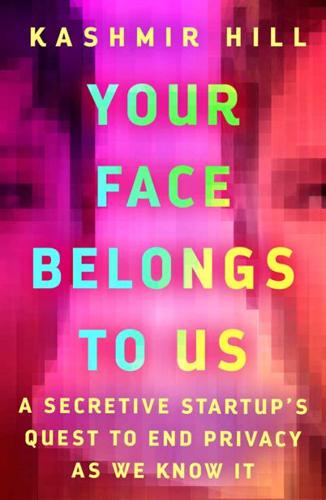
Your Face Belongs to Us: A Secretive Startup's Quest to End Privacy as We Know It
by
Kashmir Hill
Published 19 Sep 2023
The far-right blogosphere obsessed over the outing of Mackey and the mysterious company whose services he had been hawking. A “Right Wing Gossip Squad” blogger googled Smartcheckr and connected it to Richard Schwartz, who described himself on LinkedIn as its co-founder and president. The story got traction on the internet cesspool 4Chan, where one commenter asked why Mackey/Vaughn was working with a “Jewish data mining firm.” The Google results for “Smartcheckr” were increasingly populated with links to posts about the alt-right and white nationalism. All of the bad publicity evidently spooked Schwartz and Ton-That, because they decided to get out of politics, kill off Smartcheckr, and try to make it disappear.
…
GO TO NOTE REFERENCE IN TEXT All of the bad publicity: A top hit on Google for “Smartcheckr” was Eyes on the Right, “The Alt-Right Continues to Disintegrate After White Nationalist Troll ‘Ricky Vaughn’ Gets Unmasked,” Angry White Men, April 6, 2018, https://angrywhitemen.org/2018/04/06/the-alt-right-continues-to-disintegrate-after-white-nationalist-troll-ricky-vaughn-gets-unmasked/. Commenters on 4Chan discussed it as well: https://archive.4plebs.org/pol/thread/169758083/. GO TO NOTE REFERENCE IN TEXT evidently spooked: Ton-That and Schwartz declined to comment about this episode in their company’s history. Ton-That said they changed the name from Smartcheckr to Clearview AI only because it was “better branding.”
…
See also NIST (National Institute of Standards and Technology) Faraday bags, 227 FarmVille, 4–5, 6 “fatface,” 32 Fawkes, 242 FBI (Federal Bureau of Investigation) Capitol insurrection and, 229 Congress and, 142, 143–144, 158 Government Accountability Office and, 247 NIST and, 70, 71 NYPD and, 132 Federal Police of Brazil, 136 Federal Trade Commission (FTC), 121–123, 126–127, 143, 240 FERET, 67–68, 103 Ferg-Cadima, James, 82–87, 151, 158 Ferrara, Nicholas, xii–xiii Fight for the Future, 238 Financial Crimes Task Force, 128–131 FindFace, 34–35, 220–222 Findley, Josh, 134–136 fingerprints/fingerprinting early efforts regarding, 22 Pay by Touch and, 82, 84–87 theft of, 84 First 48, The, 230 First Amendment Abrams case and, 206–207, 208–209, 212–213 Gawker and, 15 violence and, 306n206 FitMob, 8 Flanagan, Chris, 129, 131 Flickr, 199, 242, 246–247 Flipshot, 9 Floyd, George, 207, 239 FOIA (Freedom of Information Act), 141, 157 4Chan, 94 Fourth Amendment, 141 Franken, Al, 140–144, 148–151 Freedom of Information Act (FOIA), 141, 157 FreeOnes, 197 Frydman, Ken, 28 FTC (Federal Trade Commission), 121–123, 126–127, 143, 240 Fuller, Matt, 274n52 Fussey, Pete, 218–219, 235 G Gaetz, Matt, 285n95 Galaxy Nexus, 109 Galton, Francis, 17–20, 22, 25, 33 GAO (General Accounting Office), 62, 65–66 Garrison, Jessica Medeiros, 138–139, 160 Garvie, Clare, 156–157, 178 Gaslight lounge, 50–51 Gawker Media Johnson and, 11, 12 Pay by Touch and, 85 Thiel and, 14–15 Ton-That and, xi, 7, 93, 116, 164 gaydar, 31 GDPR (General Data Protection Regulation), 191 gender Congressional representation and, 89 differences in facial recognition and, 48, 69–70, 124, 125, 156, 178, 240 IQ and, 32 General Accounting Office (GAO), 62, 65–66 General Data Protection Regulation (GDPR), 191 Genetic Information Nondiscrimination Act (GINA), 83 Gibson, William, 113 Giesea, Jeff, 53 Gilbert, John J., III, 129 GINA (Genetic Information Nondiscrimination Act), 83 Girard, René, 12 GitHub, 72, 74 Giuliani, Rudy Schwartz and, 27–28, 29, 89, 90, 129, 161 Waxman and, 80 Global Positioning System (GPS), 43 Gmail, 102 Gone Wild, 200 Good, John, x, 160 Google AI Principles of, 108 BIPA and, 151 Clearview AI and, 96, 165 CSAM and, 135 diverse datasets and, 179 “Face Facts” workshop and, 121–122 Face Unlock and, 109, 179 Franken and, 141, 142 FTC and, 123 Goggles and, 99–100, 102 hesitation of regarding facial recognition technology, 99–110 identification technology and, 145 Images, 79 lawsuits against, 306n206 Lunar XPRIZE and, 192 Maps and, 100–101, 102 mining of Gmail by, 102 monetization and, 6–7 neural networks technology and, 74 phone locks and, ix Photos app, 272n48 PittPatt and, 108–109, 110 Schmidt and, 27 State Privacy and Security Coalition and, 150 Street View and, 100–101, 102 TensorFlow and, 208 ViddyHo and, 7 GotNews, 11–12 Government Accountability Office, 247 GPS (Global Positioning System), 43 Greenwald, Glenn, 149 Greer, Evan, 237–238 Grewal, Gurbir, 165 Gristedes, 114 Grossenbacher, Timo, 194–196 Grother, Patrick, 69–70 Grunin, Nikolay, 309n222 Guardian, The, 149 gunshot detection systems, 232–233, 234 Gutierrez, Alejandro (“Gooty”), 231–232, 234 H Hacker News, 4 Hamburg Data Protection Authority (DPA), 192 Haralick, Robert, 271n47 Harrelson, Woody, 156–157 Harris, Andy, 274n52 Harvard Law Review, on privacy, viii Harvey, Adam, 241 Haskell, 4 Health and Human Services Department, 247 Hereditary Genius (Galton), 20 Hikvision, 177, 215–216, 226 Hinton, Geoffrey, 73, 74, 295n146 History of Animals (Aristotle), 17 Hogan, Hulk, 15 Hola, 275n58 Hollerith, Herman, 24–25 Homeland Security, Department of, 134–136, 235 Hooton, Earnest A., 25, 26 Hot Ones, 115 Howard, Zach, 145 Howell, Christopher, 207–208 HTML (Hyper Text Markup Language), 78 Huawei, 226 HuffPost, 165 Hungary, 56–59 Hyper Text Markup Language (HTML), 78 I “I Have a Dream” speech (King), 39 IARPA (Intelligence Advanced Research Projects Activity), 106 IBM, 25, 156, 239 Incredibles, The, 119 Independent, The, 34 Indiana State Police, 133 Inmar Intelligence, 87 Insight Camera, 187 Instagram Brown and, 11 Clearview AI and, vii Marx and, 192 scraping and, 195 Williams and, 182 Instaloader, 194–195 Instant Checkmate, 58 Intel, ix, 123–125 Intelligence Advanced Research Projects Activity (IARPA), 106 internet DARPA and, 43 embodied, 145–146 Trump and, 54 Internet Archive, 78 Interpol, 136 Intimcity, 221 investigative lead reports, 71, 131, 176, 180 iPhone developer tools for, 9 release of, ix, 6 unlocking and, 109 IQ, 32 “I’ve Just Seen a Face,” 125 Iveco vans, 214 J James, LeBron, 14 January 6 insurrection, 228–230 Java, 4 Jayapal, Pramila, 239 Je Suis Maidan, 222 Jenner, Kendall, 115 Jewel-Osco, 82 Jobs, Steve, ix Johnson, Charles Carlisle “Chuck” background of, 11–12 on blocking author’s face, 163 contact with, 165 early plans of, 31, 34 FindFace and, 220 Gawker and, 15 investors and, 116 Jukic and, 134 Orbán and, 56 ouster of, 94–96 at Republican Convention, 11, 15–16 Scalzo and, 118–119 Schwartz and, 29, 161–162 Smartcheckr and, 52–53, 72, 79, 80 Ton-That and, 12–14, 27, 33, 161–162, 247–249 Trump and, 50, 51–52, 53, 54 Joint Terrorism Task Force, 132 Jukic, Marko, xvii–xviii, 134, 162 Justice Department, 66, 247 K Kalanick, Travis, 189 Kanade, Takeo, 40, 41–42, 103 Keeper, 117 Kennedy, John F., 41 King, Martin Luther, Jr., 39–40 King-Hurley Research Group, 268–269n38 Kirenaga Partners, xiv–xv, 111, 112, 160 Knox, Belle, 198 Kodak, viii, 104, 179 Krizhevsky, Alex, 295n146 Kroger’s, 87 Krolik, Aaron, 164 Kutcher, Ashton, 114–115 Kuznetsova, Anna, 222–223 L L-1 Identity Solutions, 71 labeled data, 67 Lambert, Hal, 118 law enforcement.
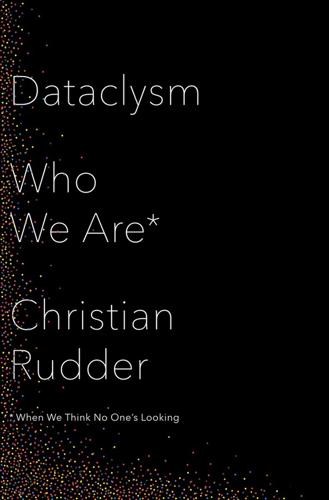
Dataclysm: Who We Are (When We Think No One's Looking)
by
Christian Rudder
Published 8 Sep 2014
People used it to complain about anything they didn’t like (had a beef with), ignoring the brand: Remi Mitchison @RemiBee #HeresTheBeef when a chick see another chick doin better and has more than she does … so she wanna stunt and #GetThatAssBeatUp Jeremy Baumhower @jeremytheproduc #HeresTheBeef The drugs companies have already cured HIV and cancer, however it is far more profitable to keep people barely alive on drugs More recently, Mountain Dew ran a “Dub the Dew” contest, trying to ride the “crowdsourcing” wave to a cool new soda name and thinking maybe, if everything went just right and the metrics showed enough traction to get buy-in from the right influencers, they’d earn some brand ambassadors in the blogosphere. Reddit and 4chan got ahold of it, and “Hitler did nothing wrong” led the voting for a while, until at the last minute “Diabeetus” swooped in and the people’s voice was heard: Dub yourself, motherfucker. The Internet can be a deranged place, but it’s that potential for the unexpected, even the insane, that so often redeems it.
…
The sensor is primarily designed for exercise games, allowing players to monitor heart changes during physical activity, but, in principle, the same type of system could monitor and pass on details of physiological responses to TV advertisements, horror movies or even … political broadcasts.” 2 From Acxiom’s website: “[We give] our clients the power to successfully manage audiences, personalize customer experiences and create profitable customer relationships.” An interesting paradox: whenever you see the word “personalize,” you know things have gotten very impersonal. 3 After Boston, Reddit and 4chan tried vigorously (meaning there was lots of typing) to track down the bombers and eventually “pinned” it on an innocent man. For all the lip service the cloud and crowd get, hardware solved the crime. Coda Designing the charts and tables in this book, I relied on the work of the statistician and artist Edward R.
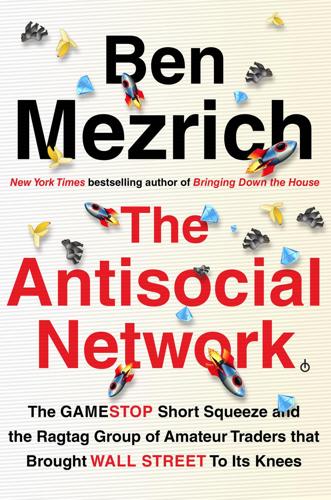
The Antisocial Network: The GameStop Short Squeeze and the Ragtag Group of Amateur Traders That Brought Wall Street to Its Knees
by
Ben Mezrich
Published 6 Sep 2021
“What does this mean?” Chinwe asked, running his finger along the top of the screen, reading the small print an inch beneath the WallStreetBets logo/mascot, the image of a blond-haired trader in sunglasses and a suit and tie, like something out of an eighties video game—“‘Like 4chan found a Bloomberg terminal.’” Kim grinned. 4chan was one of the most notoriously dirty sites—a bulletin board, really—that bridged the gap between the dark web and more popular social media. And a Bloomberg terminal was what real Wall Street traders used to take money from regular people like her. “It’s kind of a motto.
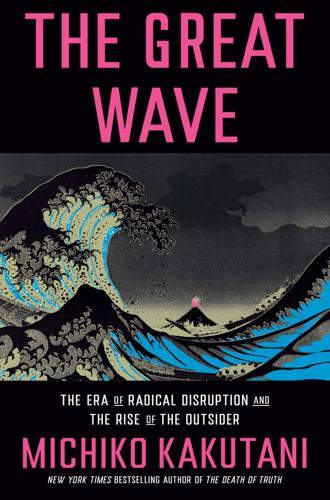
The Great Wave: The Era of Radical Disruption and the Rise of the Outsider
by
Michiko Kakutani
Published 20 Feb 2024
To that end, Bannon and his editor Milo Yiannopoulos, who specialized in incendiary opinion pieces, began turning Breitbart into a platform for the alt-right, and the platform became known for its combative honey badger attitude (as in the “Honey badger don’t care” meme). The site would use Gamergate and misogyny as gateway issues to draw in the disaffected but essentially apolitical young men who frequented Reddit and 4chan and turn them into online trolls (or “centipedes,” as they called themselves) on behalf of their “God Emperor,” Donald Trump. This cynical strategy worked. As the media and internet scholars Alice Marwick and Becca Lewis wrote in 2017, “Online cultures that used to be relatively nonpolitical are beginning to seethe with racially charged anger.
…
During Trump’s tenure in the White House, white nationalist hate groups grew by an estimated 55 percent, and by 2021 law enforcement officials at DOJ and Homeland Security said the biggest domestic terror threat facing the United States was coming from “racially or ethnically motivated violent extremists”—specifically, in the words of Attorney General Merrick Garland, “those who advocate for the superiority of the white race.” Meanwhile, the racist and anti-Semitic “great replacement” conspiracy theory (which contends that liberal elites want to replace white populations by encouraging non-white immigration) quickly moved from obscure white supremacist threads on 4chan and Reddit, to Fox News, where Tucker Carlson repeatedly invoked it. In the run-up to the 2024 presidential race, Trump amped up his incendiary rhetoric and his assault on the U.S. government. He held his first campaign rally in Waco, Texas, during the thirtieth anniversary of the standoff between federal law enforcement agents and members of the Branch Davidian sect—a touchstone for many on the anti-government far right.
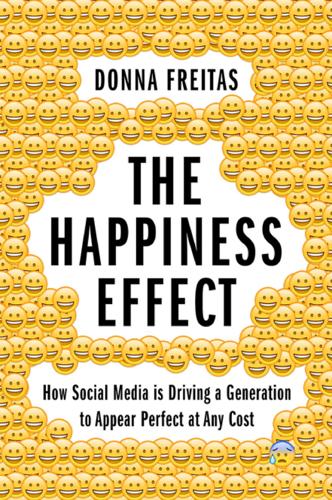
The Happiness Effect: How Social Media Is Driving a Generation to Appear Perfect at Any Cost
by
Donna Freitas
Published 13 Jan 2017
Everybody knows that whatever you post is subject to public scrutiny, but sometimes that scrutiny shows up in unexpected ways. And usually this happens on an anonymous forum such as Yik Yak or Reddit. Like many of her peers, Maria believes that the level of cruelty one might experience “depends on the degree of anonymity associated with the social platform,” as on Reddit and another platform called 4chan. She warns me to not even visit 4chan. “It’s very scary,” she says. “It’s an evil place because there’s so much anonymity … .whereas on Facebook, your name is associated with what you say, so you are what you say, and what you post is somewhat representative of you, supposedly. But on these other websites, it doesn’t matter what you say so you can say whatever you want.”
…
See also comparison trap, and likes/retweets forced positivity. See also authenticity/inauthenticity; branding of self; Facebook, professionalization of; headings at happiness effect as defense against cyberbullying, 168–9 defined, 13–5 Facebook official status and, 176–9 as inauthentic, 243–5, 252 as survival mechanism, 255 Foucault, Michel, 47 4chan, 169 Freitas, Donna, experience with social media, 252–4, 297–9 friendships, initiated in-person, 189–91 front-facing cameras, 204 Gardner, Howard, 49 GDI (God Damn Independent), 5 gender differences being liked and, 31–2, 37 bullying/cyberbullying and, 146, 322n3 religious expression and, 121 smartphones and, 121 gender of survey respondents, 95f gender of survey respondents, 95–6 gender stereotypes Instagram and, 94, 98–9 selfie generation and, 83, 92–102, 95f Twitter and, 94 Generation Me (Twenge), 82 Gilligan, Carol, 93 Golden Rule, of social media, 148, 265–7 good troll, defined, 161 GPS, and social media, 135, 195, 197 Grindr, 195 happiness effect, overview, 1–15.
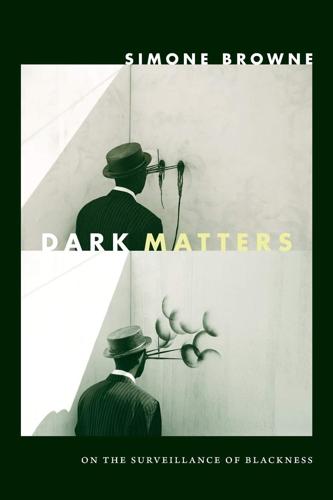
Dark Matters: On the Surveillance of Blackness
by
Simone Browne
Published 1 Oct 2015
The root word -veillance is differently applied and invoked, for example, with the terms “überveillance” (often defined as electronic surveillance by way of radio-frequency identification or other devices embedded in the living body), “redditveillance” (the crowdsourcing of surveillance through publicly accessible CCTV feeds, photographs uploaded to online image sharing platforms such as Flickr, and online discussion forums, such as Reddit and 4chan), and “dataveillance,” to name a few.51 Lyon has outlined the “potency of dataveillance” in a surveillance society, which, he writes, is marked by “a range of personal data systems, connected by telecommunications networks, with a consistent identification scheme.”52 The prefix data- signals that such observing is done through data collection as a way of managing or governing a certain population, for example, through the use of bar-coded customer loyalty cards at point of sale for discounted purchases while also collecting aggregate data on loyalty cardholders, or vehicles equipped with transponders that signal their entry and exit on pay-per-use highways and roads, often replacing toll booths.
…
See also Bertillon, Alphonse; biometric technology; critical biometric consciousness Fiske, John, 17, 20, 54 “Flash Light” (Parliament), 25 flashlight treatment, 44, 67 Flickr, 18 FLN (Front for National Liberation), 2, 5 FOIA (Freedom of Information Act), 1–2, 173n124 Foote, Thelma Wills, 72 Forbes magazine, 121 Fort Worth Transit Authority, 66 Foucault, Michel, 17, 24, 34, 37, 40, 42–43, 68, 165n6, 168n67, 181n97 4chan, 18 Franklin, Ursula, 115 Frantz Fanon (Caute), 1 Fraunces, Samuel, 87–88, 177n61 Fraunces Tavern, 68–69, 74–76, 83–88, 162 Frazier, E. Franklin, 10 Freedman’s Bureau, 89 Freedman’s Relief Associations, 102 freedom practices, 5, 11, 21–22, 25–26, 36–37, 52–55, 61–77, 83–102, 137, 156–59, 162, 171n74.
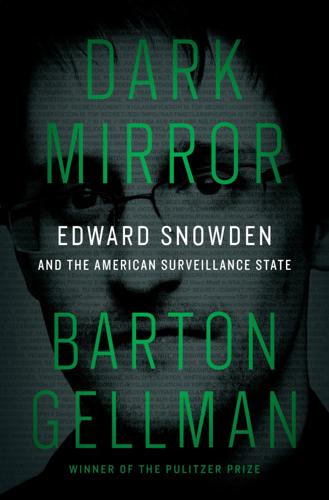
Dark Mirror: Edward Snowden and the Surveillance State
by
Barton Gellman
Published 20 May 2020
The seas of incoming data, like the depths of the feline heart, were uncharted. Viewers were meant to laugh at Emo Cat’s despair. Cat pictures with sardonic slogans, Soltani explained to me, had their origins on the fringes of the World Wide Web. They had migrated from Internet Relay Chat rooms and avowedly misanthropic forums such as 4chan to Reddit and then to mass-market social media. Facebook kittens were cute and fluffy. Their antecedents had a mean streak, by and large. “Emo” connoted, in this case, mock-worthy pathos. “So what?” I said. I had noticed the kitten in passing and paid it no mind. “You don’t understand,” Soltani replied.
…
The metaphor stands for more than it may intend: not only creative circumvention, an NSA specialty, but a hacker spirit that gamifies its work. The fun and games are sometimes dispiriting to read. In the NSA’s Hawaii operations center, civilian and enlisted personnel used their work machines to circulate dozens of photo memes that originated on Reddit, 4chan, and somethingawful.com. One photo showed a four-foot plastic Donald Duck with hips positioned suggestively between the legs of a pigtailed little girl. Another depicted a small boy tugging at a playmate’s skirt with the caption, “I would tear that ass up!” An image of blue balls accompanied a warning to a girl in her early teens against “teasing” her boyfriend without submitting to sex.
…
Constitution, 14, 96, 99, 114, 185, 248, 261 FIRSTFRUITS, 225, 277 Brand on, 274 DOJ crime reports produced by, 274–75 internet rumors about, 271–72 tracing journalistic leaks as goal of, 272–73 FISA Amendments Act (2008), 69, 86, 94, 111, 126, 148, 338 Section 702 of, 123 FISA Court, see Foreign Intelligence Surveillance Court Five Eyes intelligence allies, 28, 69, 177, 311 Fleischer, Ari, 273, 406 Flynn, Michael T., 377 Forbes, 75 Foreign Denial and Deception Committee, 274, 278 Foreign Intelligence Surveillance Act (1978), 282, 338 and legal standard of relevance, 143–44 restrictions on NSA of, 122 Foreign Intelligence Surveillance Court, 111–12, 122, 123, 126, 263–64, 283 in annual review of PRISM program, 125 business records access authorized by, 143, 171 five-year limit on retention imposed by, 173, 179 mass surveillance authorized by, 111–12 NSA call data collection authorized by, 157, 165 NSA overseas collection as avoiding restrictions of, 317 relevance standard and, 143–44 STELLARWIND concealed from, 170 foreign surveillance, see surveillance, foreign 4chan, 192 Fourth Amendment, of the U.S. Constitution, 65, 86, 125, 347 border searches and, 6 France Telecom, 197 Freedom of Information Act, BG and, 276–78 Freedom of the Press Foundation, 234 Friedersdorf, Conor, 344 Gansa, Alex, 303–5, 308 GCHQ, 79, 175 in penetration of Google cloud, 299, 301 Gellman, Barton (BG): Alexander’s proposed raid on, 245–46, 249 Aspen Institute plenary session moderated by, 155–66, 181–82 in attempts to authenticate leaked documents, 3, 17–18 attempt to learn ES’s identity rejected by, 17 black budget story of, 227–28 and catch-22 in consultation about classified materials, 270–71 Century Foundation fellowship of, 93 compromised Google accounts of, 232 cyber security tradecraft acquired by, xvi–xvii, 2–4, 6 digital trail of, xvi ES and, see Snowden.
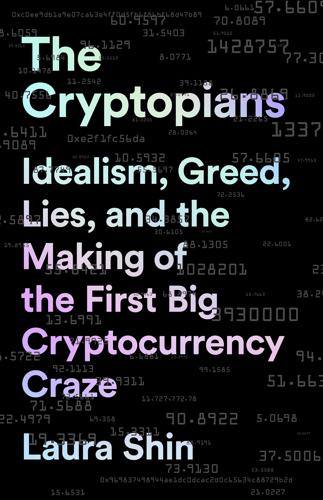
The Cryptopians: Idealism, Greed, Lies, and the Making of the First Big Cryptocurrency Craze
by
Laura Shin
Published 22 Feb 2022
The following day, a Friday, OmiseGo, a financial services platform backed by Thai payments company Omise, raised $26.3 million in an ICO that verified every participant’s identity through Bitcoin Suisse. On a chart of MEW’s web visits, this week would later look like a huge spike. That Sunday, a post on 4chan—a dark, anonymous, anarchic version of Reddit—proclaimed, “Vitalik Buterin confirmed dead. Insiders unloading ETH.” The post said, “Fatal car crash. Now we have our answer. He was the glue.” The price of ETH dropped 8.6 percent from $315 to $288, wiping $4 billion off Ethereum’s market cap.40 Vitalik quickly quashed that rumor by tweeting a photo of himself with a piece of paper on which he’d written, Block 3,930,000 = 0xe2f1fc56da It was a recent block number from the Ethereum blockchain, along with the hash of that block.
…
Timeline 2011 Late winter Vitalik starts learning about Bitcoin, writing for Bitcoin Weekly June 1 Gawker article, “The Underground Website Where You Can Buy Any Drug Imaginable,” is published Bitcoin price shoots up from less than $9 to almost $32 within a week August Vitalik becomes a writer for Bitcoin Magazine 2012 May Bitcoin Magazine publishes its inaugural issue Vitalik graduates from high school September Vitalik begins at University of Waterloo 2013 May Vitalik decides to take time off from school August Vitalik decides to extend his break from school September Vitalik spends a week in a squat with Amir Taaki in Milan September Vitalik spends four to six weeks in Israel; has revelation about “layer 2” functionalities on Bitcoin Early October Bitcoin price in low $100s Early November Bitcoin price in the low $200s November 4–8 Vitalik in Los Angeles November 8–December 10 Vitalik in San Francisco Mid-November Bitcoin price in the $400s, breaks through $800 Vitalik takes walk in the Presidio, where he has a technical breakthrough on Ethereum’s structure November 27 Vitalik sends Ethereum white paper to friends Bitcoin price crosses $1,000 for the first time December 10–11 Vitalik and Anthony Di Iorio attend the Inside Bitcoins conference December 19 Gavin Wood writes Vitalik December 25 Jeff Wilcke and Gavin start writing implementations of the Ethereum white paper 2014 January 1 Anthony’s Decentral opens in Toronto January 20–21 Ethereum group arrives in Miami January 25–26 BTC Miami conference Mid- to late February Jeff, Gavin, and Joe added as cofounders (announced on blog March 5) March 1 Zug crew moves into Spaceship March 5 Ethereum GmbH established in Switzerland Early April Gavin publishes the Ethereum yellow paper April 11–13 Bitcoin Expo in Toronto May 26 Skype call between Stephan Tual and Mathias Grønnebæk in Twickenham and Mihai Alisie, Taylor Gerring, Roxana Sureanu, and Richard Stott in Zug May 31–June 1 Vitalik and Gavin in Vienna; receive call from Stephan and Mathias June 3 Ethereum’s Game of Thrones Day July 9 Stiftung Ethereum created July 22 Crowdsale begins September 2 Crowdsale ends November 24–28 DevCon 0 at ETH Dev in Berlin 2015 Late February to early March Foundation meeting; decision to remove current board members and recruit “professional board” February–March Kelley Becker begins as COO of ETH Dev UG June 12 Anthony Di Iorio accused of holding one of the footballs “hostage” Mid-June Wayne Hennessy-Barrett, Lars Klawitter, and Vadim Levitin are brought on as board members Ming Chan is hired as executive director July 30 Ethereum launches ~August 1–2 Ming makes accusation against Vadim Week of August 9 Stephan tries to get Vitalik to change early contributor allocations August 10 First version of MyEtherWallet created August 15 Ethereum Foundation pays early contributors August 16 Stephan and Vitalik argue on Reddit about early contributor distributions August 18 MyEtherWallet domain name registered Mid- to late August Stephan fired August 22–23 First Ethereum Foundation board meeting ~September 2–7 Vitalik, Ming, and Casey stay at a cabin in Toronto September 11 Casey, Ming, Vitalik, Joe Lubin, Andrew Keys, and others meet at ConsenSys about DevCon 1 September 28 Vitalik publishes blog post about how Ethereum is close to running out of money Board directors send official resignation letter November 9–13 DevCon 1 in London Christoph Jentzsch demonstrates the Slock; announces the DAO Late November/early December Gavin fired 2016 January 24 ETH closes above $2 February 2 Ethcore publishes a blog post about how Parity is the fastest Ethereum client February 11 ETH closes above $6 for the first time March 2 The DAO is added to GitHub March 13 ETH hits a new high of $15.26; Vitalik feels comfortable about the Ethereum Foundation’s multiyear runway Mid-April Ming reams Hyperledger’s Brian Behlendorf in phone call April 25 Vitalik, Gavin, and others from the Ethereum Foundation announced as DAO curators April 26 Announcement about establishment of DAO.link April 29 Slock.it makes first proposal to the DAO Taylor Van Orden’s fiancé, Kevin, flips a coin to choose the DAO contract April 30 The DAO sale (“creation period”) launches May 13 Gavin resigns as curator May 14 Miscalculation of when DAO token price rises May 24 “Ethereum is the Forefront of Digital Currency” blog post by Coinbase cofounder May 25 Slock.it makes first DAO security proposal May 27 Emin Gün Sirer and paper coauthors call for a moratorium on the DAO May 28 DAO sale ends/DAO created June 5 Christian Reitwießner discovers the re-entrancy bug exploit, warns other devs about it June 9 Peter Vessenes publishes a blog post about the re-entrancy attack vector June 10 Christian also blogs about it June 11 Vitalik tweets he has been buying DAO tokens since the security news June 12 Stephan Tual publishes “No funds at risk” blog post June 14, 02:52 UTC Child DAO 59, which becomes the Dark DAO, emptied June 14, 11:42 UTC DAO attacker begins turning BTC into DAO tokens and ETH via ShapeShift in multiple transactions (until June 16) June 15, 4:26 UTC DAO attacker votes yes for proposal 59 June 17 DAO hits value of $250 million 03:34 UTC DAO attacker begins re-entrancy attack on the DAO 12:27 UTC Attacker stops draining funds Greg Maxwell emails Vitalik, “Don’t be a greedy idiot” That evening, developers later called the Robin Hood Group (RHG) consider attacking the DAO; Alex van de Sande’s internet goes down Highest day of ETH trading ever June 18, 10:21 UTC Someone purporting to be the DAO attacker publishes an open letter about how he or she “rightfully claimed 3,641,694 ether” Christoph publishes blog post laying out options Robin Hood Group has phone call discussing attempting a rescue June 19 Lefteris Karapetsas publishes a blog post explaining the options June 21 Copycat attacks begin; Robin Hood Group rescues 7.2 million ETH June 22 Lefteris writes another blog post walking through how the hard and soft forks would work RHG realizes there is a “suspected malicious actor” in the White Hat DAO June 23 Bitcoin Suisse posts a letter from the suspected malicious actor to Reddit June 24 Péter Szilágyi posts soft fork versions of Geth and Parity clients Denial-of-service (DoS) attack on soft fork discovered Soft fork called off Early to mid-July RHG conducts “DAO Wars” (re-entrancy attacks/rescues) on various mini Dark DAOs in order to make sure neither the DAO attacker nor the copycats can cash out Polo employee investigating identity of DAO attacker thinks he may have good leads on culprits July 7 Christoph publishes blog post laying out the remaining issues regarding a hard fork, including how to handle the Extra Balance July 9 Stephan publishes “Why the DAO robber could very well return the ETH on or after July 14” blog post July 10 GitHub page for Ethereum Classic (ETHC) created July 11 RHG whitelists the Dark DAO address in the curator multisig, hoping the DAO attacker will send the siphoned funds there July 16 Carbonvote shows 87 percent of voters in favor of a hard fork July 17 Vitalik publishes blog post explaining how the hard fork will happen July 20 Ethereum hard-forks Fat Finger accidentally sends 38,383 ETH to the DAO after the hard fork July 21 On BitcoinTalk, people post bids to buy “ETHC” Kraken trader emails Christoph asking to purchase his “ETHC” Gregory Maxwell emails Vitalik offering Bitcoin for his “ETHC” July 23 DAO attacker sends out “ETHC” from the Dark DAO to a grandchild DAO Ethereum Foundation devs start bashing Ethereum Classic in internal Skype chat July 24 Poloniex lists ETC Ethereum Foundation devs continue trashing ETC in internal Skype chat; a conversation screenshot is posted to Reddit July 25 Barry Silbert tweets that he bought ETC Genesis begins offering over-the-counter trading of ETC July 26 Bittrex and Kraken list ETC ETC:ETH hashing power ratio goes from 6:94 in the morning to 17.5:82.5 by late afternoon Eastern Daylight Time July 27 BTC-e publishes a blog saying most of its ETC was sent to Polo by its users Greg Maxwell emails Vitalik again about purchasing his ETC July 28 White Hat Group (WHG) rescues every last Wei of Fat Finger’s money from the DAO August 1 ETC price rising; ETH dropping Vitalik’s “I am working 100% on ETH” tweet August 2 ETH falls to $8.20, while ETC jumps to new high of $3.53, 43 percent of ETH’s market cap Bitfinex is hacked; crypto markets slump 14 percent August 5 White Hat Group starts flying into Neuchatel to work on returning ETC August 6 Call with Bitcoin Suisse August 7–8 The WHG decides to return money as ETH, not ETC August 8 The WHG receives its first legal threat, from Berger Singerman “Fat Protocols” thesis blog post published August 9 WHG/Bity deposit ETC to exchanges; deposit blocked on Polo, eventually allowed, then trading on Polo blocked August 10 By phone, second whale demands ETC, not ETH August 11 The WHG receives a second legal threat, demanding immediate refund of ETC, from MME August 12 WHG announces decision to distribute the funds as ETC August 16 WhalePanda publishes blog post “Ethereum: Chain of liars & thieves” August 18 Stephan publishes an apology August 26 Bity posts a revised ETC Withdraw Contract and announces it will be deployed August 30 Bity/WHG deploy the ETC Withdraw Contract August 31 Polo and Kraken deposit the WHG ETC into the Withdraw Contract September 6 The final ETC for the White Hat Withdraw Contract is deposited The presumed DAO attacker moves money from the grandchild Dark DAO on ETC to his or her main account, 0x5e8f September 15 The Extra Balance Withdraw Contract on Ethereum is funded September 19 DevCon 2 begins in Shanghai DoS attacks on Ethereum begin October Poloniex employees realize that new owners have been added Sometime this fall, Jules Kim grudgingly gives bitcoin bonus to Johnny Garcia Sometime mid- to late 2016, Jules and Mike Demopoulos allegedly first oppose and then finally acquiesce to adding two-factor authentication to Polo October 18 Tangerine Whistle hard fork October 25 Ethereum Asia Pacific Ltd. incorporated in Singapore DAO attacker begins moving ETC to ShapeShift November 10 Golem ICO November 22 Spurious Dragon hard fork December Jules and Mike purportedly oppose adding a know-your-customer program to Poloniex so the exchange can comply with US sanctions against Iran; finally acquiesce in first half of 2017 2017 January Early Poloniex employees sign contracts for options for equity in the company, though they are not approved by the board until April January 25 EF files for trademark on “Enterprise Ethereum” and “Enterprise Ethereum Alliance” January 31 Nine ICOs in January raise almost $67 million MEW hits one hundred thousand visitors in January Global weekly crypto trade volume hits about $1 billion January/February Jeff Wilcke collapses February 27 Enterprise Ethereum Alliance announced ETH price breaks $15 for the first time since the DAO attack Taylor Gerring’s contract is not renewed by the EF February 28 Eight ICOs in February raise just over $73 million MEW hits 150,000 visits in February Spring Poloniex owners begin seeking buyers March 11 ETH closes above $20 for the first time March 24 ETH closes above $50 for the first time March 31 Six ICOs in March raise $22 million MEW hits three hundred thousand visits in March Global weekly crypto trade volume reaches over $3 billion April 24 Gnosis ICO ends April 27 Ming upset about “volunteer” project manager April 30 Thirteen ICOs in April raise $85.5 million MEW hits 386,000 visits in April May 4 ETH closes just shy of $97 In Skype chat, Ming expresses wish to buy domain names associated with Enterprise Ethereum Alliance on the Ethereum domain name system May 22 ETH closes above $174 Consensus 2017 conference begins May 23 SEC “crypto czar” Valerie Szczepanik makes her first comments on initial coin offerings May 25 Token Summit May 26–27 Ethereum Foundation delays payment to Ethereum DEV UG May 30 ETH twenty-four-hour volume exceeds that of BTC for the first time ETH price closes just shy of $232 May 31 Basic Attention Token raises nearly $36 million in twenty-four seconds from 210 buyers Twenty-two ICOs in May raise $229 million MEW hits one million visits in May June Security issues—scams, phishing attempts, hacks—pick up Poloniex sometimes sees trading volume of $5 billion a week June 10 ETH price closes just under $338 June 12 Bancor raises $153 million ETH price closes above $401 June 14 Kelley, Ming, and Patrick Storchenegger meet; Kelley quits Mid-June to mid-July Other ETH Dev office staff—CFO Frithjof Weinert and office manager Christian Vömel—also leave June 20 Status ICO June 25 4chan post claims Vitalik is dead ETH price falls, closes above $303 June 26 EOS launches its yearlong ICO June 30 Thirty-one ICOs in June raise nearly $619 million MEW hits 2.7 million visits in June July 1–13 Tezos ICO raises $232 million July 11 ETH falls to close below $198 July 13–19 Vitalik expresses to Hudson Jameson he would like to remove Ming July 16 ETH price closes above $157 July 18 CoinDash hack July 19 First Parity multisig hack July 25 SEC DAO report Thirty-five ICOs in July raise more than $555 million MEW sees 2.6 million visits in July Early August Ethereum transaction count begins to consistently exceed that of Bitcoin August 10 Anthony Di Iorio sends legal letter to Vitalik, Ming, and Herbert Sterchi Gavin tweets to Vitalik that he could have never built Ethereum without Vitalik August 31 Forty-one ICOs in August raise nearly $438 million MEW hits 3.1 million visits in August September Weekly trading volume peaks on Polo drop to $4 billion, down from $5 billion September 11 Trader from Fidelity and senior vice president from Santander hired at Polo September 30 Sixty-two ICOs in September raise almost $533 million MEW hits 3.5 million visits in September October 27 Polkadot raises over $140 million in ICO October 27–November 1 Account presumed to be controlled by devops199 appears to conduct penetration testing, as if looking for contract vulnerabilities October 31 Eighty ICOs in October raise over $3 billion MEW sees 3.5 million visits in October November 1–4 DevCon 3 in Cancun, Mexico November 4 ConsenSys “Ming must go” email chain begins November 5 Polychain portfolio company San Pedro ceremony November 6 Second Parity multisig attack; funds frozen by devops199 November 8 Bitcoin hard fork called off November 14 Vitalik fires Ming by phone November 15 My email inquiring whether Ming has been fired November 16 Ming posts in Skype channel to “disavow the rumors” November 23 CryptoKitties soft launch November 30 Eighty-four ICOs in November raise nearly $1 billion MEW sees 4.6 million visits Early December Ming, Vitalik, and Casey meet in Hong Kong December 17 Bitcoin hits new all-time high of $20,000 Late December–early January Vitalik, Aya Miyaguchi, and Vitalik’s friends have a retreat in Thailand December 31 Ninety ICOs in December raise $1.3 billion MEW hits 7.7 million visits 2018 January 1 Friends persuade Vitalik to accelerate Ming’s departure January 4 ETH breaks past $1,000 to a little over $1,045 January 7 ETH trades at $1,153 January 8 ETH hits just under $1,267 January 9 ETH nearly hits $1,321 Around now, Vitalik sells seventy thousand of the EF’s ETH January 10 ETH reaches $1,417 January 13 ETH hits an all-time high over $1,432 The New York Times publishes “Everyone Is Getting Hilariously Rich and You’re Not” January 20 Vitalik and board meet in San Francisco to finalize transition from Ming as executive director to Aya Late January Polo employees informed Circle will be acquiring Polo January 31 Seventy-nine ICOs raise $1.28 billion MEW hits ten million visits Ming publishes farewell post on Ethereum blog Aya introduced as new executive director Glossary 51% attack a type of attack on a blockchain in which an entity or multiple collaborative entities try to take over a network by obtaining more than half the mining power 2FA see two-factor authentication account (aka address) an entity that can receive, hold, and send ether; can be owned either by a person with the private keys or by a smart contract address see account alt-coins any cryptocurrency that is like Bitcoin with just a few parameters tweaked; also used pejoratively to refer to any coin that is not Bitcoin, aka “shitcoin,” often by Bitcoin maximalists asset anything that produces economic value Bitcoin (uppercase) the first blockchain; the peer-to-peer electronic cash network that runs the software enabling the first cryptocurrency, bitcoin (lowercase), to be transferred without an intermediary bitcoin (lowercase) the first cryptocurrency, the digital asset native to the Bitcoin network, with a supply of twenty-one million, giving it characteristics of digital gold Bity a crypto exchange, based in Neuchatel, Switzerland, that helped Slock.it form a Swiss legal entity so it could take payment from the DAO and helped the White Hat Group in its attempt to return the ETC from the DAO to DAO token holders block explorer a website giving data on the transactions in a blockchain blockchain a time-stamped, distributed, decentralized, historical ledger of all the transactions on a crypto network; copies of the ledger are held on a global network of computers; it acts as a golden copy of time-stamped transactions that can replace intermediaries normally tasked with executing the transactions BTC the ticker for bitcoin carbonvote a type of vote by blockchain that does not require the voter to send coins but instead records the number of coins inside the wallet from which the vote was sent; at the end, it tallies the number of coins in the wallets that sent to the yes address versus the number of coins in the wallets that sent to the no address chain split see hard fork child DAO a new instance of the DAO created from coins sent from a parent DAO client, software the piece of software, like a desktop app, that connects a user’s computer to a service; in the case of Ethereum, the software that helped individual users run or connect to the Ethereum network CME an exchange for trading futures and options coin another word for cryptocurrency or token CoinMarketCap a popular cryptocurrency data site ranking coins by their market capitalization cold storage the most secure way of storing one’s crypto, with the private keys held offline consensus (lowercase) the desired state of a blockchain in which all nodes agree on the state of the ledger and on what transactions should be included in what order Consensus (uppercase) the largest blockchain conference, held annually in New York City by crypto-focused publication CoinDesk ConsenSys the Brooklyn-based Ethereum venture production studio founded by Joe Lubin, which created Ethereum infrastructure tools and tried to foster decentralized applications on Ethereum cryptocurrency a digital asset produced by a blockchain that is highly fungible, divisible, and transportable and whose movements can be tracked, unless the chain has built-in privacy features cryptoeconomics (aka tokenomics) the game theory that gives different actors in a crypto network the incentive to offer services on it that will keep the decentralized network alive without any company in the middle hiring employees and tasking them with specific responsibilities curator, DAO the role that would determine whether or not an English-language proposal to the DAO matched the code submitted and, if the proposal were approved, check that the Ethereum address for receiving funds belonged to the contractor cypherpunk a person or ethos advocating strong encryption and privacy-preserving technologies, often to evade government detection or surveillance or to push for sociopolitical change DAO decentralized autonomous organization; an organization managed via votes on a blockchain DAO, the the decentralized venture fund built by Slock.it that aimed to have its token holders decide to which projects it would allocate its capital dapp (decentralized application) any application built on a blockchain without an intermediary, such as a company in the center hiring for all the roles to provide all the services; it instead has built-in incentives, usually involving its native coin, to entice individuals and entities to offer those services on the network Dark DAO (also see mini Dark DAOs) child DAO 59; the child DAO into which the DAO attacker siphoned 3.64 million ETH Decentral the blockchain/decentralized application community center and coworking space in Toronto founded by Anthony Di Iorio DevCon the annual Ethereum developer conference difficulty a way of keeping a cryptocurrency mining algorithm competitive for miners such that miners will find blocks at a targeted average interval, such as ten minutes on bitcoin or twelve to fifteen seconds on Ethereum DoS attack denial of service attack; a way of hobbling a company or blockchain by spamming it, or inundating it with more requests than it can handle early contributors people who worked on Ethereum before the crowdsale East Asia Pacific Ltd. a business entity Vitalik Buterin created in Switzerland to have freedom from Ming Chan; it was used to pay the researchers on his team EEA Enterprise Ethereum Alliance, the industry organization promoting use of Ethereum in companies EF Ethereum Foundation EIP Ethereum Improvement Proposal, a technical suggestion for improving things related to the Ethereum network, such as the protocol, clients, or standards for specific types of contracts ERC-20 token a token created using a standard for new tokens on Ethereum, so called because it was the twentieth issue posted on a discussion board called Ethereum Request for Comments ETC the ticker for the ether classic price ETH the ticker for the ether price ETH Dev the German business entity (UG) created by Gavin Wood in Berlin; after the crowdsale, it hired the bulk of the developers building the protocol and C++ client Ethcore (also see Parity) the start-up Gavin Wood founded when he left the Ethereum Foundation, now called Parity Ethereum Foundation (aka EF or Stiftung Ethereum) the Swiss-based nonprofit organization tasked with stewarding the development of the Ethereum protocol Ethereum GmbH The Swiss business entity first set up for Ethereum; even after the founders decided to go with a nonprofit structure, the entity held the crowdsale and then was liquidated after the network launch Etherscan a popular “block explorer” or website offering data for the Ethereum blockchain exchange a business that enables its customers to trade one asset for another, such as BTC for ETH Extra Balance the extra people paid to the DAO for DAO tokens after the price increased from 1 ETH:100 DAO in the first half of the crowdsale to 1.05 to 1.5 ETH:100 DAO in the second half fiat currency a type of money issued by a government by decree and not backed by anything such as gold fiduciary members the group of Ethereum cofounders who would also be financially responsible FUD fear, uncertainty, doubt.
…
Status just raised as much as they could possibly want, for chat stickers and ads,” Twitter, June 21, 2017, https://twitter.com/danfinlay/status/877333592346476544?s=20. 40. Joon Ian Wong, “Fake news of a fatal car crash wiped out $4 billion in ethereum’s market value yesterday,” Quartz, June 26, 2017, https://qz.com/1014559/vitalik-buterin-dead-a-hoax-on-4chan-crashed-ethereums-price. 41. Vitalik Buterin (@VitalikButerin), “Another day, another blockchain use case,” Twitter, June 25, 2017, https://twitter.com/VitalikButerin/status/879127496024772610?s=20. 42. “Global Cryptocurrency Charts,” CoinMarketCap. 43. MyEtherWallet (@MyEtherWallet), “Cmonnnnnnn Have you learned NOTHING from the last week?!

Black Code: Inside the Battle for Cyberspace
by
Ronald J. Deibert
Published 13 May 2013
At that very moment, several Chinese companies experienced data breaches, the stolen data posted to file-sharing sites. A taste of China’s own medicine? • • • By most accounts Anonymous’s origins stem from the 4chan message board, one of the many dark alleys of the Internet, like a Lower East Side of cyberspace where every delinquent, off beat, perverted taunt is not only tolerated but applauded. Anonymous spilled out of 4chan as a social movement in 2008, sparked when a decision taken by the Church of Scientology was viewed as a step too far across the breach of Internet morality. The Church sought to quash embarrassing online videos circulating across the Internet in typical meme-like fashion of a giddy Tom Cruise proclaiming his adherence to Scientology.

Hiding in Plain Sight: The Invention of Donald Trump and the Erosion of America
by
Sarah Kendzior
Published 6 Apr 2020
Kathy Sierra, “Trouble at the Kool-Aid Point,” Serious Pony (blog), October 7, 2014, http://seriouspony.com/trouble-at-the-koolaid-point. 15. Noreen Malone, “Zoe and the Trolls,” New York, July 24, 2017, http://nymag.com/intelligencer/2017/07/zoe-quinn-surviving-gamergate.html. 16. Ryan Broderick, “Activists Are Outing Hundreds of Twitter Users Believed to Be 4chan Trolls Posing As Feminists,” BuzzFeed News, June 17, 2014, https://www.buzzfeednews.com/article/ryanhatesthis/your-slip-is-showing-4chan-trolls-operation-lollipop. 17. Sarah Kendzior, “Russia’s Social Media Propaganda Was Hiding in Plain Sight,” NBC News, November 2, 2017, https://www.nbcnews.com/think/opinion/russia-s-social-media-propaganda-was-hiding-plain-sight-ncna816886. 18.
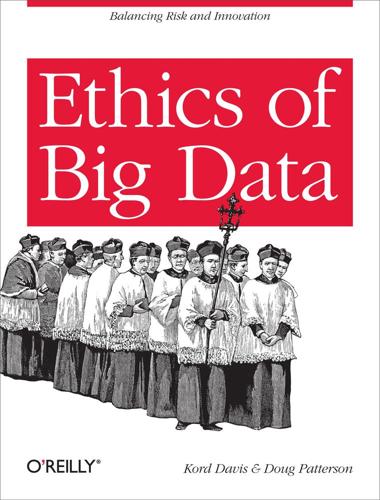
Ethics of Big Data: Balancing Risk and Innovation
by
Kord Davis
and
Doug Patterson
Published 30 Dec 2011
To provide a framework for dissecting the often nuanced and interrelated aspects of big data ethics, the following key components can help untangle the situation. Four Elements of Big-Data Ethics: Identity, Privacy, Ownership, and Reputation Identity Inquiries about identity are related in similar ways. Christopher Poole, creator of 4chan, gave a compelling talk at Web 2.0 in 2011, introducing the idea that identity is “prismatic” (http://www.wired.com/business/2011/10/you-are-not-your-name-and-photo-a-call-to-re-imagine-identity/). He emphasized that who we are—our identity—is multifaceted and is hardly ever summarized or aggregated in whole for consumption by a single person or organization.
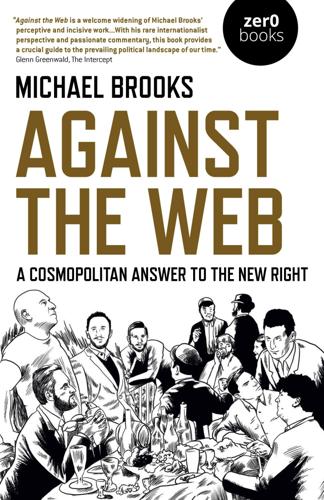
Against the Web: A Cosmopolitan Answer to the New Right
by
Michael Brooks
Published 23 Apr 2020
Mark Fisher An analysis of the ways in which capitalism has presented itself as the only realistic political-economic system. Paperback: 978-1-84694-317-1 ebook: 978-1-78099-734-6 Rebel Rebel Chris O’Leary David Bowie: every single song. Everything you want to know, everything you didn’t know. Paperback: 978-1-78099-244-0 ebook: 978-1-78099-713-1 Kill All Normies Angela Nagle Online culture wars from 4chan and Tumblr to Trump. Paperback: 978-1- 78535-543-1 ebook: 978-1-78535-544-8 Cartographies of the Absolute Alberto Toscano, Jeff Kinkle An aesthetics of the economy for the twenty-first century. Paperback: 978-1-78099-275-4 ebook: 978-1-78279-973-3 Malign Velocities Accelerationism and Capitalism Benjamin Noys Long listed for the Bread and Roses Prize 2015, Malign Velocities argues against the need for speed, tracking acceleration as the symptom of the ongoing crises of capitalism.
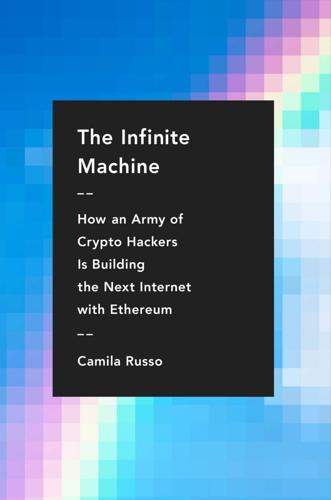
The Infinite Machine: How an Army of Crypto-Hackers Is Building the Next Internet With Ethereum
by
Camila Russo
Published 13 Jul 2020
The domino effect caused a flash crash that pulled ether from $320 to 10 cents in seconds. The price recovered just as quickly but started plunging again two days later as the market remained jittery and rumors surfaced online that Vitalik had been involved in a deadly accident. “Vitalik Buterin confirmed dead. Insiders unloading ETH. Fatal car crash,” someone posted on 4chan, an anonymous online forum known for enabling harassment and pranks. And now we have our answer. He was the glue. It will be difficult for ETH to recover and the entire crypto sphere is in big trouble. The price dropped 22 percent to as low as $253 on June 25, from a high of $325 the day before the post.
…
The price dropped to as low as $204 in the next two days and rebounded from there. But the prank (or attempted market manipulation, more likely) made it painfully clear just how much Ethereum, for all its ambitions of decentralization, still relied on one man, its twenty-three-year-old creator. The crypto space was soon dealt a new blow. This time it was no rumor in 4chan, but a statement by the SEC. Almost one year after The DAO debacle, regulators had investigated the sale and concluded that DAO tokens were securities. That meant that The DAO, Slock.it, Slock.it’s cofounders, and intermediaries in the sale “may have violated the federal securities laws,” the commission said in a July 25 statement.5 After years of speculation, the US securities regulator finally had an answer for crypto enthusiasts, and it wasn’t the one they were hoping for: yes, digital tokens could be considered investment contracts.
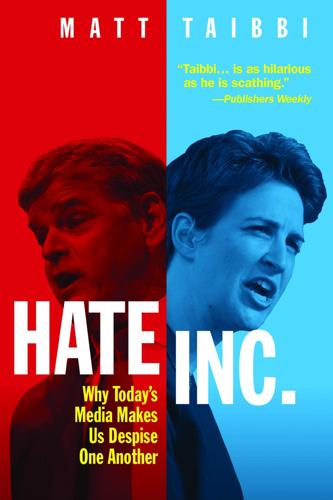
Hate Inc.: Why Today’s Media Makes Us Despise One Another
by
Matt Taibbi
Published 7 Oct 2019
He certainly played on racial panic and feelings of lost status. This was a dominant theme of his announcement speech, how low we’d sunk, how we never win anymore, etc. The failures of decades of policy, with little real wage growth since the Nixon era, were surely also a factor. It was complicated. You couldn’t say it wasn’t. There were 4Chan crazies and elderly church ladies alike in the Trump coalition. Trump was a vote for anyone with a grudge, and in America, there is a spectacularly wide spectrum of grudges. I met one voter in Wisconsin who said the following: “I usually don’t vote, but I’m going Trump because fuck everything.” Sometime in the spring or summer of 2016 I started to notice blowback every time I mentioned the economy in connection with Trump voters.
…
Although, honestly, I think one of the unfortunate effects of Manufacturing Consent is that a lot of people who’ve read it say, “Well, we can’t trust the media.” But that’s not exactly what it said. If you want to get information, sure, read the New York Times, but read it with your eyes open. With a critical mind. The Times is full of facts. You’re not going to find the information there on Facebook. Taibbi: Or 4chan. Chomsky: Also, don’t confine it to the media. There’s skepticism now about institutions altogether. In fact, faith in institutions has declined radically, almost all across the board. Like Congress, the support for them is sometimes in the single digits. About 80 percent of the population since the eighties have consistently in polls been saying, the government is run by a few big interests looking out for themselves.
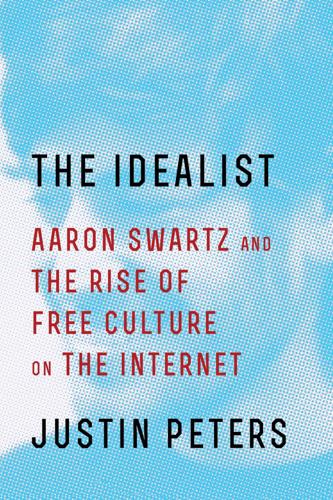
The Idealist: Aaron Swartz and the Rise of Free Culture on the Internet
by
Justin Peters
Published 11 Feb 2013
Today, Congress holds a hearing on a bill that would create America’s first system for internet censorship.”65 Both images then linked to a form through which Web users could contact Congress and ask their representatives to “reject the Internet Blacklist Bills.” Swartz built the contact-Congress tool for Fight for the Future and helped spread the word about Internet Censorship Day. The tool launched on November 16, with hundreds of websites—including popular sites such as Reddit, 4chan, and Tumblr—blacking themselves out and encouraging stymied Web users to contact Congress and complain. According to Fight for the Future’s own estimates, the form that Swartz built generated approximately 1 million e-mails to Congress on November 16. Legislators’ telephones rang constantly that day.
…
C., 249 fact vs. artifact, 88–89 FBI, 191–92, 223 Federalists, 32–33 Felter, Wes, 9, 128, 131 Fight for the Future, 240, 241–42 file lockers, 226 file sharing: Congress suspicions of, 132 online, 4, 152–54 peer-to-peer, 133–34, 152–54 as pull marketing approach, 133 as theft, 4, 133, 137, 152–54, 179, 235–36 Finkelstein, Herman, 84 Finkelstein, Seth, 253 First Amendment, 242 Flaming Sword of Justice, The (podcast), 241, 243 Ford, Paul, 162 Forster, John, 49 4chan, 240 free culture movement, 3–4, 98, 140–41, 152–55, 167, 179, 204, 223 Freedom of Information Act (FOIA), 188, 223 freedom of speech, 20, 231, 242 Freedom to Connect conference, 244 Free Software Foundation, 104, 107, 190, 230, 266 Frost, Robert, 118, 121 Furman, Charlie, 257 Furniss, George W., 72–73 Gagarin, Yuri, 78 Gates, Bill, 106 Gay, Joshua, 230 Gilbert, Jon, 131 Gilder, Richard Watson, 60, 61–62, 64 Ginsburg, Ruth Bader, 139 Ginsparg, Paul, 176 Giustiniani, Paolo, 169–70, 174 GiveWell, 234, 249 Gladwell, Malcolm, 251 Glorious Revolution (1688), 19 GNU Project, 104, 107, 114, 154, 190 Gnutella, 133 Godey’s Lady’s Book, 52 Golway, Terry, Machine Made, 57 Good, Andrew, 229, 255 Google, 131, 185, 239 in Bubble City (fiction), 164, 165 and PIPA, 230, 241 Google Books, 173 Google Print for Libraries, 163 Gore, Al, 183 Gorton, Nathaniel M., 256–57 government: menace and intimidation by, 254, 262, 264 open, 172, 173 public data from, 183–85 research funded by, 82–83, 101, 174, 208–9, 211 Graham, Paul, 145–48, 149, 219 Graham’s, 52 Grammatical Institute of the English Language, A [“blue-backed speller”] (Webster), 23, 25, 27, 30, 33, 34, 36 Green, James N., 25 Greenspan, Alan, 138 Greenspun, Philip, 124 Guédon, Jean-Claude, 261 Guerilla Open Access Manifesto, 6–7, 178–81, 189–90, 201, 228–30, 247 Guernica (online magazine), 5 Guest, Edgar A., 109 Guimaraes, Reynaldo, 262 Gutenberg, Johannes, 18, 98–99 hacker ethic, 103–4, 112, 125, 135, 206, 212, 266–67 Hackers (Levy), 102–3, 138 Hafner, Katie, and Matthew Lyon, Where Wizards Stay Up Late, 101 Hannay, David, 42 Harnad, Stevan, 176 Harper, J.
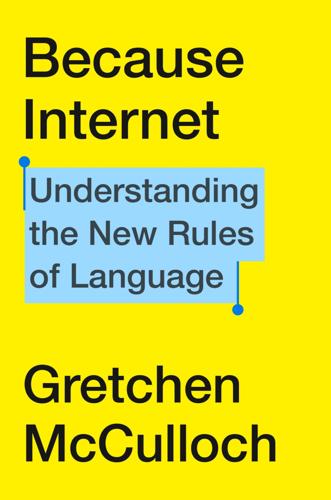
Because Internet: Understanding the New Rules of Language
by
Gretchen McCulloch
Published 22 Jul 2019
Using macros to make it easier to post images had an insider/outsider dynamic from the very beginning: according to a history of the forum, its moderator had created the image macro feature to prove a point about how annoying repetitive images were. Instead, people loved them. A further macro came with an even more popular meme: lolcats. People started sharing pictures of blissed-out cats with overlaid text on the anonymous forum 4chan starting in 2005, in a Saturday celebration of cats known as “Caturday,” and the lolcat phenomenon eventually occasioned articles everywhere from academic journals to Time magazine. Like the earlier memes, the first lolcats had their text added manually, using graphics programs like Photoshop and Microsoft Paint.
…
Putting text on top of an image had formerly required a certain amount of technical knowledge of photo-editing software. Now, it was easy. Too easy, according to some “insiders.” Technologist Kate Miltner documented this split among two kinds of lolcat fans in the late 2000s. Self-described MemeGeeks had liked the early kind of lolcats on 4chan but had moved on to other memes, like Advice Animals, as lolcats became more popular and easier to create. Self-described Cheezfriends, on the other hand, tended to reside on the site I Can Has Cheezburger and demonstrated their community membership through fluency in the stylized lolspeak itself, rather than technical prowess creating the memes.
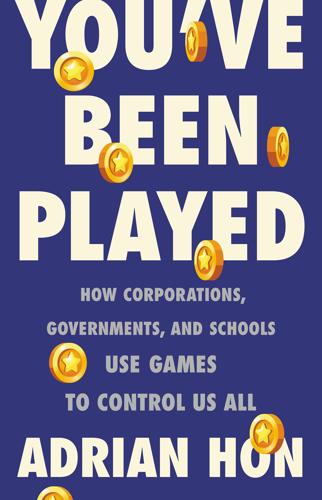
You've Been Played: How Corporations, Governments, and Schools Use Games to Control Us All
by
Adrian Hon
Published 14 Sep 2022
Indeed, there’s a grand tradition of ARG “puppetmasters” (an actual term used by devotees) sneaking out from “behind the curtain” (ditto) to create “sockpuppet accounts” in community forums to seed clues, provide solutions, and generally chivvy players along the paths they so carefully designed. As an ARG designer, I used to take a hard line against this kind of cheating, but in the years since, I’ve mellowed somewhat, mostly because it can make the game more fun, and ultimately, because everyone expects it these days. That’s not the case with QAnon. Yes, anyone who uses the popular 4chan and 8chan forums, longtime homes of QAnon, understands that anonymity is baked into their systems such that posters often create entire threads where they argue against themselves in the guise of multiple anonymous users. But QAnon has spread far beyond those forums, and it’s likely that more casual adherents have no idea how anonymity works there.
…
The stunning gyrations of the share price of a company called GameStop. THE BOREDOM MARKET HYPOTHESIS We need to visit r/wallstreetbets to understand why Robinhood and GameStop captured the attention of the world’s financial markets and US legislators.62 This immensely popular Reddit forum describes itself as “like 4chan found a Bloomberg terminal” where users compete to make the most attention-grabbing posts about how to get rich through trading. I first came across r/wallstreetbets at the beginning of 2020, just as COVID-19 was making its effects felt in Asia and then in Europe. The community had just shy of one million members, many of whom were fixated on shorting shares they correctly predicted were about to plunge off a cliff.
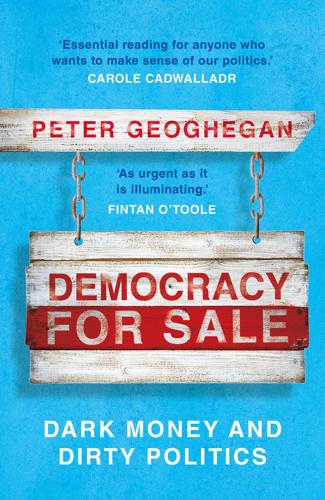
Democracy for Sale: Dark Money and Dirty Politics
by
Peter Geoghegan
Published 2 Jan 2020
Even if Facebook has a change of heart about paid-for political adverts spreading misinformation ahead of the 2020 US presidential election, it will almost certainly be too little, too late. Digital campaigning has already migrated to other, even more opaque platforms. “The stuff that is happening that everyone should be worried about is peer-to-peer, Facebook groups, Discord, 4chan, Reddit,” says Claire Wardle, co-founder of First Draft News, a non-profit dedicated to tackling misinformation. It is hard to see how any amount of regulation can dampen this raging digital wildfire. The online influence campaigns facilitated by Facebook and other tech giants have fundamentally altered the nature of politics itself.
…
Far-right supporters organised street stalls, especially on campuses, to support both the League and the Brothers of Italy, a party that emerged from Italy’s post-fascist right and was a member of the same European Parliament group as the British Conservatives before Brexit. The Italian far right also had international assistance. Message boards on 4chan and 8chan served as multilingual global hubs. An analysis by the London-based Institute for Strategic Dialogue concluded that the 2018 Italian election campaign showed “the maturation of an international consciousness around tactics which have previously worked well for extreme-right activists”.55 The League were the main beneficiaries.
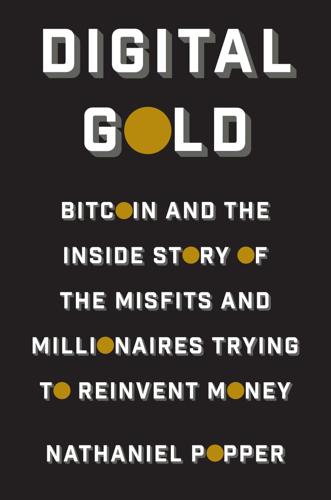
Digital Gold: Bitcoin and the Inside Story of the Misfits and Millionaires Trying to Reinvent Money
by
Nathaniel Popper
Published 18 May 2015
In his own diary, Ross was more frank: “I am creating a year of prosperity and power beyond what I have ever experienced before.” CHAPTER 7 March 16, 2011 The response to Silk Road on the Bitcoin forums was initially somewhat tepid—only a few people chimed in. But it got much more attention on the most widely used message board for hackers—4chan—and new Silk Road members were soon pouring in, along with orders. By mid-March, the site had over 150 members. That was, in fact, more than Ross was equipped to handle. He had to return again and again to the friend who had been helping him with the code, to figure out how to deal with all the traffic.
…
Federal Reserve Financial Crimes Enforcement Unit [FinCen] (Treasury Department), 138, 196–197, 201, 234–235, 266, 325 Financial Times, 262, 317 Finney, Fran, 3 Finney, Hal defense of Bitcoin system, 24–27 introduction to Bitcoin, 3–8 Lou Gehrig’s disease diagnosis, 27 return to Bitcoin community, 59–60 role in PGP, 10, 13 Finney, Jason, 27 FirstMark Capital, 144, 147–149, 176 Forbes, 80, 96 Fortress Investment Group, 180, 217–219, 252, 272–273. See also Briger, Pete Founders Fund, 187, 211 4chan (hacker message board), 75 Freeman, Ian, 75–76 Free State Project, 107–110 Free Talk Live (radio program), 75–78, 108 Freis, James, 325 FriendlyChemist (screen name), 225–226 Gandalf (computer chip), 329 Garzik, Jeff, 83–84, 92, 99, 190, 196, 348 Gates, Bill, 353–355, 385n Gawker (website), 83–84 George, Jacob (aka DigitalInk), 121 George Mason University, 80 Georgia, Republic of, 330 GitHub, 141 Goldman Sachs, 324–326 gold standard, x, 15–16, 31–32, 45, 109, 157–158 Gonzague, 312–315 Goodman, Leah McGrath, 319–324 Google, 101–103, 187, 248–249, 283, 304–305, 314–315, 334 Google Wallet, 101 government regulation/investigation arrest of Roger Ver, 77–78 arrest of Ross Ulbricht, 170–171 BitInstant, 222–224 BTC China, 273–275 Erik Voorhees, 224–225 PGP and Zimmerman, 10 virtual currencies, 66–67, 196–198, 235 Graeber, David, 157 Great Depression, 31 Great Recession, banking crisis of 2008, 32, 111 Green, Curtis (aka chronicpain), 116, 170–171, 225, 249, 332 Greenspan, Alan, 17 hackers/hacking Bitcoin vulnerability, xiv, 24, 154, 201, 215 BitInstant penetration, 150 message boards, 75 Mt.
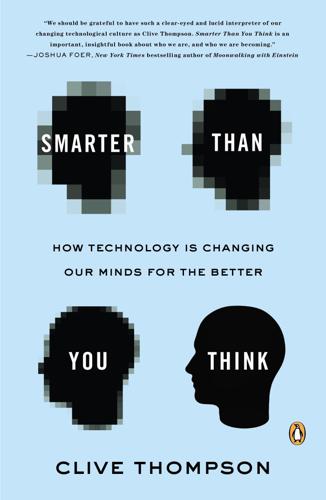
Smarter Than You Think: How Technology Is Changing Our Minds for the Better
by
Clive Thompson
Published 11 Sep 2013
Indeed, some of the most interesting conversations I encounter online happen in smaller-scale, less-populated discussion forums devoted to hobbies. Because small forums cost almost nothing to run, hobbyists don’t need to succumb to the privacy-eroding logic of monetization. And in smaller, more intimate groups, participants worry less about context collapse. Other forums—like the infamous 4chan or the mothers’ board YouBeMom—offer radical anonymity as a way to encourage people to speak freely, and the conversations there are more freewheeling, for good and ill, than just about anywhere online. The culture of being always on—available to respond to any social ping, and feeling compelled to do so—may also fade.
…
See also social networks abusive comments, preventing, 80 and advertising, 237, 272 and ambient awareness, 210–44 anonymous pages, delisting of, 272 audience effect, 76 personality construction from pages, 216 social codes, need for, 42 white walling account, 240 words-per-day volume, 47 writing on, daily volume, 47 Fair Housing Act (1968), 251 Fair Labor Association, 276–77 fan fiction, 47–48, 51, 153–55 Pinboard upgrades, collaborative document on, 154–55 slash fiction, 153–54 FAQ (frequently asked questions), 75–76 fear of missing out (FOMO), 231 Ferrucci, David, 280–81 Feynman, Richard, 6, 99 Fifty Shades of Grey (James), 154 filters, photographic, 109–10 Findings, 243 Fischer, Bobby, 18 Five Pillars, of Wikipedia, 163 Fleming, Alexander, 61, 63–64 Florey, Howard, 64 Florilegia, 12 focus. See attention/focus Fold.it, 167–68 forgetting. See also memory and ability to refind information, 127–28 artificial forgetting, 241–42 benefits of, 40–41 details versus meaning, 129, 133–34 Ebbinghaus curve, 25, 144–45 process of, 23–24 4chan, 241 Foursquare, 37–38 FoursquareAnd7YearsAgo, 38 Freedom app, 136 Friedel, Frederic, 17 Frye, Northrop, 132 Fuchsian functions, 132 Fujifilm Velvia film, 110 “Funes, the Memorius” (Borges), 39–40 Galaga (video game), 148 Galaxy Zoo, 169 Galileo, 59 Galton, Francis, 155–56 Gardner, Sue, 161 Gee, James Paul, 198 generation effect, 57, 75, 184 geography, learning through video games, 199–202 geolocation.
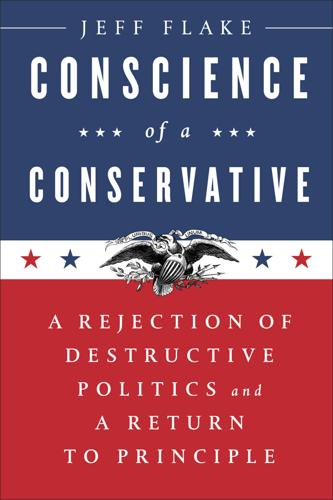
Conscience of a Conservative: A Rejection of Destructive Politics and a Return to Principle
by
Jeff Flake
Published 31 Jul 2017
And in a more recent example of outrageous alternate reality, by the election of 2016 the right-wing Internet was ablaze with stories of how the former secretary of state and Democratic nominee for president was the supposed leader of a massive international child-enslavement ring run out of a pizza parlor in Washington, D.C., and of how her campaign chairman, John Podesta, also said to be part of this ring, engaged in satanic rituals as well. The origin of this story seems to have been a white supremacist Twitter account, from which it was then amplified, as are so many of these deranged fantasies, in the comments sections of 4chan and Reddit before virally making its way to more mainstream outlets and becoming a story of truly global proportions. Never mind that there were more than enough serious and legitimate reasons to oppose and defeat Hillary Clinton. So many people on my side were too eager to reach for and spread conspiracy theories, too eager to believe in premises that were demonstrably false—among them senior aides to our presidential candidate.
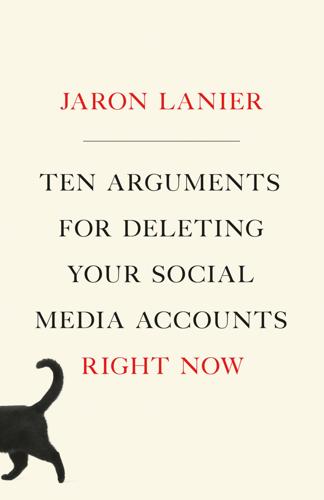
Ten Arguments for Deleting Your Social Media Accounts Right Now
by
Jaron Lanier
Published 28 May 2018
This can be debated! A good way to tell is that first-rank BUMMER companies are the ones that attract efforts or spending from bad actors like Russian state intelligence warfare units. This test reveals that there are pseudo-BUMMER services that contain only subsets of the components, like Reddit and 4chan, but still play significant roles in the BUMMER ecosystem. Next-order services that might become BUMMER but haven’t achieved scale are operated by the other tech giants, Microsoft, Amazon, and Apple, as well as by smaller companies like Snap. But this second argument is not about corporations, it’s about you.

Dawn of the New Everything: Encounters With Reality and Virtual Reality
by
Jaron Lanier
Published 21 Nov 2017
The Valley is still fairly lefty-progressive, but a libertarian strain has become quite intense.2 At the start of this book, my younger self thought the future sounded like both hell and heaven. There’s certainly plenty of hell to go around lately. Digital hothouses of irritable politics migrated from Usenet’s alt. hierarchy to Reddit, 4chan, and other hubs, and nurtured outbreaks of ill will like Gamergate, and most recently the alt-right. Unfortunately, the story of VR is intertwined with that migration. Read the sorry tale in appendix 3. Despite the long history of inadequacy in cautionary tales about computation—people always seem to want dystopian tech because it looks so cool3—I tried writing in the genre myself, starting right after I left VPL.
…
ethical filtering eugenics Evergreen College everything dreams of previous, drugs as evolution Exorcist, The (film) experiences, as allegories experimental music experimental programming language eye contact Eyematic EyePhone EyePhone HRX eyes face blindness (prosopagnosia) Facebook facial expression facial recognition facial tracking Fairness Doctrine Fakespace Fantastic magazine FBI “Feelies” Feiner, Steve feminist game designs Fermi Paradox Feynman, Richard field of view figure eight sensorimotor loop financial incentives Finite and Infinite Games (Carse) Fisher, Scott fitness bands flight simulators floating holograms flute flying saucers force feedback Ford Motors forgeries form factor Forster, E.M. FORTH Fortran Foster, Scott 4chan 4-D VR playthings FOV2GO France free information free software free speech free will French intelligence French investors Fresnel optics Freud, Sigmund Freud avatars frontier, end of Fuchs, Henry Fuller, Buckminster Furness, Tom, xviiin futurism Gabriel, Peter Gaga, Lady Gal, Ran gall bladder procedure game hackers gamelan Game of Life Gamergate game theory gaming culture Garcia, Annabelle Garcia, Jerry gatekeeping Gell-Mann, Murray general purpose simulators general relativity Generation X genetics genomics geodesic domes geometry Germany Gernsback, Hugo Ghana Gibson, William Gilliam, Terry Gilmore, John global virtual space glove-based manipulation goats Gödel, Escher, Bach (Hofstader) Goelz, Dave Goffman, Ken (R.
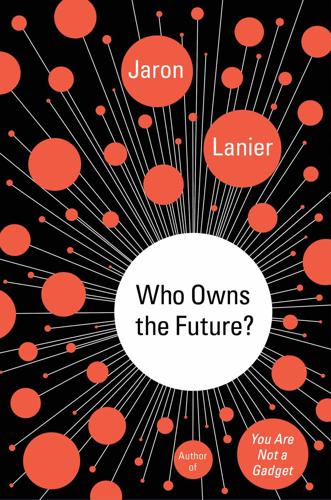
Who Owns the Future?
by
Jaron Lanier
Published 6 May 2013
In either case, the point is that there could never be enough police to enforce a standard of behavior that most people reject. It saddens me that even idealistic digital activists often assume that enforcement is the key question. We’ve become used to a double standard online, where there’s either an often mean-spirited, hostile anarchy or one submits to institutional control. Anarchy reigns on sites like 4chan or in uncensored comments on videos or articles. Meanwhile most content and expression flows through institutional channels like app stores or social networks in which censorious policies are enforced. Neither situation supports real freedom. (Many of the most supposedly open and free online designs are often actually choked by a controlling elite.)1 Real freedom has to be based on most people choosing to give each other latitude most of the time.
…
W., 149 Bush, Vannevar, 221n business data, 112–13, 150, 189 business plans, 107–8, 117–20, 154, 169–74, 175, 236, 258, 301–2, 344–45 cached data mirrors, 223 Cage, John, 212 California, University of, at Berkeley, 104, 107–8, 111, 172 call centers, 177n Caltech, 94, 184 Cambridge, Mass., 157–58 cameras, 2, 10, 89, 265, 309–11, 319 capital flows, 37, 43–45, 47, 49, 201, 329, 355–56 capitalism, 11, 16–17, 20, 43–46, 47, 49, 66–67, 79, 208, 243, 246–48, 258, 260–63, 272, 273n, 277, 329 capital resources, 86 “captured” populations, 170–71 carbon credits, 87, 88, 298–99, 300, 301–3, 314 cartels, 158 Catholic Church, 190 cell phones, 34n, 39, 85, 87, 162, 172, 182n, 192, 229, 269n, 273, 314, 315, 331 Central Intelligence Agency (CIA), 199–200 chance, 23n change acceleration, 10, 21, 130–33, 136, 193–95, 217 chaos, 165–66, 273n, 331 cheating, 120, 335 Chicago, Ill., 47 China, 54, 70, 85, 87, 199, 200, 201, 208 Christianity, 190, 193–94, 293 Christian Science, 293 civility, 293–94 civilization, 123, 255, 300, 311, 336 civil liberties, 317–24 classified ads, 177n click-through counts, 183, 286, 347 clothing, 89, 260, 367 Cloud Atlas, 165 cloud processors and storage, 11–12, 19, 20, 42, 62, 88, 92, 100, 110, 113, 121, 124n, 144, 146n, 147, 149, 151, 153–54, 168, 203, 209, 245–46, 255, 258, 261–62, 274, 284, 292, 306, 311–13, 326, 338, 347–48, 350, 359 code, 112, 272 cognition, 111–12, 195–96, 260, 312–13, 314, 315, 328 Cold War, 189 Coleman, Ornette, 353 collectives, 358–60 collusion, 65–66, 72, 169–74, 255, 350–51 Columbia Records, 161n commercial rights, 317–24, 347 commissions, 184 communications industry, 258 communism, 136, 153, 291, 344 compensatory servers, 64 competition, 42, 60, 81, 143–44, 147, 153, 180, 181, 187–88, 246–48, 326 complexity, 53–54 Computer Lib/Dream Machines (Nelson), 229 computer programmers, 113–14, 123, 286n computers: artificiality of, 130, 134 calculations by, 146n, 147–48, 149, 151 cloud processors and, see cloud processors and storage development of, 53, 129–30 as machines, 22–25, 123, 129–30, 155, 158, 165–66, 178, 191, 193, 195, 248, 257–58, 261, 328 memory of, 146n networks of, see digital networks parallel, 147–48, 149, 151 personal (PCs), 158, 182n, 214, 223, 229 programming of, 113–14, 120, 123, 157, 180, 193, 248, 272, 286n, 342, 362–63 remote, 11–12 reversible, 143n security of, 175, 345–46 servers for, 12n, 15, 31, 53–57, 71–72, 95–96, 143–44, 171, 180, 183, 206, 245, 358 software for, 7, 9, 11, 14, 17, 68, 86, 99, 100–101, 128, 129, 147, 154, 155, 165, 172–73, 177–78, 182, 192, 234, 236, 241–42, 258, 262, 273–74, 283, 331, 347, 357 user interface for, 362–63, 364 computer science, 113–14, 120, 123, 157, 180, 193, 248, 272, 286n, 342, 362–63 conflicts of interest, 62n Confucianism, 214, 215–16 connectivity, 171–72, 184–85, 273, 296n, 309, 316, 331 consciousness, 195–96 conservatism, 148, 149–51, 153, 204, 208, 249, 251, 253, 256, 293 construction industry, 151 consultants, 69–72 consumer electronics, 85–86, 162 consumer-facing sites, 179–80, 182, 216 consumers, see economies, consumer “content farms,” 120 contracts, 79–82, 172, 182, 183–84, 246–48, 314, 347, 352–53 copyright, 44, 47, 49, 60, 61, 96, 183, 206, 207, 224–26, 239–40, 263–64 corporations, 265–67, 307, 314, 348–51 correlations, 75–76, 114–15, 192, 274–75 correlative algorithms, 75–76 corruption, 31, 48, 77, 235, 257, 341n cost comparisons, 64 cost-effectiveness, 136–37 cost externalization, 59n countercultures, 24 Craigslist, 177n credit, 52, 116, 177, 193, 287–90, 305, 320, 337–38 credit cards, 185, 186, 269n credit ratings, 52, 116, 177, 193, 320 creepiness, 305–24 crime, 48, 307, 311, 319–21 crowdsourcing, 21, 86, 119–20, 356 cryptography, 14 currencies, 286–87 customer service, 177 cyberactivism, 14, 199, 200–201, 210, 308–9, 335–36, 339 cyberattacks, 201 cybernetics, 230 cyberpunk literature, 309, 356n Daedalus, 22 data, 12, 20, 50–54, 55, 71–76, 92, 167n, 174, 176–77, 178, 196, 223, 234–35, 246–48, 256–58, 271–75, 286–87, 292, 300, 307, 316, 317–24, 347 see also big data databases, 20, 71–72, 75–76, 178, 192, 203 data copying, 50–51 data mining, 120 dating services, 108–9, 113, 167–68, 274–75, 286 Deadpool, 189 death denial, 193, 218, 253, 263–64, 325–31, 367 death tolls, 134 debt, 29, 30n, 54, 92, 95, 96 Debt: The First 5,000 Years (Graeber), 30n decision-making, 63–64, 184, 266, 269–75, 284n decision reduction, 266, 269–71, 284n deconstructionism, 131 democracy, 9, 32–33, 44, 90–92, 120, 200, 202–4, 207, 208, 209, 209, 210, 246–48, 277–78, 321, 324, 336, 342 Democratic Party, 202 demonetization, 172, 176n, 186, 207, 260–61 denial of service, 171–72, 312–13, 315 depopulation, 97, 133 depressions, economic, 69–70, 75, 135, 151–52, 288, 299 deprinters, 88 derivatives funds, 56, 60, 149, 153, 155, 301 determinism, 125, 143, 156, 166–68, 202, 328, 361 devaluation, 15–16, 19–21 developed world, 53–54 Diamond, Jared, 134 dice throws, 23n Dick, Philip K., 18, 137 differential pricing, 63–64 digital cameras, 2 digital networks, 2–3, 9, 11, 12, 14, 15, 16, 17, 19–21, 31, 35, 49, 50–51, 53, 54–55, 56, 57, 59, 60–61, 66–67, 69–71, 74, 75, 77–80, 92, 96, 99, 107–8, 118–19, 120, 122, 129–30, 133n, 136–37, 143–48, 192, 199, 209, 221–30, 234, 235, 245–51, 259, 277, 278, 286–87, 308–9, 316, 337, 345, 349, 350, 355, 366–67 design of, 40–45 educational, 92–97 effects, 99, 153, 169–74, 179, 181–82, 183, 186, 207, 305, 362–63, 366 elite, 15, 31, 54–55, 60, 122, 201 graph-shaped, 214, 242–43 medical, 98–99 nodes of, 156, 227, 230, 241–43, 350 power of, 147–49, 167 punishing vs. rewarding, 169–74, 182, 183 tree-shaped, 241–42, 243, 246 see also Internet digital rights movement, 225–26 digital technology, 2–3, 7–8, 15–16, 18, 31, 40, 43, 50–51, 132, 208 dignity, 51–52, 73–74, 92, 209, 239, 253–64, 280, 319, 365–66 direct current (DC), 327 disease, 110 disenfranchisement, 15–16 dossiers, personal, 109, 318 dot-com bubble, 186, 301 double-blind tests, 112 Drexler, Eric, 162 DSM, 124n dualism, 194–95 Duncan, Isadora, 214 Dyson, George, 192 dystopias, 130, 137–38 earthquakes, 266 Eastern Religion, 211–17 eBay, 173, 176, 177n, 180, 241, 343 eBooks, 113, 246–47, 352–60 eBureau, 109 economic avatars, 283–85, 302, 337–38 economics, 1–3, 15, 22, 37, 38, 40–41, 42, 67, 122, 143, 148–52, 153, 155–56, 204, 208, 209, 236, 259, 274, 288, 298–99, 311, 362n, 363 economies: austerity in, 96, 115, 125, 151, 152, 204, 208 barter system for, 20, 57 collusion in, 65–66, 72, 169–74, 255, 350–51 competition in, 42, 60, 81, 143–44, 147, 153, 180, 181, 187–88, 246–48, 326 consumer, 16–17, 43, 54, 56n, 62, 63–65, 72–74, 85–86, 98, 114, 117, 154, 162, 173–74, 177, 179–80, 182, 192, 193, 215, 216, 223, 227, 241, 246, 247, 248–64, 271–72, 273, 286–88, 293, 323, 347–48, 349, 355–56, 357, 358–60 depressions in, 69–70, 75, 135, 151–52, 288, 299 dignity in, 51–52, 73–74, 92, 209, 239, 253–64, 280, 319, 365–66 distributions in, 37–45 of education, 92–97 efficiency in, 39, 42–43, 53, 61, 66–67, 71–74, 88, 90, 97, 118, 123, 155, 176n, 187–88, 191, 236, 246, 310, 349 entrepreneurial, 14, 57, 79, 82, 100–106, 116, 117–20, 122, 128, 148–49, 166, 167, 183, 200, 234, 241–43, 248, 274, 326, 359 equilibrium in, 148–51 financial sector in, 7n, 29–31, 35, 38, 45, 49, 50, 52, 54, 56–67, 69–70, 74–80, 82, 115, 116–20, 148n, 153–54, 155, 179–85, 200, 208, 218, 254, 257, 258, 277–78, 298, 299–300, 301, 336–37, 344–45, 348, 350 freedom and, 32–33, 90–92, 277–78, 336 global, 33n, 153–56, 173, 201, 214–15, 280 government oversight of, 44, 45–46, 49, 79–80, 96, 151–52, 158, 199, 205–6, 234–35, 240, 246, 248–51, 299–300, 307, 317, 341, 345–46, 350–51 growth in, 32, 43–45, 53–54, 119, 149–51, 236, 256–57, 270–71, 274–75, 291–94, 350 of health care, 98–99, 100, 153–54 historical analysis of, 29–31, 37–38, 69–70 humanistic, 194, 209, 233–351 361–367 of human labor, 85, 86, 87, 88, 99–100, 257–58, 292 identity in, 82, 283–90, 305, 306, 307, 315–16 inclusiveness of, 291–94 information, 1–3, 8–9, 15–17, 18, 19–20, 21, 35, 60–61, 92–97, 118, 185, 188, 201, 207, 209, 241–43, 245–46, 246–48, 256–58, 263, 283–87, 291–303, 331, 361–67 leadership in, 341–51 legal issues for, 49, 74–78 levees in, 43–45, 46, 47, 48, 49–50, 52, 92, 94, 96, 98, 108, 171, 176n, 224–25, 239–43, 253–54, 263, 345 local advantages in, 64, 94–95, 143–44, 153–56, 173, 203, 280 market, 16–17, 20, 23–24, 33–34, 38, 39, 43–46, 47, 50–52, 66–67, 75, 108, 118–19, 126, 136, 143, 144–48, 151–52, 155, 156, 167, 202, 207, 221–22, 240, 246–48, 254–57, 261, 262–63, 266, 277–78, 288, 292–93, 297–300, 318, 324, 326, 329, 344, 354, 355–56; see also capitalism mathematical analysis of, 40–41 models of, 40–41, 148–52, 153, 155–56 monopolies in, 60, 65–66, 169–74, 181–82, 187–88, 190, 202, 326, 350 morality and, 29–34, 35, 42, 50–52, 54, 71–74, 252–64 Nelsonian, 335, 349–50 neutrality in, 286–87 optimization of, 144–47, 148, 153, 154–55, 167, 202, 203 outcomes in, 40–41, 144–45 political impact of, 21, 47–48, 96, 149–51, 155, 167, 295–96 pricing strategies in, 1–2, 43, 60–66, 72–74, 145, 147–48, 158, 169–74, 226, 261, 272–75, 289, 317–24, 331, 337–38 productivity of, 7, 56–57, 134–35 profit margins in, 59n, 71–72, 76–78, 94–95, 116, 177n, 178, 179, 207, 258, 274–75, 321–22 public perception of, 66n, 79–80, 149–50 recessions in, 31, 54, 60, 76–77, 79, 151–52, 167, 204, 311, 336–37 regulation of, 37–38, 44, 45–46, 49–50, 54, 56, 69–70, 77–78, 266n, 274, 299–300, 311, 321–22, 350–51 risk in, 54, 55, 57, 59–63, 71–72, 85, 117, 118–19, 120, 156, 170–71, 179, 183–84, 188, 242, 277–81, 284, 337, 350 scams in, 119–21, 186, 275n, 287–88, 299–300 self-destructive, 60–61 social aspect of, 37–38, 40, 148–52, 153, 154–56 stimulus methods for, 151–52 sustainable, 235–37, 285–87 transformation of, 280–94, 341–51 trust as factor in, 32–34, 35, 42, 51–52 value in, 21, 33–35, 52, 61, 64–67, 73n, 108, 283–90, 299–300, 321–22, 364 variables in, 149–50 vendors in, 71–74 Edison, Thomas, 263, 327 editors, 92 education, 92–97, 98, 120, 150, 201 efficiency, 39, 42–43, 53, 61, 66–67, 71–74, 88, 90, 97, 118, 123, 155, 176n, 187–88, 191, 236, 246, 310, 349 Egypt, 95 eHarmony, 167–68 Einstein, Albert, 208n, 364 elderly, 97–100, 133, 269, 296n, 346 elections, 202–4, 249, 251 electricity, 131, 327 Electronic Frontier Foundation, 184 “elevator pitch,” 233, 342, 361 Eloi, 137 employment, 2, 7–8, 11, 22, 56–57, 60, 71–74, 79, 85–106, 117, 123, 135, 149, 151–52, 178, 201, 234, 257–58, 321–22, 331, 343 encryption, 14–15, 175, 239–40, 305–8, 345 Encyclopaedia Britannica, 338 End of History, The (Fukuyama), 165 endoscopes, 11 end-use license agreements (EULAs), 79–82, 314 energy landscapes, 145–48, 152, 209, 336, 350 energy sector, 43, 55–56, 90, 144, 258, 301–3 Engelbart, Doug, 215 engineering, 113–14, 120, 123–24, 157, 180, 192, 193, 194, 217, 218, 248, 272, 286n, 326, 342, 362–63 Enlightenment, 35, 255 enneagrams, 124n, 215 Enron Corp., 49, 74–75 entertainment industry, 7, 66, 109, 120, 135, 136, 185–86, 258, 260 see also mass media entrepreneurship, 14, 57, 79, 82, 100–106, 116, 117–20, 122, 128, 148–49, 166, 167, 183, 200, 234, 241–43, 248, 274, 326, 359 entropy, 55–56, 143, 183–84 environmental issues, 32 equilibrium, 148–51 Erlich, Paul, 132 est, 214 Ethernet, 229 Etsy, 343 Europe, 45, 54, 77, 199 evolution, 131, 137–38, 144, 146–47 exclusion principle, 181, 202 Expedia, 65 experiments, scientific, 112 experts, 88, 94–95, 124, 133–34, 178, 325–31, 341, 342 externalization, 59n Facebook, 2, 8, 14, 20, 56–57, 93, 109, 154, 169, 171, 174, 180, 181, 188, 190–91, 200n, 204, 206, 207, 209, 210, 214, 215, 217, 227, 242–43, 246, 248, 249, 251, 270, 280, 286, 306, 309, 310, 313, 314, 317, 318, 322, 326, 329, 341, 343, 344, 346, 347–48, 366 facial recognition, 305n, 309–10 factories, 43, 85–86, 88, 135 famine, 17, 132 Fannie Mae, 69 fascism, 159–60 fashion, 89, 260 feedback, 112, 162, 169, 203, 298, 301–3, 363–64, 365 fees, service, 81, 82 feudalism, 79 Feynman, Richard, 94 file sharing, 50–52, 61, 74, 78, 88, 100, 223–30, 239–40, 253–64, 277, 317–24, 335, 349 “filter bubbles,” 225, 357 filters, 119–20, 200, 225, 356–57 financial crisis (2008), 76–77, 115, 148n financial services, 7n, 29–31, 35, 38, 45, 49, 50, 52, 54, 56–67, 69–70, 74–80, 82, 115, 116–20, 148n, 153–54, 155, 179–85, 200, 208, 218, 254, 257, 258, 277–78, 298, 299–300, 301, 336–37, 344–45, 348, 350 firewalls, 305 first-class economic citizens, 246, 247, 248–51, 273, 286–87, 323, 349, 355–56 Flightfox, 64 fluctuations, 76–78 flu outbreaks, 110, 120 fMRI, 111–12 food supplies, 17, 123, 131 “Fool on the Hill, The,” 213 Ford, Henry, 43 Ford, Martin, 56n Forster, E. M., 129–30, 261, 328 “Forum,” 214 Foucault, Michel, 308n 4chan, 335 4′33″ (Cage), 212 fractional reserve system, 33 Franco, Francisco, 159–60 freedom, 13–15, 32–33, 90–92, 277–78, 336 freelancing, 253–54 Free Print Shop, 228 “free rise,” 182–89, 355 free speech, 223, 225 free will, 166–68 “friction,” 179, 225, 230, 235, 354 Friendster, 180, 181 Fukuyama, Francis, 165, 189 fundamentalism, 131, 193–94 future: chaos in, 165–66, 273n, 331 economic analysis of, 1–3, 15, 22, 37, 38, 40–41, 42, 67, 122, 143, 148–52, 153, 155–56, 204, 208, 209, 236, 259, 274, 288, 298–99, 311, 362n, 363 humanistic economy for, 194, 209, 233–351 361–367 “humors” of, 124–40, 230 modern conception of, 123–40, 193–94, 255 natural basis of, 125, 127, 128–29 optimism about, 32–35, 45, 130, 138–40, 218, 230n, 295 politics of, 13–18, 22–25, 85, 122, 124–26, 128, 134–37, 199–234, 295–96, 342 technological trends in, 7–18, 21, 53–54, 60–61, 66–67, 85–86, 87, 97–98, 129–38, 157–58, 182, 188–90, 193–96, 217 utopian conception of, 13–18, 21, 30, 31, 37–38, 45–46, 96, 128, 130, 167, 205, 207, 265, 267, 270, 283, 290, 291, 308–9, 316 future-oriented money, 32–34, 35 Gadget, 186 Gallant, Jack, 111–12 games, 362, 363 Gates, Bill, 93 Gattaca, 130 Gawker, 118n Gelernter, David, 313 “general” machines, 158 General Motors, 56–57 general relativity theory, 167n Generation X, 346 genetic engineering, 130 genetics, 109–10, 130, 131, 146–47, 329, 366 genomics, 109–10, 146–47, 366 Germany, 45 Ghostery, 109 ghost suburbs, 296 Gibson, William, 137, 309 Gizmodo, 117–18 Global Business Network (GBN), 214–15 global climate change, 17, 32, 53, 132, 133, 134, 203, 266, 295, 296–97, 301–2, 331 global economy, 33n, 153–56, 173, 201, 214–15, 280 global village, 201 God, 29, 30–31, 139 Golden Goblet, 121, 121, 175, 328 golden rule, 335–36 gold standard, 34 Google, 14, 15, 19, 69, 74, 75–76, 90, 94, 106, 110, 120, 128, 153, 154, 170, 171, 174, 176, 180, 181–82, 188, 191, 192, 193, 199–200, 201, 209, 210, 217, 225, 227, 246, 249, 265, 267, 272, 278, 280, 286, 305n, 307, 309–10, 322, 325, 330, 344, 348, 352 Google Goggles, 309–10 Googleplex, 199–200 goops, 85–89, 99 Gore, Al, 80n Graeber, David, 30n granularity, 277 graph-shaped networks, 241, 242–43 Great Britain, 200 Great Depression, 69–70, 75, 135, 299 Great Recession, 31, 54, 60, 76–77, 204, 311, 336–37 Greece, 22–25, 45, 125 Grigorov, Mario, 267 guitars, 154 guns, 310–11 Gurdjieff, George, 215, 216 gurus, 211–13 hackers, 14, 82, 265, 306–7, 345–46 Hardin, Garrett, 66n Hartmann, Thom, 33n Hayek, Friedrich, 204 health care, 66–67, 95, 98–99, 100, 132–33, 153–54, 249, 253, 258, 337, 346 health insurance, 66–67, 95, 98–99, 100, 153–54 Hearts and Minds, 353n heart surgery, 11–13, 17, 18, 157–58 heat, 56 hedge funds, 69, 106, 137 Hephaestus, 22, 23 high-dimensional problems, 145 high-frequency trading, 56, 76–78, 154 highways, 79–80, 345 Hinduism, 214 Hippocrates, 124n Hiroshima bombing (1945), 127 Hollywood, 204, 206, 242 holographic radiation, 11 Homebrew Club, 228 homelessness, 151 homeopathy, 131–32 Homer, 23, 55 Honan, Mat, 82 housing market, 33, 46, 49–52, 61, 78, 95–96, 99, 193, 224, 227, 239, 245, 255, 274n, 289n, 296, 298, 300, 301 HTML, 227, 230 Huffington Post, 176, 180, 189 human agency, 8–21, 50–52, 85, 88, 91, 124–40, 144, 165–66, 175–78, 191–92, 193, 217, 253–64, 274–75, 283–85, 305–6, 328, 341–51, 358–60, 361, 362, 365–67 humanistic information economy, 194, 209, 233–351 361–367 human reproduction, 131 humors (tropes), 124–40, 157, 170, 230 hunter-gatherer societies, 131, 261–62 hyperefficient markets, 39, 42–43 hypermedia, 224–30, 245 hyper-unemployment, 7–8 hypotheses, 113, 128, 151 IBM, 191 identity, 14–15, 82, 124, 173–74, 175, 248–51, 283–90, 305, 306, 307, 315–16, 319–21 identity theft, 82, 315–16 illusions, 55, 110n, 120–21, 135, 154–56, 195, 257 immigration, 91, 97, 346 immortality, 193, 218, 253, 263–64, 325–31, 367 imports, 70 income levels, 10, 46–47, 50–54, 152, 178, 270–71, 287–88, 291–94, 338–39, 365 incrementalism, 239–40 indentured servitude, 33n, 158 India, 54, 211–13 industrialization, 49, 83, 85–89, 123, 132, 154, 343 infant mortality rates, 17, 134 infinity, 55–56 inflation, 32, 33–34 information: age of, 15–17, 42, 166, 241 ambiguity of, 41, 53–54, 155–56 asymmetry of, 54–55, 61–66, 118, 188, 203, 246–48, 285–88, 291–92, 310 behavior influenced by, 32, 121, 131, 173–74, 286–87 collection of, 61–62, 108–9 context of, 143–44, 178, 188–89, 223–24, 225, 245–46, 247, 248–51, 338, 356–57, 360 correlations in, 75–76, 114–15, 192, 274–75 for decision-making, 63–64, 184, 266, 269–75, 284n digital networks for, see digital networks duplication of, 50–52, 61, 74, 78, 88, 223–30, 239–40, 253–64, 277, 317–24, 335, 349 economic impact of, 1–3, 8–9, 15–17, 18, 19–20, 21, 35, 60–61, 92–97, 118, 185, 188, 201, 207, 209, 241–43, 245–46, 246–48, 256–58, 263, 283–87, 291–303, 331, 361–67 in education, 92–97 encrypted, 14–15, 175, 239–40, 305–8, 345 false, 119–21, 186, 275n, 287–88, 299–300 filters for, 119–20, 200, 225, 356–57 free, 7–9, 15–16, 50–52, 61, 74, 78, 88, 214, 223–30, 239–40, 246, 253–64, 277, 317–24, 335, 349 history of, 29–31 human agency in, 22–25, 69–70, 120–21, 122, 190–91 interpretation of, 29n, 114–15, 116, 120–21, 129–32, 154, 158, 178, 183, 184, 188–89 investment, 59–60, 179–85 life cycle of, 175–76 patterns in, 178, 183, 184, 188–89 privacy of, see privacy provenance of, 245–46, 247, 338 sampling of, 71–72, 191, 221, 224–26, 259 shared, 50–52, 61, 74, 78, 88, 100, 223–30, 239–40, 253–64, 277, 317–24, 335, 349 signals in, 76–78, 148, 293–94 storage of, 29, 167n, 184–85; see also cloud processors and storage; servers superior, 61–66, 114, 128, 143, 171, 246–48 technology of, 7, 32–35, 49, 66n, 71–72, 109, 110, 116, 120, 125n, 126, 135, 136, 254, 312–16, 317 transparency of, 63–66, 74–78, 118, 190–91, 306–7 two-way links in, 1–2, 227, 245, 289 value of, 1–3, 15–16, 20, 210, 235–43, 257–58, 259, 261–63, 271–75, 321–24, 358–60 see also big data; data infrastructure, 79–80, 87, 179, 201, 290, 345 initial public offerings (IPOs), 103 ink, 87, 331 Inner Directeds, 215 Instagram, 2, 53 instant prices, 272, 275, 288, 320 insurance industry, 44, 56, 60, 66–67, 95, 98–99, 100, 153–54, 203, 306 intellectual property, 44, 47, 49, 60, 61, 96, 102, 183, 204, 205–10, 223, 224–26, 236, 239–40, 246, 253–64 intelligence agencies, 56, 61, 199–200, 291, 346 intelligence tests, 39, 40 interest rates, 81 Internet: advertising on, 14, 20, 24, 42, 66, 81, 107, 109, 114, 129, 154, 169–74, 177, 182, 207, 227, 242, 266–67, 275, 286, 291, 322–24, 347–48, 354, 355 anonymity of, 172, 248–51, 283–90 culture of, 13–15, 25 development of, 69, 74, 79–80, 89, 129–30, 159, 162, 190–96, 223, 228 economic impact of, 1–2, 18, 19–20, 24, 31, 43, 60–66, 79–82, 117, 136–37, 169–74, 181, 186 employment and, 2, 7–8, 56–57, 60, 71–74, 79, 117, 123, 135, 149, 178, 201, 257–58 file sharing on, 50–52, 61, 74, 78, 88, 100, 223–30, 239–40, 253–64, 277, 317–24, 335, 349 free products and services of, 7n, 10, 60–61, 73, 81, 82, 90, 94–96, 97, 128, 154, 176, 183, 187, 201, 205–10, 234, 246–48, 253–64, 283–88, 289, 308–9, 317–24, 337–38, 348–50, 366 human contributions to, 19–21, 128, 129–30, 191–92, 253–64 identity in, 14–15, 82, 173–74, 175, 283–90, 315–16 investment in, 117–20, 181 legal issues in, 63, 79–82, 204, 206, 318–19 licensing agreements for, 79–82 as network, 2–3, 9, 11, 12, 14, 15, 16, 17, 19–21, 31, 49, 50–51, 53, 54–55, 56, 57, 75, 92, 129–30, 143–48, 228–29, 259, 286–87, 308–9 political aspect of, 13–15, 205–10 search engines for, 51, 60, 70, 81, 120, 191, 267, 289, 293; see also Google security of, 14–15, 175, 239–40, 305–8, 345 surveillance of, 1–2, 11, 14, 50–51, 64, 71–72, 99, 108–9, 114–15, 120–21, 152, 177n, 199–200, 201, 206–7, 234–35, 246, 272, 291, 305, 309–11, 315, 316, 317, 319–24 transparency of, 63–66, 176, 205–6, 278, 291, 308–9, 316, 336 websites on, 80, 170, 200, 201, 343 Internet2, 69 Internet service providers (ISPs), 171–72 Interstate Highway System, 79–80, 345 “In-valid,” 130 inventors, 117–20 investment, financial, 45, 50, 59–67, 74–80, 115, 116–20, 155, 179–85, 208, 218, 257, 258, 277–78, 298, 301, 348, 350 Invisible Hand humor, 126, 128 IP addresses, 248 iPads, 267 Iran, 199, 200 irony, 130 Islam, 184 Italy, 133 Jacquard programmable looms, 23n “jailbreaking,” 103–4 Japan, 85, 97, 98, 133 Jeopardy, 191 Jeremijenko, Natalie, 302 jingles, 267 jobs, see employment Jobs, Steve, 93, 166n, 192, 358 JOBS Act (2012), 117n journalism, 92, 94 Kapital, Das (Marx), 136 Keynesianism, 38, 151–52, 204, 209, 274, 288 Khan Academy, 94 Kickstarter, 117–20, 186–87, 343 Kindle, 352 Kinect, 89n, 265 “Kirk’s Wager,” 139 Klout, 365 Kodak, 2, 53 Kottke, Dan, 211 KPFA, 136 Kurzweil, Ray, 127, 325, 327 Kushner, Tony, 165, 189 LaBerge, Stephen, 162 labor, human, 85, 86, 87, 88, 99–100, 257–58, 292 labor unions, 44, 47–48, 49, 96, 239, 240 Laffer curve, 149–51, 150, 152 Las Vegas, Nev., 296, 298 lawyers, 98–99, 100, 136, 184, 318–19 leadership, 341–51 legacy prices, 272–75, 288 legal issues, 49, 63, 74–82, 98–99, 100, 104–5, 108, 136, 184, 204, 206, 318–19 Lehman Brothers, 188 lemonade stands, 79–82 “lemons,” 118–19 Lennon, John, 211, 213 levees, economic, 43–45, 46, 47, 48, 49–50, 52, 92, 94, 96, 98, 108, 171, 176n, 224–25, 239–43, 253–54, 263, 345 leveraged mortgages, 49–50, 61, 227, 245, 289n, 296 liberal arts, 97 liberalism, 135–36, 148, 152, 202, 204, 208, 235, 236, 251, 253, 256, 265, 293, 350 libertarianism, 14, 34, 80, 202, 208, 210, 262, 321 liberty, 13–15, 32–33, 90–92, 277–78, 336 licensing agreements, 79–82 “Lifestreams” (Gelernter), 313 Lights in the Tunnel, The (Ford), 56n Linux, 206, 253, 291, 344 litigation, 98–99, 100, 104–5, 108, 184 loans, 32–33, 42, 43, 74, 151–52, 306 local advantages, 64, 94–95, 143–44, 153–56, 173, 203, 280 Local/Global Flip, 153–56, 173, 280 locked-in software, 172–73, 182, 273–74 logical copies, 223 Long-Term Capital Management, 49, 74–75 looms, 22, 23n, 24 loopholes, tax, 77 lotteries, 338–39 lucid dreaming, 162 Luddites, 135, 136 lyres, 22, 23n, 24 machines, 19–20, 86, 92, 123, 129–30, 158, 261, 309–11, 328 see also computers “Machine Stops, The” (Forster), 129–30, 261, 328 machine translations, 19–20 machine vision, 309–11 McMillen, Keith, 117 magic, 110, 115, 151, 178, 216, 338 Malthus, Thomas, 132, 134 Malthusian humor, 125, 127, 132–33 management, 49 manufacturing sector, 49, 85–89, 99, 123, 154, 343 market economies, see economies, market marketing, 211–13, 266–67, 306, 346 “Markets for Lemons” problem, 118–19 Markoff, John, 213 marriage, 167–68, 274–75, 286 Marxism, 15, 22, 37–38, 48, 136–37, 262 as humor, 126 mash-ups, 191, 221, 224–26, 259 Maslow, Abraham, 260, 315 Massachusetts Institute of Technology (MIT), 75, 93, 94, 96–97, 157–58, 184 mass media, 7, 66, 86, 109, 120, 135, 136, 185–86, 191, 216, 267 material extinction, 125 materialism, 125n, 195 mathematics, 11, 20, 40–41, 70, 71–72, 75–78, 116, 148, 155, 161, 189n, 273n see also statistics Matrix, The, 130, 137, 155 Maxwell, James Clerk, 55 Maxwell’s Demon, 55–56 mechanicals, 49, 51n Mechanical Turk, 177–78, 185, 187, 349 Medicaid, 99 medicine, 11–13, 17, 18, 54, 66–67, 97–106, 131, 132–33, 134, 150, 157–58, 325, 346, 363, 366–67 Meetings with Remarkable Men (Gurdjieff), 215 mega-dossiers, 60 memes, 124 Memex, 221n memories, 131, 312–13, 314 meta-analysis, 112 metaphysics, 12, 127, 139, 193–95 Metcalf’s Law, 169n, 350 Mexico City, 159–62 microfilm, 221n microorganisms, 162 micropayments, 20, 226, 274–75, 286–87, 317, 337–38, 365 Microsoft, 19, 89, 265 Middle Ages, 190 middle class, 2, 3, 9, 11, 16–17, 37–38, 40, 42–45, 47, 48, 49, 50, 51, 60, 74, 79, 91, 92, 95, 98, 171, 205, 208, 210, 224–25, 239–43, 246, 253–54, 259, 262, 263, 280, 291–94, 331, 341n, 344, 345, 347, 354 milling machines, 86 mind reading, 111 Minority Report, 130, 310 Minsky, Marvin, 94, 157–58, 217, 326, 330–31 mission statements, 154–55 Mixed (Augmented) Reality, 312–13, 314, 315 mobile phones, 34n, 39, 85, 87, 162, 172, 182n, 192, 229, 269n, 273, 314, 315, 331 models, economic, 40–41, 148–52, 153, 155–56 modernity, 123–40, 193–94, 255 molds, 86 monetization, 172, 176n, 185, 186, 207, 210, 241–43, 255–56, 258, 260–61, 263, 298, 331, 338, 344–45 money, 3, 21, 29–35, 86, 108, 124, 148, 152, 154, 155, 158, 172, 185, 241–43, 278–79, 284–85, 289, 364 monocultures, 94 monopolies, 60, 65–66, 169–74, 181–82, 187–88, 190, 202, 326, 350 Moondust, 362n Moore’s Law, 9–18, 20, 153, 274–75, 288 morality, 29–34, 35, 42, 50–52, 54, 71–74, 188, 194–95, 252–64, 335–36 Morlocks, 137 morning-after pill, 104 morphing, 162 mortality, 193, 218, 253, 263–64, 325–31, 367 mortgages, 33, 46, 49–52, 61, 78, 95–96, 99, 224, 227, 239, 245, 255, 274n, 289n, 296, 300 motivation, 7–18, 85–86, 97–98, 216 motivational speakers, 216 movies, 111–12, 130, 137, 165, 192, 193, 204, 206, 256, 261–62, 277–78, 310 Mozart, Wolfgang Amadeus, 23n MRI, 111n music industry, 11, 18, 22, 23–24, 42, 47–51, 54, 61, 66, 74, 78, 86, 88, 89, 92, 94, 95–96, 97, 129, 132, 134–35, 154, 157, 159–62, 186–87, 192, 206–7, 224, 227, 239, 253, 266–67, 281, 318, 347, 353, 354, 355, 357 Myspace, 180 Nancarrow, Conlon, 159–62 Nancarrow, Yoko, 161 nanopayments, 20, 226, 274–75, 286–87, 317, 337–38, 365 nanorobots, 11, 12, 17 nanotechnology, 11, 12, 17, 87, 162 Napster, 92 narcissism, 153–56, 188, 201 narratives, 165–66, 199 National Security Agency (NSA), 199–200 natural medicine, 131 Nelson, Ted, 128, 221, 228, 245, 349–50 Nelsonian systems, 221–30, 335 Nelson’s humor, 128 Netflix, 192, 223 “net neutrality,” 172 networked cameras, 309–11, 319 networks, see digital networks neutrinos, 110n New Age, 211–17 Newmark, Craig, 177n New Mexico, 159, 203 newspapers, 109, 135, 177n, 225, 284, 285n New York, N.Y., 75, 91, 266–67 New York Times, 109 Nobel Prize, 40, 118, 143n nodes, network, 156, 227, 230, 241–43, 350 “no free lunch” principle, 55–56, 59–60 nondeterministic music, 23n nonlinear solutions, 149–50 nonprofit share sites, 59n, 94–95 nostalgia, 129–32 NRO, 199–200 nuclear power, 133 nuclear weapons, 127, 296 nursing, 97–100, 123, 296n nursing homes, 97–100, 269 Obama, Barack, 79, 100 “Obamacare,” 100n obsolescence, 89, 95 oil resources, 43, 133 online stores, 171 Ono, Yoko, 212 ontologies, 124n, 196 open-source applications, 206, 207, 272, 310–11 optical illusions, 121 optimism, 32–35, 45, 130, 138–40, 218, 230n, 295 optimization, 144–47, 148, 153, 154–55, 167, 202, 203 Oracle, 265 Orbitz, 63, 64, 65 organ donors, 190, 191 ouroboros, 154 outcomes, economic, 40–41, 144–45 outsourcing, 177–78, 185 Owens, Buck, 256 packet switching, 228–29 Palmer, Amanda, 186–87 Pandora, 192 panopticons, 308 papacy, 190 paper money, 34n parallel computers, 147–48, 149, 151 paranoia, 309 Parrish, Maxfield, 214 particle interactions, 196 party machines, 202 Pascal, Blaise, 132, 139 Pascal’s Wager, 139 passwords, 307, 309 “past-oriented money,” 29–31, 35, 284–85 patterns, information, 178, 183, 184, 188–89 Paul, Ron, 33n Pauli exclusion principle, 181, 202 PayPal, 60, 93, 326 peasants, 565 pensions, 95, 99 Perestroika (Kushner), 165 “perfect investments,” 59–67, 77–78 performances, musical, 47–48, 51, 186–87, 253 perpetual motion, 55 Persian Gulf, 86 personal computers (PCs), 158, 182n, 214, 223, 229 personal information systems, 110, 312–16, 317 Pfizer, 265 pharmaceuticals industry, 66–67, 100–106, 123, 136, 203 philanthropy, 117 photography, 53, 89n, 92, 94, 309–11, 318, 319, 321 photo-sharing services, 53 physical trades, 292 physicians, 66–67 physics, 88, 153n, 167n Picasso, Pablo, 108 Pinterest, 180–81, 183 Pirate Party, 49, 199, 206, 226, 253, 284, 318 placebos, 112 placement fees, 184 player pianos, 160–61 plutocracy, 48, 291–94, 355 police, 246, 310, 311, 319–21, 335 politics, 13–18, 21, 22–25, 47–48, 85, 122, 124–26, 128, 134–37, 149–51, 155, 167, 199–234, 295–96, 342 see also conservatism; liberalism; libertarianism Ponzi schemes, 48 Popper, Karl, 189n popular culture, 111–12, 130, 137–38, 139, 159 “populating the stack,” 273 population, 17, 34n, 86, 97–100, 123, 125, 132, 133, 269, 296n, 325–26, 346 poverty, 37–38, 42, 44, 53–54, 93–94, 137, 148, 167, 190, 194, 253, 256, 263, 290, 291–92 power, personal, 13–15, 53, 60, 62–63, 86, 114, 116, 120, 122, 158, 166, 172–73, 175, 190, 199, 204, 207, 208, 278–79, 290, 291, 302–3, 308–9, 314, 319, 326, 344, 360 Presley, Elvis, 211 Priceline, 65 pricing strategies, 1–2, 43, 60–66, 72–74, 145, 147–48, 158, 169–74, 226, 261, 272–75, 289, 317–24, 331, 337–38 printers, 90, 99, 154, 162, 212, 269, 310–11, 316, 331, 347, 348, 349 privacy, 1–2, 11, 13–15, 25, 50–51, 64, 99, 108–9, 114–15, 120–21, 152, 177n, 199–200, 201, 204, 206–7, 234–35, 246, 272, 291, 305, 309–13, 314, 315–16, 317, 319–24 privacy rights, 13–15, 25, 204, 305, 312–13, 314, 315–16, 321–22 product design and development, 85–89, 117–20, 128, 136–37, 145, 154, 236 productivity, 7, 56–57, 134–35 profit margins, 59n, 71–72, 76–78, 94–95, 116, 177n, 178, 179, 207, 258, 274–75, 321–22 progress, 9–18, 20, 21, 37, 43, 48, 57, 88, 98, 123, 124–40, 130–37, 256–57, 267, 325–31, 341–42 promotions, 62 property values, 52 proprietary hardware, 172 provenance, 245–46, 247, 338 pseudo-asceticism, 211–12 public libraries, 293 public roads, 79–80 publishers, 62n, 92, 182, 277–78, 281, 347, 352–60 punishing vs. rewarding network effects, 169–74, 182, 183 quants, 75–76 quantum field theory, 167n, 195 QuNeo, 117, 118, 119 Rabois, Keith, 185 “race to the bottom,” 178 radiant risk, 61–63, 118–19, 120, 156, 183–84 Ragnarok, 30 railroads, 43, 172 Rand, Ayn, 167, 204 randomness, 143 rationality, 144 Reagan, Ronald, 149 real estate, 33, 46, 49–52, 61, 78, 95–96, 99, 193, 224, 227, 239, 245, 255, 274n, 289n, 296, 298, 300, 301 reality, 55–56, 59–60, 124n, 127–28, 154–56, 161, 165–68, 194–95, 203–4, 216–17, 295–303, 364–65 see also Virtual Reality (VR) reason, 195–96 recessions, economic, 31, 54, 60, 76–77, 79, 151–52, 167, 204, 311, 336–37 record labels, 347 recycling, 88, 89 Reddit, 118n, 186, 254 reductionism, 184 regulation, economic, 37–38, 44, 45–46, 49–50, 54, 56, 69–70, 77–78, 266n, 274, 299–300, 311, 321–22, 350–51 relativity theory, 167n religion, 124–25, 126, 131, 139, 190, 193–95, 211–17, 293, 300n, 326 remote computers, 11–12 rents, 144 Republican Party, 79, 202 research and development, 40–45, 85–89, 117–20, 128, 136–37, 145, 154, 215, 229–30, 236 retail sector, 69, 70–74, 95–96, 169–74, 272, 349–51, 355–56 retirement, 49, 150 revenue growth plans, 173n revenues, 149, 149, 150, 151, 173n, 225, 234–35, 242, 347–48 reversible computers, 143n revolutions, 199, 291, 331 rhythm, 159–62 Rich Dad, Poor Dad (Kiyosaki), 46 risk, 54, 55, 57, 59–63, 71–72, 85, 117, 118–19, 120, 156, 170–71, 179, 183–84, 188, 242, 277–81, 284, 337, 350 externalization of, 59n, 117, 277–81 risk aversion, 188 risk pools, 277–81, 284 risk radiation, 61–63, 118–19, 120, 156, 183–84 robo call centers, 177n robotic cars, 90–92 robotics, robots, 11, 12, 17, 23, 42, 55, 85–86, 90–92, 97–100, 111, 129, 135–36, 155, 157, 162, 260, 261, 269, 296n, 342, 359–60 Roman Empire, 24–25 root nodes, 241 Rousseau, Jean-Jacques, 129 Rousseau humor, 126, 129, 130–31 routers, 171–72 royalties, 47, 240, 254, 263–64, 323, 338 Rubin, Edgar, 121 rupture, 66–67 salaries, 10, 46–47, 50–54, 152, 178, 270–71, 287–88, 291–94, 338–39, 365 sampling, 71–72, 191, 221, 224–26, 259 San Francisco, University of, 190 satellites, 110 savings, 49, 72–74 scalable solutions, 47 scams, 119–21, 186, 275n, 287–88, 299–300 scanned books, 192, 193 SceneTap, 108n Schmidt, Eric, 305n, 352 Schwartz, Peter, 214 science fiction, 18, 126–27, 136, 137–38, 139, 193, 230n, 309, 356n search engines, 51, 60, 70, 81, 120, 191, 267, 289, 293 Second Life, 270, 343 Secret, The (Byrne), 216 securitization, 76–78, 99, 289n security, 14–15, 175, 239–40, 305–8, 345 self-actualization, 211–17 self-driving vehicles, 90–92, 98, 311, 343, 367 servants, 22 servers, 12n, 15, 31, 53–57, 71–72, 95–96, 143–44, 171, 180, 183, 206, 245, 358 see also Siren Servers “Sexy Sadie,” 213 Shakur, Tupac, 329 Shelley, Mary, 327 Short History of Progress, A (Wright), 132 “shrinking markets,” 66–67 shuttles, 22, 23n, 24 signal-processing algorithms, 76–78, 148 silicon chips, 10, 86–87 Silicon Valley, 12, 13, 14, 21, 34n, 56, 59, 60, 66–67, 70, 71, 75–76, 80, 93, 96–97, 100, 102, 108n, 125n, 132, 136, 154, 157, 162, 170, 179–89, 192, 193, 200, 207, 210, 211–18, 228, 230, 233, 258, 275n, 294, 299–300, 325–31, 345, 349, 352, 354–58 singularity, 22–25, 125, 215, 217, 327–28, 366, 367 Singularity University, 193, 325, 327–28 Sirenic Age, 66n, 354 Siren Servers, 53–57, 59, 61–64, 65, 66n, 69–78, 82, 91–99, 114–19, 143–48, 154–56, 166–89, 191, 200, 201, 203, 210n, 216, 235, 246–50, 258, 259, 269, 271, 272, 280, 285, 289, 293–94, 298, 301, 302–3, 307–10, 314–23, 326, 336–51, 354, 365, 366 Siri, 95 skilled labor, 99–100 Skout, 280n Skype, 95, 129 slavery, 22, 23, 33n Sleeper, 130 small businesses, 173 smartphones, 34n, 39, 162, 172, 192, 269n, 273 Smith, Adam, 121, 126 Smolin, Lee, 148n social contract, 20, 49, 247, 284, 288, 335, 336 social engineering, 112–13, 190–91 socialism, 14, 128, 254, 257, 341n social mobility, 66, 97, 292–94 social networks, 18, 51, 56, 60, 70, 81, 89, 107–9, 113, 114, 129, 167–68, 172–73, 179, 180, 190, 199, 200–201, 202, 204, 227, 241, 242–43, 259, 267, 269n, 274–75, 280n, 286, 307–8, 317, 336, 337, 343, 349, 358, 365–66 see also Facebook social safety nets, 10, 44, 54, 202, 251, 293 Social Security, 251, 345 software, 7, 9, 11, 14, 17, 68, 86, 99, 100–101, 128, 129, 147, 154, 155, 165, 172–73, 177–78, 182, 192, 234, 236, 241–42, 258, 262, 273–74, 283, 331, 347, 357 software-mediated technology, 7, 11, 14, 86, 100–101, 165, 234, 236, 258, 347 South Korea, 133 Soviet Union, 70 “space elevator pitch,” 233, 342, 361 space travel, 233, 266 Spain, 159–60 spam, 178, 275n spending levels, 287–88 spirituality, 126, 211–17, 325–31, 364 spreadsheet programs, 230 “spy data tax,” 234–35 Square, 185 Stalin, Joseph, 125n Stanford Research Institute (SRI), 215 Stanford University, 60, 75, 90, 95, 97, 101, 102, 103, 162, 325 Starr, Ringo, 256 Star Trek, 138, 139, 230n startup companies, 39, 60, 69, 93–94, 108n, 124n, 136, 179–89, 265, 274n, 279–80, 309–10, 326, 341, 343–45, 348, 352, 355 starvation, 123 Star Wars, 137 star (winner-take-all) system, 38–43, 50, 54–55, 204, 243, 256–57, 263, 329–30 statistics, 11, 20, 71–72, 75–78, 90–91, 93, 110n, 114–15, 186, 192 “stickiness,” 170, 171 stimulus, economic, 151–52 stoplights, 90 Strangelove humor, 127 student debt, 92, 95 “Study 27,” 160 “Study 36,” 160 Sumer, 29 supergoop, 85–89 supernatural phenomena, 55, 124–25, 127, 132, 192, 194–95, 300 supply chain, 70–72, 174, 187 Supreme Court, U.S., 104–5 surgery, 11–13, 17, 18, 98, 157–58, 363 surveillance, 1–2, 11, 14, 50–51, 64, 71–72, 99, 108–9, 114–15, 120–21, 152, 177n, 199–200, 201, 206–7, 234–35, 246, 272, 291, 305, 309–11, 315, 316, 317, 319–24 Surviving Progress, 132 sustainable economies, 235–37, 285–87 Sutherland, Ivan, 221 swarms, 99, 109 synthesizers, 160 synthetic biology, 162 tablets, 85, 86, 87, 88, 113, 162, 229 Tahrir Square, 95 Tamagotchis, 98 target ads, 170 taxation, 44, 45, 49, 52, 60, 74–75, 77, 82, 149, 149, 150, 151, 202, 210, 234–35, 263, 273, 289–90 taxis, 44, 91–92, 239, 240, 266–67, 269, 273, 311 Teamsters, 91 TechCrunch, 189 tech fixes, 295–96 technical schools, 96–97 technologists (“techies”), 9–10, 15–16, 45, 47–48, 66–67, 88, 122, 124, 131–32, 134, 139–40, 157–62, 165–66, 178, 193–94, 295–98, 307, 309, 325–31, 341, 342, 356n technology: author’s experience in, 47–48, 62n, 69–72, 93–94, 114, 130, 131–32, 153, 158–62, 178, 206–7, 228, 265, 266–67, 309–10, 325, 328, 343, 352–53, 362n, 364, 365n, 366 bio-, 11–13, 17, 18, 109–10, 162, 330–31 chaos and, 165–66, 273n, 331 collusion in, 65–66, 72, 169–74, 255, 350–51 complexity of, 53–54 costs of, 8, 18, 72–74, 87n, 136–37, 170–71, 176–77, 184–85 creepiness of, 305–24 cultural impact of, 8–9, 21, 23–25, 53, 130, 135–40 development and emergence of, 7–18, 21, 53–54, 60–61, 66–67, 85–86, 87, 97–98, 129–38, 157–58, 182, 188–90, 193–96, 217 digital, 2–3, 7–8, 15–16, 18, 31, 40, 43, 50–51, 132, 208 economic impact of, 1–3, 15–18, 29–30, 37, 40, 53–54, 60–66, 71–74, 79–110, 124, 134–37, 161, 162, 169–77, 181–82, 183, 184–85, 218, 254, 277–78, 298, 335–39, 341–51, 357–58 educational, 92–97 efficiency of, 90, 118, 191 employment in, 56–57, 60, 71–74, 79, 123, 135, 178 engineering for, 113–14, 123–24, 192, 194, 217, 218, 326 essential vs. worthless, 11–12 failure of, 188–89 fear of (technophobia), 129–32, 134–38 freedom as issue in, 32–33, 90–92, 277–78, 336 government influence in, 158, 199, 205–6, 234–35, 240, 246, 248–51, 307, 317, 341, 345–46, 350–51 human agency and, 8–21, 50–52, 85, 88, 91, 124–40, 144, 165–66, 175–78, 191–92, 193, 217, 253–64, 274–75, 283–85, 305–6, 328, 341–51, 358–60, 361, 362, 365–67 ideas for, 123, 124, 158, 188–89, 225, 245–46, 286–87, 299, 358–60 industrial, 49, 83, 85–89, 123, 132, 154, 343 information, 7, 32–35, 49, 66n, 71–72, 109, 110, 116, 120, 125n, 126, 135, 136, 254, 312–16, 317 investment in, 66, 181, 183, 184, 218, 277–78, 298, 348 limitations of, 157–62, 196, 222 monopolies for, 60, 65–66, 169–74, 181–82, 187–88, 190, 202, 326, 350 morality and, 50–51, 72, 73–74, 188, 194–95, 262, 335–36 motivation and, 7–18, 85–86, 97–98, 216 nano-, 11, 12, 17, 162 new vs. old, 20–21 obsolescence of, 89, 97 political impact of, 13–18, 22–25, 85, 122, 124–26, 128, 134–37, 199–234, 295–96, 342 progress in, 9–18, 20, 21, 37, 43, 48, 57, 88, 98, 123, 124–40, 130–37, 256–57, 267, 325–31, 341–42 resources for, 55–56, 157–58 rupture as concept in, 66–67 scams in, 119–21, 186, 275n, 287–88, 299–300 singularity of, 22–25, 125, 215, 217, 327–28, 366, 367 social impact of, 9–21, 124–40, 167n, 187, 280–81, 310–11 software-mediated, 7, 11, 14, 86, 100–101, 165, 234, 236, 258, 347 startup companies in, 39, 60, 69, 93–94, 108n, 124n, 136, 179–89, 265, 274n, 279–80, 309–10, 326, 341, 343–45, 348, 352, 355 utopian, 13–18, 21, 31, 37–38, 45–46, 96, 128, 130, 167, 205, 207, 265, 267, 270, 283, 290, 291, 308–9, 316 see also specific technologies technophobia, 129–32, 134–38 television, 86, 185–86, 191, 216, 267 temperature, 56, 145 Ten Commandments, 300n Terminator, The, 137 terrorism, 133, 200 Tesla, Nikola, 327 Texas, 203 text, 162, 352–60 textile industry, 22, 23n, 24, 135 theocracy, 194–95 Theocracy humor, 124–25 thermodynamics, 88, 143n Thiel, Peter, 60, 93, 326 thought experiments, 55, 139 thought schemas, 13 3D printers, 7, 85–89, 90, 99, 154, 162, 212, 269, 310–11, 316, 331, 347, 348, 349 Thrun, Sebastian, 94 Tibet, 214 Time Machine, The (Wells), 127, 137, 261, 331 topology, network, 241–43, 246 touchscreens, 86 tourism, 79 Toyota Prius, 302 tracking services, 109, 120–21, 122 trade, 29 traffic, 90–92, 314 “tragedy of the commons,” 66n Transformers, 98 translation services, 19–20, 182, 191, 195, 261, 262, 284, 338 transparency, 63–66, 74–78, 118, 176, 190–91, 205–6, 278, 291, 306–9, 316, 336 transportation, 79–80, 87, 90–92, 123, 258 travel agents, 64 Travelocity, 65 travel sites, 63, 64, 65, 181, 279–80 tree-shaped networks, 241–42, 243, 246 tribal dramas, 126 trickle-down effect, 148–49, 204 triumphalism, 128, 157–62 tropes (humors), 124–40, 157, 170, 230 trust, 32–34, 35, 42, 51–52 Turing, Alan, 127–28, 134 Turing’s humor, 127–28, 191–94 Turing Test, 330 Twitter, 128, 173n, 180, 182, 188, 199, 200n, 201, 204, 245, 258, 259, 349, 365n 2001: A Space Odyssey, 137 two-way links, 1–2, 227, 245, 289 underemployment, 257–58 unemployment, 7–8, 22, 79, 85–106, 117, 151–52, 234, 257–58, 321–22, 331, 343 “unintentional manipulation,” 144 United States, 25, 45, 54, 79–80, 86, 138, 199–204 universities, 92–97 upper class, 45, 48 used car market, 118–19 user interface, 362–63, 364 utopianism, 13–18, 21, 30, 31, 37–38, 45–46, 96, 128, 130, 167, 205, 207, 265, 267, 270, 283, 290, 291, 308–9, 316 value, economic, 21, 33–35, 52, 61, 64–67, 73n, 108, 283–90, 299–300, 321–22, 364 value, information, 1–3, 15–16, 20, 210, 235–43, 257–58, 259, 261–63, 271–75, 321–24, 358–60 Values, Attitudes, and Lifestyles (VALS), 215 variables, 149–50 vendors, 71–74 venture capital, 66, 181, 218, 277–78, 298, 348 videos, 60, 100, 162, 185–86, 204, 223, 225, 226, 239, 240, 242, 245, 277, 287, 329, 335–36, 349, 354, 356 Vietnam War, 353n vinyl records, 89 viral videos, 185–86 Virtual Reality (VR), 12, 47–48, 127, 129, 132, 158, 162, 214, 283–85, 312–13, 314, 315, 325, 343, 356, 362n viruses, 132–33 visibility, 184, 185–86, 234, 355 visual cognition, 111–12 VitaBop, 100–106, 284n vitamins, 100–106 Voice, The, 185–86 “voodoo economics,” 149 voting, 122, 202–4, 249 Wachowski, Lana, 165 Wall Street, 49, 70, 76–77, 181, 184, 234, 317, 331, 350 Wal-Mart, 69, 70–74, 89, 174, 187, 201 Warhol, Andy, 108 War of the Worlds, The (Wells), 137 water supplies, 17, 18 Watts, Alan, 211–12 Wave, 189 wealth: aggregate or concentration of, 9, 42–43, 53, 60, 61, 74–75, 96, 97, 108, 115, 148, 157–58, 166, 175, 201, 202, 208, 234, 278–79, 298, 305, 335, 355, 360 creation of, 32, 33–34, 46–47, 50–51, 57, 62–63, 79, 92, 96, 120, 148–49, 210, 241–43, 270–75, 291–94, 338–39, 349 inequalities and redistribution of, 20, 37–45, 65–66, 92, 97, 144, 254, 256–57, 274–75, 286–87, 290–94, 298, 299–300 see also income levels weather forecasting, 110, 120, 150 weaving, 22, 23n, 24 webcams, 99, 245 websites, 80, 170, 200, 201, 343 Wells, H.

Design Is a Job
by
Mike Monteiro
Published 5 Mar 2012
And respecting one another. And protection. And you’re pretty sure they’re more freaked out by giving the talk than you are of getting it. Some of us, including me, have now had to give the talk to our own teenagers. (Any doubt I had about him being my kid vanished when he said, “Yeah, I already know all of this from 4chan.”) Talking to teens about sex is a lot like talking to designers about contracts. “We’re being careful. We’re in love. We trust each other. They have an agile process. He promised there wouldn’t be any backend development.” A contract is like a prophylactic. It won’t keep you from getting fucked, but it may keep you free from additional liabilities down the road.
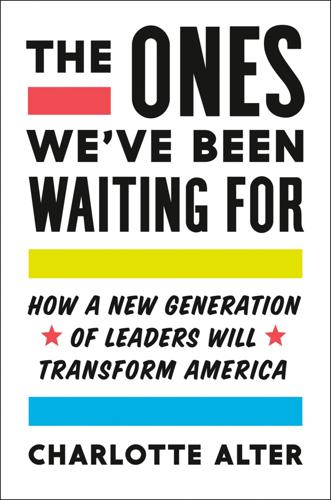
The Ones We've Been Waiting For: How a New Generation of Leaders Will Transform America
by
Charlotte Alter
Published 18 Feb 2020
The online alt-right—made up disproportionately of white millennial men—rose in backlash to the flourishing of identity politics and the successful social justice movements that began online. The young trolls in the antifeminist men’s rights movement and the racist alt-right movement are also creatures of the digital ecosystem. They, too, owe their existence to social media platforms (including Reddit and 4chan as well as Facebook and Twitter), and their sexism and racism constitutes its own kind of online political identity rooted in white male grievance. * * * None of this was abstract: the rapid expansion of information, development of social networks, and explosion of online identities were changing how ordinary millennials thought about themselves and their place in the world.
…
Dre, 1 Dreamers, 263 Dreams from My Father (Obama), 81 DSA (Democratic Socialists of America), 214–15, 221, 238 Dumbledore’s Army, 179 DVDs, 57 earned income tax credit, 30 Echo Platoon (Marcinko), 14 education, of millennials, 34–36 behavioral issues and, 37–38 early childhood education, 34–35 of millennials, 34–36, 37–38 parents “optimizing” of, 35 stress and, 36 zero tolerance policies and, 37–38 See also colleges/universities Egleston, Larken, 136 Elmendorf, Doug, 178 El-Sayed, Abdul, 223–24, 237 Emergency Banking Act, 217 Emily’s List, 243 Energy Transfer Partners, 182 Environmental Protection Agency, 195–96 Esposito, Maddie, 87 Excellent Sheep (Deresiewicz), 48 Facebook, xv, 57, 58–59, 60, 61–62, 90, 197, 227 Facebook Live, 183 Favreau, Jon, 111 Feinstein, Dianne, 196 Feldmann, Sarah, 230, 231, 232 Fiat, 105 Filkins, Dexter, 67 Flake, Jeff, 260 Flint, Michigan water problem, 186, 187 Flippable, 208–9 Ford, 103–4 forever war. See War on Terror for-profit colleges, 52 4chan, 61 Fox News, 222, 265, 266, 272, 273 Foy, Jennifer Carroll, 212 Francis, Lotoya, 120 Franklin, Danquirs, 137 Frelinghuysen, Rodney, 206 Frey, Jacob, 135 Fukuyama, Francis, 213 Full House (tv show), 33 Gaetz, Matt, 158, 252, 255 Gallagher, Mike, 67, 158 Garner, Eric, 118 Garza, Alicia, 118, 119–20 Geithner, Tim, 106, 108 Gelman, Andrew, 151–52, 153 Generation Me (Twenge), 34 Generation Opportunity, 149 Generations (Strauss & Howe), xiv Generation X, xviii self-esteem and, 34 student debt of, 46 technological shift and, 55–56 turnout, in 2018 elections, 244 Generation Z, 55, 244, 293–94 gerrymandering, 152–53 Ghitza, Yair, 151–52, 153 GI Bill, 52 Gibson, Chris, 158 Gierzynski, Anthony, 40–41 gig economy, 98–99 Gilded Age, 216–17, 219 Gillespie, Ed, 211 Gillum, Andrew, 171, 172 Ginsburg, Ruth Bader, xiii Glass-Steagall Act, 31 Glezman, Chasten, 146, 282 Global Climate Strike, 190–191, 293–94 globalism, 177 GM, 102–4, 105 Golden, Jared, 270 González, Emma, 247 Good Morning Vietnam (film), 188 Google, 55, 197 Google Docs, 204 Goolsbee, Austan, 104 Gore, Al, 27, 31 Granholm, Jennifer, 84 Gray, Freddie, 121 Great Depression, 217 Greatest Generation, xiv, xviii, 29 Greatest Hoax, The (Inhofe), 159 Great Gatsby, The (Fitzgerald), 93 Great Recession, 50, 92–100 black and Hispanic families, impact on, 97–98 college graduates, impact on, 95–96 gig economy and, 98–99 long-term financial impact on millennials of, 98–99 poverty rates for millennials with high school diploma and, 96–97 renting versus ownership and, 99 risk, attitudes toward, 99 student debt and, 96 underemployment and, 96 unemployment rates during, 96 wealth of millennial households versus boomer households at same age, 97 Greenberg, Leah, 124, 125 Indivisible resistance and, 180, 204–5 Muslim travel ban protests and, 202 2012 presidential election and, 170–71, 172–73, 176, 178–80 Greenfield, Jerry, 115 Green New Deal, 191, 273–75, 278–79 Greimel, Tim, 236, 237 Grubb, W.

I Want to Be Where the Normal People Are
by
Rachel Bloom
Published 17 Nov 2020
It’s called a SPECIAL SKILL and I need to hone it every day because I CARE about my CRAFT. I know what this is really about. You’re angry because I had that ABORTION. That’s right. I said it. ABORTION. Yeah, I’m not afraid to say that and other edgy things out loud. ISRAEL. GENTRIFICATION. THE DEATH OF THE AMERICAN DREAM. INSTAGRAM ADDICTION. REPUBLICANS. BULIMIA. 4CHAN. Remember how it was, Imogen? Remember when we loved each other? Remember when we had lesbian sex so passionately that we BLED? That’s right, we BLED. I don’t know the mechanics of what caused it, but we BLED. And my blood mixed with your blood and it formed a super blood that could take over the world and spread peace and love but also anger and justice.
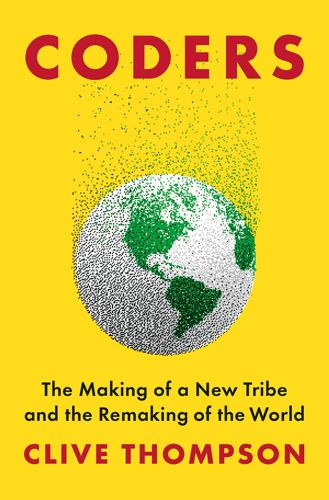
Coders: The Making of a New Tribe and the Remaking of the World
by
Clive Thompson
Published 26 Mar 2019
Part of the naivete of social media, argues the academic and former advertising executive Safiya Umoja Noble—author of Algorithms of Oppression—is that they only envisioned the possibility of individuals acting badly. They understood the danger of people trying to push junk messages, like spam. But they failed to imagine how coordinated groups might hijack their services. “So when you get these white nationalist groups or people from 4chan”—an online discussion board that hosts several wildly racist and misogynist threads—“all going on at once, attacking a target from multiple directions at once, they didn’t see how that would play out,” she says. Former Twitter employees agree that the dynamics of Gamergate, and the swarms of harassment bots, caught the firm by surprise.
…
White-supremacist memesters don’t create images that are easy to spot; they’re not always posting swastikas and NAZIS RULE headlines. No, they just take an otherwise-innocuous photo of a public figure, slap a caption on it, and presto: a fresh new sardonic call to white nationalism. Go to the image-board 4chan and there are young men minting dozens of those an hour, all day long, to circulate on social media. “There’s no way for machine learning to catch up with that,” as Safiya Noble argues. “I can’t imagine a single tech invention or a policy intervention that can fix their problem at the root,” as Vaidhyanathan argues, of Facebook.
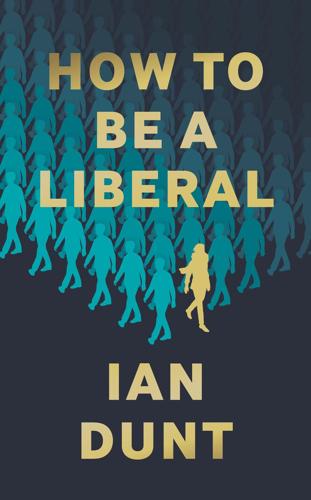
How to Be a Liberal: The Story of Liberalism and the Fight for Its Life
by
Ian Dunt
Published 15 Oct 2020
‘On campus, they have created not only African-American Students Association but Asian Students Associations, that is, racial consciousness where little cultural commonality existed. Leftists are engaging in the kind of ideological project that traditionalists should be hard at work on.’ Whole sections of the internet, centred primarily around popular forums like Reddit and 4chan, came to be populated by angry young men claiming to represent their own white male heterosexual identity. A so-called ‘manosphere’ developed which routinely described all women as ‘worthless cunts’ and ‘attention whores.’ A subgenre of YouTube videos emerged attacking feminism, in which the comment section would typically fill up with comments branding women as worthless, stupid, lazy, shallow, and deserving of violent retribution.
…
See European Union (EU) EU referendum campaign and result 1 government response and May 1 Johnson as prime minister 1 Trump and nationalism 1 euro 1 European Central Bank (ECB) 1, 2, 3, 4 European Coal and Steel Community 1 European Convention on Human Rights (ECHR) 1, 2 European Court of Justice 1, 2, 3 European Economic Community 1 European Parliament 1 European Union (EU) Charter of Fundamental Rights of the European Union 1 EU citizens 1 EU referendum 1 Greece financial crisis 1 Hungary and Orbán 1, 2 institutions 1 migrants and refugees 1 origins 1 post-war cooperation 1, 2 Russia and Ukraine 1 Troika programmes 1, 2 UK leaves 1 eurozone 1, 2, 3 Evergreen State College 1 Exclusion Crisis 1, 2, 3, 4 executive power 1, 2, 3, 4 Exhibit B show 1 experts 1, 2, 3 Facebook 1, 2, 3, 4, 5, 6, 7, 8, 9, 10 Fairfax, Thomas 1, 2, 3, 4, 5, 6, 7 A Remonstrance from his Excellency Sir Thomas Fairfax 1 fake news 1 family separation policy 1 Fannie Mae (Federal National Mortgage Association) 1 Farage, Nigel 1, 2, 3, 4 far right 1, 2, 3, 4, 5 fascism Carlyle 1 emergence of 1 Germany 1, 2 identity and belonging 1 Orwell on 1, 2, 3, 4, 5 post-war economics 1, 2, 3 Fawcett, Millicent 1 Federal Housing Administration 1 Federal Reserve 1, 2, 3 female genital mutilation 1 female priests 1 female suffrage 1 feminism 1, 2, 3, 4, 5 Ferdinand, Archduke Franz 1 feudalism 1, 2 Fidesz 1, 2, 3, 4 Figes, Orlando 1 financial crisis 1, 2, 3, 4 Financial Services Authority (FSA) 1 financial services deregulation 1 first generation rights 1, 2 First World War 1, 2, 3, 4, 5 fiscal policy 1 Five Star Movement 1 Five Year Plan 1 Flower, Eliza 1 forced marriage 1 Forster, EM 1 Maurice 1 4chan 1 Fox, Liam 1 Fox News 1, 2 France American independence 1, 2 anti-semitism 1 Austria war 1 Dreyfus Affair 1 Estates General 1 Greece financial crisis 1 Napoleon rule 1 National Convention 1 origins of revolution 1 post-war cooperation 1 revolution aftermath 1, 2 Seven Years’ War 1 the Terror 1 Franco, General Francisco 1 freedom American independence 1 Berlin on 1, 2 England history 1 French Revolution aftermath 1, 2 Levellers Agreement 1 liberalism struggle 1 Locke on 1, 2, 3, 4 Mill and Taylor on 1, 2, 3, 4, 5 Puritans 1, 2 Rousseau on 1, 2 freedom of conscience 1, 2 freedom to publish 1, 2 free market 1, 2, 3 free movement 1, 2, 3 free press 1, 2, 3 free speech 1, 2, 3, 4, 5, 6, 7, 8 free trade 1, 2, 3 French Revolution aftermath 1, 2 anti-semitism 1 Carlyle history 1 development of liberal values 1 events of 1 Rights of Man 1, 2, 3, 4, 5, 6 Rousseau and general will 1, 2 Frenkel, Naftaly Aronovich 1 Friedman, Milton 1, 2 FSA (Financial Services Authority) 1 Fukuyama, Francis 1 full employment 1, 2 G20 1, 2 Gaddafi, Colonel Muammar 1 Galbraith, John 1, 2 Galileo 1, 2, 3, 4 gas chambers 1, 2 gatekeepers 1 GATT (General Agreement on Tariffs and Trade) 1, 2, 3 gay identity 1, 2, 3, 4, 5, 6, 7 Geithner, Timothy 1, 2 gender, and sex 1 General Agreement on Tariffs and Trade (GATT) 1, 2, 3 general will 1, 2, 3, 4, 5 Generation Identity 1 generation snowflake 1 German Workers’ Party 1 Germany Austria-Hungary alliance 1 First World War 1 Greece financial crisis 1 interwar economy 1 migrants and refugees 1 Nazi rule 1, 2 post-war cooperation 1 Second World War 1 welfare state 1 Gestapo 1, 2 Gingrich, Newt 1, 2 Ginnie Mae (Government National Mortgage Association) 1 Girondins 1, 2, 3 Glass-Steagall Act 1, 2, 3 gleichschaltung 1 Glorious Revolution 1, 2, 3, 4 Google 1, 2, 3 Gove, Michael 1, 2, 3 government American independence 1 debt and austerity 1 financial crisis measures 1 and institutions 1 legitimate government 1 Locke on 1, 2, 3, 4 post-war Keynesianism 1, 2, 3 Smith on 1, 2 Government Sponsored Enterprises (GSEs) 1 Gramm–Leach–Bliley Act 1 Great Depression 1, 2, 3, 4, 5, 6, 7, 8, 9, 10 Greater London Council 1, 2, 3 Great Terror, Russia 1 Greece 1, 2, 3, 4, 5 Greenspan, Alan 1, 2 group identity 1, 2, 3, 4, 5, 6, 7, 8 Guatemala 1 Guérin, Jules 1 guillotine 1, 2, 3, 4 gulags 1, 2, 3, 4 Gyurcsány, Ferenc 1 haircuts (finance) 1, 2 Haiti earthquake 1 half-truth 1, 2 Hall, Stuart 1 Hamilton, Gene 1 Handsworth riots 1 Hannity, Sean 1, 2 Hardenberg, Charlotte von 1 Hardy, Henry 1 harm principle 1, 2, 3, 4 Hayek, Friedrich Capital Consumption 1 on communism end 1 Constitution of Liberty 1 death of 1 economic thought 1 and Keynes 1 on Mill and Taylor 1, 2 Nobel Prize 1 post-war economics 1, 2, 3 The Road to Serfdom 1 state intervention 1, 2, 3 Hayek, Laurence 1 Heads of Proposals 1, 2, 3 health care 1, 2, 3, 4 health tourism 1 Heart of Texas 1 Hébert, Jacques 1, 2, 3 Hébertists 1, 2 Henry, Major Hubert-Joseph 1, 2 Herder, Johann Gottfried von 1 heresy 1, 2, 3, 4, 5 higher and lower pleasures 1, 2 higher self 1 Himmler, Heinrich 1, 2 Hitler, Adolf 1, 2, 3, 4, 5, 6, 7, 8, 9 Hobbes, Thomas 1 Leviathan 1 Holdheim, William 1 Hollander, Jacob Harry 1 Holocaust 1, 2 Holodomor 1 home ownership 1 homophobia 1, 2 homosexuality 1, 2 Hostile Environment 1, 2, 3, 4, 5 House of Commons 1, 2, 3, 4, 5, 6 House of Lords 1, 2, 3 House of Representatives 1 housing 1, 2, 3 Howard, Michael 1 Huber, Ernst Rudolf 1 human rights 1, 2, 3 Hume, David 1 Hungary 1, 2 hyperinflation 1, 2, 3 hypertext 1 hypotheses 1 identity cultural appropriation 1 cultural identity 1, 2 cultural relativism 1 group identity 1, 2 identity and belonging 1 national identity 1, 2, 3, 4, 5, 6 nationalism 1, 2 Orwell on patriotism 1, 2 identity cards 1 identity politics cultural appropriation 1 culture war 1 difference 1 disagreement 1 group identity 1, 2 intersectionality 1, 2 marginalised groups 1, 2 origins 1 right-wing identity politics 1 social media 1 identity war 1, 2 Ignatieff, Michael 1 IMF (International Monetary Fund) 1, 2 immigration EU referendum 1, 2 France anti-semitism 1 Hungary and Orbán 1 liberalism of the future 1 nationalism 1, 2, 3 right-wing identity politics 1, 2, 3 UK policy 1 US policy 1, 2 imperialism 1, 2, 3 incommensurable goods 1, 2 Independents (English Civil War) 1, 2 individual Berlin on 1, 2 communism and fascism 1, 2, 3, 4 Constant 1, 2, 3, 4, 5 Descartes 1, 2, 3, 4 identity 1, 2, 3 invention of teenager 1 Keynesianism 1 Levellers 1 liberalism 1, 2, 3 Locke 1, 2, 3 Marxism 1, 2 Mill 1, 2, 3, 4, 5 nationalism 1 Orwell 1, 2 Overton 1 Puritans 1 and reason 1 Smith 1 individualism 1, 2, 3, 4, 5 individual rights 1, 2, 3, 4, 5, 6, 7, 8, 9 industrial revolution 1, 2 inflation 1, 2, 3, 4, 5, 6 information flow 1, 2, 3 Instagram 1, 2, 3 institutions 1 Intellectual Dark Web 1 intellectual property 1 interest rates 1, 2, 3 internal emigration 1 International Brigades 1 international law 1 International Monetary Fund (IMF) 1, 2 international relations 1 internet 1, 2, 3 intersectionality 1 investment banks 1, 2, 3, 4, 5 invisible hand 1, 2, 3, 4 Iraq 1, 2, 3 Ireland 1, 2 Ireton, Henry 1, 2, 3, 4 Islam 1 Italy 1, 2, 3, 4, 5, 6, 7 Jacobins 1, 2, 3, 4, 5, 6, 7 James II 1, 2, 3, 4, 5, 6, 7 Japan 1 Javid, Sajid 1, 2 Jehovah’s Witnesses 1 Jews anti-semitism 1, 2, 3 Berlin’s identity 1, 2 Dreyfus Affair 1, 2 Germany 1, 2, 3 group identity 1 Levellers 1 right-wing identity politics 1 Second World War and Holocaust 1 St Louis ship 1 Johannot, Marie-Charlotte 1 Johnson, Boris 1, 2, 3, 4 Johnson, Lyndon 1 journalism 1, 2, 3, 4 Joyce, George 1 JP Morgan 1, 2 judiciary 1, 2 Juncker, Jean-Claude 1 justice 1, 2 Kant, Immanuel 1 Kennedy, John F 1 Keynes, John Maynard The General Theory of Employment, Interest and Money 1 and Hayek 1, 2, 3 post-war economics 1, 2, 3, 4, 5 state intervention 1 Time Man of the Year 1 death of 1 Keynesianism 1, 2, 3, 4 Khader, Naser 1 knowledge 1, 2 Kogon, Eugen 1 Komsomol 1 Kosinski, Michal 1 Krugman, Paul 1 Kruks, Sonia 1 Kukathas, Chandran 1 kulaks 1, 2 Kurdi, Alan 1, 2 Kymlicka, Will 1 labour 1, 2, 3 Lagarde, Christine 1, 2 laissez-faire austerity measures 1 communism 1 Constant 1, 2 financial crisis 1 Hayek 1, 2 inflation policy 1 liberalism 1, 2, 3, 4, 5 Mill 1, 2, 3, 4, 5 post-war economics 1, 2, 3 right-wing identity politics 1 Soviet Union collapse 1 land 1, 2, 3 language 1, 2, 3 Laski, Harold 1 Latvia 1 Laud, William 1, 2, 3, 4, 5 Law for the Restoration of the Professional Civil Service 1 law of nature 1, 2, 3 Law of Suspects 1 League Party 1 Leave.EU 1, 2.

Marx at the Arcade: Consoles, Controllers, and Class Struggle
by
Jamie Woodcock
Published 17 Jun 2019
print=1. 12Tremblay, “Intro to Gender Criticism for Gamers.” 13Lien, “No Girls Allowed.” 14Torill Elvira Mortensen, “Anger, Fear, and Games: The Long Event of #GamerGate,” Games and Culture 13, no. 8 (2016): 787–806. 15Paulo Ruffino, “Parasites to Gaming: Learning from GamerGate” (paper, Proceedings of 1st International Joint Conference of DiGRA and FDG, Dundee, UK, 2016). 16Cherie Todd, “Commentary: GamerGate and Resistance to the Diversification of Gaming Culture,” Women’s Studies Journal 29, no. 1 (2015): 64. 17Mortensen, “Anger, Fear, and Games,” 14. 18Jake Swearingen, “Steve Bannon Saw the ‘Monster Power’ of Angry Gamers While Farming Gold in World of Warcraft,” New York, July 18, 2017, http://nymag.com/intelligencer/2017/07/steve-bannon-world-of-warcraft-gold-farming.html. 19Joshua Green, Devil’s Bargain: Steve Bannon, Donald Trump, and the Storming of the Presidency (New York: Penguin, 2017), 81. 20Angela Nagle, Kill All Normies: Online Culture Wars from 4chan and Tumblr to Trump and the Alt-Right (Winchester: Zero Books, 2017); Matt Lees, “What Gamergate Should Have Taught Us about the ‘Alt-Right,’” Guardian, December 1, 2016, www.theguardian.com/technology/2016/dec/01/gamergate-alt-right-hate-trump. 21Robert Purchese, “ArenaNet Fires Two Guild Wars 2 Writers over Twitter Exchange with YouTuber,” Eurogamer, July 7, 2018, www.eurogamer.net/articles/2018-07-06-arenanet-fires-two-guild-wars-2-writers-over-twitter-exchange-with-youtuber. 22Quoted in Keith Stuart, “Richard Bartle: We Invented Multiplayer Games as a Political Gesture,” Guardian, November 17, 2014, www.theguardian.com/technology/2014/nov/17/richard-bartle-multiplayer-games-political-gesture.
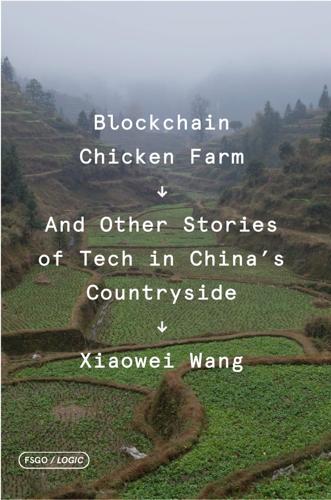
Blockchain Chicken Farm: And Other Stories of Tech in China's Countryside
by
Xiaowei Wang
Published 12 Oct 2020
Wish.com, with headquarters based in Menlo Park, is a peculiar version of Amazon with half a billion users. It is a drop-shipper, sourcing from AliExpress, but its customer base is in the Midwest, Texas, and Florida. Its diverse users range from those who frequent flea markets and swap meets to racists who post on 4chan about the “cheap chink gear” available. One of my favorite newsletters, The Strategist (a weekly dispatch of shopping deals from New York magazine), recommends that I buy the very hyped Orolay down coat, a “viral” coat exclusively available on Amazon.com with more than seven thousand reviews. Priced at US$130, and with a four-star rating, it seems like a good deal.

Survival of the Richest: Escape Fantasies of the Tech Billionaires
by
Douglas Rushkoff
Published 7 Sep 2022
But instead of pushing for an alternative to the dehumanized, misogynist, antisocial, and catastrophic biases of The Mindset, the resistance is a mirror image of The Mindset itself. In fact, the seeds of today’s most virulent resistance movements were spawned long before Donald Trump’s Twitter-fueled victory over establishment candidate Hillary Clinton, on subgroups of internet forums and image boards like 4chan and Reddit. Feeling blamed for society’s ills , hopelessly unemployed, sexually frustrated, yet armed with laptops and The Mindset’s propensity for remote attacks, this disparate network has always been ready to rumble and came to prominence during Gamergate , a series of highly coordinated online harassments against female game designers and journalists.

Character Limit: How Elon Musk Destroyed Twitter
by
Kate Conger
and
Ryan Mac
Published 17 Sep 2024
In the days after, Donald Trump, Jr., posted memes on his Twitter and Instagram account playing up the baseless theory that Paul Pelosi had known and was engaged in a tryst with his attacker. Others chimed in, including the conspiracy-minded Georgia congresswoman Marjorie Taylor Greene and Roger Stone, the former Trump political consultant. The misinformation stewed online on Twitter and 4chan, the hateful message board popular with the far right, before being picked up by discredited conspiracy websites. Musk followed it all. Amid the hard push to implement layoffs that weekend, Musk found time during his Sunday morning in San Francisco to respond to a tweet from former Democratic presidential candidate Hillary Clinton that condemned “the Republican Party and its mouthpieces” for spreading “hate and deranged conspiracy theories.”
…
midterm, 275, 283, 302, 318, 319, 321, 324, 325, 327, 328, 338–39 of 2016, 21, 22, 50, 61, 67, 193, 332 of 2020, 52, 64–65, 67, 68, 70–73, 133, 390, 405, 431 of 2024, 355, 431, 433 Eli Lilly, 338 Elkann, John, 177 Elliott Management, 49–58, 77, 78, 83, 90, 91, 94–95, 106, 111, 120, 122, 123, 139, 150, 186 Ellison, Larry, 104, 117, 176, 179 Emanuel, Ari, 194, 228, 325, 414 Endeavor, 194 Enjeti, Saagar, 170 Enron Energy Services, 349 Erdoğan, Recep Tayyip, 381, 400 Ethereum, 179 European Union, 103, 244, 330, 400 Excession LLC, 27 extraterrestrial life, 199 F Faber, David, 406 Facebook, 1, 16, 17, 50, 60, 72, 92, 108, 177, 187, 197, 221, 255, 262, 271, 292, 311, 332, 356, 388, 435 artificial intelligence and, 35 IPO of, 155 revenue of, 21 satellite launch, 35–36 Twitter accounts promoting, 382–83 user base of, 21 WhatsApp acquired by, 139 Falck, Bruce, 46, 55, 76–77, 84, 150, 167 firing of, 186–87, 191, 209 Falk, Rebecca, 372–73 Federal Bureau of Investigation (FBI), 67, 315, 318, 319, 369 Federal Reserve, 152 Federal Trade Commission (FTC), 139, 224–26, 228 and Twitter under Musk, 244, 257, 274, 323, 329–30, 336, 337, 340, 342, 367, 374, 387, 391, 393–94, 414 Ferguson protests, 18–19, 183, 362 Fernandez, Carrie, 256 Fidelity, 434 FIFA World Cup, 179, 350, 380–82 financial crisis of 2008, 160, 325 First Amendment, 393 Floyd, George, 99, 325, 362 Fogarty, Marianne, 264–65, 329–30, 337, 340 Forbes, 34, 139 Fortune 500 companies, 357 For Whom the Bell Tolls (Hemingway), 212 Foster, Norman, 366 Founders Fund, 177 4chan, 287 Fox Corporation, 405 Fox News, 404–5 freedom of speech, 92, 147, 206, 352, 393 Bluesky and, 90 freedom of reach versus, 90, 147, 276, 302, 354, 392, 407, 409, 436 India and, 208, 209, 244, 400–401 Musk’s commitment to, 100, 101, 103, 201, 234, 244–45, 250, 275, 276, 282, 294, 320, 354, 363, 372, 378, 379, 382, 392, 400–401, 409, 418, 435–36 see also content moderation Friedman, Milton, 214 Frohnhoefer, Eric, 346–48, 350 FTX, 105, 136, 175, 176, 179 Fuentes, Nick, 392, 419, 425 G Gabbard, Tulsi, 321 Gadde, Vijaya, 19–20, 43, 60–61, 64, 66–69, 71–75, 79, 80, 83, 141, 146–49, 160, 164, 168–73, 195, 208–10, 221, 222, 229, 230, 235, 242, 247, 263, 274, 277, 278, 296, 368, 369, 373–74, 391, 393, 401, 435 Agrawal and, 169–72, 191 firing of, 263–66, 343–44 Musk and, 169–72, 191, 193, 243–46, 257–58, 263–66, 343–44 Game of Thrones, 303 Gamergate, 18, 19, 22 Gates, Bill, 139 Genentech, 160 General Data Protection Regulation, 367 General Motors, 290, 301 Ghana, 308–9 Ginsburg, Ruth Bader, 211 Glass, Noah, 14 Gökçe, Nusret, 381 golden parachutes, 229, 235, 263, 264, 343 Golden State Warriors, 108, 171, 172, 344, 375 Goldman Sachs, 54, 55, 76, 122, 123, 141, 149, 152, 154, 157–59, 162, 179, 203, 207, 258 Google, 13, 49, 51, 52, 81, 86, 87, 108, 115, 139, 156, 158, 173, 197, 255, 280, 292, 395, 435 Android, 280, 318, 346 Cloud, 52, 86, 371 Google+, 311 Gorman, James, 143, 144 government surveillance and overreach, 173, 199, 208, 244 Graber, Jay, 89–91, 220–21, 413, 433, 435 Gracias, Antonio, 103, 177, 207–8, 236, 241, 252–54, 260, 261, 279, 281–82, 286, 294, 299, 341, 434 Graham, Paul, 382 Grant, Jonah, 331, 333, 335 Great Recession of 2008, 160, 325 Great Replacement Theory, 424 Greenblatt, Jonathan, 294, 418–19, 427 Greene, Marjorie Taylor, 287, 391 Griffin, Kathy, 320 Griffin, Ken, 115 Grimes (Claire Elise Boucher), 23, 95, 100, 124, 204–6, 377 Grimes, Michael, 155, 175–76, 180, 184, 185, 266, 401–2 Groypers, 392 H hackers and hacking, 67, 68, 223–25, 368 Haile, Tony, 242–43, 298 Hamas attacks, 424, 426 Hansbury, Mary, 277 Harvey, Del, 20, 66, 70, 71, 73–75, 87, 146, 373–74 Harwell, Drew, 379 hate speech, 1, 42, 93, 147, 183, 417, 418, 432, 436 antisemitism, 392, 406, 418, 419, 424 Musk and, 424–25, 427–29 Hawaii, 57–58, 97, 113, 117, 124, 128, 135, 173 Hawkins, Tracy, 277, 361 Hayes, Julianna, 236, 254 Heard, Amber, 100 Hemingway, Ernest, 212 Hershey’s, 290 Herzog, Isaac, 426 Hewlett Packard, 156 Hitler, Adolf, 392, 425 Hobbs, Katie, 338–39 Hoffman, Reid, 176–77, 232 Hollander, Nicole, 358, 364, 412 Holocaust, 406 Homsany, Ramsey, 171 Horizon Media, 289, 290 Hughes, Tim, 374 Hurricane Harvey, 41 I IBM, 425 IBP, Inc., 210 Iger, Bob, 212, 427–29 immigrants, 255, 297, 393, 404, 432 Great Replacement Theory and, 424 India, 22, 208, 209, 244, 245, 400–401 Indonesia, 164 Information, 402 Infowars, 60, 425, 435 Instagram, 88, 90, 240, 287, 311 Threads, 413–14, 433 Twitter accounts promoting, 382–83 internet, 7, 12, 29–31 dot-com bubble, 30 satellite launch and, 35–36 Starlink service, 102, 103, 244–45, 280, 332, 363, 374, 400 see also social media Internet Archive, 89 Internet Research Agency, 332 Interpublic Group (IPG), 294 iPhone, 16, 314, 365 Iran, 15–16 Irving, Kyrie, 334 Irwin, Ella, 307, 341, 356, 359–60, 372, 378, 409 Isaacson, Walter, 101, 240–41, 313, 328, 404 Islamic State (IS), 392 Israel Musk’s trip to, 426–28 October 7 Hamas attacks in, 424, 426 iTunes, 14 J James, LeBron, 403 January 6 Capitol riots, 1, 70–74, 170, 390, 392, 405 January 6th Committee, 245 Jay-Z, 28, 58 Jewish people antisemitism and, 392, 406, 418, 419, 424 Musk and, 424–25, 427–29 Great Replacement Theory and, 424 Jobs, Steve, 11, 38, 54, 240–41, 310, 427 Johnsen, Bret, 352 Jones, Alex, 60, 425, 435 Jones, Evan, 316 Jordan, Jim, 390–91, 393 JPMorgan, 141, 149, 152, 154, 158, 162 Justice Department, 139, 173 K Kaiden, Robert, 236, 247, 253, 286, 291, 293 Kalanick, Travis, 384, 420 Kansas City Chiefs, 396–97 Kardashian, Kim, 70 Kennedy, Robert F., Jr., 433 K5 Global, 136 Khan, Lina, 391 Khashoggi, Jamal, 234 Kieran, Damien, 226, 256, 257, 274, 329–30, 337, 340, 342, 393 King, Gayle, 115, 133–34 King, Martin Luther, Jr., 45 Kingdom Holding, 233–34 Kissner, Lea, 226, 256, 257, 329–30, 337, 340, 342, 393 Kives, Michael, 136, 175 Klein, Alan, 161, 162, 198, 203–4, 207, 209, 211 Klum, Heidi, 292 Koenigsberg, Bill, 290, 291 Kohm, Jim, 394 Kordestani, Omid, 49, 51–52, 55, 56 Korman, Marty, 156, 160–62, 198, 201–2, 203–4, 207, 209, 211, 254 Kraft, Robert, 28 Krishnan, Sriram, 241, 284–85, 312, 341 Ku Klux Klan, 60 Kushner, Jared, 381 L Lady Gaga, 117, 290 Lake, Kari, 338–39 Lane Fox, Martha, 80, 106–7, 110, 111, 126, 141, 149, 158, 159, 163, 248 La Russa, Tony, 311 Levchin, Max, 30 Levie, Aaron, 382 Levine, Rachel, 104 LGBTQ people, 103, 146 transgender, 100, 103, 104, 110, 114, 197, 199, 275, 354, 435 “What Is a Woman?”
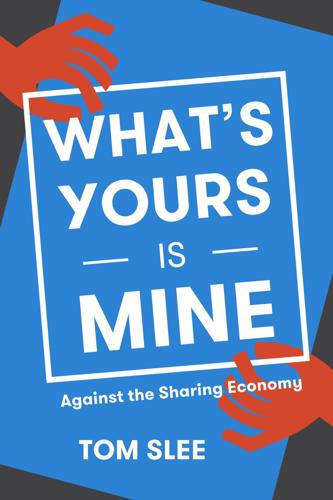
What's Yours Is Mine: Against the Sharing Economy
by
Tom Slee
Published 18 Nov 2015
Examples include the source code of the Webkit browser; the syntax of the Python programming language; the content of Wikipedia; the geographical data of Open Street Map; the ratings and comments that make reputation systems work; the book reviews and ratings on Amazon, GoodReads, and LibraryThing; the contributions to the Ravelry knitting and crocheting community; the message threads of forums such as 2+2 (online poker), Reddit, 4chan, Something Awful, and GardenWeb; the questions, answers, and user feedback on Q&A sites like Stack Overflow, Server Fault, and Quora. Labelling culture and computing as commons does not complete their description: when it comes to commons, there is variety in scope of access, in ownership, and in management.
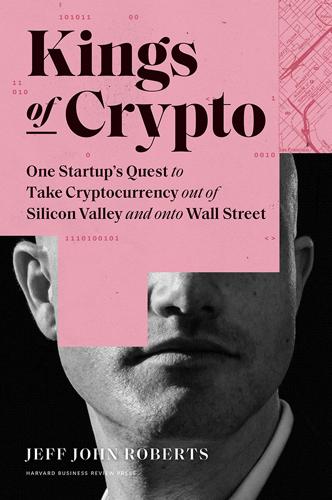
Kings of Crypto: One Startup's Quest to Take Cryptocurrency Out of Silicon Valley and Onto Wall Street
by
Jeff John Roberts
Published 15 Dec 2020
The tweet showed a photo of him, very much alive, holding up a piece of paper with the number of a newly mined block in the Ethereum blockchain and a figure, known as a hash, that had just unlocked the block. Vitalik’s tweet was the blockchain equivalent of a hostage holding up a daily newspaper as proof that he was alive. The picture proved Vitalik was not dead. The price of Ethereum bounced back up. The car wreck story was a hoax perpetrated by trolls on the website 4chan, either to manipulate the market or simply to pull off a ghoulish prank. Either way, the stunt demonstrated how critical Vitalik—the strange, spectral genius who had created Ethereum—was to the currency’s success and the success of crypto in general. It also underscored how Ethereum had taken center stage, over bitcoin, in the 2017 crypto boom.
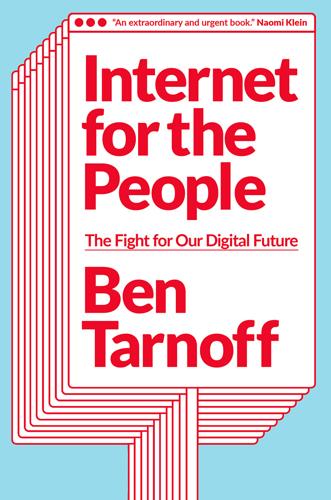
Internet for the People: The Fight for Our Digital Future
by
Ben Tarnoff
Published 13 Jun 2022
People can and do find like-minded interlocutors on the internet, and the algorithms that underpin social media feeds and recommendation systems can contribute to these clusterings. But the conversations that ensue rarely resemble an echo chamber, with everyone parroting the same party line. When the researchers P. M. Krafft and Joan Donovan examined the origins of one campaign to spread false information on 4chan, a message board popular with the far Right, they found “widespread heterogeneity of beliefs and contestation of the claims.” Even in a forum with a broadly shared ideology, people didn’t blindly swallow a politically convenient lie. Instead, they argued. And it was precisely this skepticism, this surplus of views, that forced the partisans of the campaign to work harder.
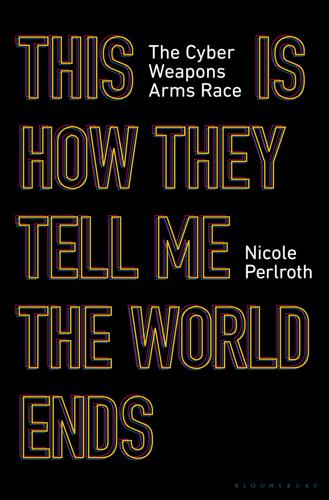
This Is How They Tell Me the World Ends: The Cyberweapons Arms Race
by
Nicole Perlroth
Published 9 Feb 2021
The day Watters showed up at iDefense, its closest competitor, a start-up called SecurityFocus, was scooped up by Symantec, the security giant, for $75 million in cash. Like iDefense, SecurityFocus offered clients an early cyber threat alert system, in the form of a hacker mailing list called BugTraq. “Mailing list” never quite did BugTraq justice, though. It was more like a primitive version of Reddit or 4chan—festering grounds for the curious, the self-righteous, and mischief-makers of the early web. The concept behind BugTraq was simple: hackers all over the world posted bugs and exploits to the list. Some did this for fun, curiosity, street cred, or simply to thumb their nose at the tech vendors who ignored or threatened them anytime they tried to call attention to bugs in their code.
…
See also zero-day market ethics, here, here prices, here, here, here regulating the, here Facebook bug bounty programs, here, here communications encryption, here data encryption, here encryption at, here, here, here hacking, here, here Move fast and break things, here, here, here NSA and, here, here, here presidential elections, Russian interference, here, here valuation, here zero-day exploits, prices paid for, here Falun Gong, here, here, here Fancy Bear (Russia), here, here, here Farook, Syed Rizwan, here, here Fauci, Anthony, here Faurer, Lincoln “Linc,” here FBI, here, here, here, here FedEx, here, here, here Ferrante, Donato, here, here, here Fick, Nathaniel (Nate), here Finland, here FireEye, here Firefox, here, here Five Eyes, here, here, here, here, here, here Five Poisons, here, here Flame, here, here, here, here Florida, cyberattacks in, here Floyd, George, here Ford Motor Company, here Foreign Intelligence Surveillance Act, here Foreign Intelligence Surveillance Court, here Forristal, Jeff, here Fortinet, here, here 4chan, here Fourth Amendment, here Fourth Geneva Convention, here Franceschi-Bicchierai, Lorenzo, here Francisco Partners, here, here, here Franco, James, here, here Franklin, Benjamin, here freedom of speech, here, here, here FSB, here, here, here, here the fucking salmon, here, here, here, here, here Full Disclosure, here, here Gamma Group (UK), here, here Gartner, here Gates, Bill, here, here, here, here, here GCHQ (UK), here, here, here Geer, Dan, here General Electric, here General Motors, here Genie, here Geohot (Hotz, George), here, here Georgia, cyberattacks in, here GitHub, here Giuliani, Rudy, here, here Gladwell, Malcolm, here globalization, technology and, here global supply chain, here, here Gmail backdoors, here China hacks, here NSA hacks, here, here Russian interference, here security, here going dark, here, here, here Golden Mouth, here Goncharov, Sergei, here Google.
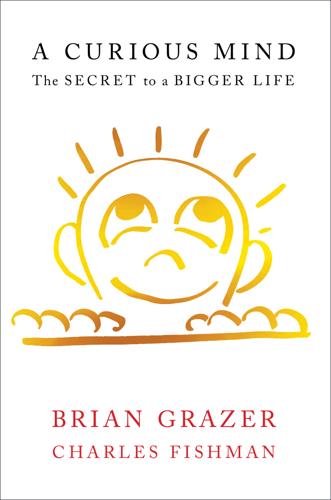
A Curious Mind: The Secret to a Bigger Life
by
Brian Grazer
and
Charles Fishman
Published 6 Apr 2014
Army general Mariana Pfaelzer: United States federal circuit court judge, opposed California’s Proposition 187 Jay Phelan: evolutionary biologist, professor at UCLA Ann Philbin: director of the Hammer Museum of Art, Los Angeles Mark Plotkin: ethnobotanist, author, expert on rainforest ecosystems Christopher “moot” Poole: Internet entrepreneur, created 4chan and Canvas websites Peggy Post: director of the Emily Post Institute, author and consultant on etiquette Virginia Postrel: political and cultural journalist, author Colin Powell: U.S. secretary of state, 2001–2005, former chairman of the Joint Chiefs of Staff, former national security advisor, retired four-star U.S.
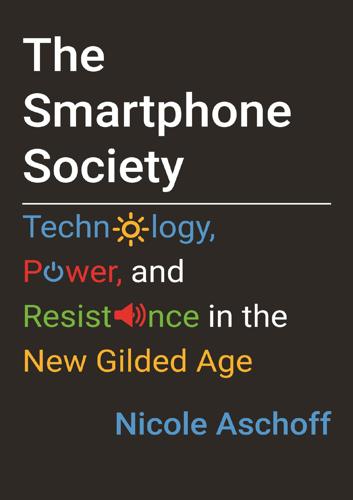
The Smartphone Society
by
Nicole Aschoff
They combine old villains (people of color, immigrants, socialists, feminists) with new ones (Muslims, fake news, Silicon Valley elites) to weave a modern narrative about the destruction of American jobs and culture, the weakening of our country’s virility and fortitude. The rising right worldview is orthogonal to that of the left, but its movement-building model since the financial crisis has some similar digital-analog features. Twitter, Facebook, YouTube, 4Chan image boards such as /pol/, subreddits, private chatrooms, news sites such as Breitbart, Drudge Report, and Gab (a social network with eight hundred thousand users) have fostered a constellation of right-wing voices fused together through memes, wink-and-nudge emojis, jokes, and promotional videos.
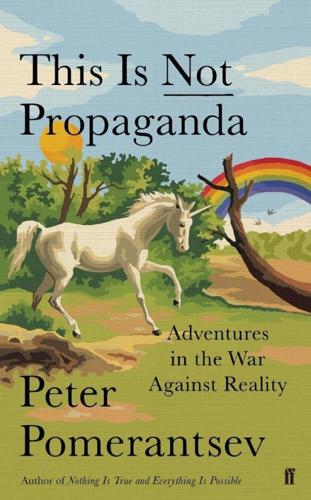
This Is Not Propaganda: Adventures in the War Against Reality
by
Peter Pomerantsev
Published 29 Jul 2019
Those who seem the most angry, lonely, the neo-Nazis direct towards other chat rooms, where they instruct the new recruits on digital marketing campaigns to promote far-right causes: which videos on YouTube to like or dislike; how to create swarms of automated accounts to boost far-right campaigns on social media. The recruits move from computer games to digital political campaigns that feel like another sort of game, all the while never leaving their bedrooms, slipping from one virtual reality to another. On Reddit and 4chan sites anonymous administrators provide an online ‘crash course in mass persuasion’, which in the Cold War would have been the province of the secret services and ‘civilian psy-ops’. There is advice on how to use the values of your enemy against them. So if you are attacking a leftist politician, you should create a fake liberal persona for yourself online and point out how politicians are part of the financial elite, or how their ‘white privilege’ has allowed them to rise to the top and avoid arrest.
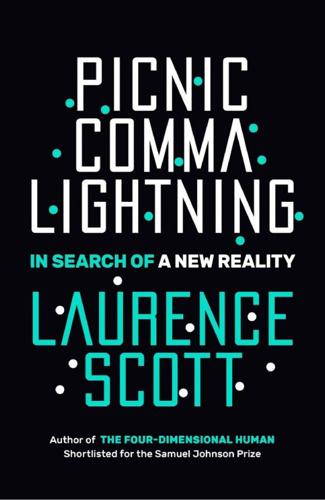
Picnic Comma Lightning: In Search of a New Reality
by
Laurence Scott
Published 11 Jul 2018
The intentional setting of kittens alongside explosions is a reclaiming of the natural bathos of Internet news. In this age of the camera-operator, we do at times need to diminish rather than magnify the image, and the bathetic quality of memes is emerging as one such lessening device. A similar approach has been adopted by users of 4Chan, who began Photoshopping the heads of rubber ducks over the faces of ISIS fighters, both to mock them and to prevent them from becoming globally notorious – arguably one of their motivations. Purposeful bathos also offers a shrewd way of resisting authoritarian regimes, which propagate their authority through triumphalism and heightened imagery and symbolism.
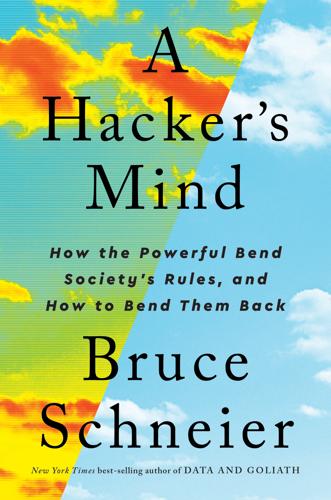
A Hacker's Mind: How the Powerful Bend Society's Rules, and How to Bend Them Back
by
Bruce Schneier
Published 7 Feb 2023
Other successful hacks involve feeding an ML system specific inputs designed to elicit changes in the system. In 2016, Microsoft introduced a chatbot, Tay, on Twitter. Its conversational style was modeled on the speech patterns of a teenage girl, and was supposed to grow more sophisticated as it interacted with people and learned their conversational style. Within twenty-four hours, a group on the 4Chan discussion forum coordinated their responses to Tay. They flooded the system with racist, misogynistic, and anti-Semitic tweets, thereby transforming Tay into a racist, misogynistic anti-Semite. Tay learned from them, and—with no actual understanding—parroted their ugliness back to the world. AI systems are computer programs, so there’s no reason to believe that they won’t be vulnerable to the same hacks to which other computer programs are vulnerable.

Health and Safety: A Breakdown
by
Emily Witt
Published 16 Sep 2024
She sent me a screenshot of him wearing a T-shirt with a phone number on it. “That’s the phone number to report ‘illegal immigrants’ to ICE, I’m pretty sure,” the stranger wrote, “and the flag is obvious.” The flag, which was green and white, was not obvious. I looked it up, and clicked through entries on Know Your Meme and Wikipedia about Kekistan, 4chan memes, Pepe the Frog, the Nazi Iron Cross, World of Warcraft slang, “shitposters,” “Normistan,” “Cuckistan.” I looked at his Facebook profile, where he’d posted a photo of my New Yorker business card with the caption “Guess who might be in the news.” Above it was a meme of a frog wearing sunglasses that said “Yeah, I’m a F.R.O.G.: Fuck Racism Overthrow Government.”
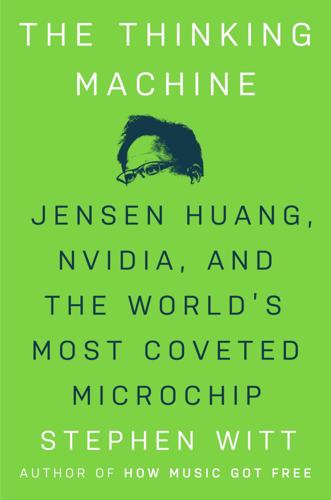
The Thinking Machine: Jensen Huang, Nvidia, and the World's Most Coveted Microchip
by
Stephen Witt
Published 8 Apr 2025
Developers leveraged the new hardware to deliver classic titles like Call of Duty, Half-Life 2, The Sims, and World of Warcraft. “PC gaming peaked somewhere between 2000 and 2005,” one nostalgic commenter opined. Was this the best use of such technology? The subculture of PC gaming was toxic—from it grew 4chan and later the Gamergate harassment campaign. PC gamers termed console gamers “peasants” and referred to themselves as the “PC master race.” Graphics pioneers were frustrated by the arrested aesthetic development evident in the leading titles, which reflected—or maybe produced—the stunted maturity of the customers.
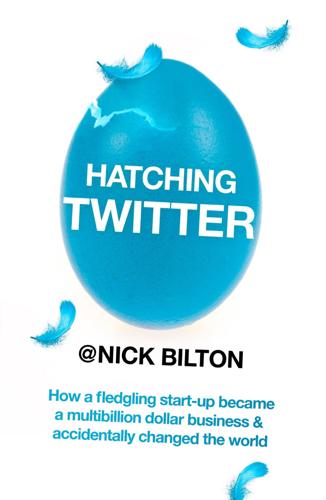
Hatching Twitter
by
Nick Bilton
Published 5 Nov 2013
Behind them Jimmy Fallon gave a small laugh at a joke. Then Jack saw him. Ev, seated at table 2, literally the best seat in the house, in front of the stage where Michelle Obama stood. Ev was seated with Joy Behar, cohost of The View, and Moot, who had won the title of World’s Most Influential Person after his Web site, 4Chan, had rigged the Time vote. Jack took a large gulp from his glass of champagne. Even at the Time 100 Most Influential People in the World gala, there is a pecking order. And in 2009, at the top end of that chart there was Evan Williams, the CEO of Twitter. The upper level seemed to house less important guests, like Christine Teigen, John Legend, and Lou Reed.
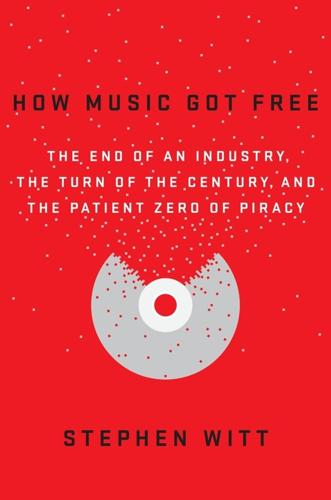
How Music Got Free: The End of an Industry, the Turn of the Century, and the Patient Zero of Piracy
by
Stephen Witt
Published 15 Jun 2015
If running a torrent tracker violated copyright law, then the Pirate Bay founders were willing to break that law. This dissident viewpoint drew attention, and attracted users from the same disaffected subculture of Internet trolls that would later populate such luminary organizations as Anonymous and 4chan. The Pirate Bay’s founders loved controversy—one of them, Gottfrid Svartholm Warg, had previously hosted a site called “America’s Dumbest Soldiers,” which provided casualty reports from the Iraq War and let users vote on the presumed stupidity of the death. They trumpeted their actions as civil disobedience, and publicly flipped the bird to those who didn’t like it.
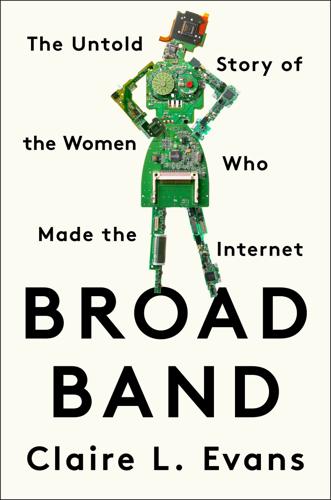
Broad Band: The Untold Story of the Women Who Made the Internet
by
Claire L. Evans
Published 6 Mar 2018
Our dense net of connective technologies, and the increasing facility by which we are surveilled within them, has led to new forms of violence: doxxing, cyberstalking, trolling, revenge porn. And anonymity, which the cyberfeminists, along with many early cyberculture thinkers, championed as a method for transcending gender and difference, enables violently misogynistic language all over the Web: in YouTube comments, on forums, on Reddit and 4chan, and in the in-boxes and @replies of women with public opinions. The incorporeal newness that so intoxicated the earliest women online has morphed; it has become what the games critic Katherine Cross aptly calls a “Möbius strip of reality and unreality,” in which Internet culture “becomes real when it is convenient and unreal when it is not; real enough to hurt people in, unreal enough to justify doing so.”
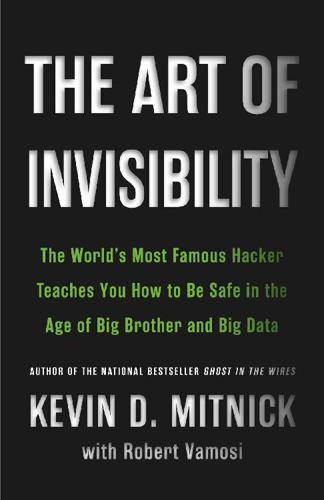
The Art of Invisibility: The World's Most Famous Hacker Teaches You How to Be Safe in the Age of Big Brother and Big Data
by
Kevin Mitnick
,
Mikko Hypponen
and
Robert Vamosi
Published 14 Feb 2017
“MaryHadALittleLamb123$” as rendered by http://www.danstools.com/md5-hash-generator/. 8. http://news.bbc.co.uk/2/hi/technology/3639679.stm. 9. http://www.consumerreports.org/cro/news/2014/04/smart-phone-thefts-rose-to-3-1-million-last-year/index.htm. 10. http://www.mercurynews.com/california/ci_26793089/warrant-chp-officer-says-stealing-nude-photos-from. 11. http://arstechnica.com/security/2015/08/new-data-uncovers-the-surprising-predictability-of-android-lock-patterns/. 12. http://www.knoxnews.com/news/local/official-explains-placing-david-kernell-at-ky-facility-ep-406501153-358133611.html. 13. http://www.wired.com/2008/09/palin-e-mail-ha/. 14. http://fusion.net/story/62076/mothers-maiden-name-security-question/. 15. http://web.archive.org/web/20110514200839/http://latimesblogs.latimes.com/webscout/2008/09/4chans-half-hac.html. 16. http://www.commercialappeal.com/news/david-kernell-ut-student-in-palin-email-case-is-released-from-supervision-ep-361319081-326647571.html; http://edition.cnn.com/2010/CRIME/11/12/tennessee.palin.hacking.case/. 17. http://www.symantec.com/connect/blogs/password-recovery-scam-tricks-users-handing-over-email-account-access. 18. https://techcrunch.com/2016/06/10/how-activist-deray-mckessons-twitter-account-was-hacked/.
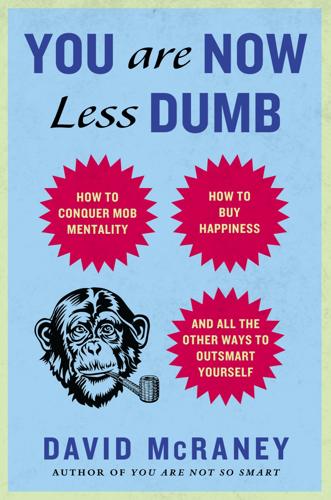
You Are Now Less Dumb: How to Conquer Mob Mentality, How to Buy Happiness, and All the Other Ways to Outsmart Yourself
by
David McRaney
Published 29 Jul 2013
If you are surrounded by positive cues, deindividuation could lead you to work harder in an exercise class, or pitch in at a homeless shelter, or help build a house. People who forget their sense of self and work together to save a life or search for a missing child show that deindividuation is a neutral force of the human will. When Web communities such as 4chan or Reddit assemble into an anonymous collective to exact revenge, it often ends in actual justice. Once deindividuation kicks in, the cues from the environment shape the resulting behavior. The norms of the mob, good or evil, replace the norms of everyday life. Robert D. Johnson and Leslie Downing showed in 1979 how manipulating environmental cues could change the behavior of deindividualized people.

The End of Secrecy: The Rise and Fall of WikiLeaks
by
The "Guardian"
,
David Leigh
and
Luke Harding
Published 1 Feb 2011
The Anonymous crowd was only a group in the loosest sense, the Guardian’s technology editor Charles Arthur wrote: “It’s more like a stampeding herd, not sure quite what it wants but certain that it’s not going to put up with any obstacles, until it reaches an obstacle which it can’t hurdle, in which case it moves on to something else.” Anonymous – which grew out of the equally chaotic “/b/” messageboard on the discussion site 4chan.org – had in the past tormented the Scientologists, reposting videos and leaking secret documents that the cult hoped to suppress. Anonymous’s broad manifesto is to fight against the suppression of information – but its members were not above childish actions simply to annoy and frustrate web users for their own amusement (known as “doing it for the lulz”).
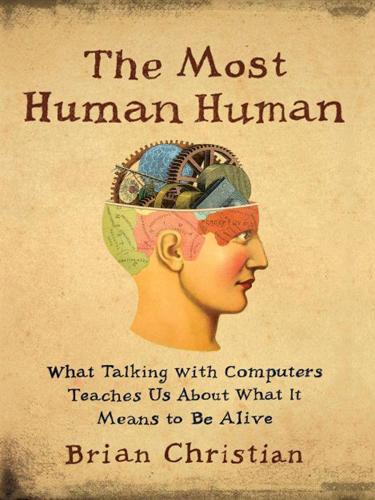
The Most Human Human: What Talking With Computers Teaches Us About What It Means to Be Alive
by
Brian Christian
Published 1 Mar 2011
Hofstadter, Gödel, Escher, Bach: An Eternal Golden Braid (New York: Basic Books, 1979). 17 Noam Chomsky, email correspondence (emphasis mine). 18 John Lucas, “Commentary on Turing’s ‘Computing Machinery and Intelligence,’ ” in Epstein et al., Parsing the Turing Test. 2. Authenticating 1 Alix Spiegel, “ ‘Voice Blind’ Man Befuddled by Mysterious Callers,” Morning Edition, National Public Radio, July 12, 2010. 2 David Kernell, posting (under the handle “rubico”) to the message board www.4chan.org, September 17, 2008. 3 Donald Barthelme, “Not-Knowing,” in Not-Knowing: The Essays and Interviews of Donald Barthelme, edited by Kim Herzinger (New York: Random House, 1997). Regarding “Bless Babel”: Programmers have a concept called “security through diversity,” which is basically the idea that a world with a number of different operating systems, spreadsheet programs, etc., is more secure than one with a software “monoculture.”
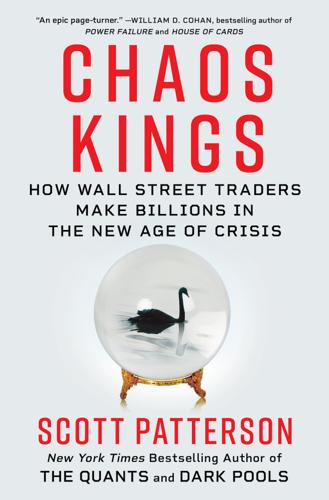
Chaos Kings: How Wall Street Traders Make Billions in the New Age of Crisis
by
Scott Patterson
Published 5 Jun 2023
In the U.S., polls show Americans since the early 2000s have been pushed farther to the right and to the left with an increasingly hollowed-out middle ground (in the U.S. and Europe, extremism is far more prevalent on the far right, as any Google search for the term will demonstrate). The impact of social media, from YouTube to 4chan to Facebook to Reddit, has radicalized youth populations via toxic artificial-intelligence algorithms that feed addicted viewers increasingly fanatical content. A November 2021 study that examined demonstrations between 2006 and 2020 found that protest movements around the world had tripled over that time period, with increases in every region.
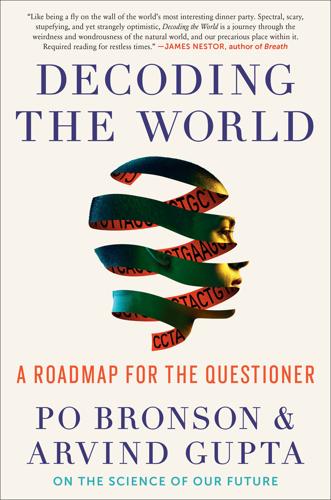
Decoding the World: A Roadmap for the Questioner
by
Po Bronson
Published 14 Jul 2020
Like a lot of kids, Joe felt like it was a joke trying to save money and earn pittance interest until his retirement. He was a hustler always scheming a way out of being poor. He’d worked for the Rand Paul for President campaign in 2012, and that exposed him to a lot of libertarian thinking about the financial system. He had been on 4chan, the dark web, looking for vintage porn to buy and sell for profit. He went on Silk Road and saw people using Bitcoin, and he thought it was more of a PayPal-type thing. But as he learned more, he started buying it, a little every month. One night, here at IndieBio, Tall Joe hosted the first-ever Ethereum Meetup Group for San Francisco.

The Sirens' Call: How Attention Became the World's Most Endangered Resource
by
Chris Hayes
Published 28 Jan 2025
BACK TO NOTE REFERENCE 64 Olivia Solon and Brandy Zadrozny, “Trolls Turned 911 into a Weapon. Now Cops Are Fighting Back,” NBC News, December 22, 2019, accessed July 7, 2024, www.nbcnews.com/news/all/trolls-turned-911-weapon-now-cops-are-fighting-back-n1105991. BACK TO NOTE REFERENCE 65 Angela Nagle, Kill All Normies: Online Culture Wars from 4Chan and Tumblr to Trump and the Alt-Right (Alresford, UK: Zero Books, 2017). BACK TO NOTE REFERENCE 66 Tracy Bowell, “Whataboutisms: The Good, the Bad and the Ugly,” Informal Logic 43, no. 1 (2023): 102–3. BACK TO NOTE REFERENCE 67 Patsy McGarry, “In a Word…Whataboutism,” Irish Times, July 8, 2017, accessed February 3, 2024, www.irishtimes.com/culture/in-a-word-whataboutism-1.3129364.
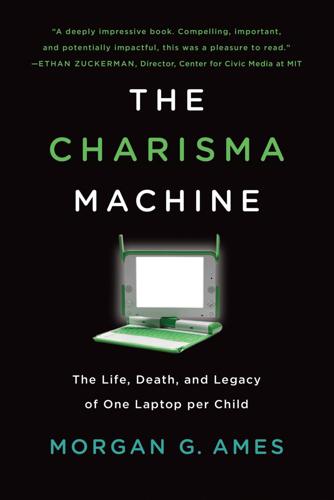
The Charisma Machine: The Life, Death, and Legacy of One Laptop Per Child
by
Morgan G. Ames
Published 19 Nov 2019
The Digital Sublime: Myth, Power, and Cyberspace. Cambridge, MA: MIT Press, 2005. Murph, Darren. “OLPC XO Caught Playing Super Mario Bros. 3.” Engadget, December 25, 2006. https://www.engadget.com/2006/12/25/olpc-xo-caught-playing-super-mario-bros-3/. Nagle, Angela. Kill All Normies: Online Culture Wars from 4Chan and Tumblr to Trump and the Alt-Right. Winchester, UK: Zero Books, 2017. Nakamura, Lisa. Cybertypes: Race, Ethnicity, and Identity on the Internet. New York: Routledge, 2002. Nakamura, Lisa, and Peter A. Chow-White, eds. Race after the Internet. New York: Routledge, 2011. Namioka, Aki Helen, and Christopher Rao.
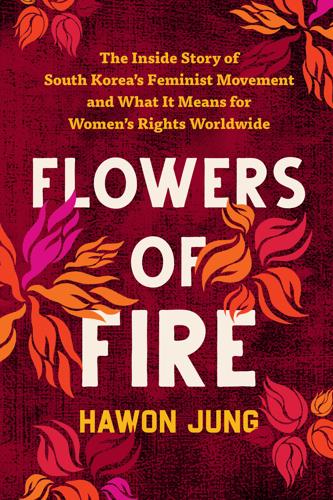
Flowers of Fire: The Inside Story of South Korea's Feminist Movement and What It Means for Women's Rights Worldwide
by
Hawon Jung
Published 21 Mar 2023
Fake stories or misleadingly edited videos meant to “prove” that women can’t properly fight crimes have made regular rounds on male-dominated communities and YouTube. Then, they’re often amplified by media outlets with little or no fact-checking,50 creating a cycle of misogynistic misinformation.51 Ilbe, a popular far-right website whose members take pride in their raw, unfiltered, and offensive language—a site often described as South Korea’s 4chan—was a pinnacle of that trend. The website, known to have had a huge influence on many young men during its heyday in the 2010s, was a major breeding ground for hatred of all kinds of social minorities, as well as left-wing politics—much of it packaged as jokes and memes. On Ilbe and some other online spaces, efforts, especially those of the gender-equality ministry, to address the underrepresentation of women in corporate boardrooms and state offices were angrily condemned as undermining social fairness and victimizing men.
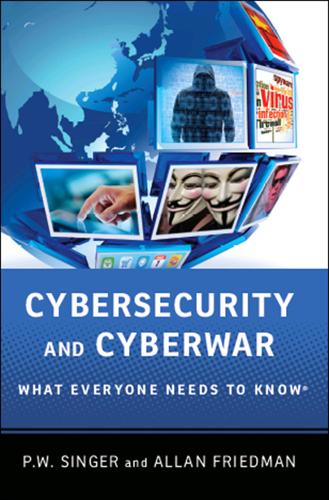
Cybersecurity: What Everyone Needs to Know
by
P. W. Singer
and
Allan Friedman
Published 3 Jan 2014
The paradox is that for such a supposedly secretive group, most of Anonymous’s planning and action takes place in the open. There is no exact date linked to the founding of Anonymous, but most accounts credit its formation to the mid-2000s, merging early hacker communities dating back to the 1980s with a new generation of hactivists, who congregated around online bulletin boards like 4chan. For the next few years, the group would rarely pop up outside of the computer security world media. One of the first mentions came in 2007, when Canadian news reported the arrest of a fifty-three-year-old child predator who had been tracked down and turned into the police by a “self-described Internet vigilante group called Anonymous.”

The Bookshop: A History of the American Bookstore
by
Evan Friss
Published 5 Aug 2024
School superintendents, teachers, parents, librarians, journalists, state legislators, and booksellers went to war over books, trying to ban certain titles or promote those very books being banned. For radical bookstores of times past, the physical space was just as important—more important, actually—than the books they sold. In the twenty-first-century digital age, radicals (along with everyone else) have congregated in different ways. There are Facebook groups and 4chan. But where do white supremacists buy their books today? Like the majority of Americans, they don’t purchase most of their books at brick-and-mortar Nazi bookstores or local independents. They buy from Amazon, where there’s little curation. It sells Dying of Whiteness alongside self-published works by neo-Nazis.
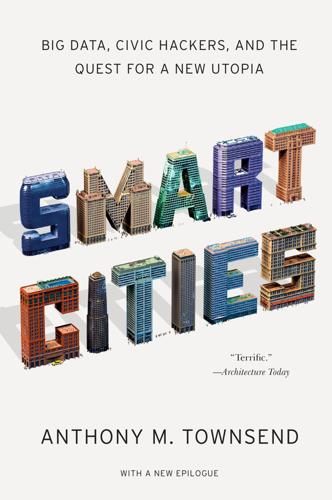
Smart Cities: Big Data, Civic Hackers, and the Quest for a New Utopia
by
Anthony M. Townsend
Published 29 Sep 2013
The Growth of CCTV: A global perspective on the international diffusion of video surveillance in publicly accessible space,” Surveillance & Society, http://www.surveillance-and-society.org/articles2(2)/editorial.pdf, 2(2/3): 110. 60John Villasenor, Recording Everything: Digital Storage as an Enabler of Authoritarian Governments (Washington, DC: The Brookings Institution, 2011), http://www.brookings.edu/%7E/media/Files/rc/papers/2011/1214_digital_storage_villasenor/ 1214_digital_storage_villasenor.pdf, 1. 61Chao and Clark, “Cisco Poised to Help China Keep an Eye on Its Citizens.” 62“Beijing to trial mobile tracking system: report,” Agence France Presse, March 3, 2011. 63David Goldman, “Carrier IQ: ‘We’re as surprised as you,’ ” CNNMoney Tech, blog, last modified December 2, 2011, http://money.cnn.com/2011/12/02/technology/carrier_iq/index.htm. 64Farhad Manjoo, “Fear Your Smartphone,” Slate, December 2, 2011, http://www.slate.com/articles/technology/technology/2011/12/ carrier_iq_it_s_totally_rational_to_worry_that_our_phones_are_tracking_ everything_we_do_.html. 65Kate Notopoulos, “Somebody’s watching: how a simple exploit lets strangers tap into private security cameras,” The Verge, February 3, 2012, http://www.theverge.com/2012/2/3/2767453/trendnet-ip-camera-exploit-4chan. 66Nicholas G. Garaufis, Memorandum & Order 10-MC-897 (NGG), August 22, 2011, http://ia600309.us.archive.org/33/items/gov.uscourts.nyed.312774/ gov.uscourts.nyed.312774.6.0.pdf. 67George Orwell, 1984 (Penguin: New York, 1990), 65. 68Chao and Clark, “Cisco Poised to Help China Keep an Eye on Its Citizens.” 69Siobhan Gorman, “NSA’s Domestic Spying Grows As Agency Sweeps Up Data,” Wall Street Journal, March 10, 2008, http://online.wsj.com/article/SB120511973377523845.html. 70John Villasenor, “Recording Everything: Digital Storage as an Enabler of Authoritarian Governments” (Washington, DC: Brookings Institution, December 14, 2011), 1. 71Herman Kahn, Thinking About the Unthinkable (New York, Horizon Press, 1962). 72“How U.S.
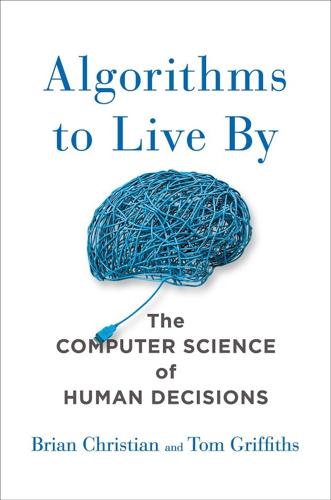
Algorithms to Live By: The Computer Science of Human Decisions
by
Brian Christian
and
Tom Griffiths
Published 4 Apr 2016
This sporting contest is the marathon: The marathon has an analogue in the world of sorting algorithms. One of the more intriguing (Wikipedia used the word “esoteric” before the article was removed entirely) developments in beyond-comparison sorting theory arose from one of the most unlikely places: the notorious Internet message board 4chan. In early 2011, an anonymous post there proclaimed: “Man, am I a genius. Check out this sorting algorithm I just invented.” The poster’s “sorting algorithm”—Sleep Sort—creates a processing thread for each unsorted item, telling each thread to “sleep” the number of seconds of its value, and then “wake up” and output itself.

Active Measures: The Secret History of Disinformation and Political Warfare
by
Thomas Rid
This new technique would make the compromising material public, and amplify it, before it would be picked up by traditional middlemen, such as Russian TV stations, outlets in third countries, and ultimately American and European news agencies. This strategy of leaking via the internet would soon redefine how surfacing and amplification worked. 26. Anonymous Guy Fawkes–masked internet activism began to coalesce in 2007, partly on 4chan, a raucous anonymous image board. The movement peaked in size and volume in early 2012.1 By then an entire news network of collaborative anonymous sources and accounts had emerged online, on various open platforms and custom-built websites. Leaking information online, called “doxing” in internet jargon, had become a common occurrence.
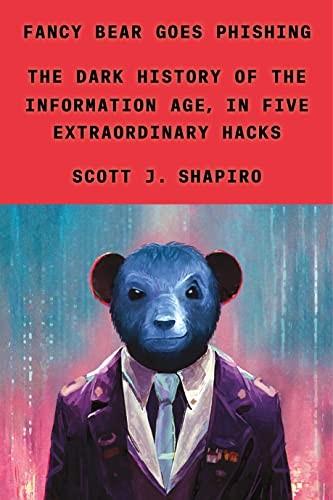
Fancy Bear Goes Phishing: The Dark History of the Information Age, in Five Extraordinary Hacks
by
Scott J. Shapiro
They would face the same choice the struggling Microsoft faced earlier, the choice between market share and security. Which brings us back to Paris Hilton. 6. SNOOP DOGG DOES HIS LAUNDRY On Sunday morning, February 20, 2005, hackers posted the data from Paris Hilton’s cell phone on GenMay.com (short for General Mayhem), a rowdy online forum that served as an internet meme incubator, much as 4chan continues to operate. In addition to the phone numbers of Paris’s friends, and her humiliating personal notes, the cache contained intimate photos of her topless. Within hours, the stolen data migrated to illmob.org, a website started by the hacker Will Genovese (known as illwill), notorious for having stolen proprietary code for Microsoft Windows 2000 and Windows NT a year earlier.

Spies, Lies, and Algorithms: The History and Future of American Intelligence
by
Amy B. Zegart
Published 6 Nov 2021
Twitter now estimates that Russia used more than fifty thousand automated accounts or bots to Tweet election-related content during the 2016 presidential campaign. Twitter and Facebook are the best-known disinformation superhighways, but there are many others. Russian officers have infiltrated everything from 4chan to Pinterest.110 Overt state-funded media outlets are used to amplify false messages. In 2019, for example, RT (formerly called Russia Today)111 had a $300 million annual budget, video programming that looked like legitimate news in multiple languages,112 and more than three million YouTube subscribers—more than Fox News, CBS News, or NBC News.113 The aim is to overwhelm, divide, and breed distrust in information itself, undermining democratic discourse.
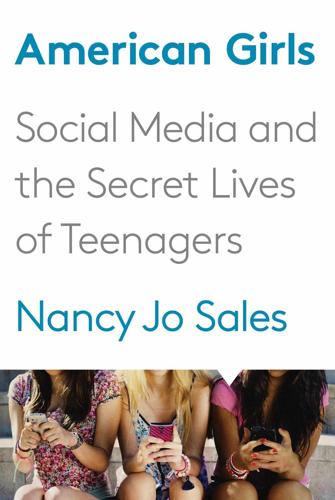
American Girls: Social Media and the Secret Lives of Teenagers
by
Nancy Jo Sales
Published 23 Feb 2016
They were some girls in the sixth grade who called themselves “Sluts for Sam,” and they followed Sam around and stalked him on social media. They had even started cutting for him—they said they were “cutting for Sam,” cutting themselves like how they heard those girls were “cutting for Bieber.” (In 2013, a hoax perpetrated by users of the Internet bulletin board 4Chan claimed that teenage girls were cutting themselves in order to get Justin Bieber to stop smoking marijuana. Fake Twitter accounts posted pictures of bleeding arms and wrists with the hashtag #cuttingforbieber. Despite its being a hoax, there was concern that #cuttingforbieber would inspire copycat behavior.)

WTF?: What's the Future and Why It's Up to Us
by
Tim O'Reilly
Published 9 Oct 2017
The story about the “FBI Agent Suspected in Hillary Email Leaks Found Dead in Apparent Murder-Suicide”—also totally fake but shared half a million times—was the work of a Southern California man who started in 2013 to prove how easily disinformation spread, but ended up creating a twenty-five-employee business to churn out the stuff. Facebook users were not the only ones spreading these stories. Many of them circulated by email and on Twitter, on YouTube, on reddit, and on 4chan. Google surfaced them in Google Suggest, the drop-down recommendations that appear for every user as they begin to type a query. But it was Facebook that became the focus of the discussion, perhaps because at first Mark Zuckerberg denied the problem, saying in an onstage interview at the Techonomy conference a few days after the election that it was “a pretty crazy idea” that the stories had influenced the outcome.
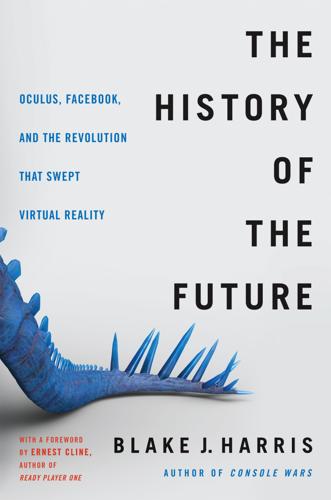
The History of the Future: Oculus, Facebook, and the Revolution That Swept Virtual Reality
by
Blake J. Harris
Published 19 Feb 2019
“So I checked out your Oculus website, and I loved what you wrote about Oculus being ‘your tilt’ to bring VR to the ‘average person.’ And that stuff about gamers and dreamers? That was gold! But I want to dig even deeper.” “Oh!” Luckey said, thinking of something else. “So there’s this comic that someone on 4chan made and it totally nails the game industry. Have you ever seen it? It’s that one that starts with a game dev saying: U CAN DO ANYTHING!!” Mitchell had not, so Luckey explained it to him. The comic was only six panels long and it begins, as Luckey had mentioned, with a game developer announcing that his upcoming game will be so amazing—so filled with incredible features—that players will be able to do . . . anything!
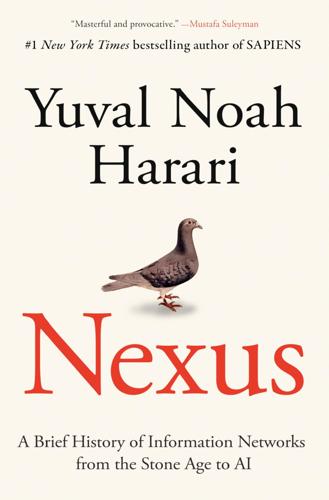
Nexus: A Brief History of Information Networks From the Stone Age to AI
by
Yuval Noah Harari
Published 9 Sep 2024
What would it mean for humans to live in a world where catchy melodies, scientific theories, technical tools, political manifestos, and even religious myths are shaped by a nonhuman alien intelligence that knows how to exploit with superhuman efficiency the weaknesses, biases, and addictions of the human mind? Prior to the rise of AI, all the stories that shaped human societies originated in the imagination of a human being. For example, in October 2017, an anonymous user joined the website 4chan and identified themselves as Q. He or she claimed to have access to the most restricted or “Q-level” classified information of the U.S. government. Q began publishing cryptic posts that purported to reveal a worldwide conspiracy to destroy humanity. Q quickly gained a large online following. His or her online messages, known as Q drops, were soon being collected, revered, and interpreted as a sacred text.
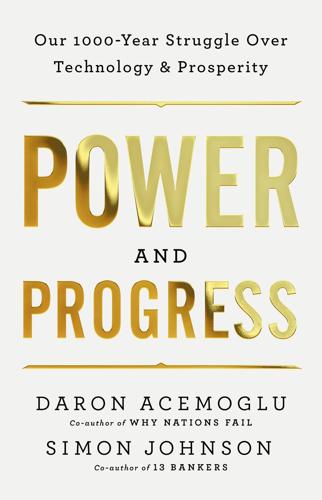
Power and Progress: Our Thousand-Year Struggle Over Technology and Prosperity
by
Daron Acemoglu
and
Simon Johnson
Published 15 May 2023
Trump’s anti-Muslim tweets were widely disseminated and subsequently caused not just more anti-Muslim and xenophobic posts on the platform but also actual hate crimes against Muslims, especially in states where the president had more followers. Some of the worst language and consistent hate speech were propagated on other platforms, such as 4chan, 8chan, and Reddit, including its various sub-Reddits such as The_Donald (where conspiracy theories and misinformation related to Donald Trump originate and circulate), Physical_Removal (advocating the elimination of liberals), and several others with explicitly racist names that we prefer not to print here.
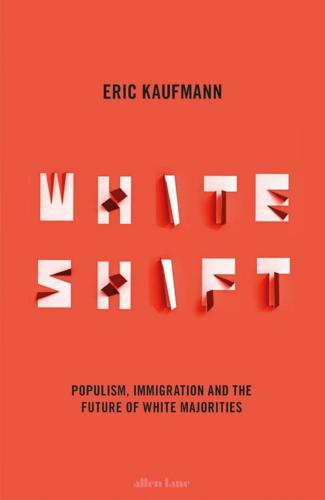
Whiteshift: Populism, Immigration and the Future of White Majorities
by
Eric Kaufmann
Published 24 Oct 2018
‘Polls [sic] shows majority of Americans’. 9. B. Campbell and J. Manning, The Rise of Victimhood Culture: Microaggressions, Safe Spaces, and the New Culture Wars, Cham, Switz., 2018: Palgrave Macmillan. 10. Zach Goldberg, Twitter posts @ZachG932, 31 May–28 June 2018. 11. A. Nagle, Kill All Normies: Online Culture Wars from 4chan and Tumblr to Trump and the Alt-Right, Winchester and Washington, DC, 2017: Zero Books. 12. Marion Mourge, ‘Laurent Wauquiez s’insurge contre “les élites” ’, Le Figaro, 25 October 2017. 13. J. Duckitt and C. G. Sibley, ‘A dual-process motivational model of ideology, politics, and prejudice’, Psychological Inquiry 20:2–3 (2009), 98–109. 14.

Elon Musk
by
Walter Isaacson
Published 11 Sep 2023
Musk’s hopscotch path to the right in 2022 disconcerted his progressive friends, including his first wife Justine and current girlfriend Grimes. “The so-called war against wokeism is one of the dumbest things ever,” Justine tweeted that year. When he began texting right-wing memes and conspiracy theories to Grimes, she replied, “Is this from 4chan or something? You’re actually starting to sound like someone from the far right.” There was an oddness to his newfound anti-woke fervor and occasional endorsements of alt-right conspiracy theories. It came in waves, like his demon-mode personality; it was not his default setting. Much of the time, he claimed to be a centrist moderate, albeit one with a libertarian streak born of his natural resistance to regulations and rules.

Homeland: The War on Terror in American Life
by
Richard Beck
Published 2 Sep 2024
The parents of one of the victims in Aurora, a twenty-four-year-old man who died while shielding his girlfriend from the bullets, launched a campaign called No Notoriety, demanding that the media minimize the extent to which they published shooters’ names or pictures of their faces. That didn’t come until later, though, and in the meantime it wasn’t just loners on 4chan who found that there were aspects of what Holmes did that they could identify with. A local gun rights activist said he thought civilian access to high-powered weapons made the United States “a stronger country,” and he objected to proposed legislation that would limit the number of bullets someone could purchase at one time.
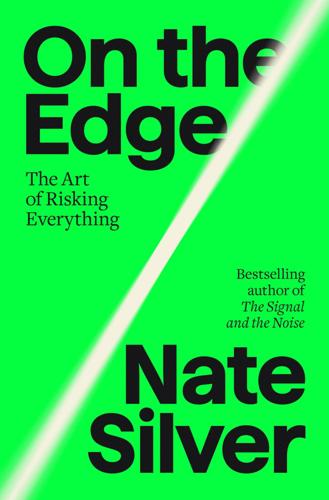
On the Edge: The Art of Risking Everything
by
Nate Silver
Published 12 Aug 2024
“Put yourself in the training process of ChatGPT,” said Ryder. “What does the world look like to you? First thing, the world looks crazy. You’re reading so much text so fast.” Imagine if you read everything that’s ever been published on the internet, from the Complete Works of William Shakespeare to the darkest corners of 4chan. At first it would be overwhelming. But before long, you’d pick up on some patterns. You’d develop some intuitive understanding of syntax and grammar and some of the colloquialisms of modern-day speech and the tropes of our broader culture. This wouldn’t be perfect, because rote empiricism only goes so far.
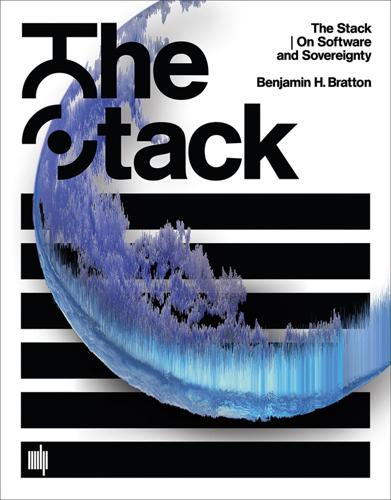
The Stack: On Software and Sovereignty
by
Benjamin H. Bratton
Published 19 Feb 2016
A late-industrial-era aesthetics of hand tools, grooming, and food (particularly of the white working class) may represent a new pastoral for some urban youth cultures, but a generational fetishization of analog machines does not make for a good theory of technology. And yet it sometimes seems as if that, plus a 4Chan-of-everything, is where things stand. The end result of this dreary convergence of the artisanal opt-out with misanthropic populism is that many of the worst Cloud feudal outcomes are far more likely to emerge than they would be if that collective intelligence were guided by another more future-forward cultural politics.